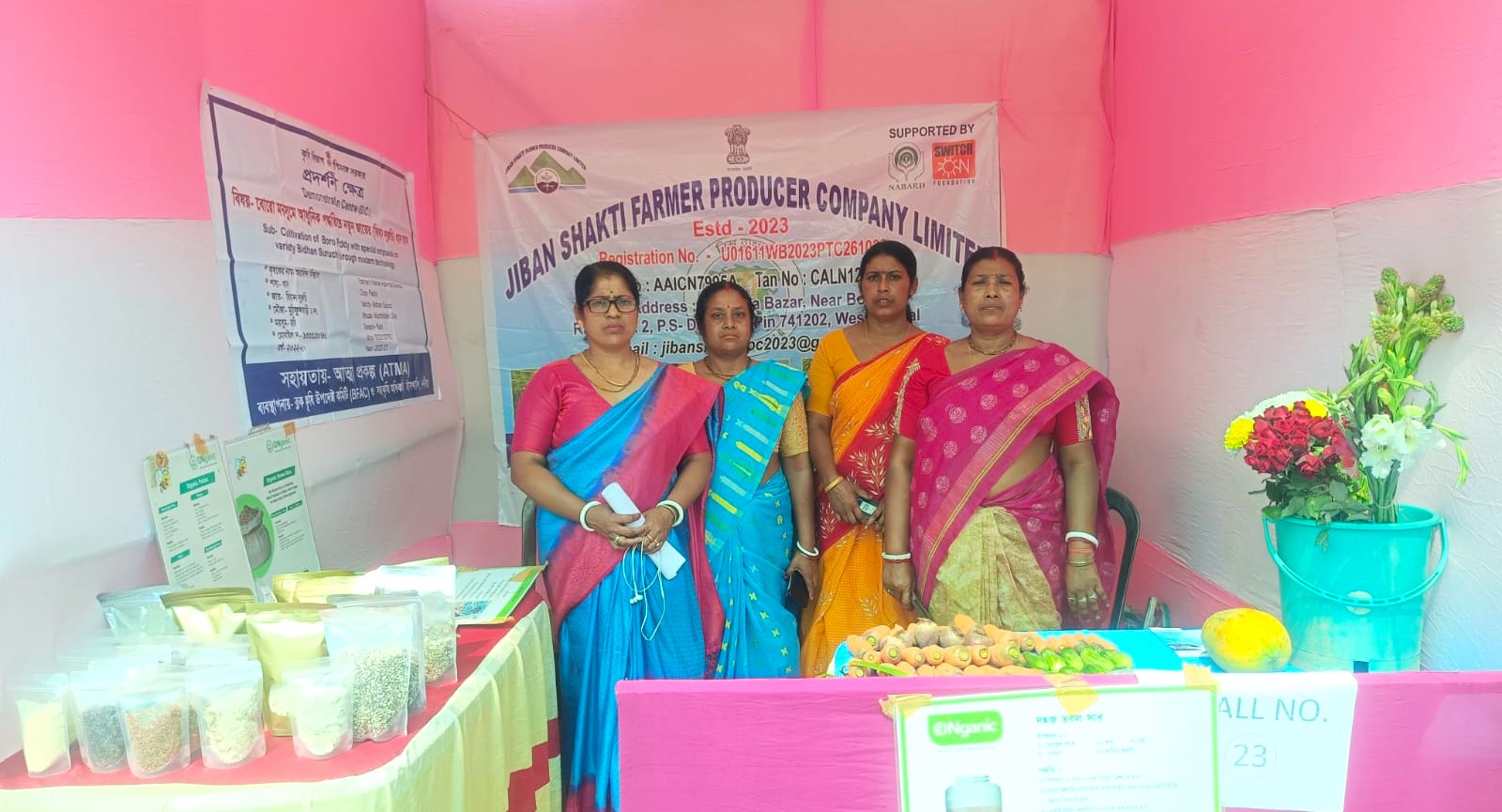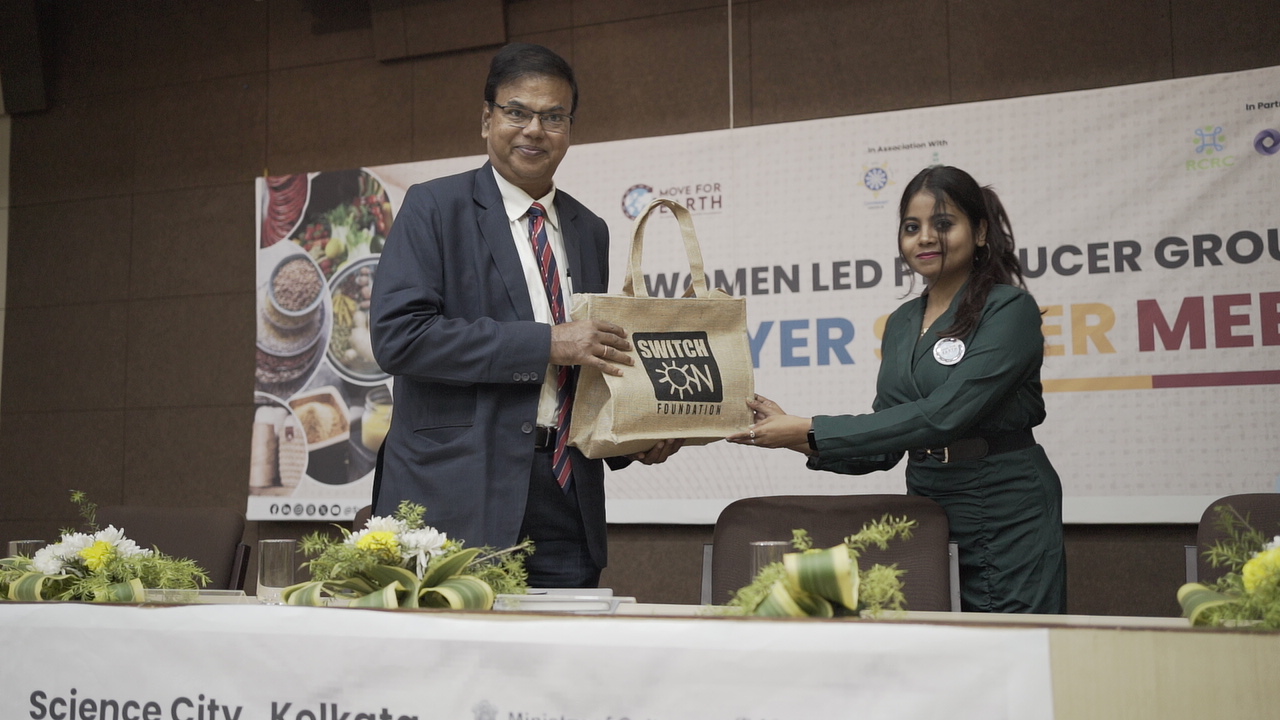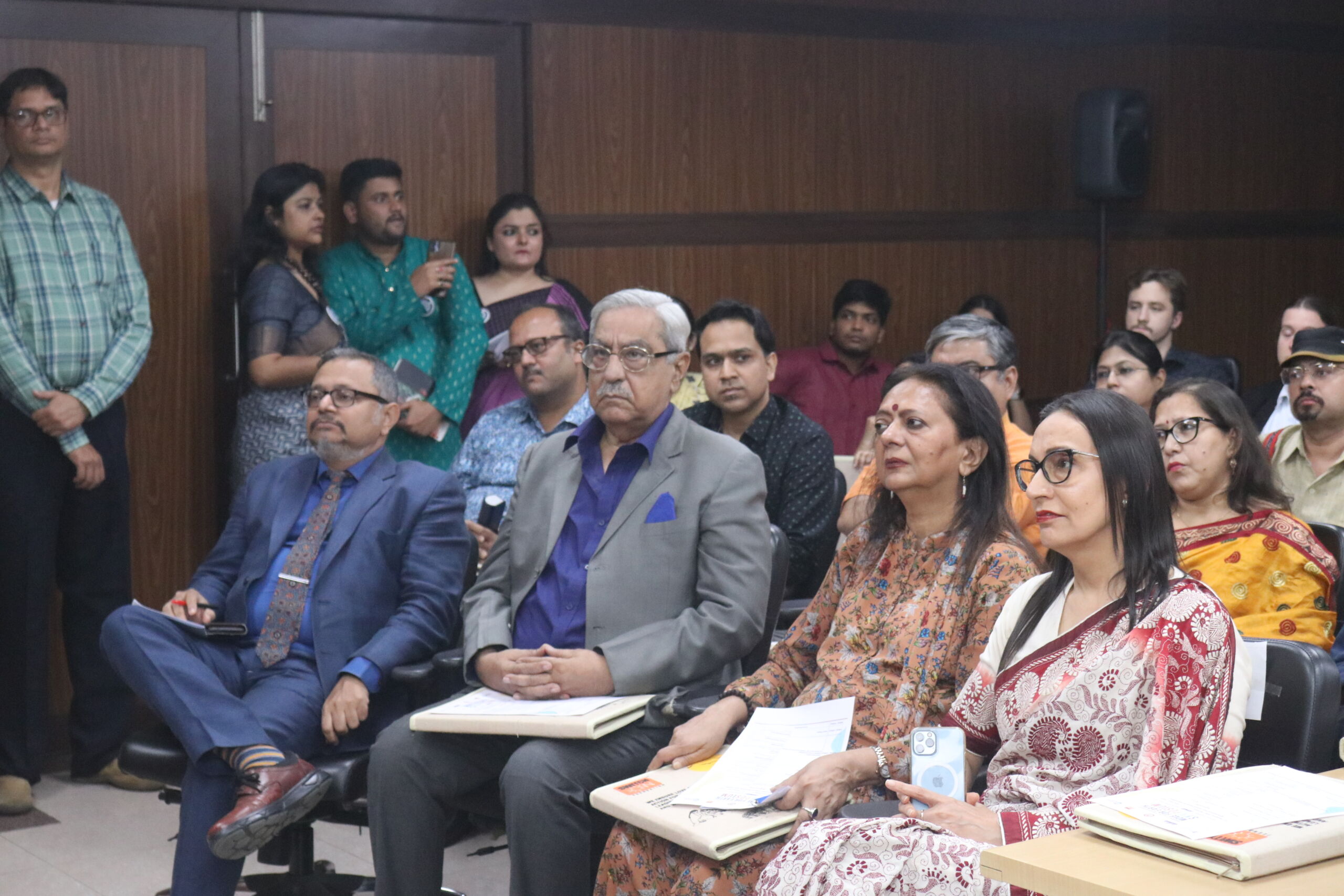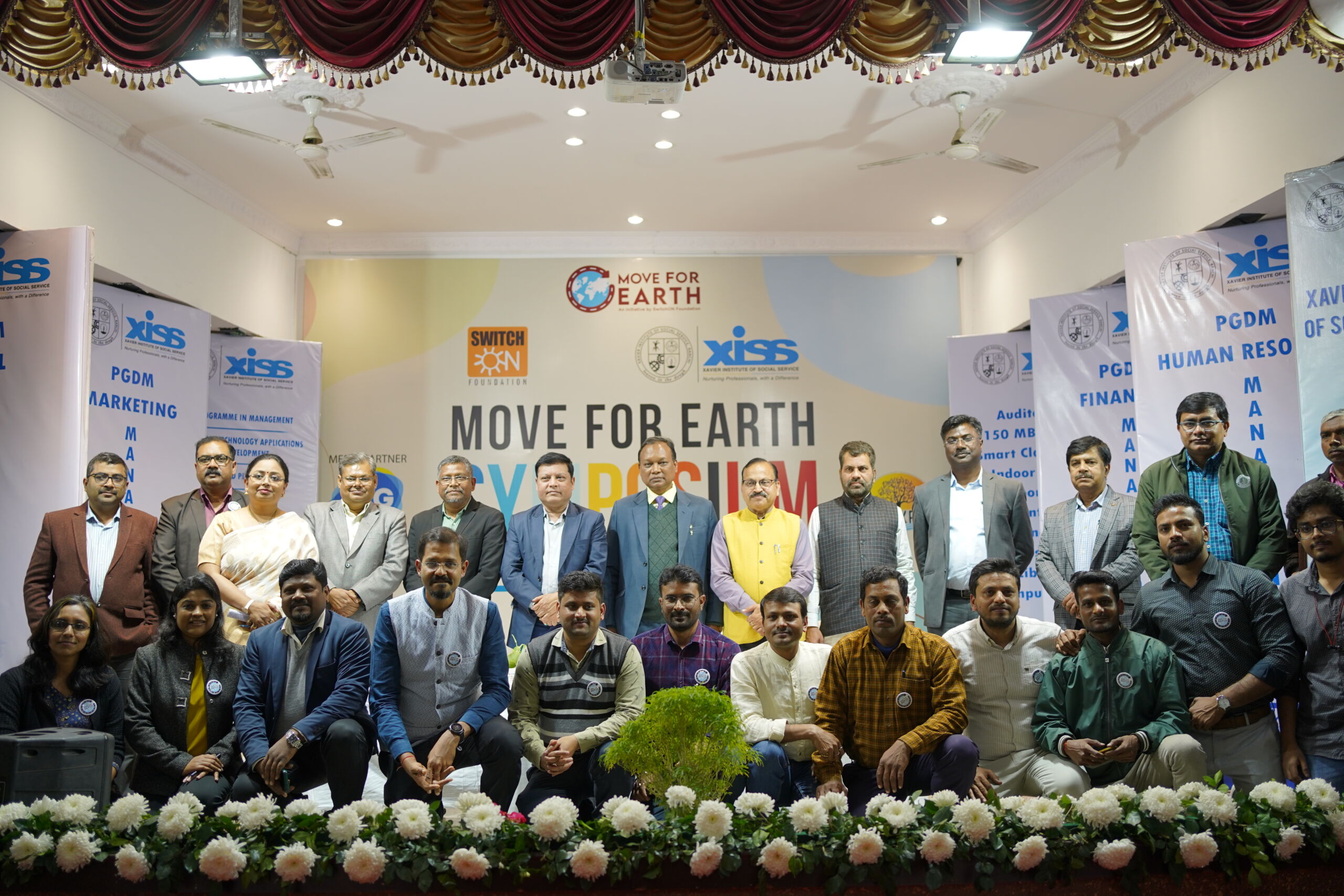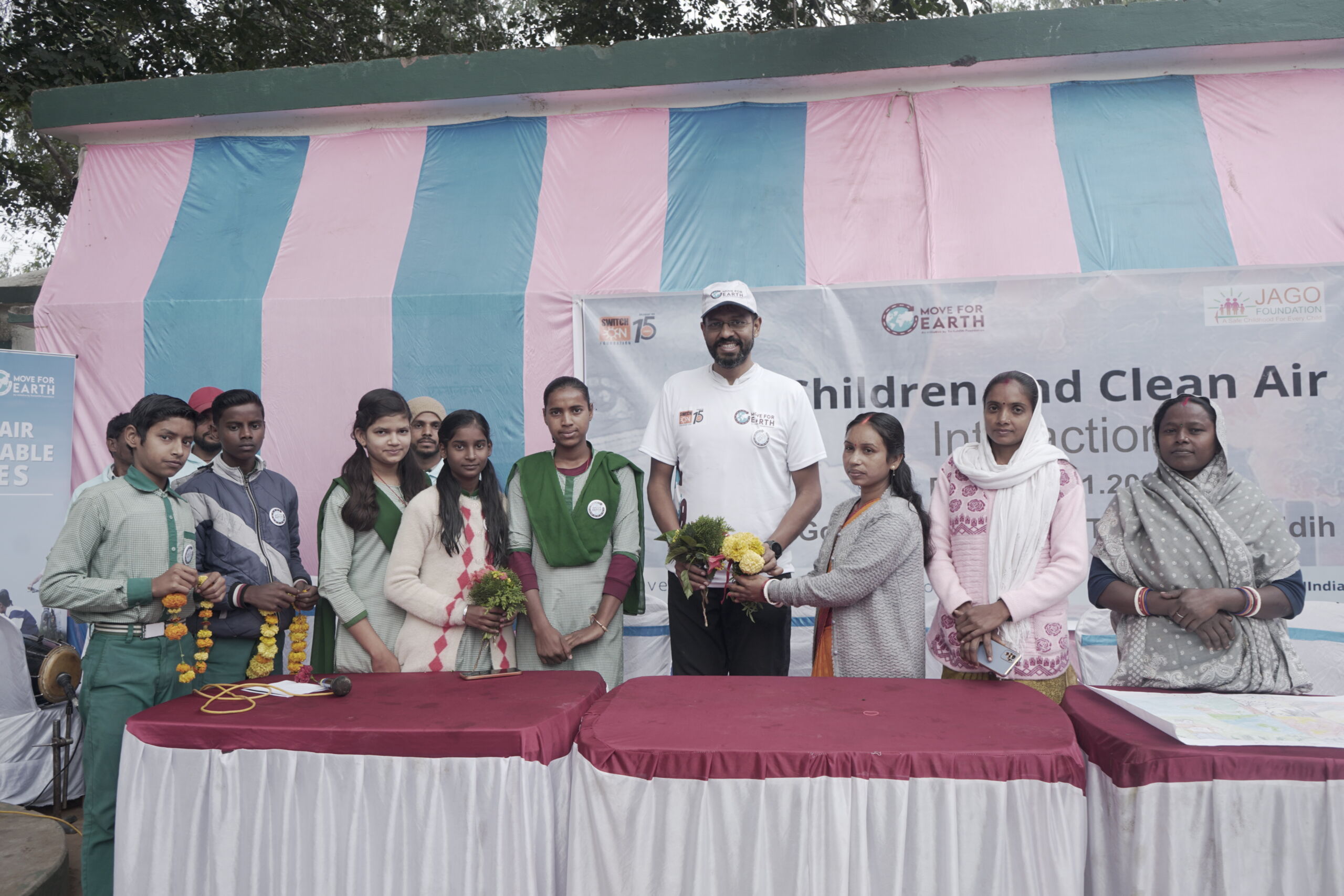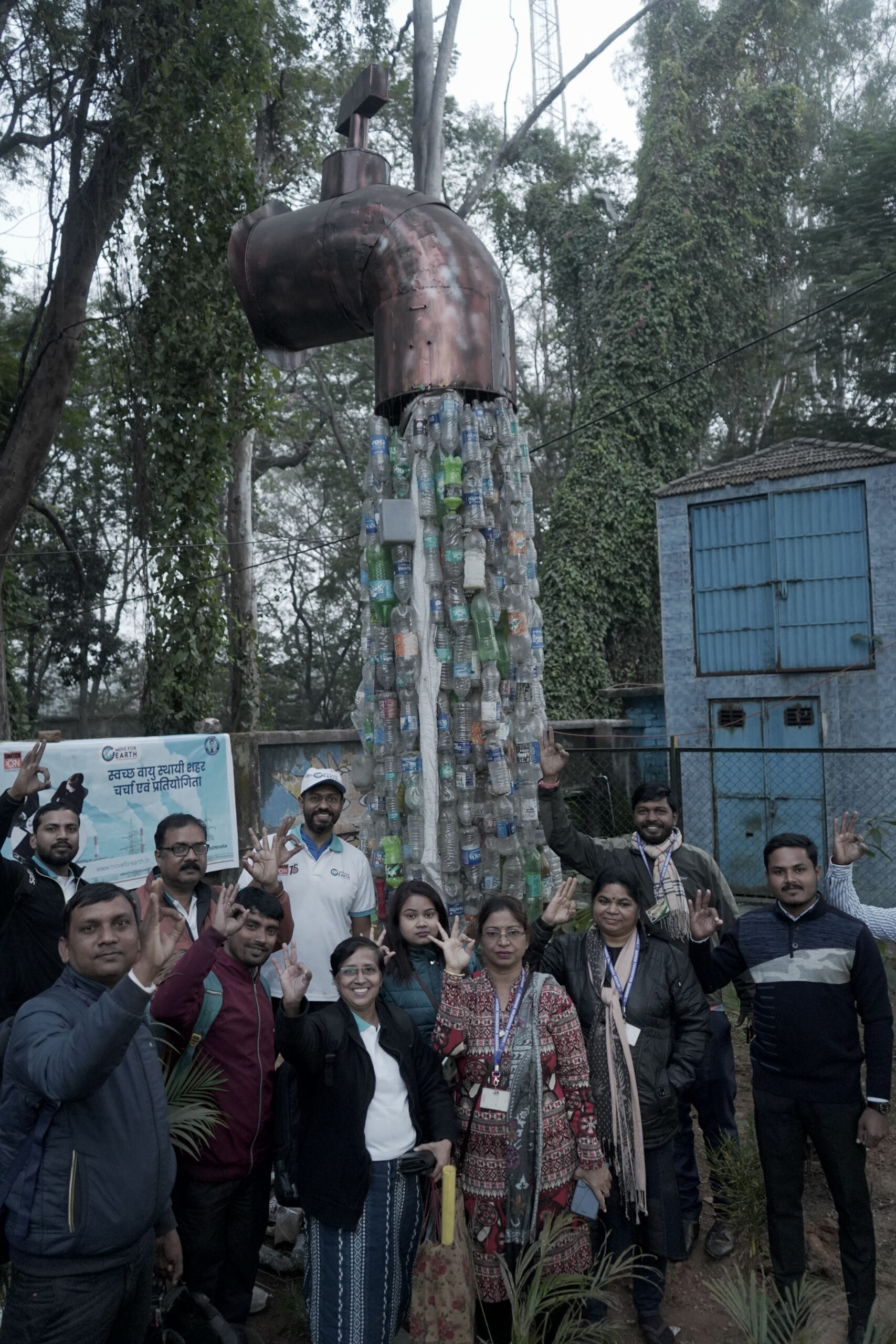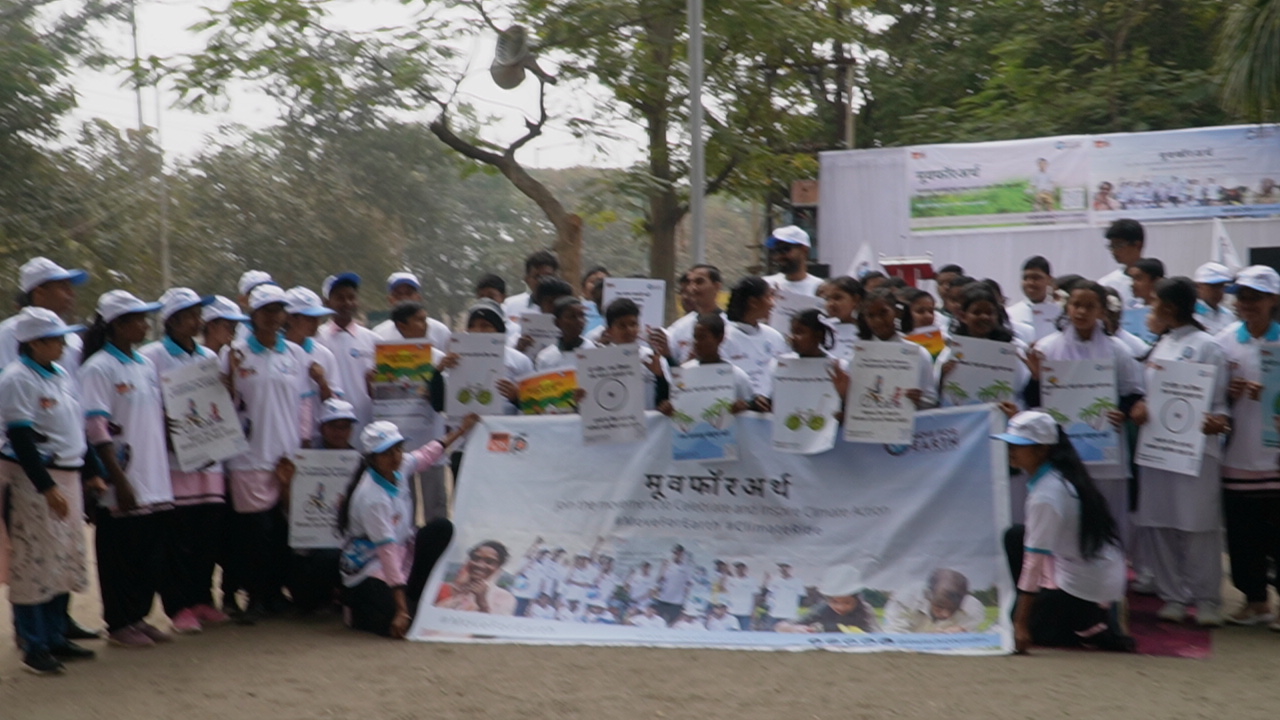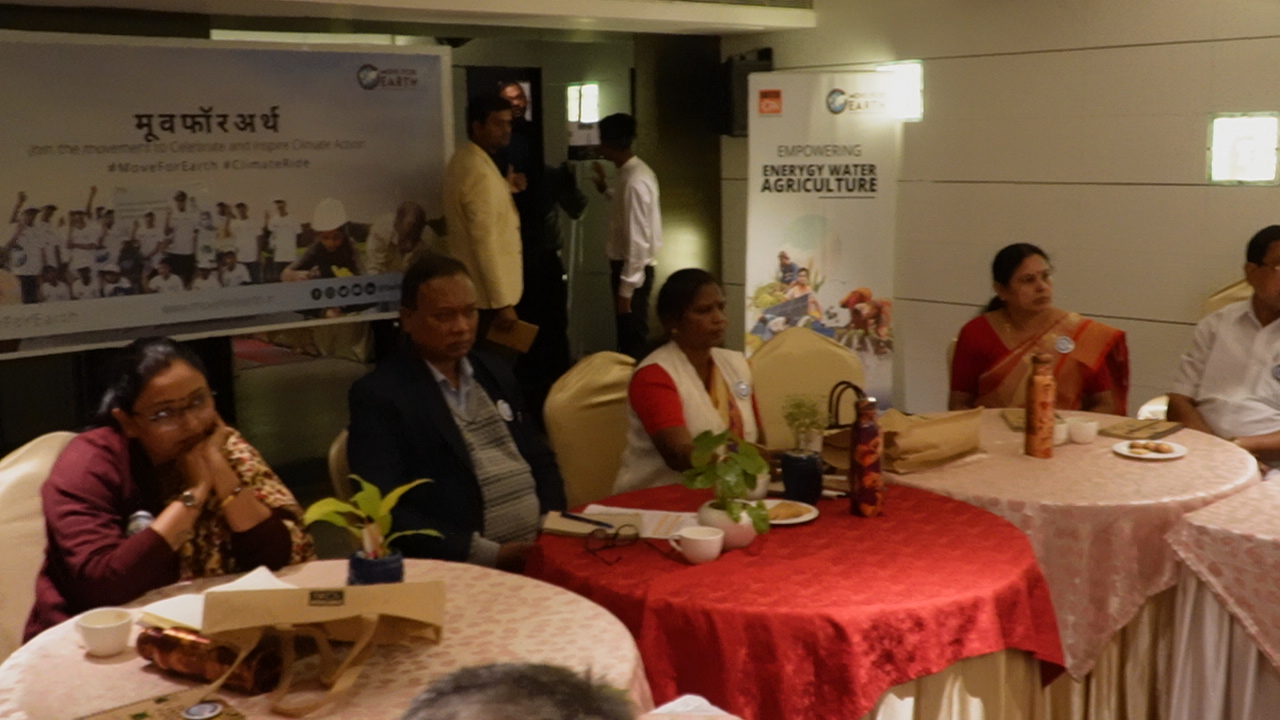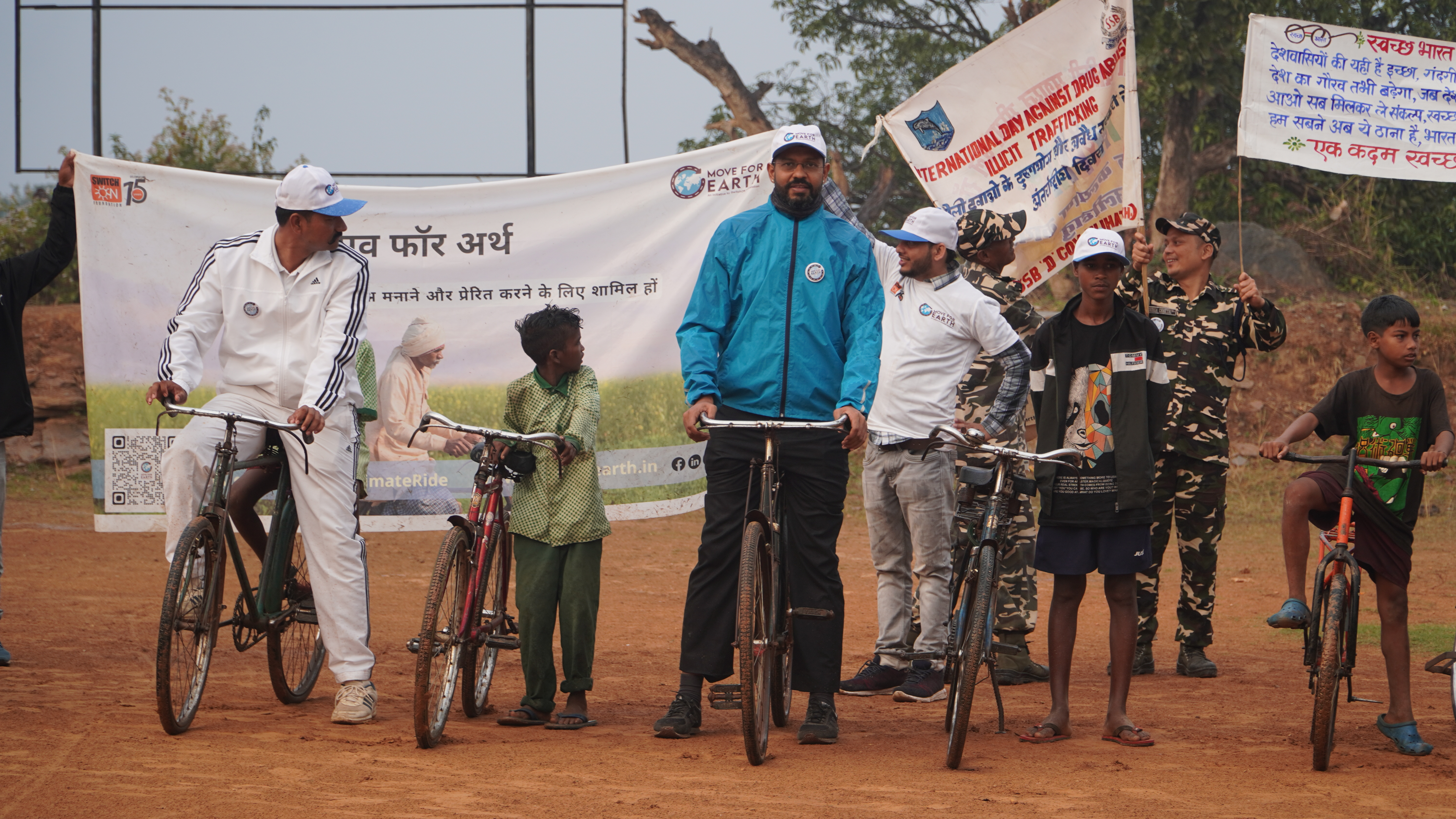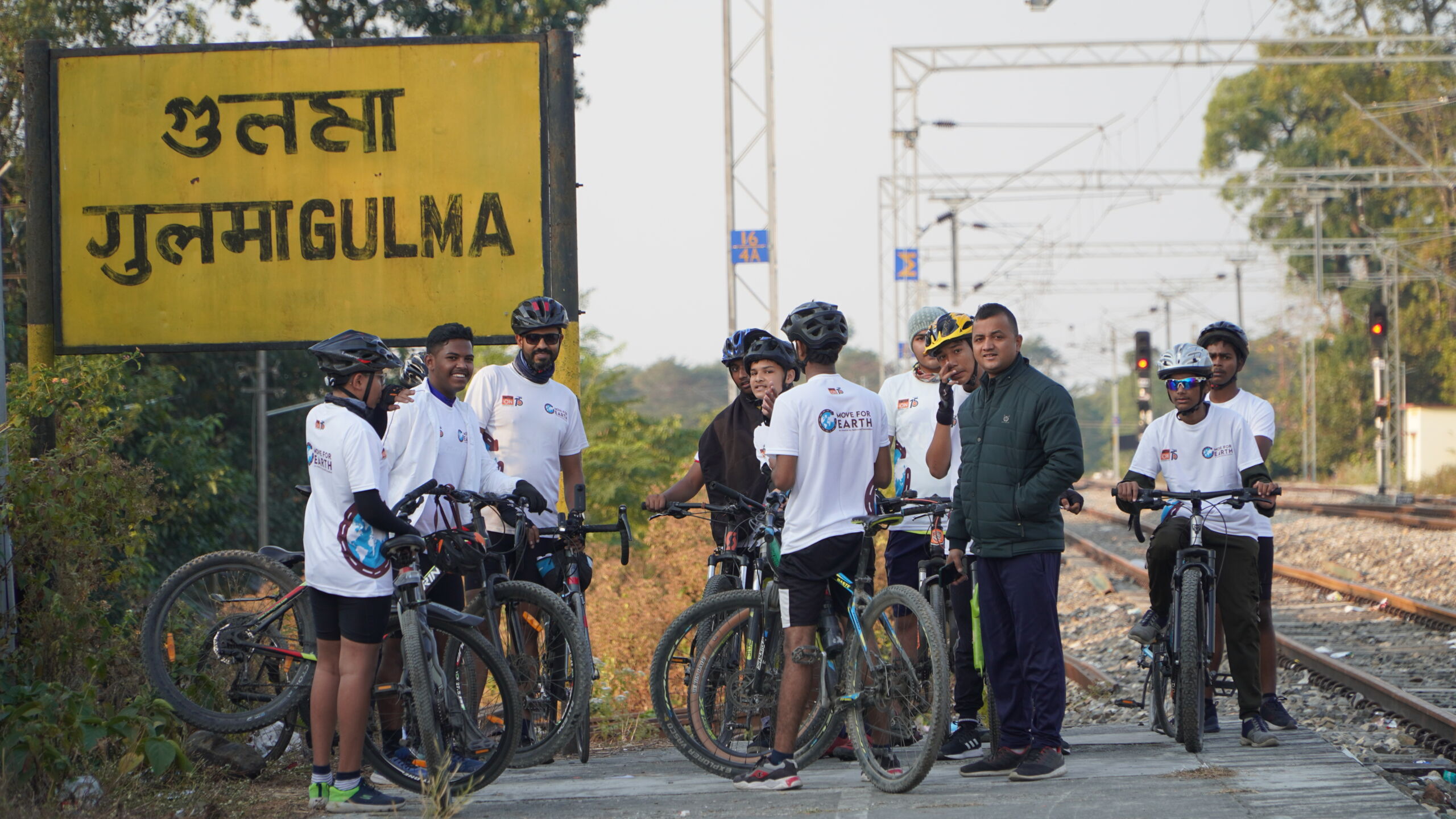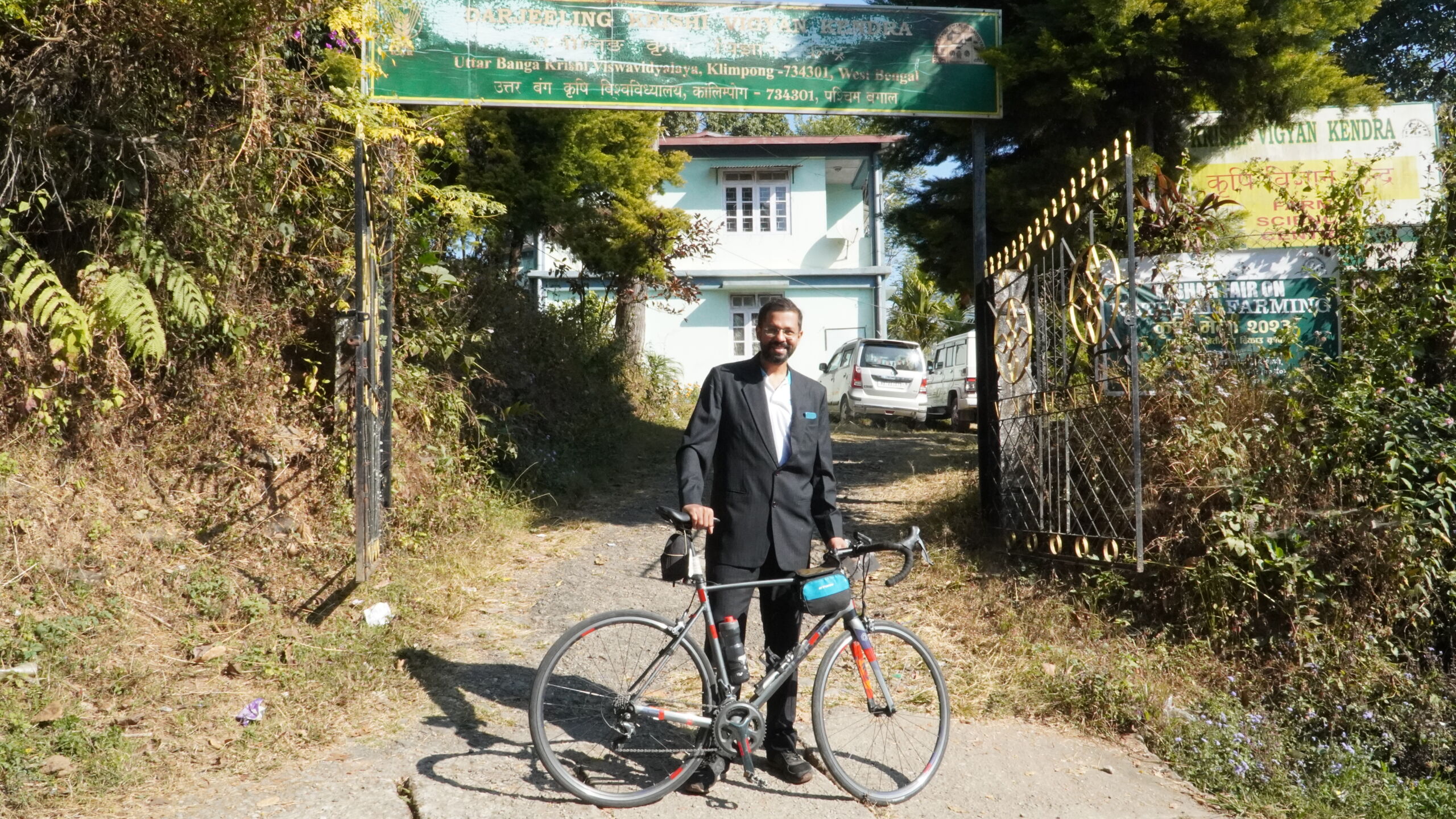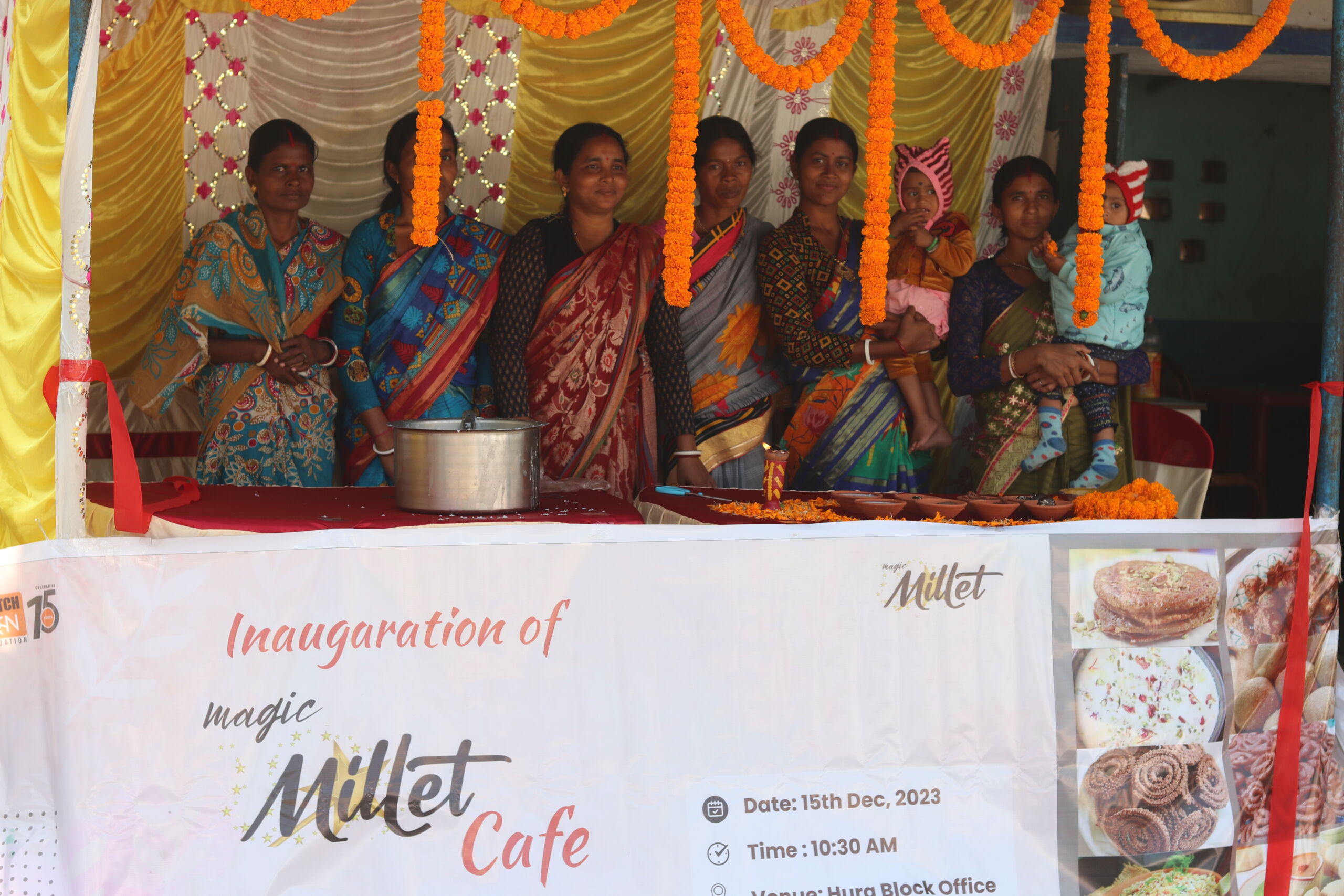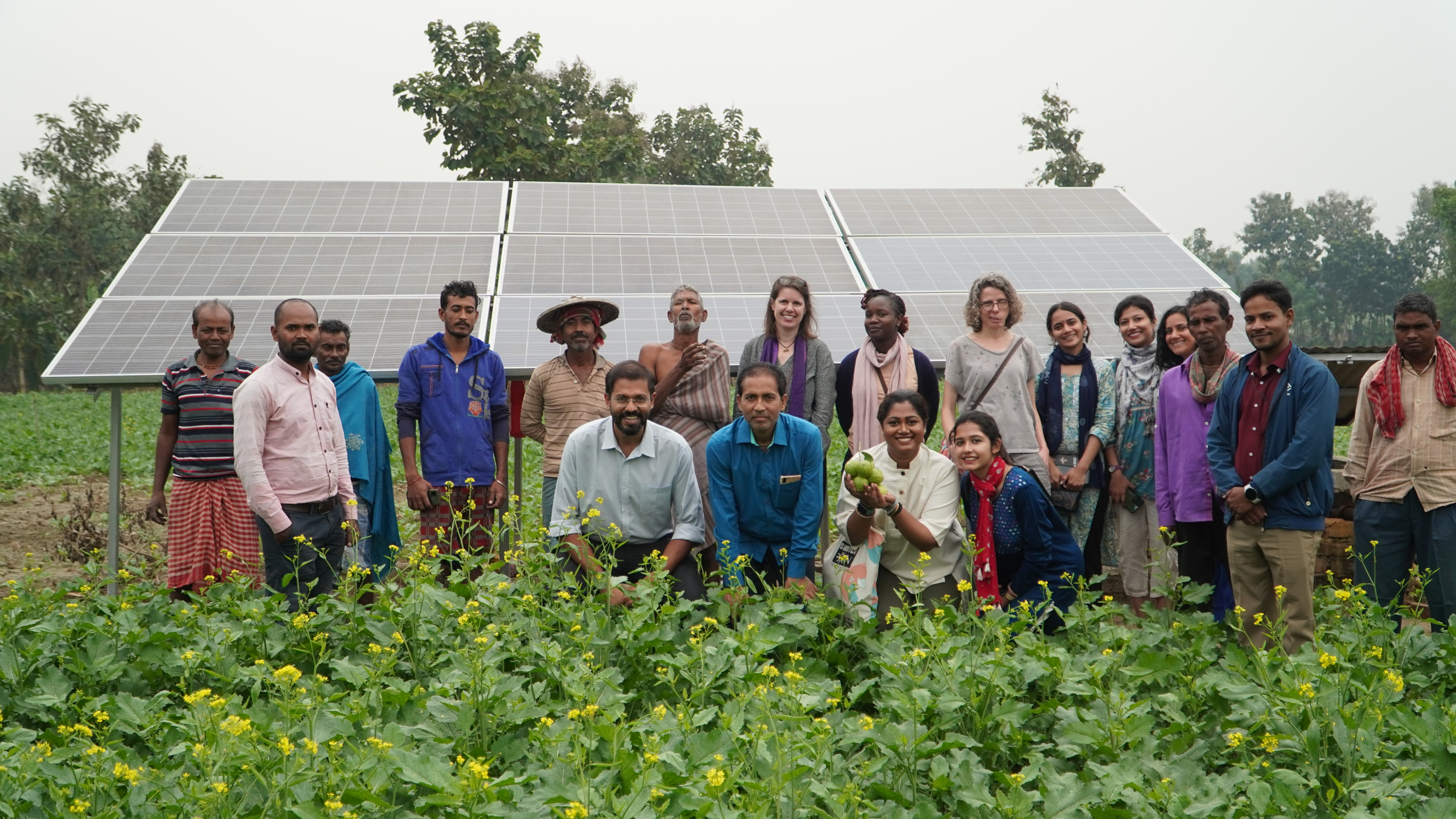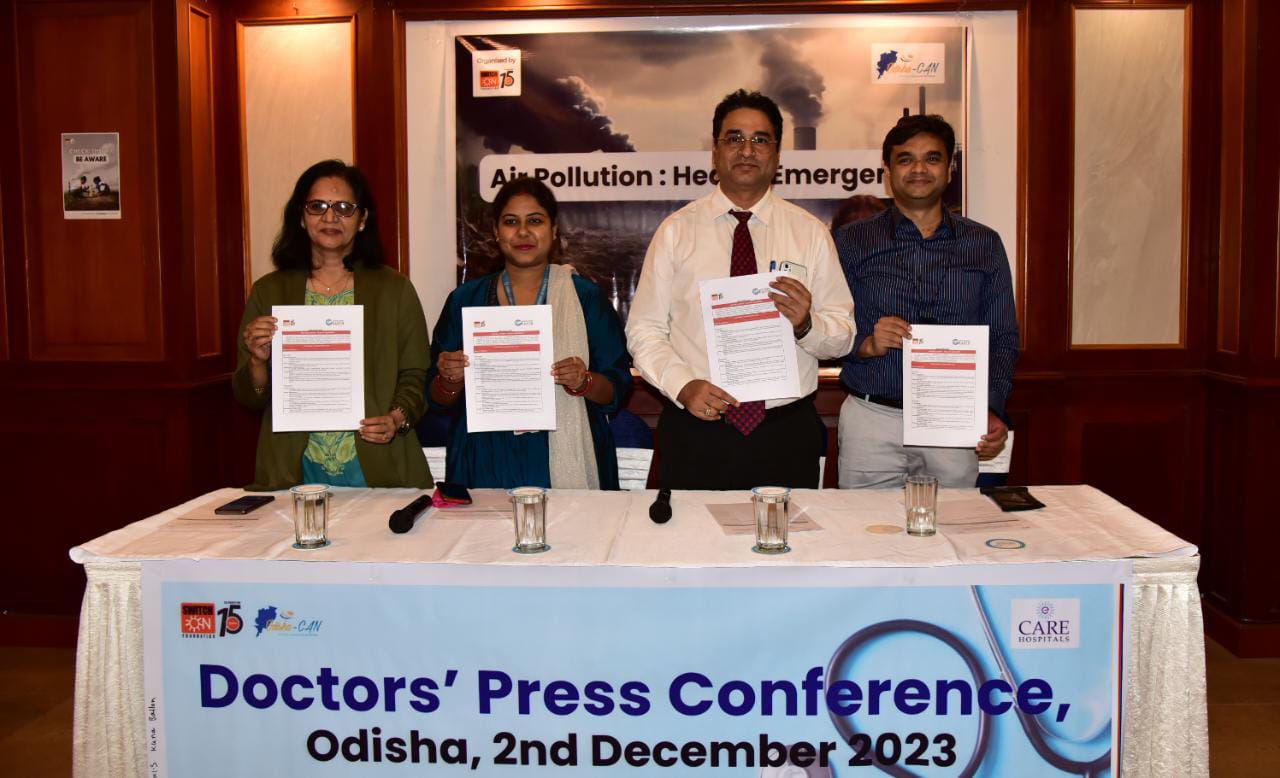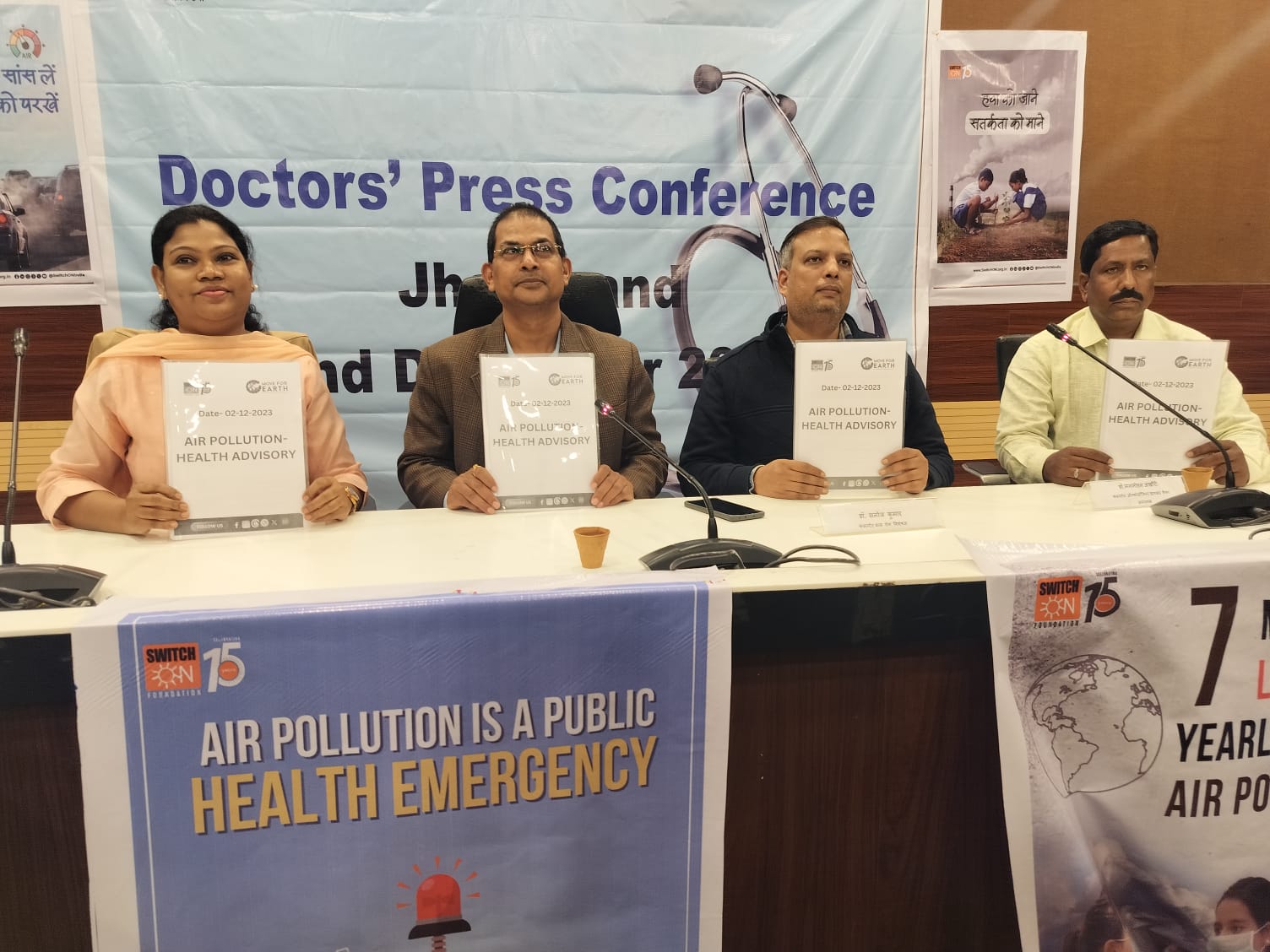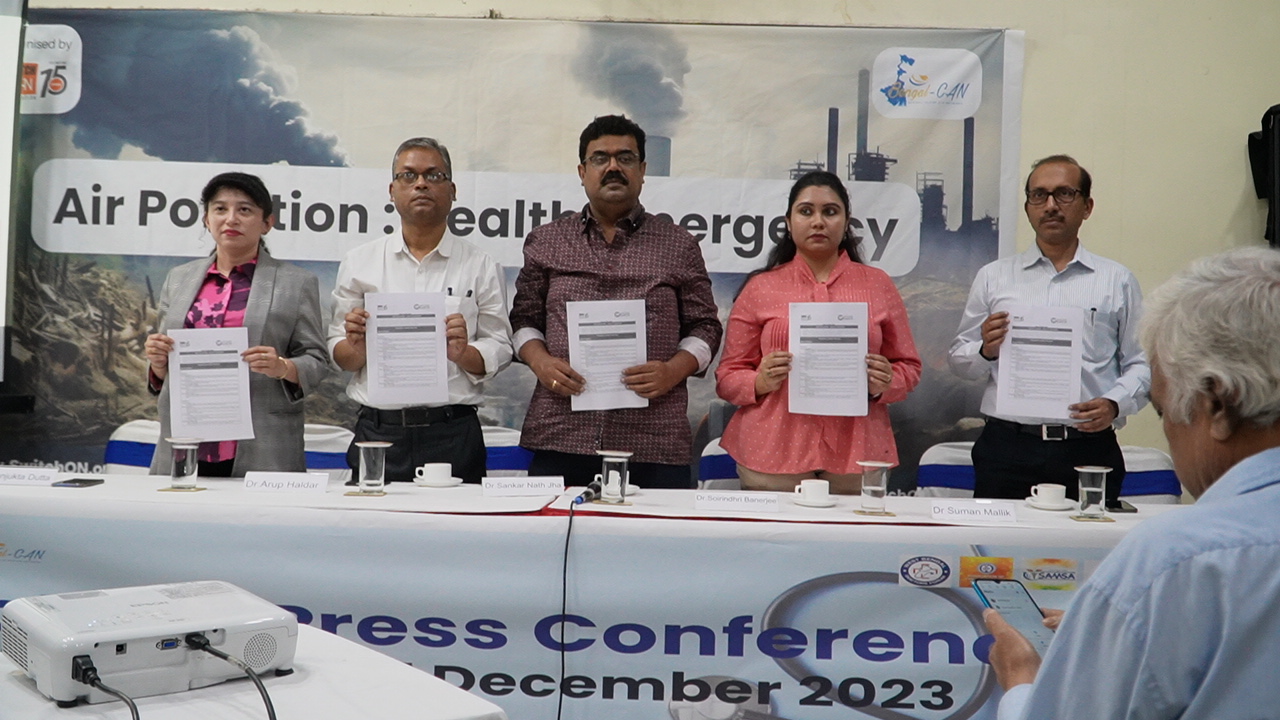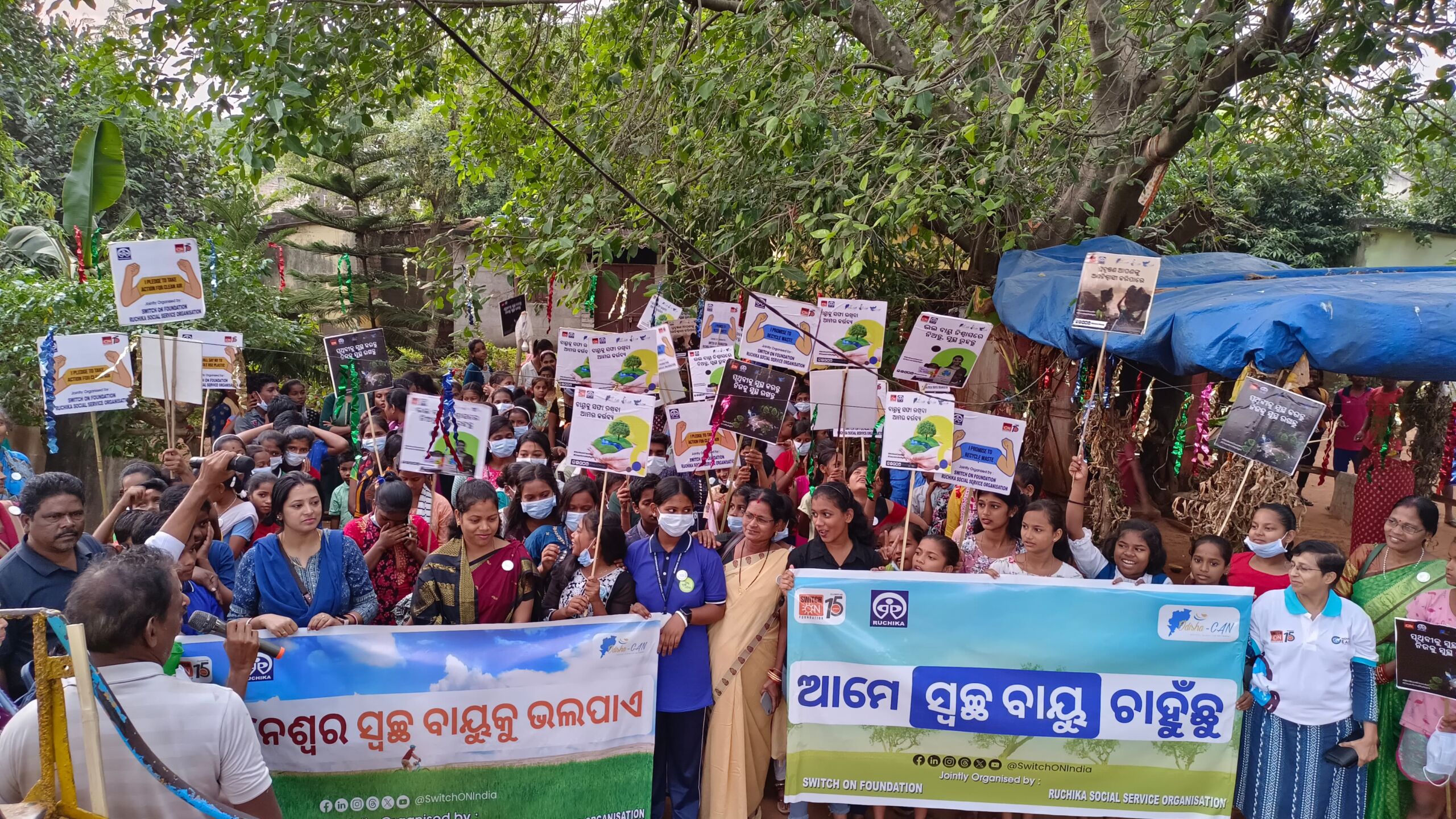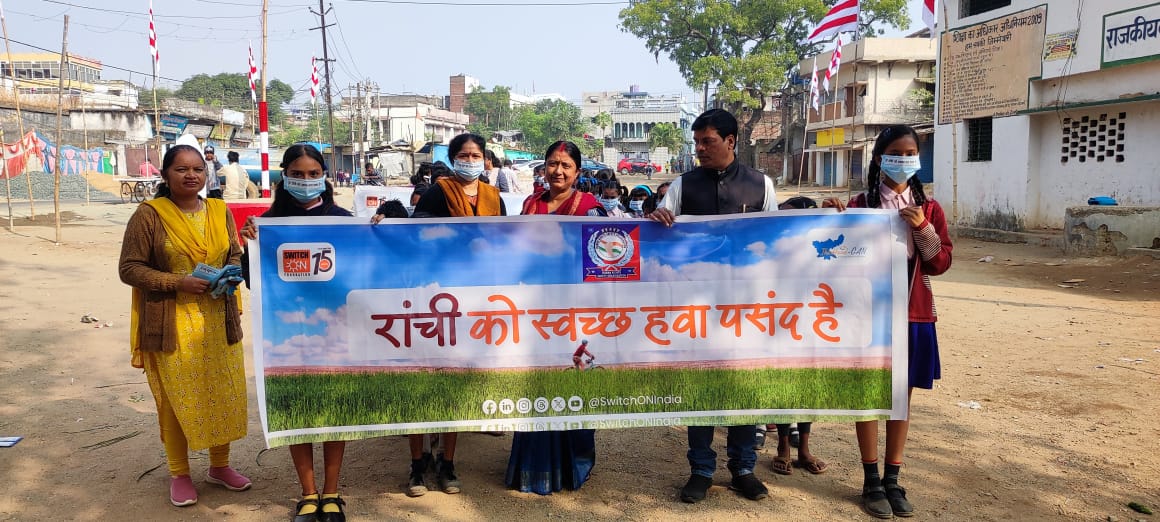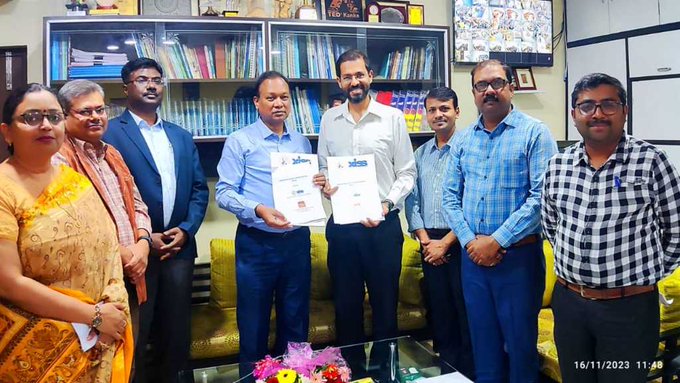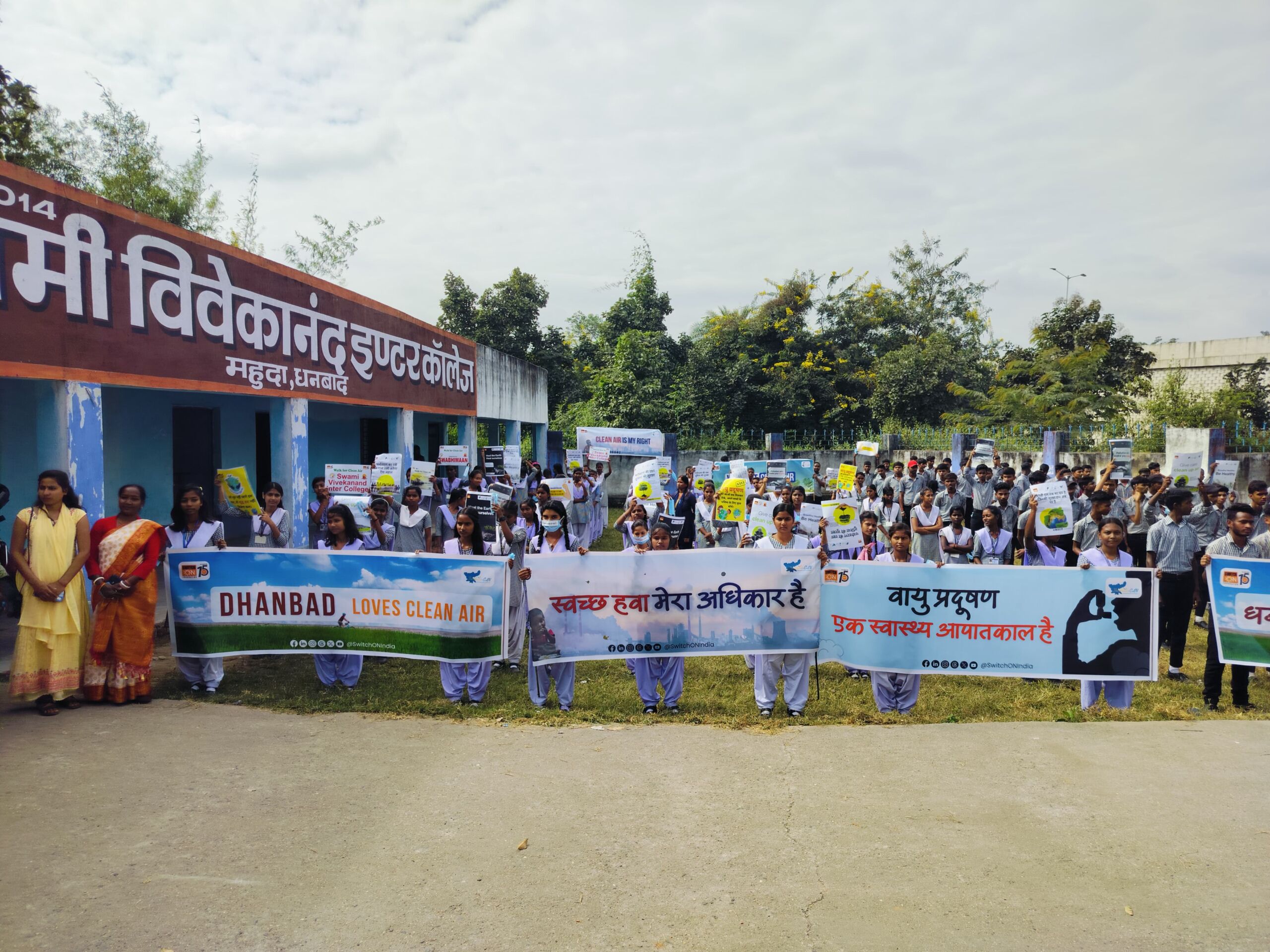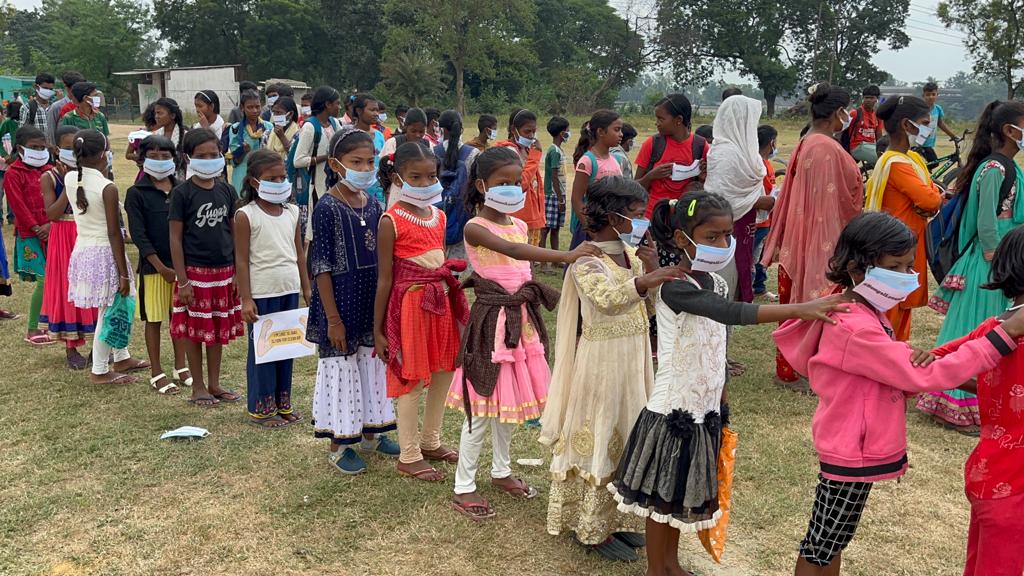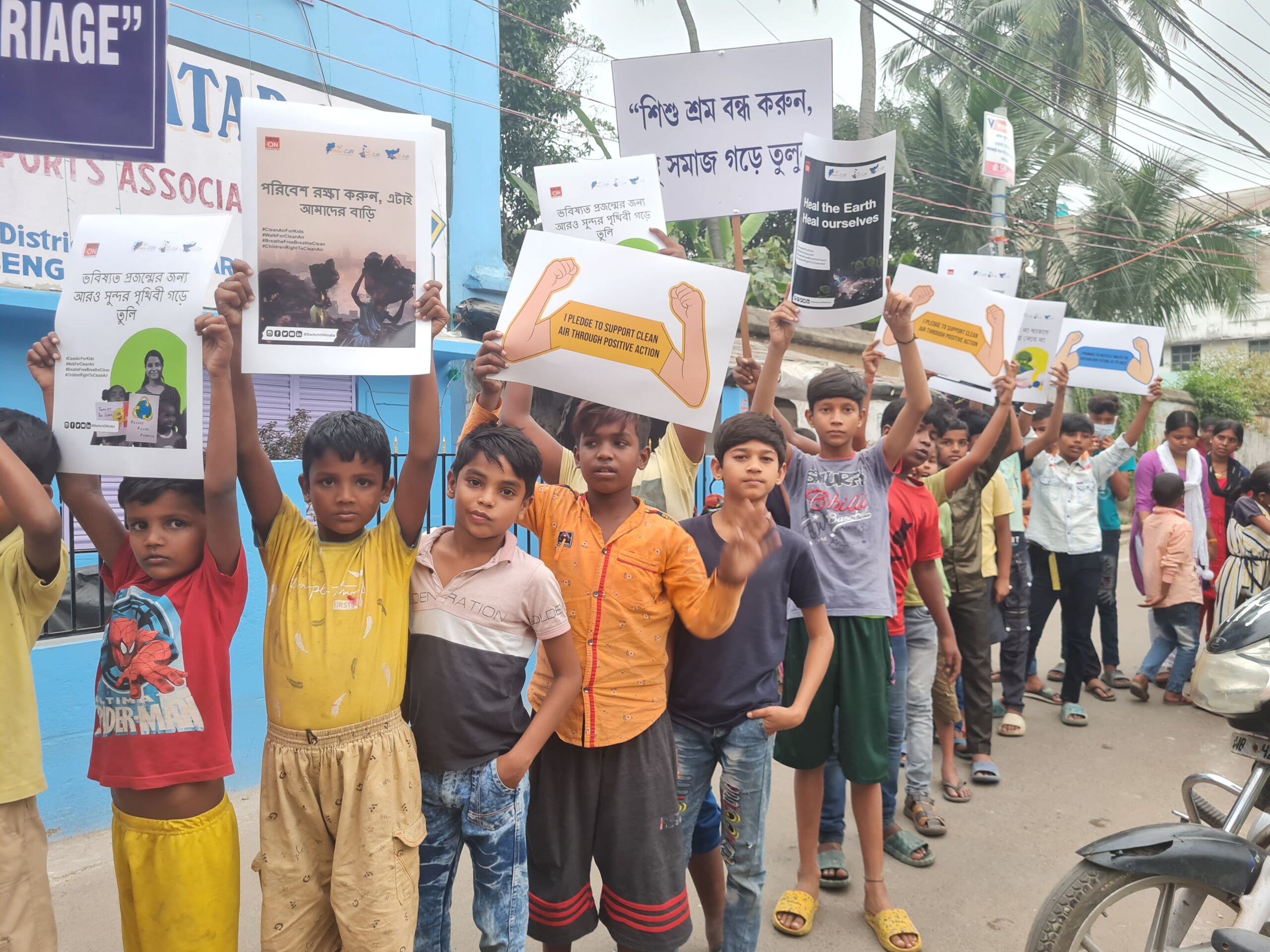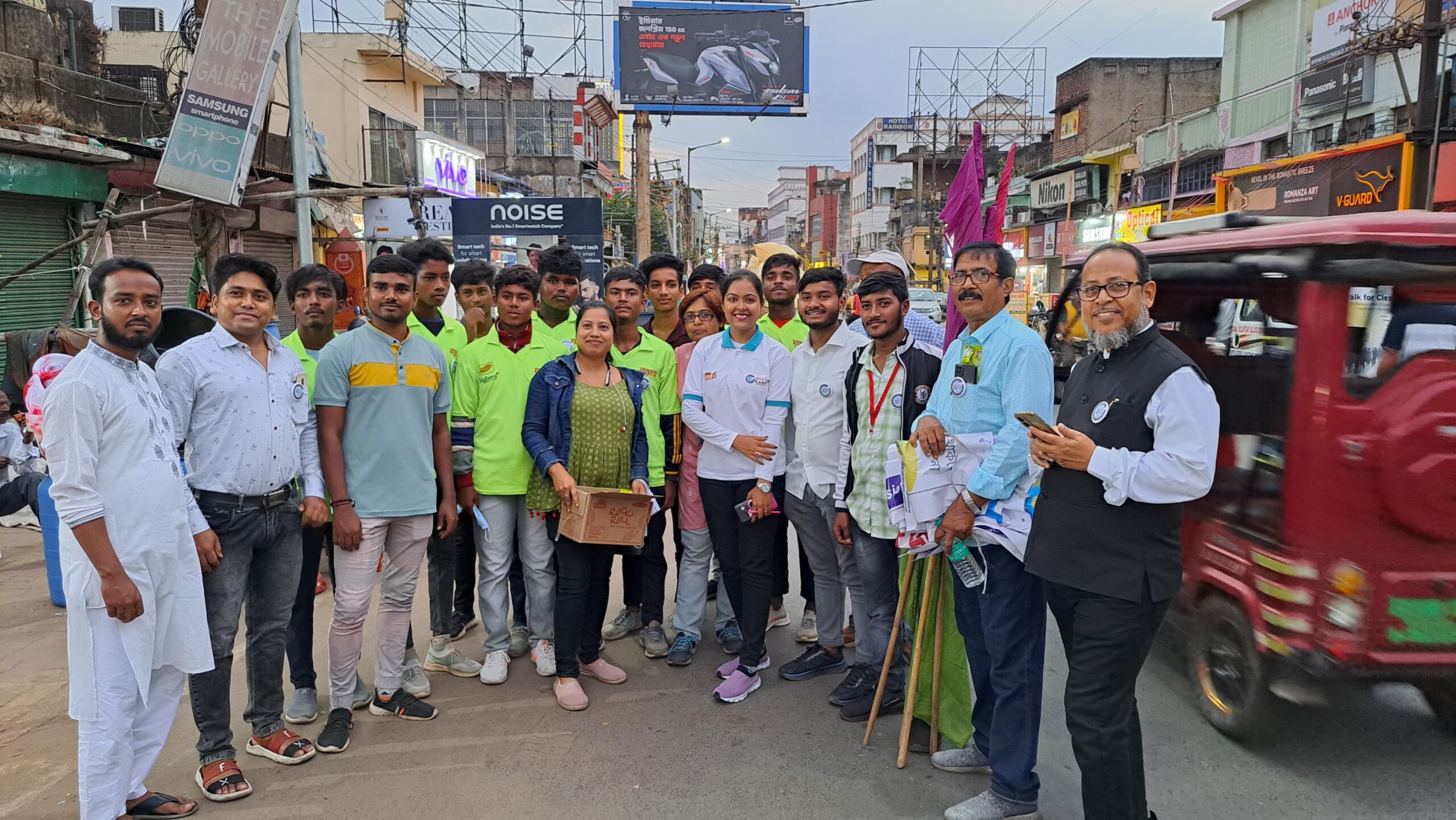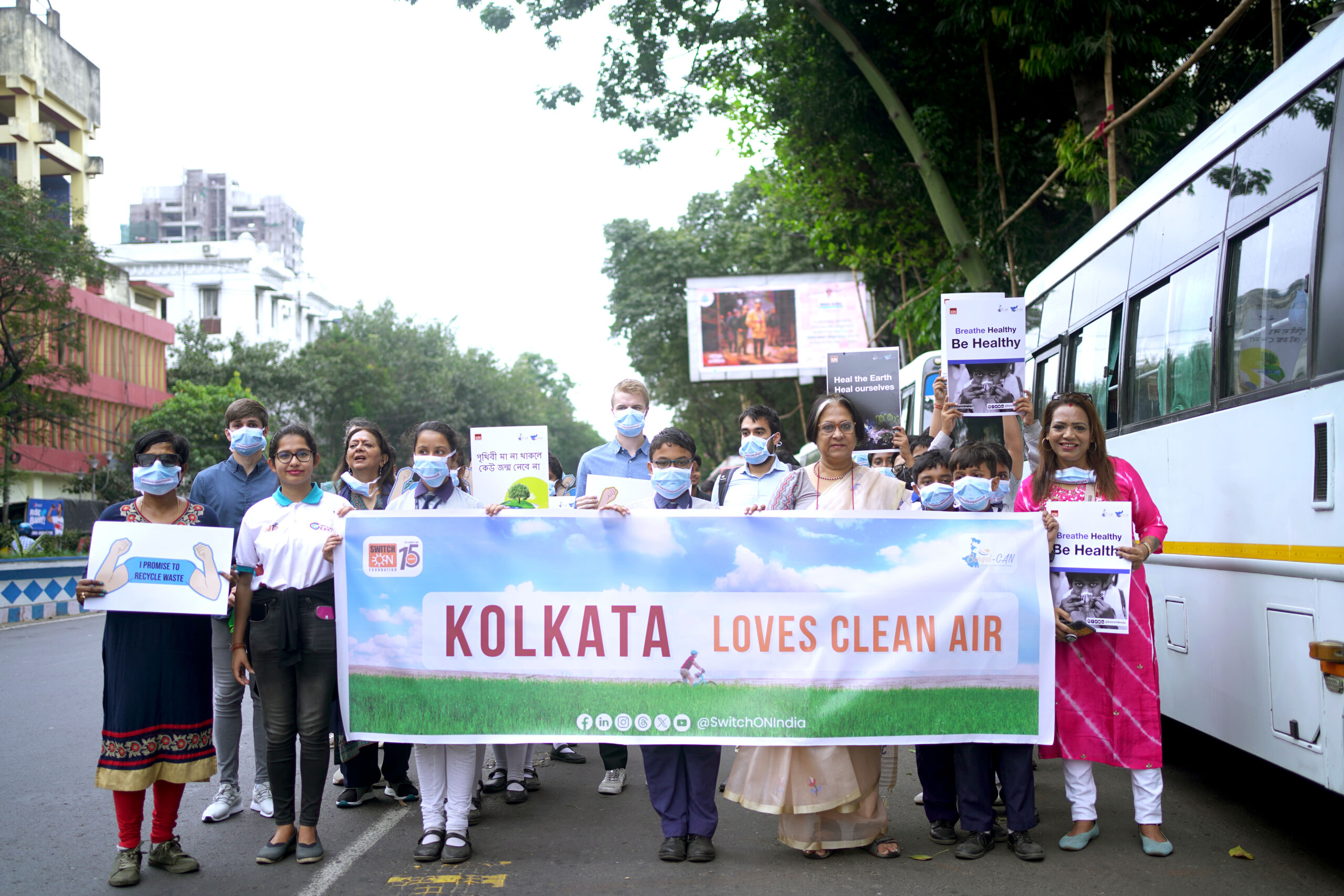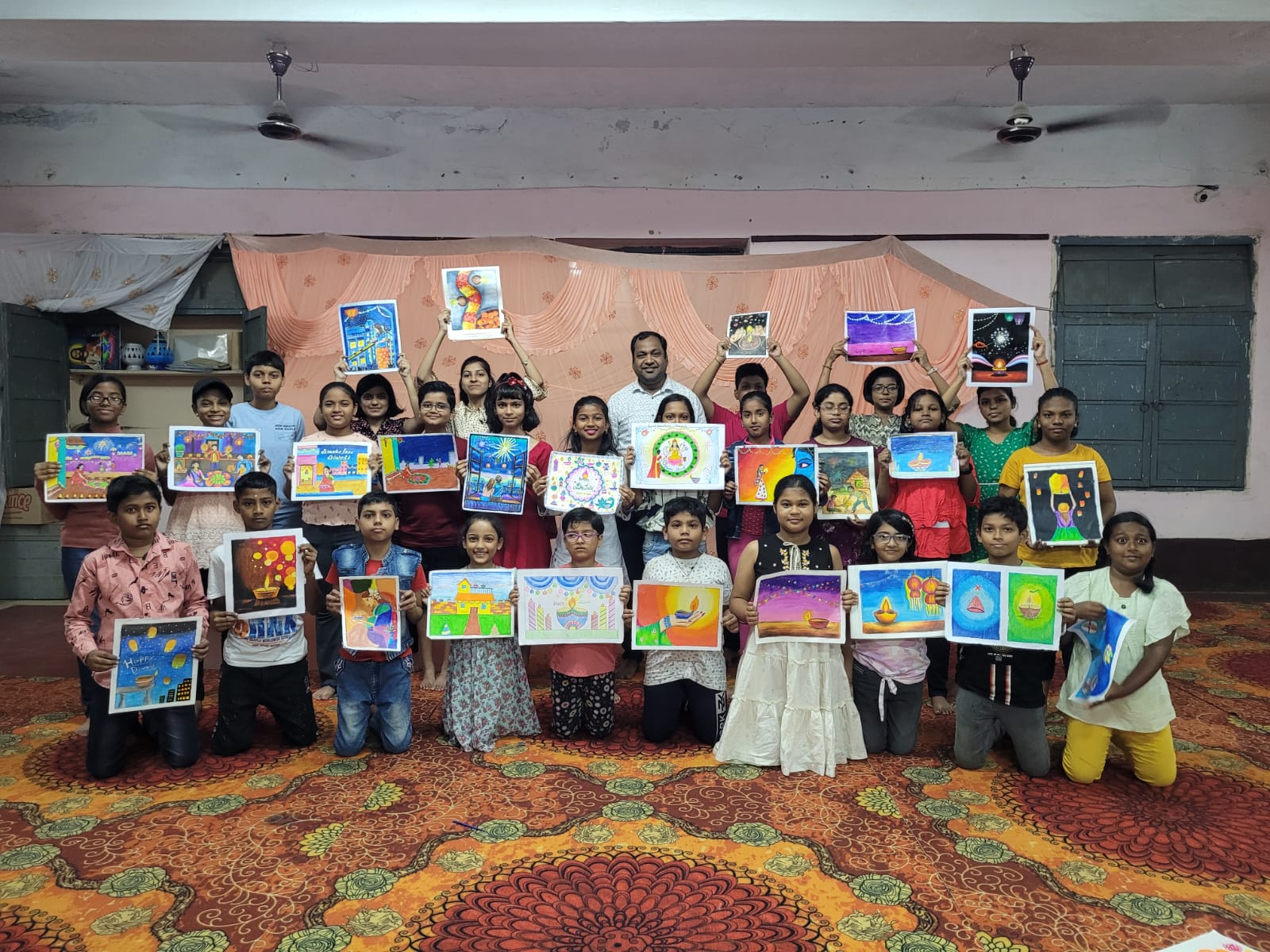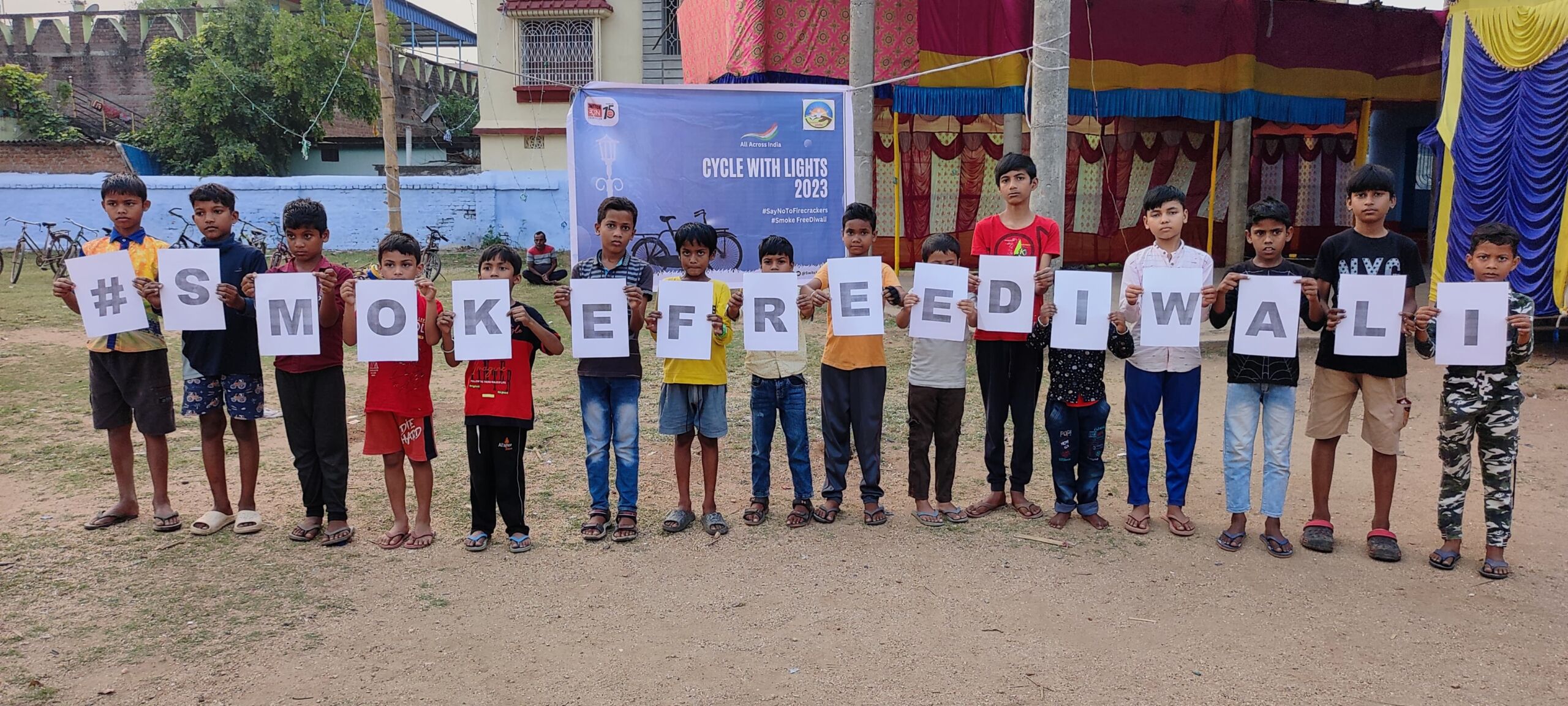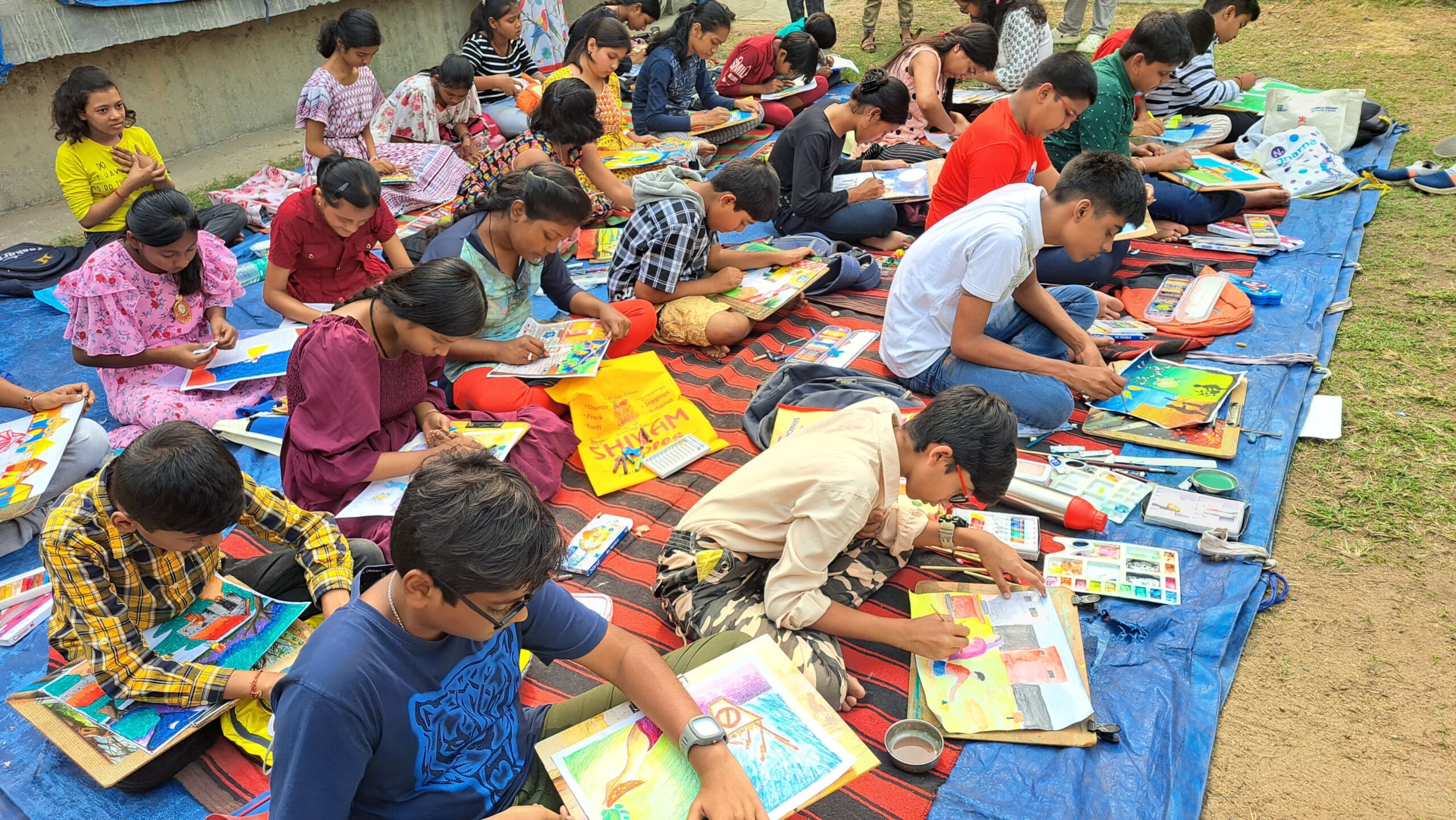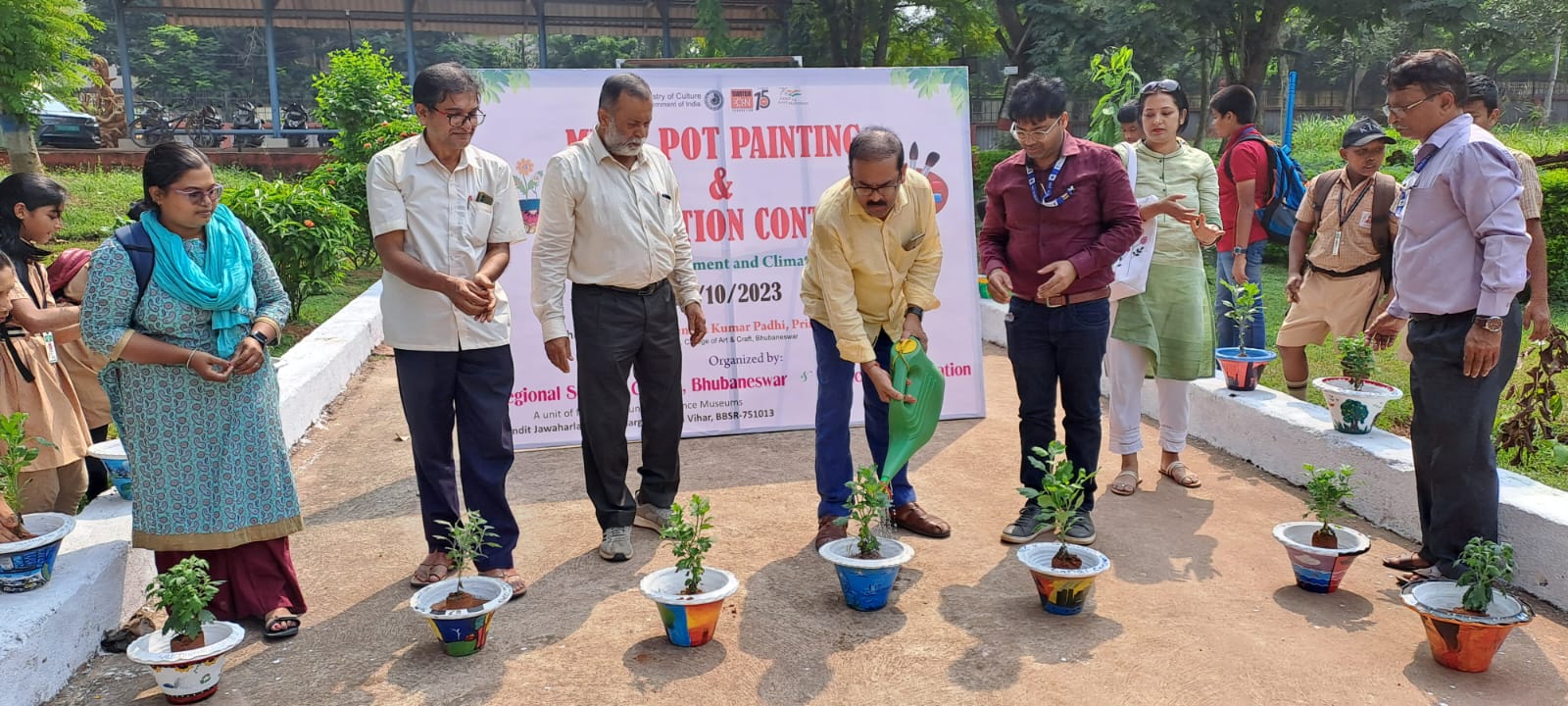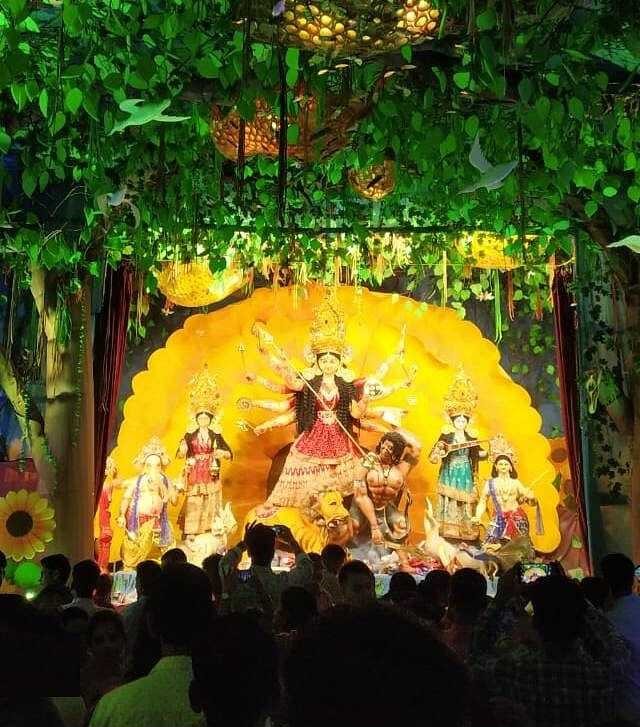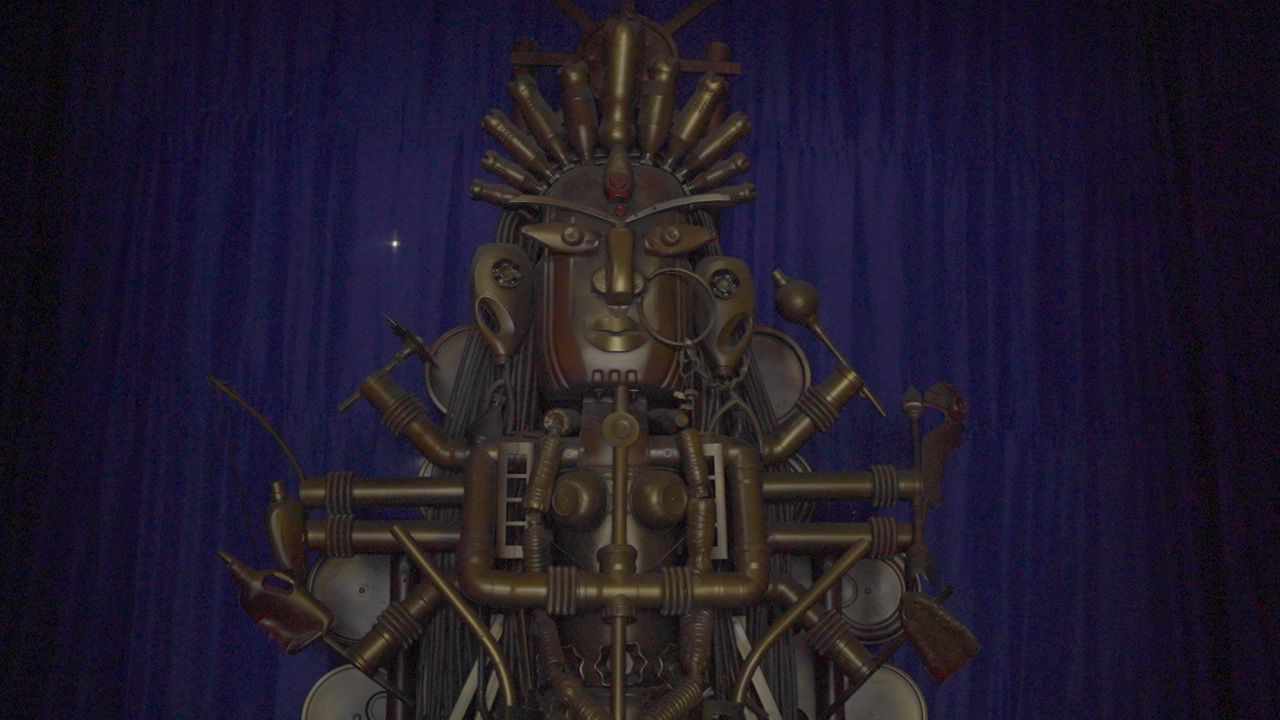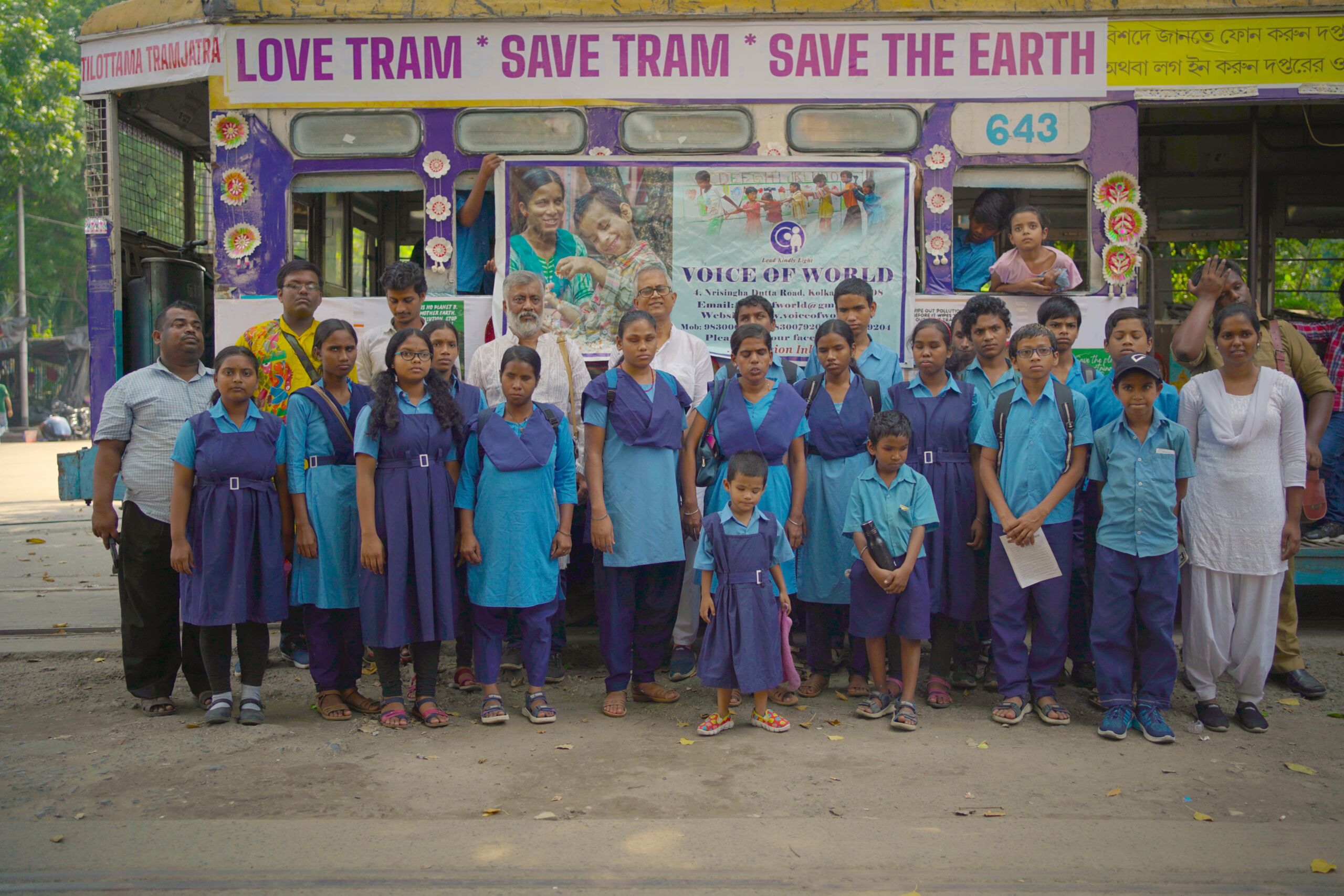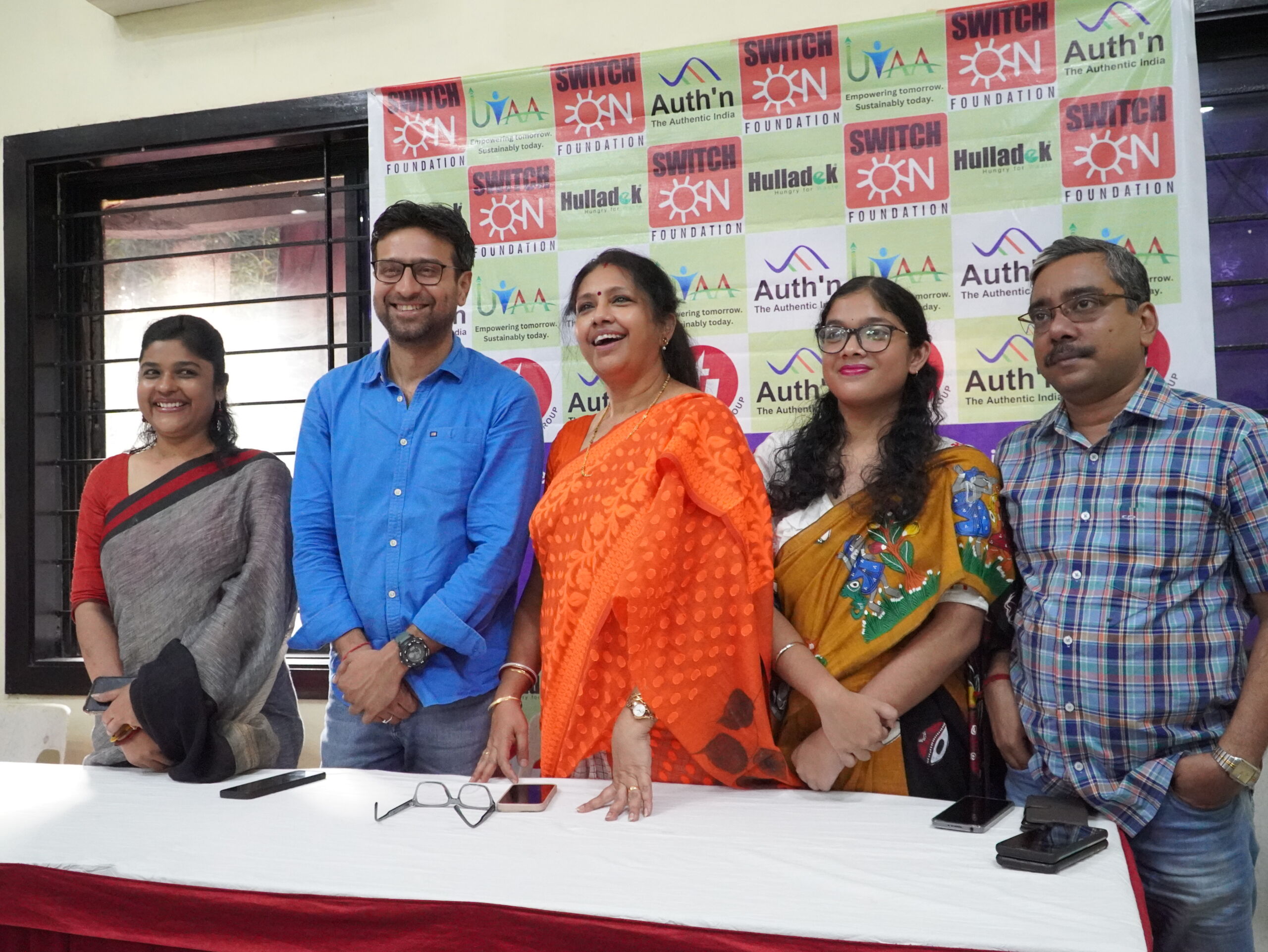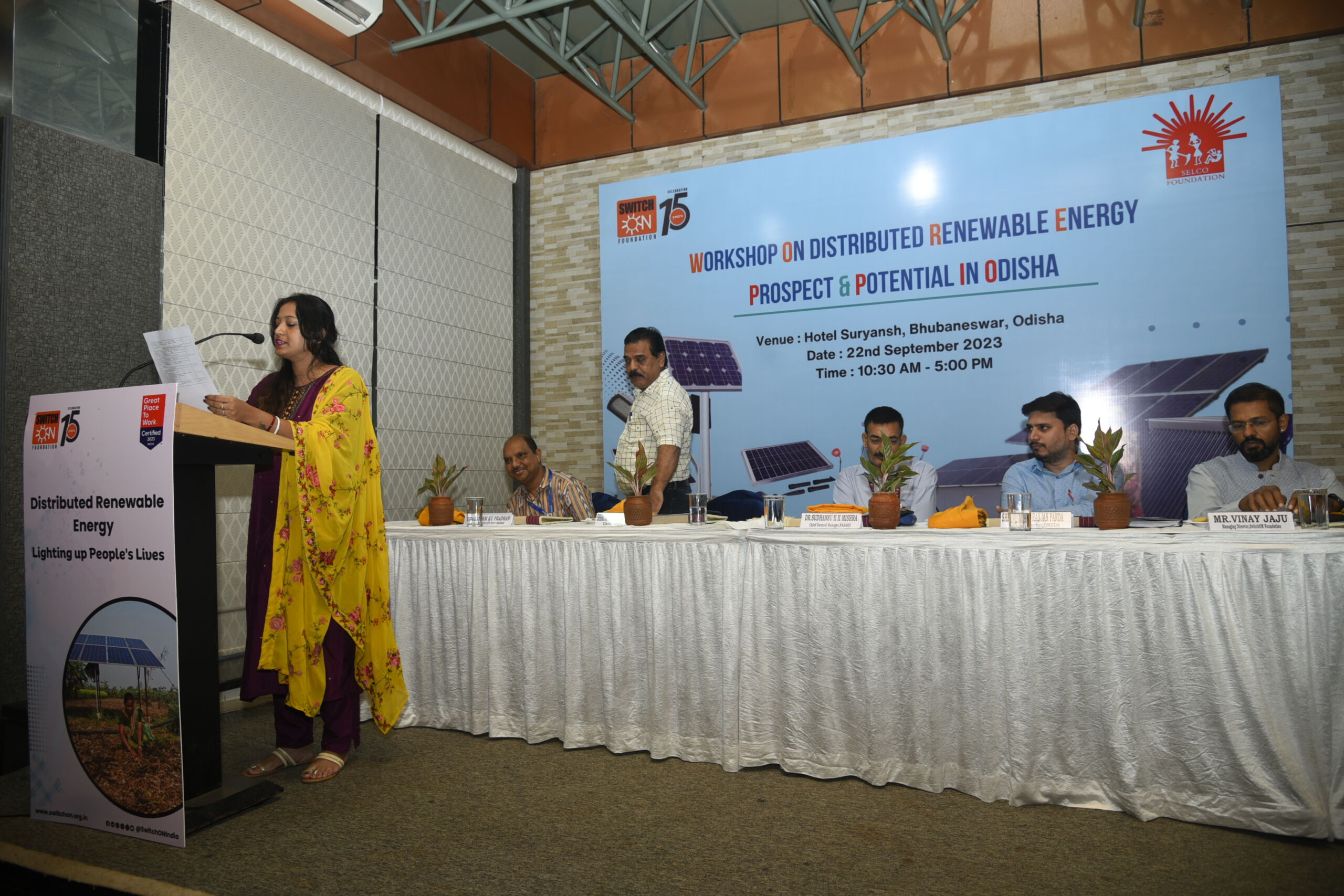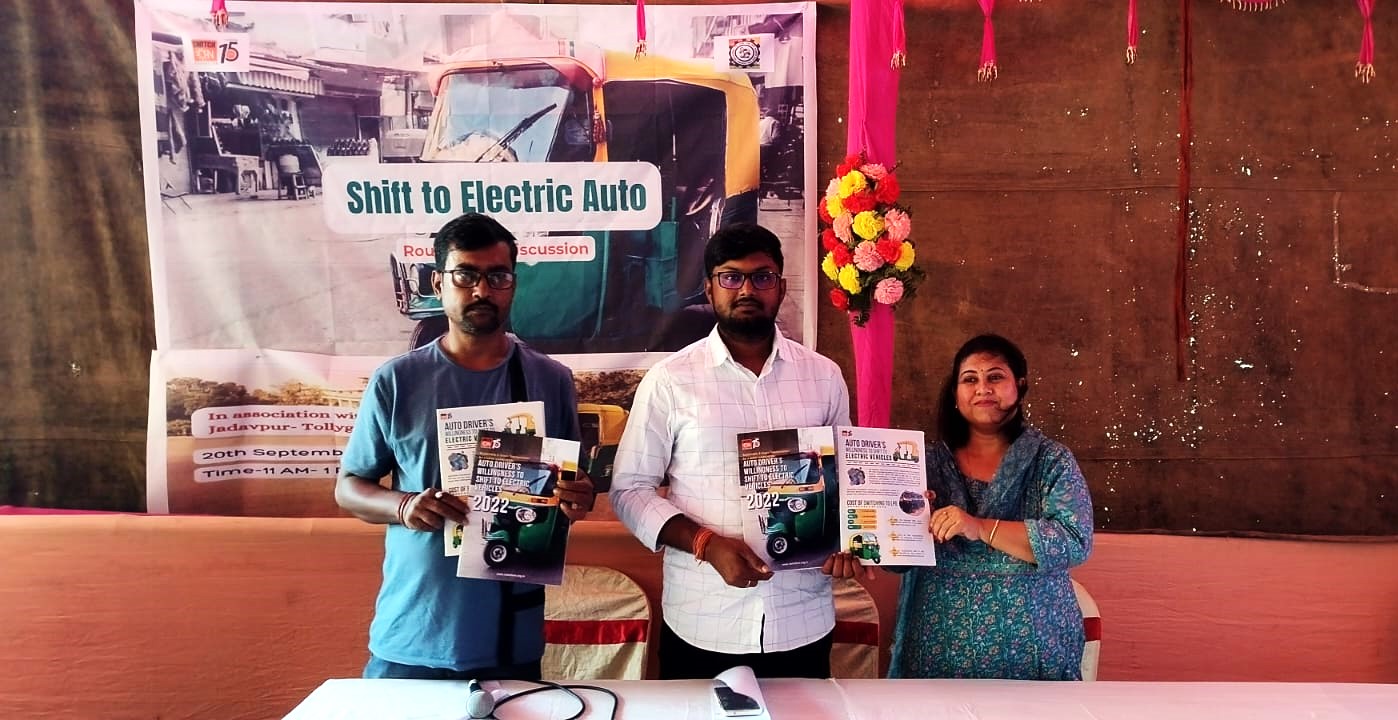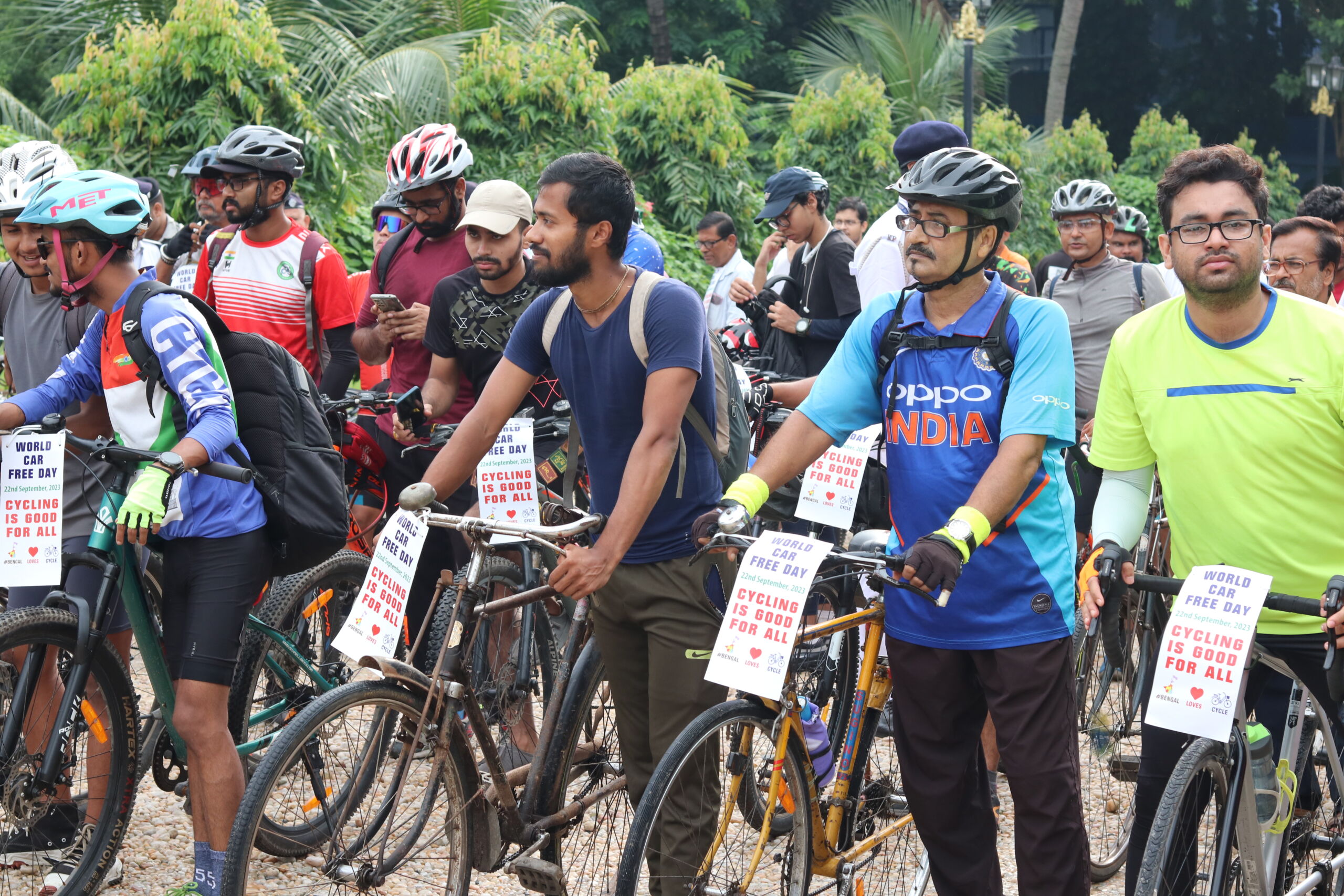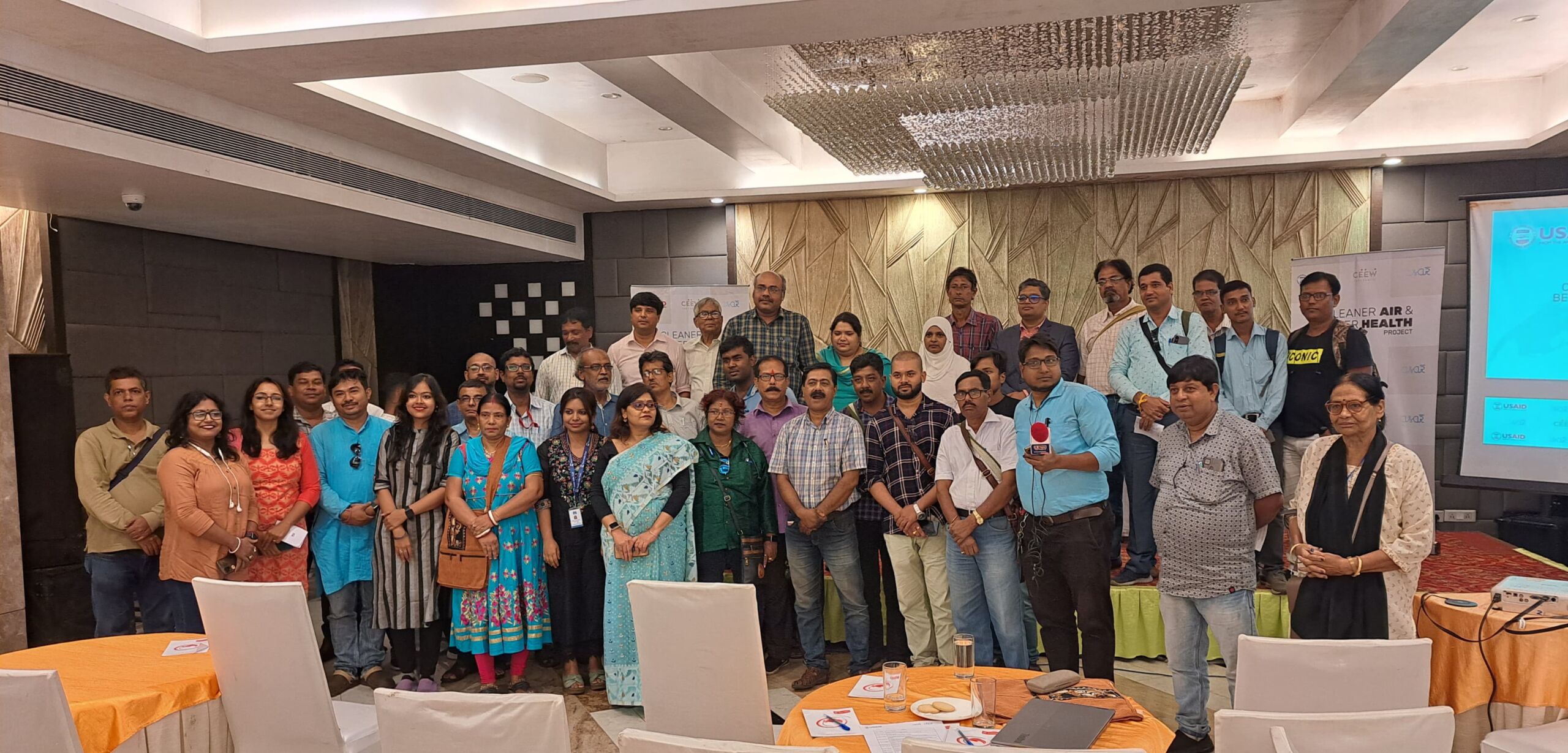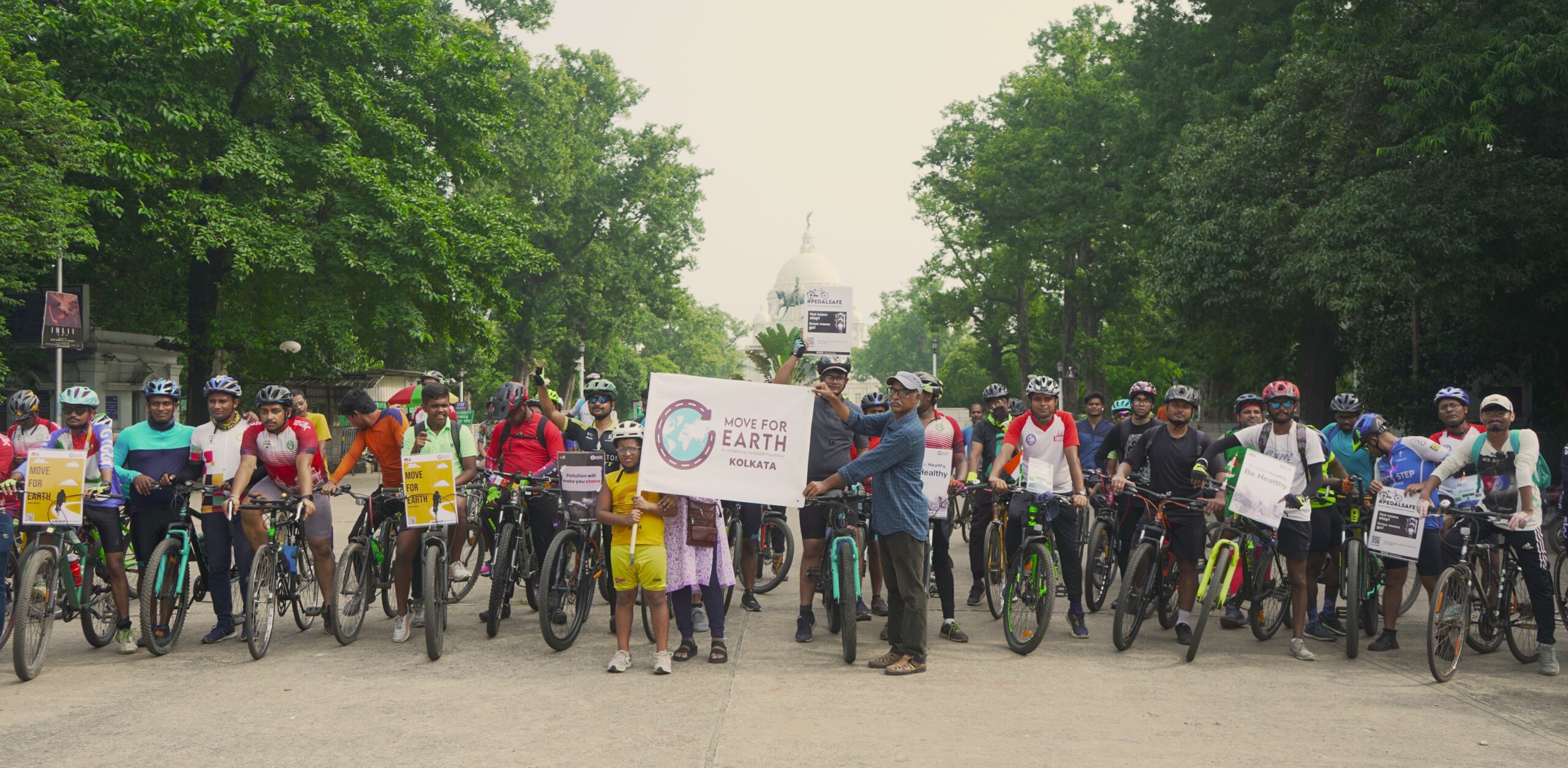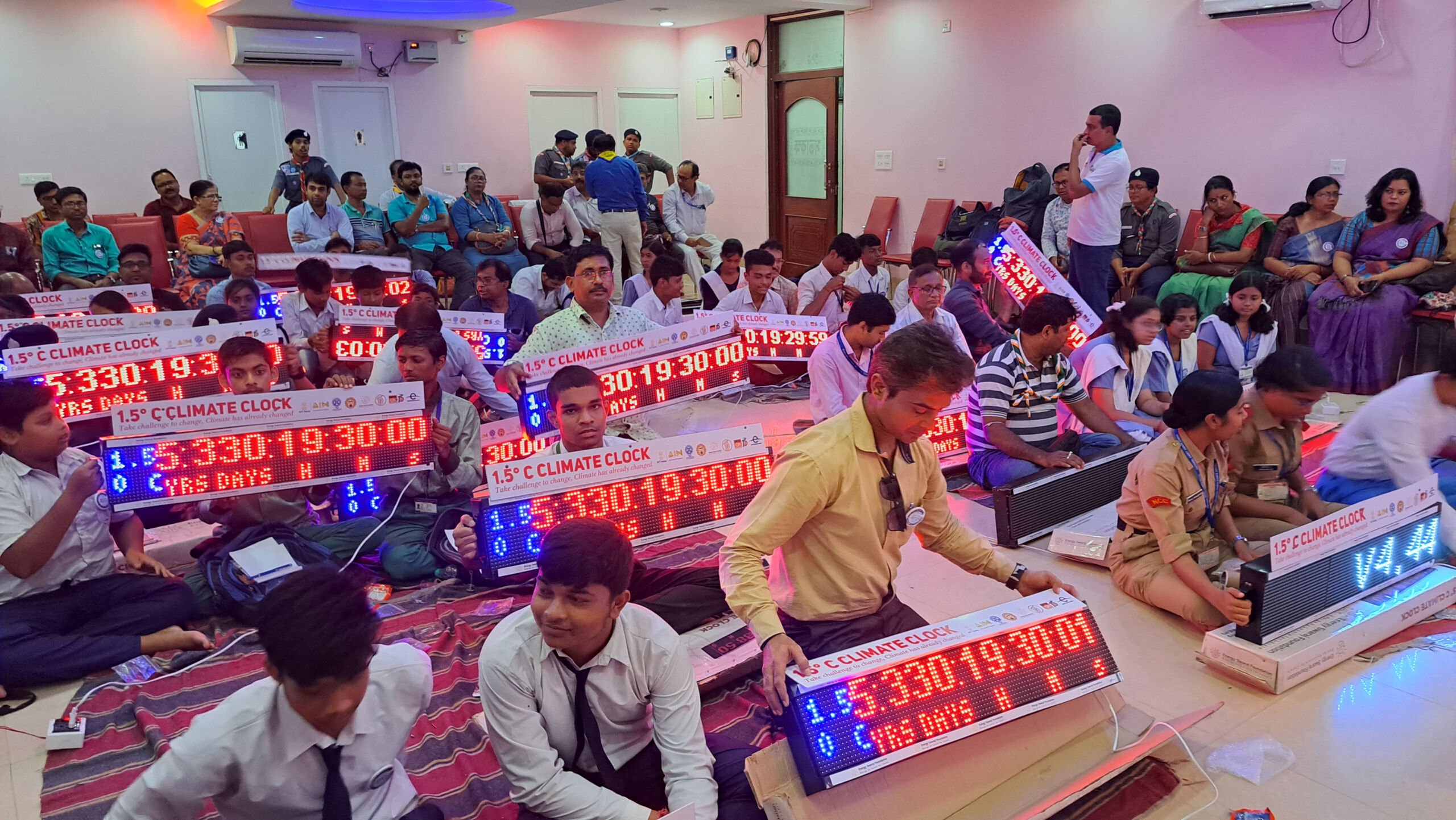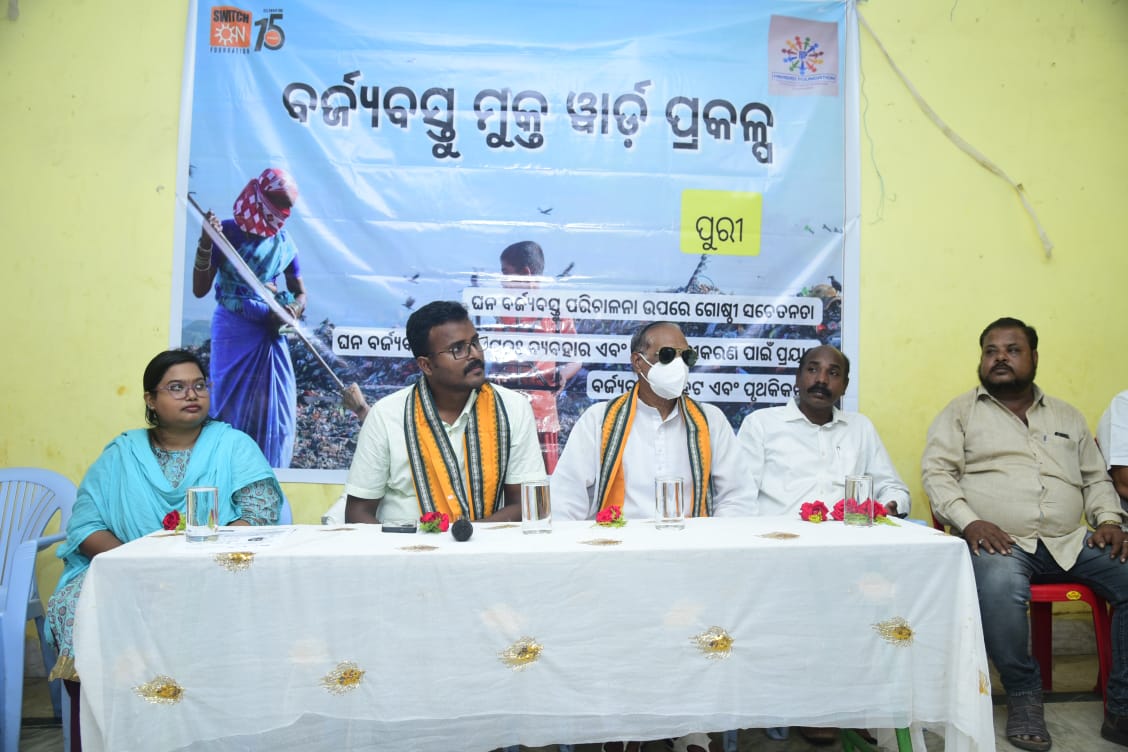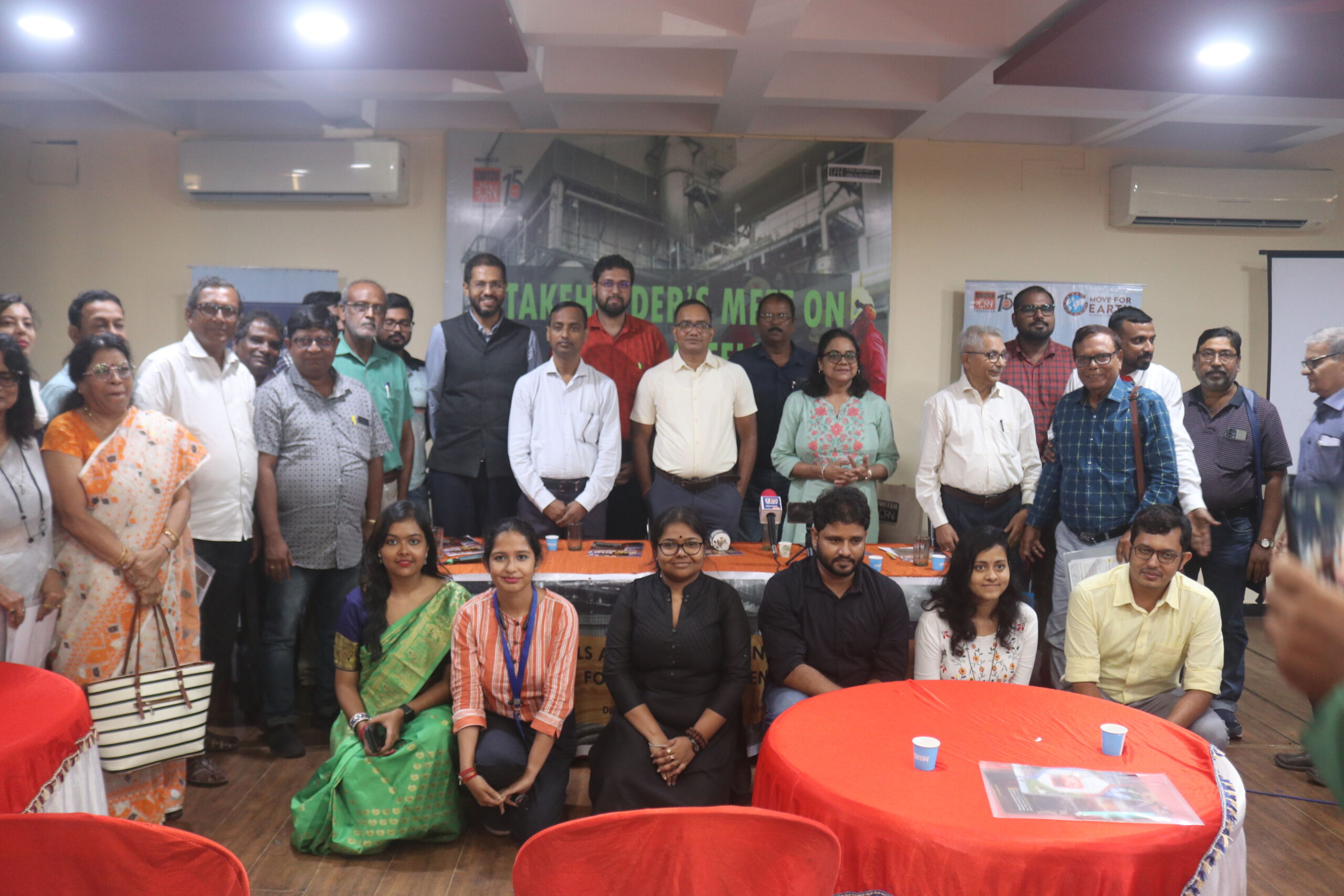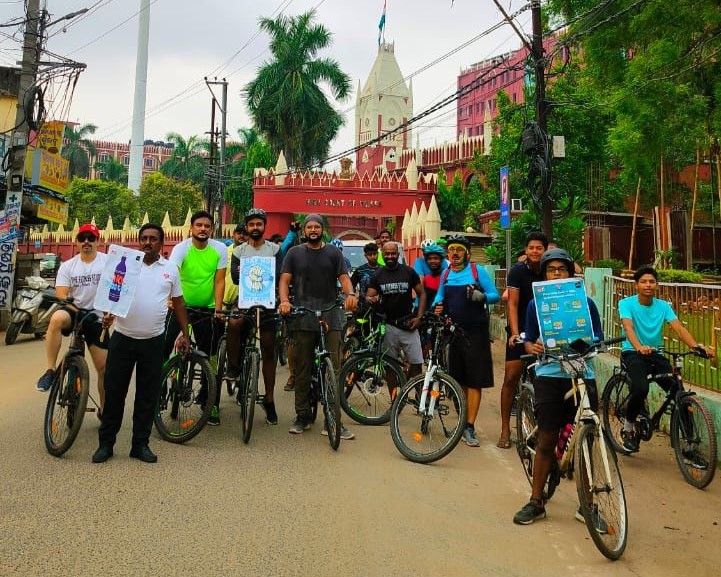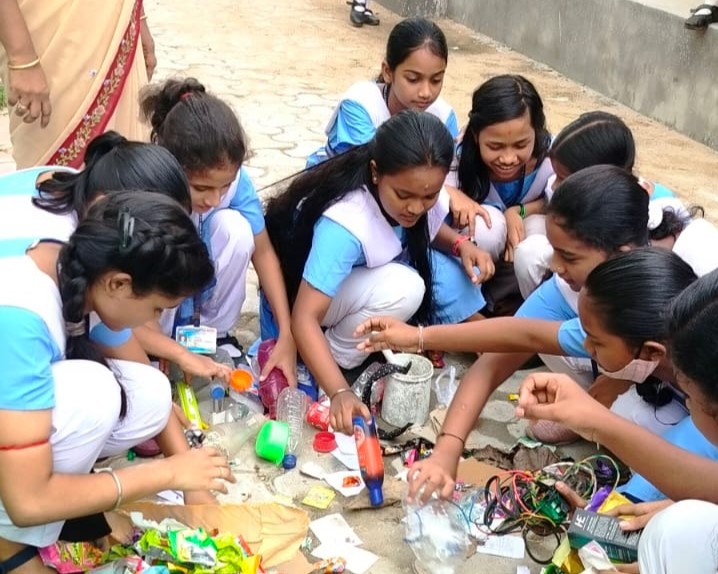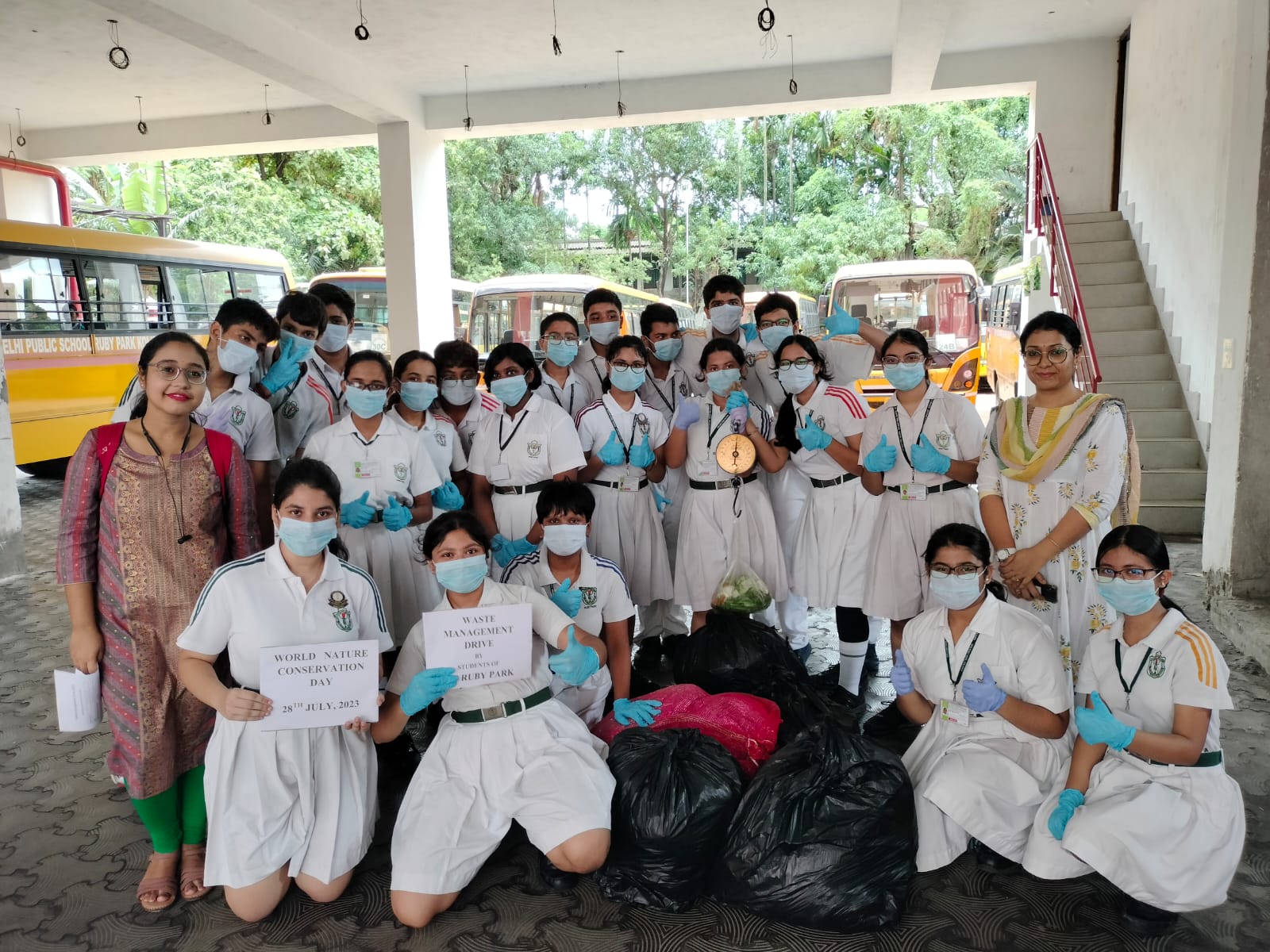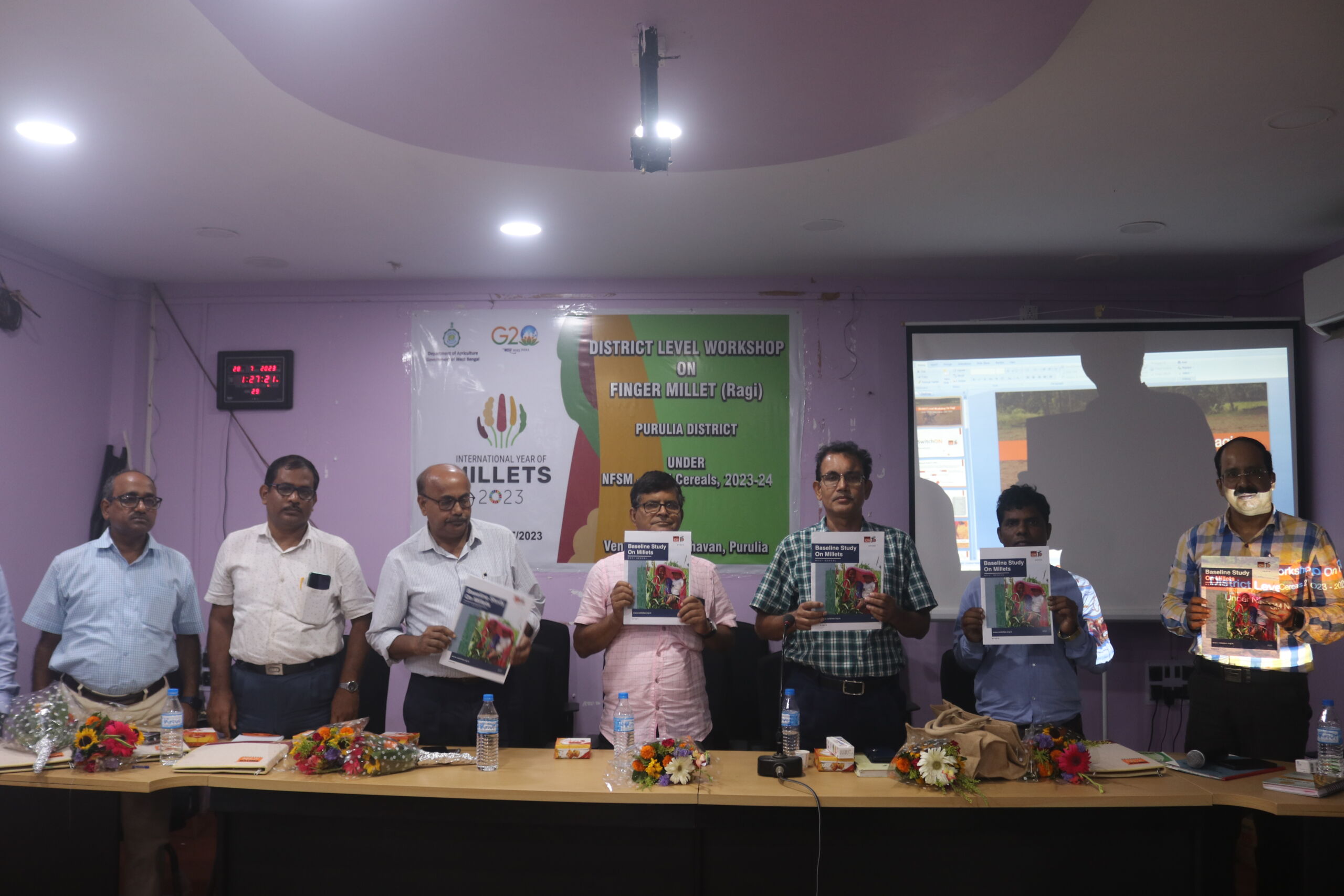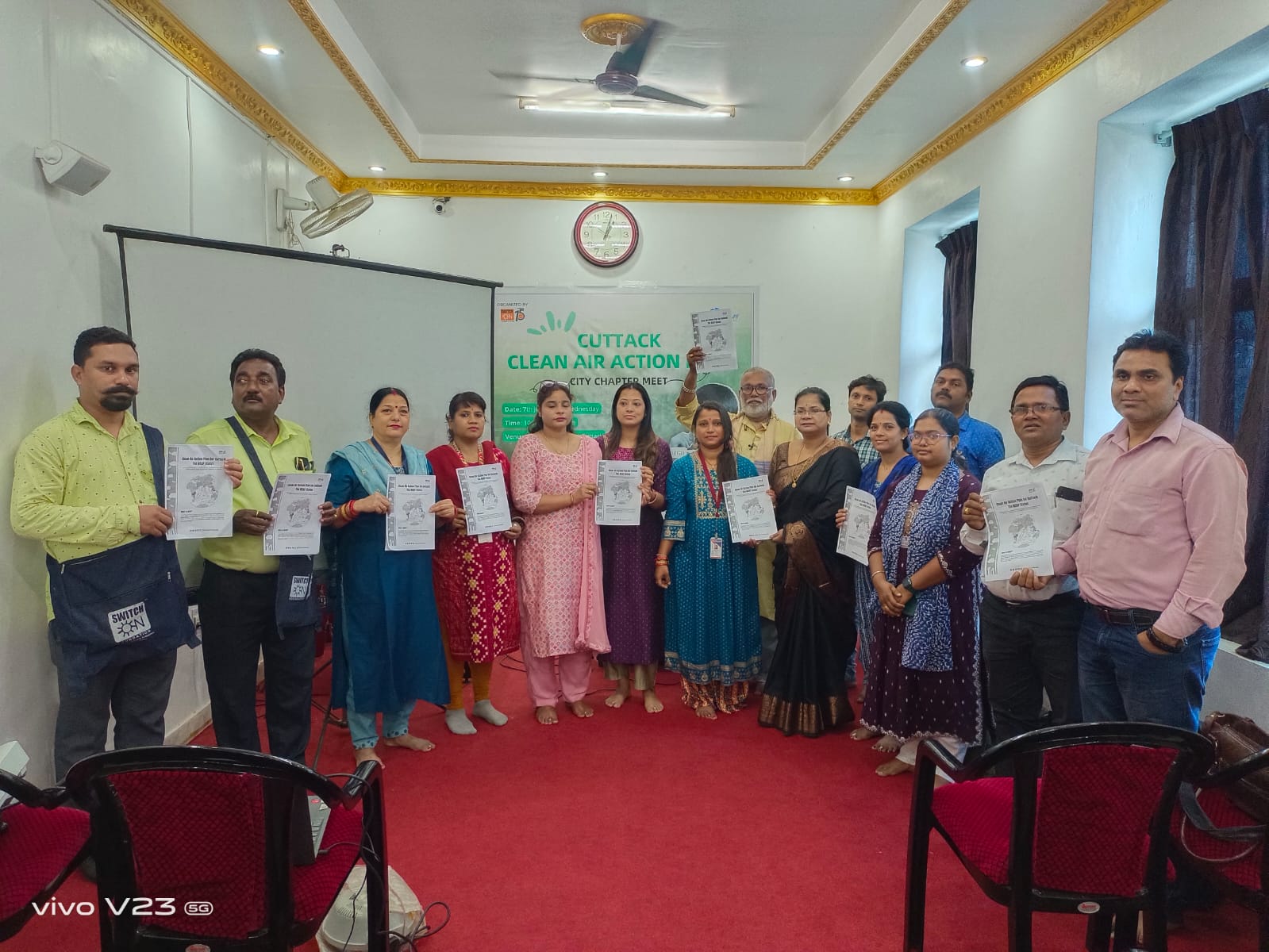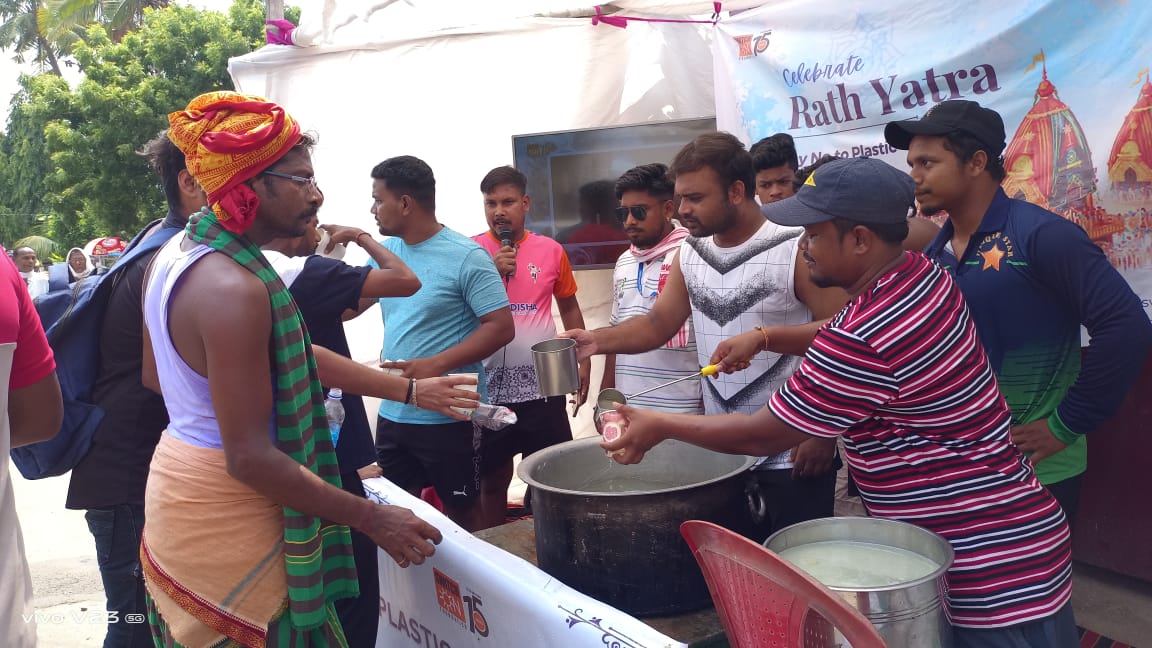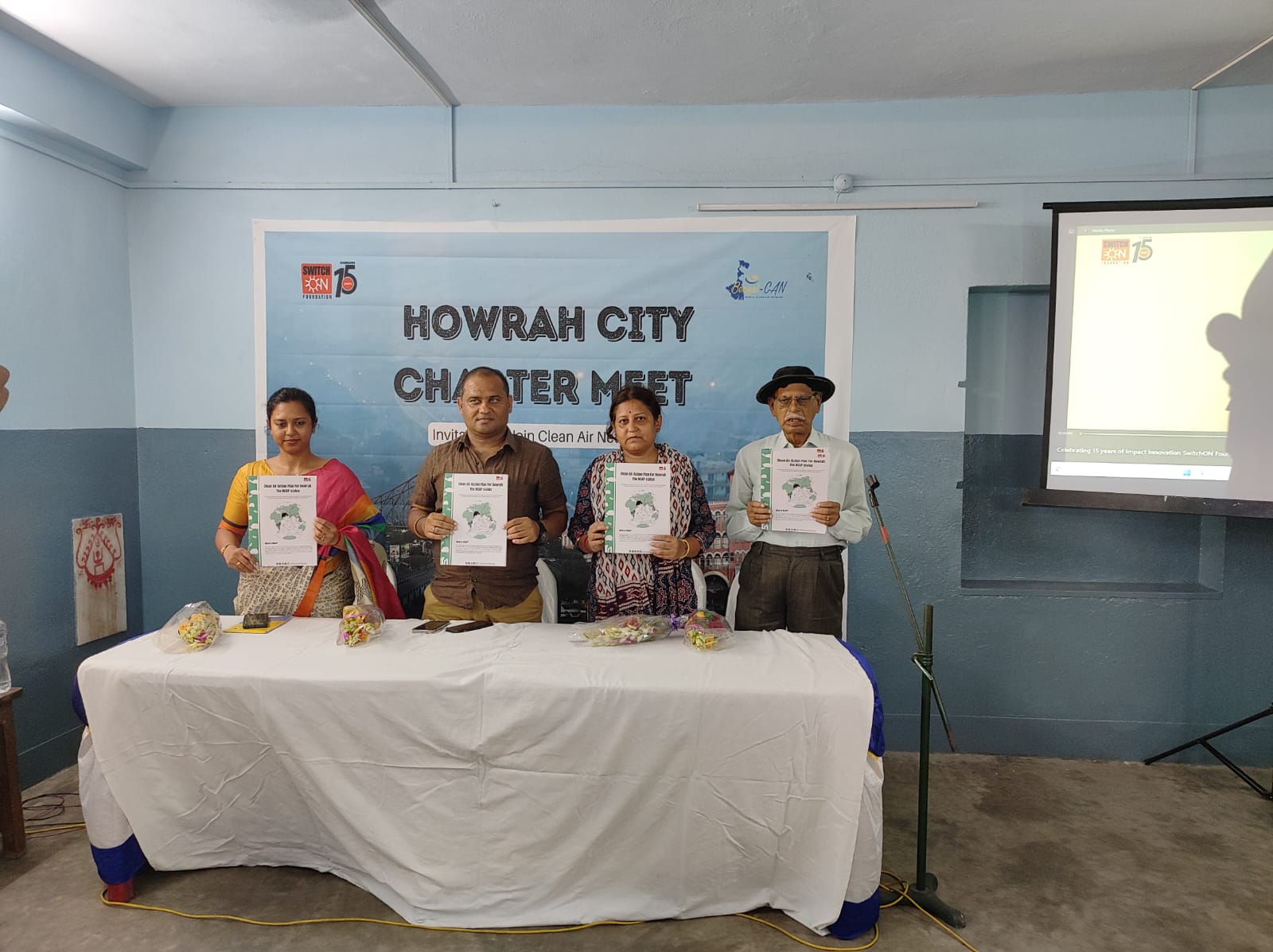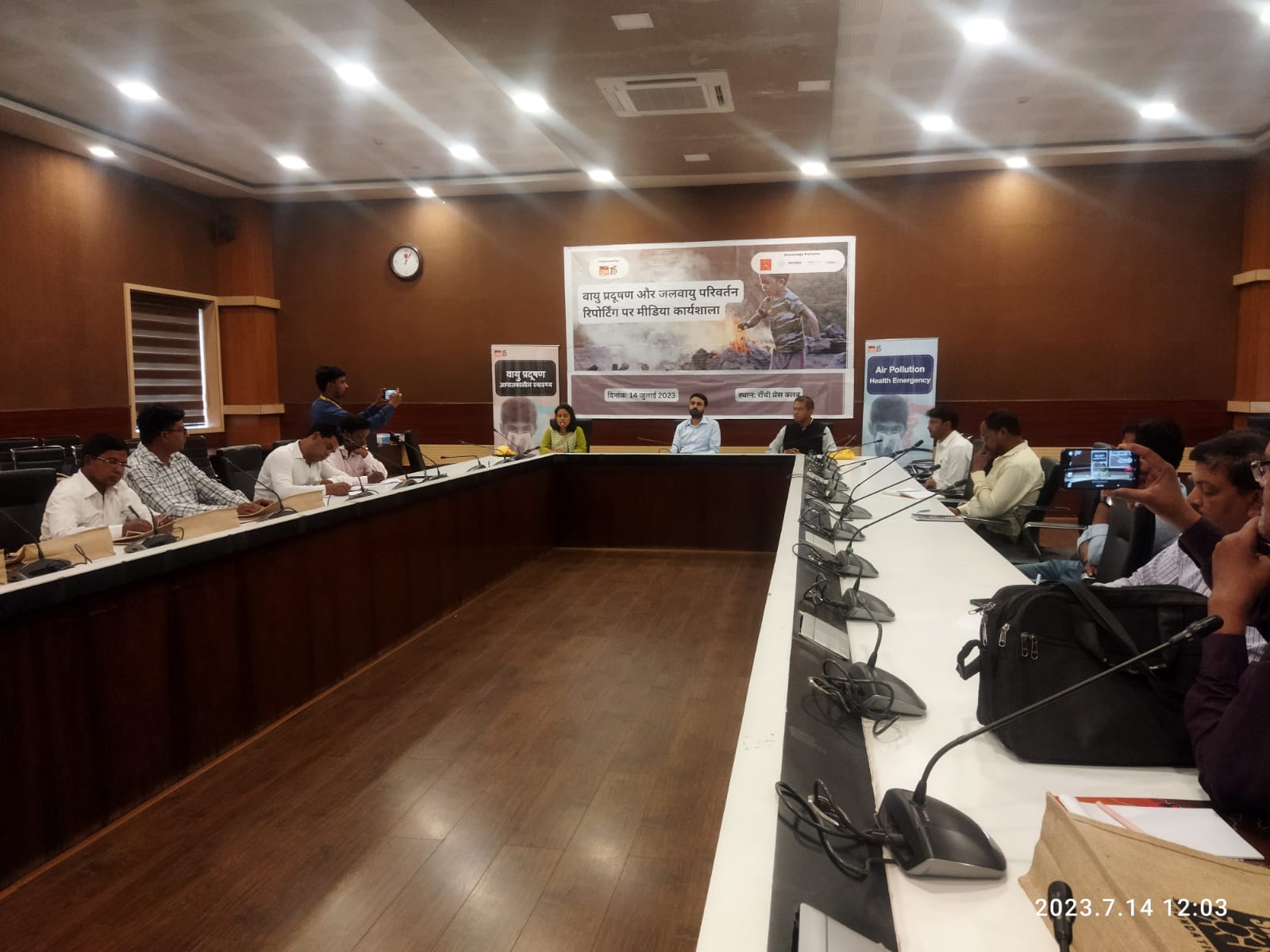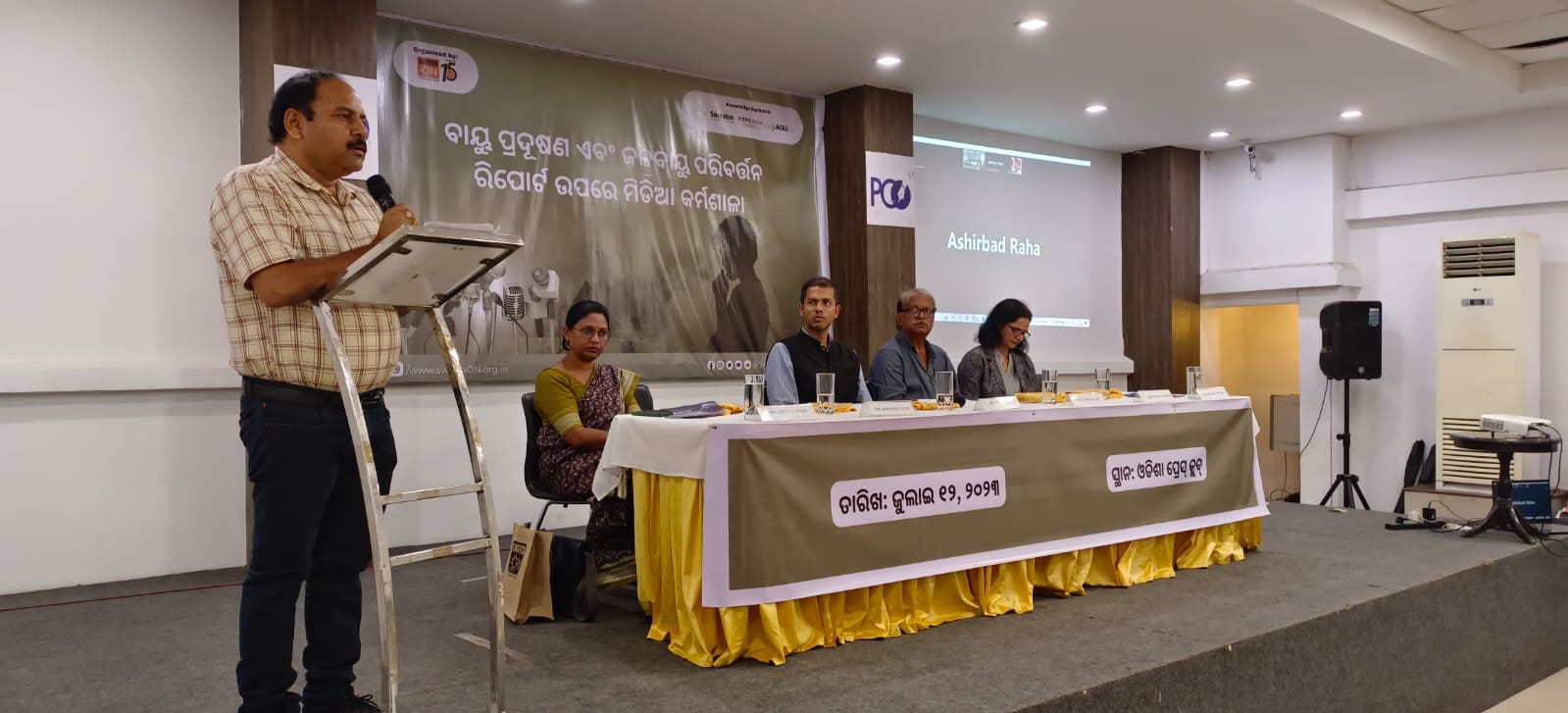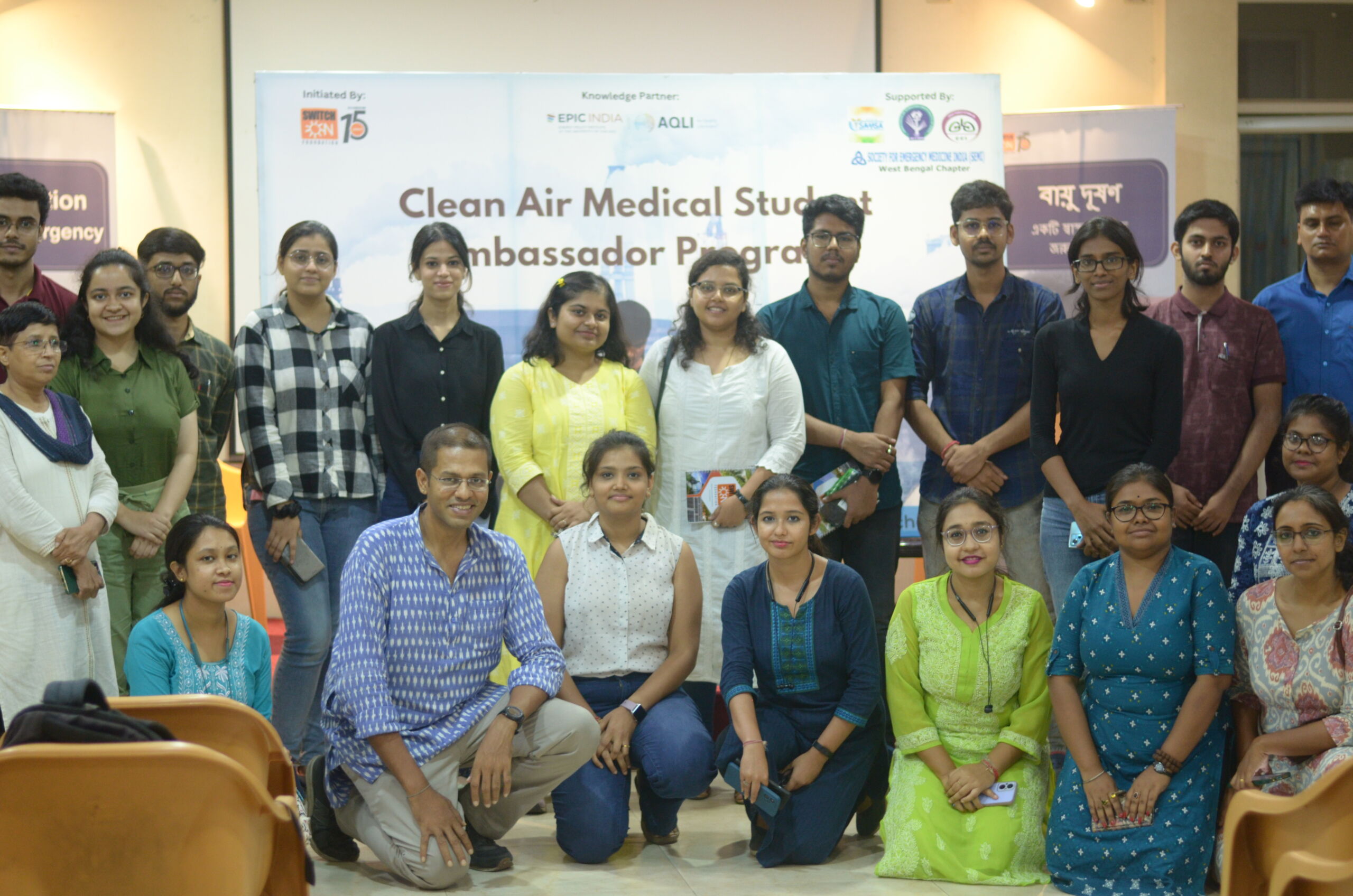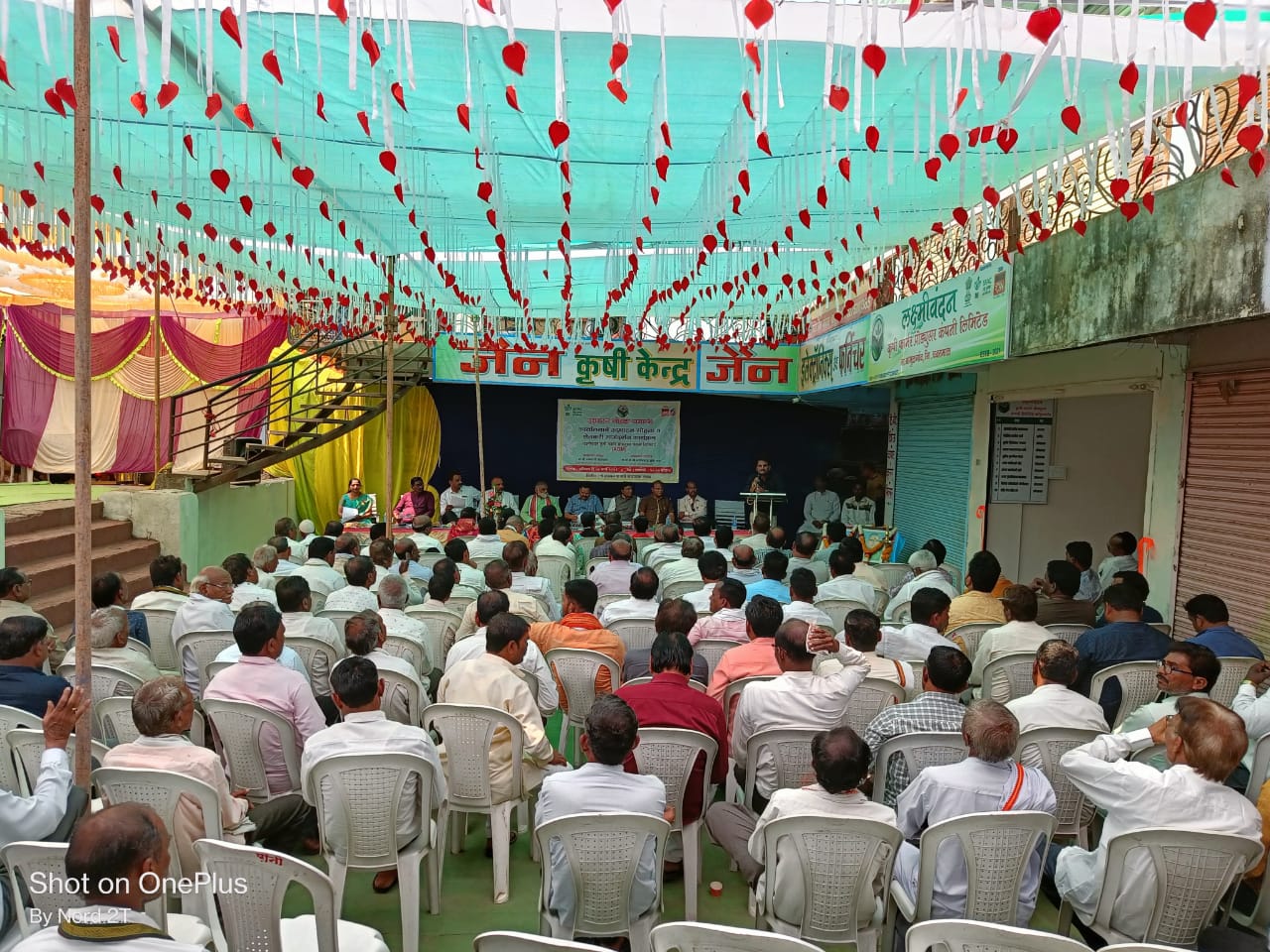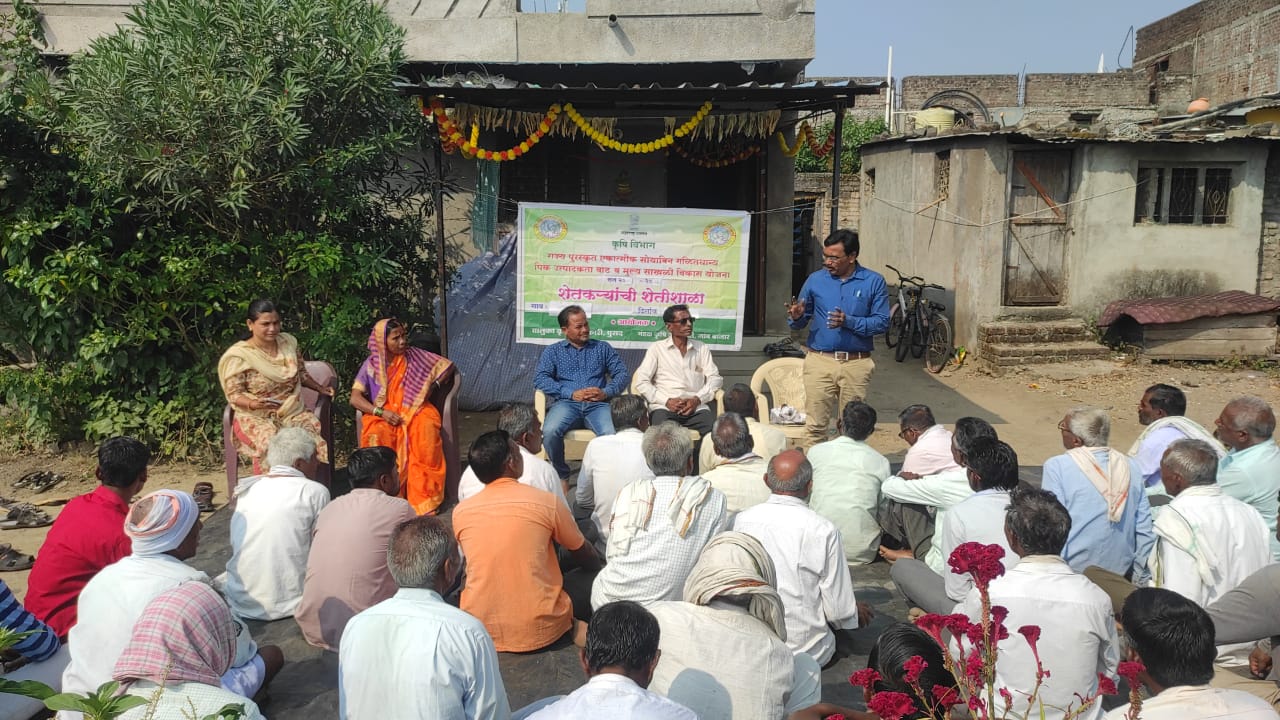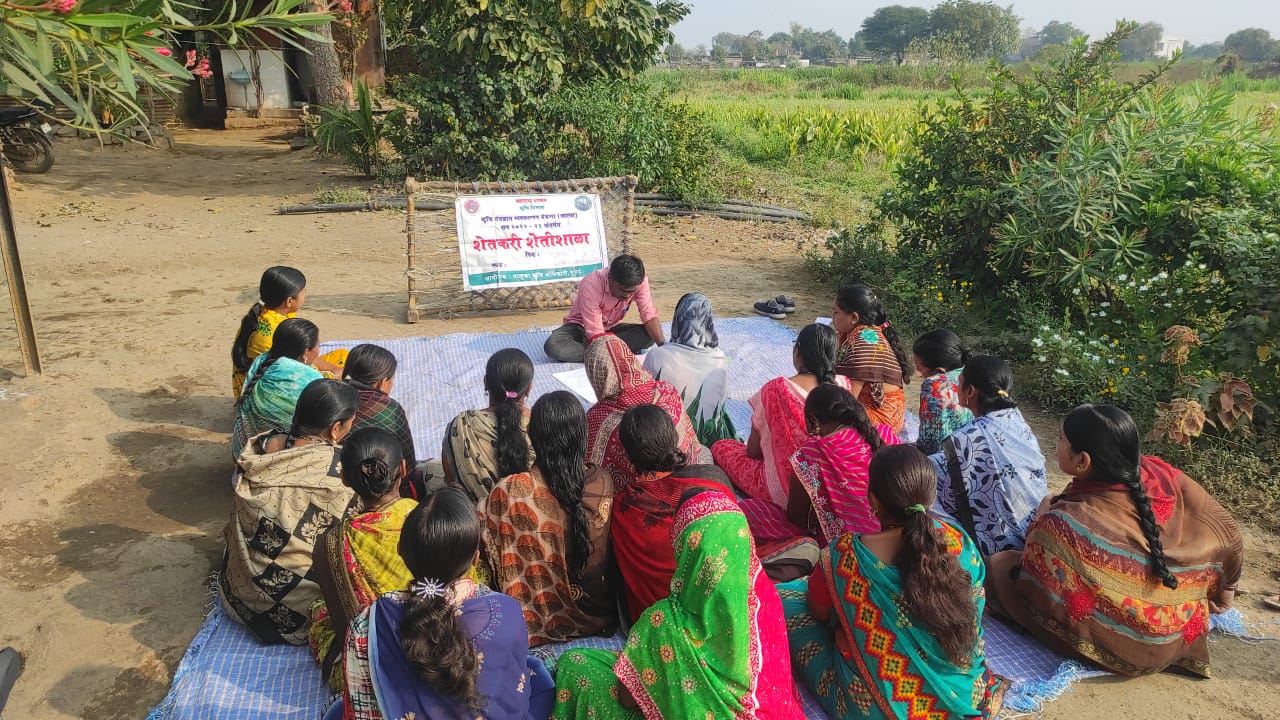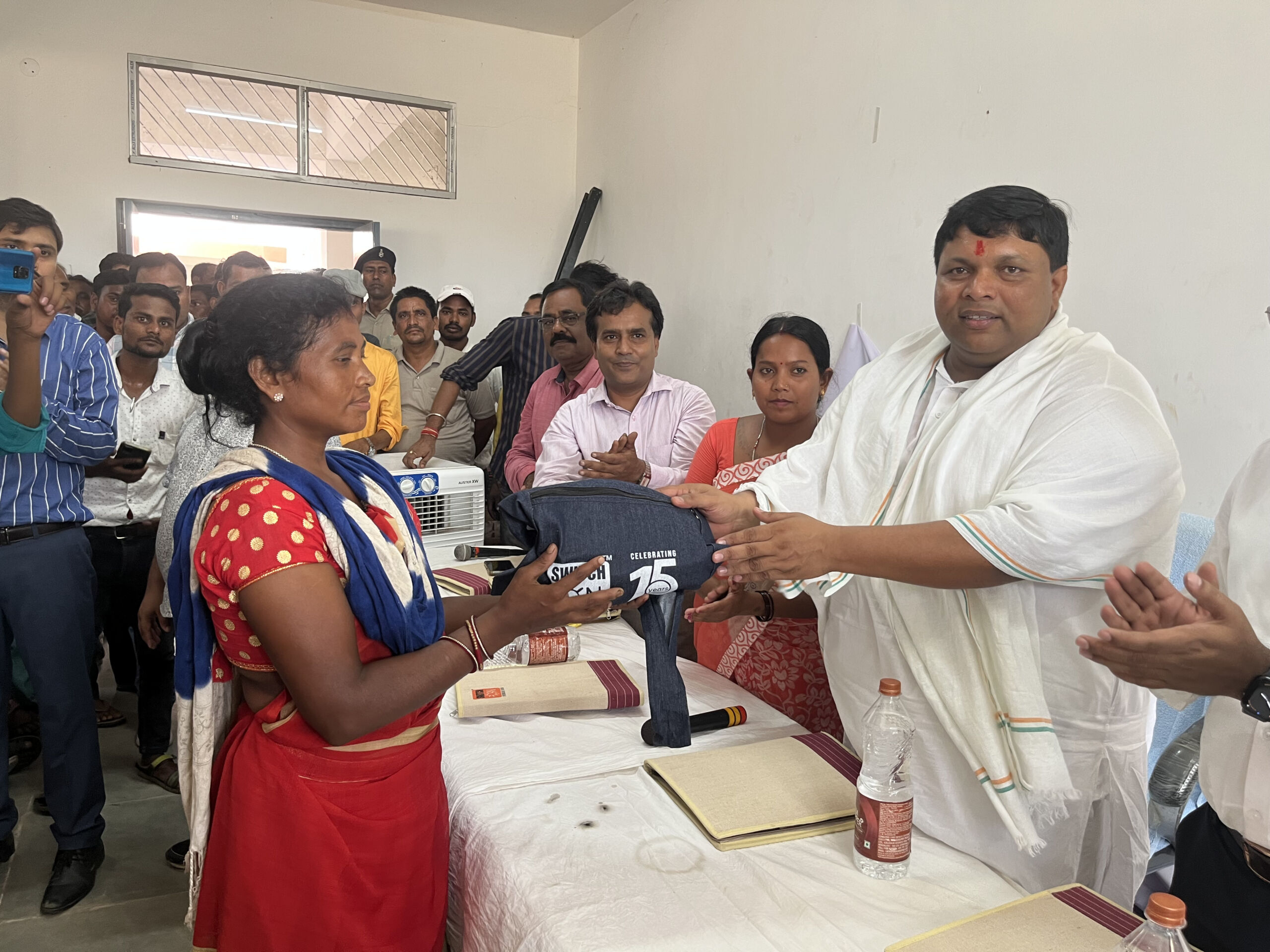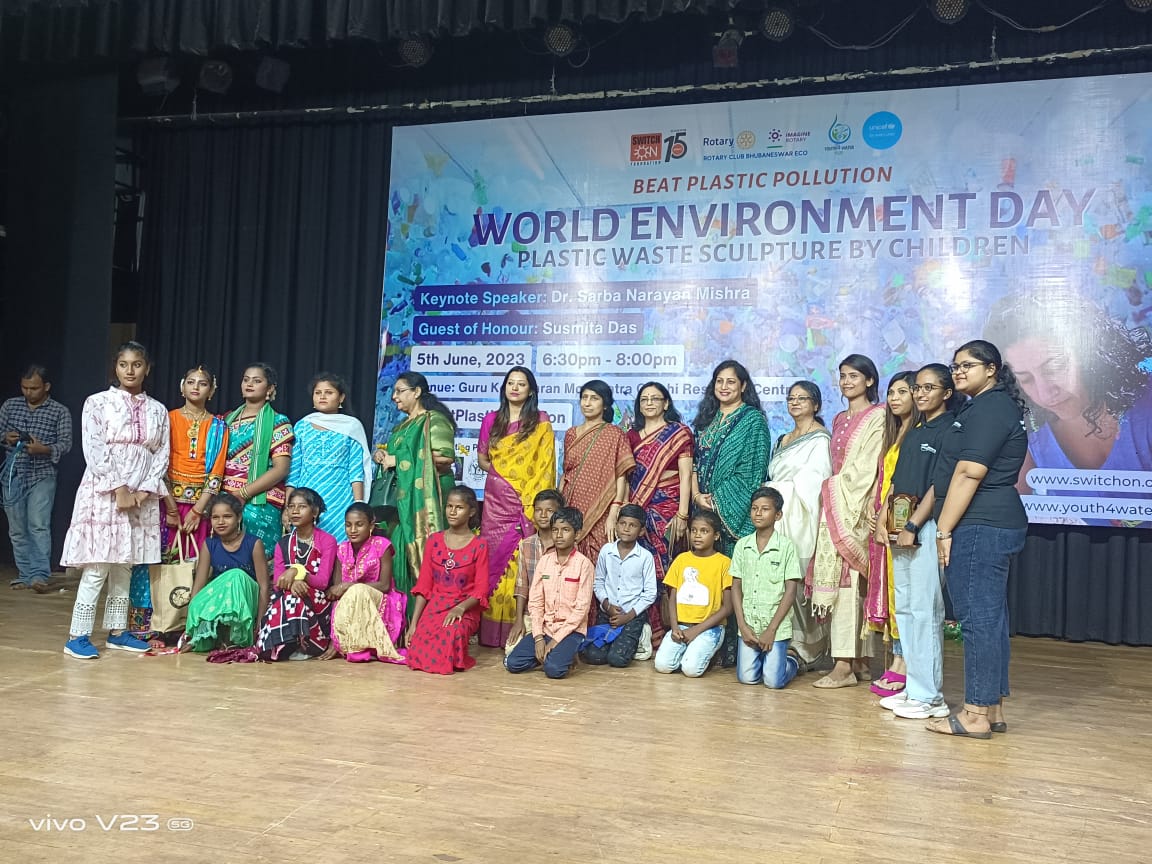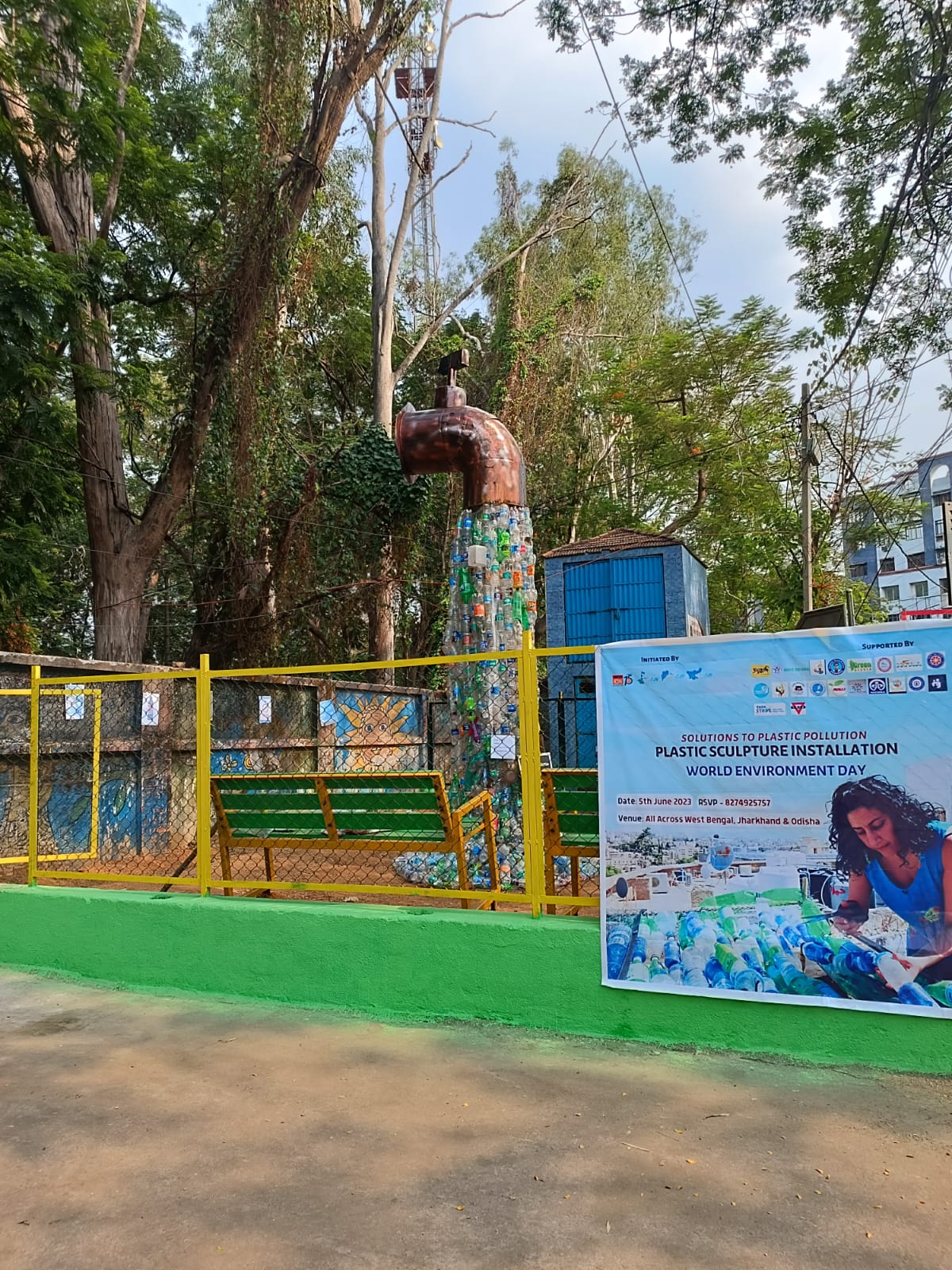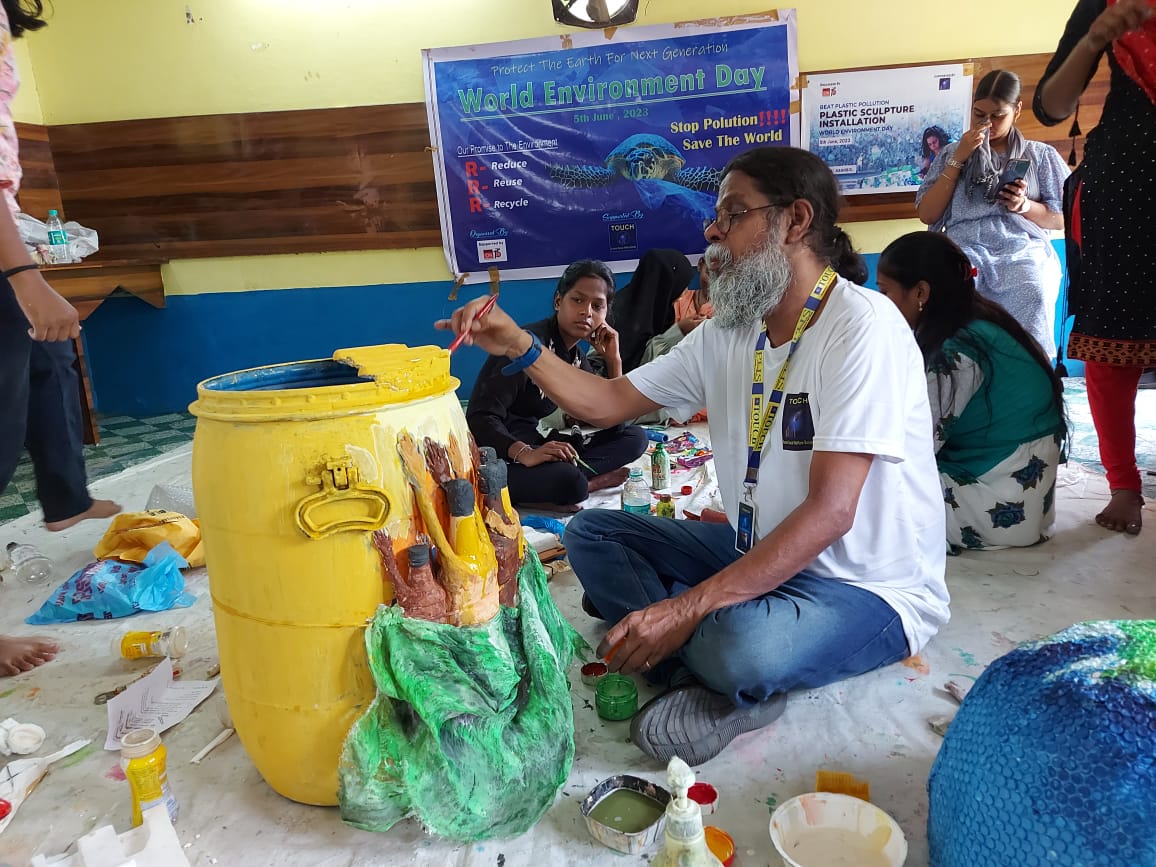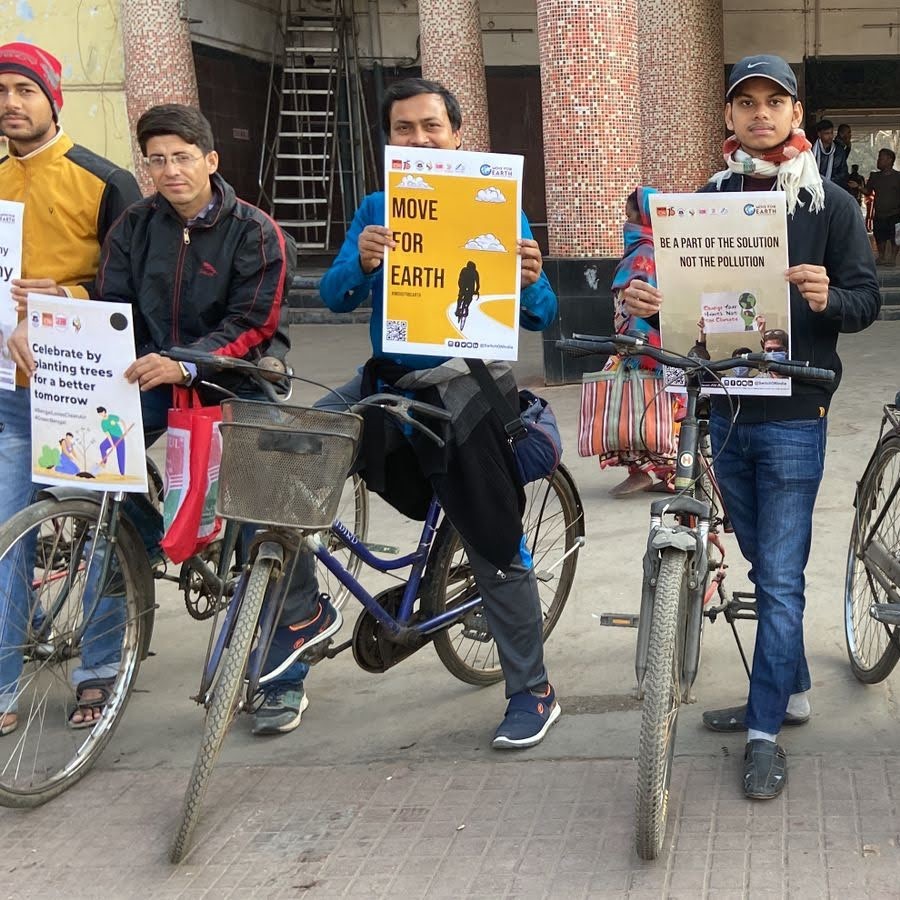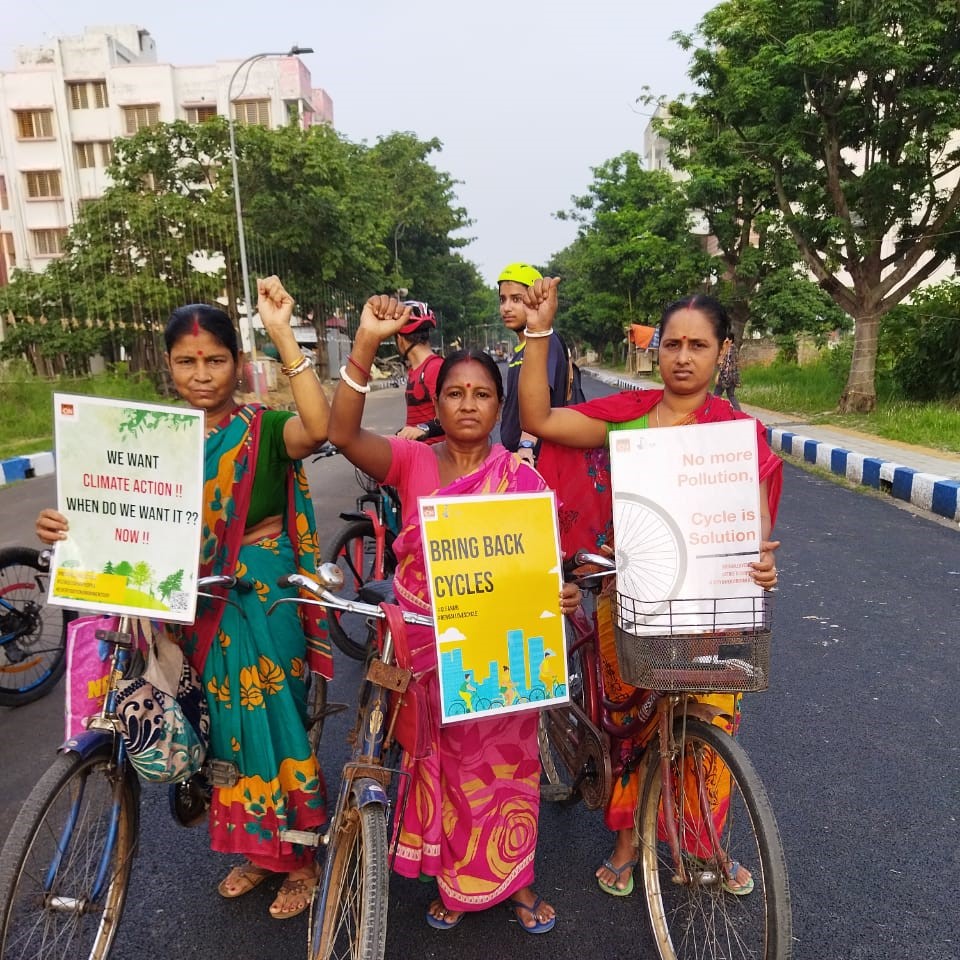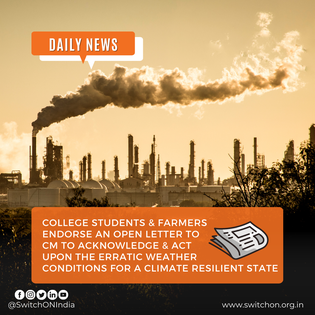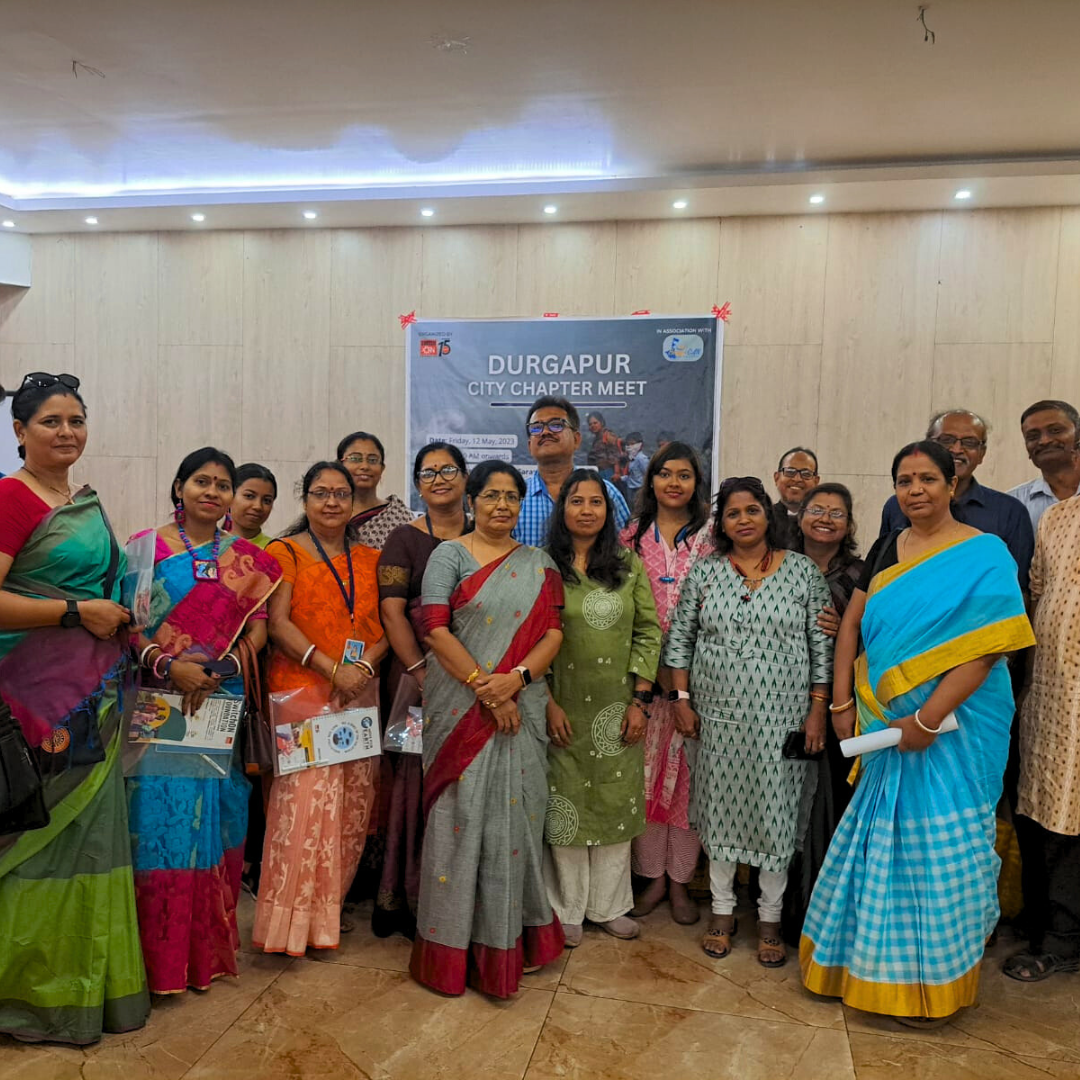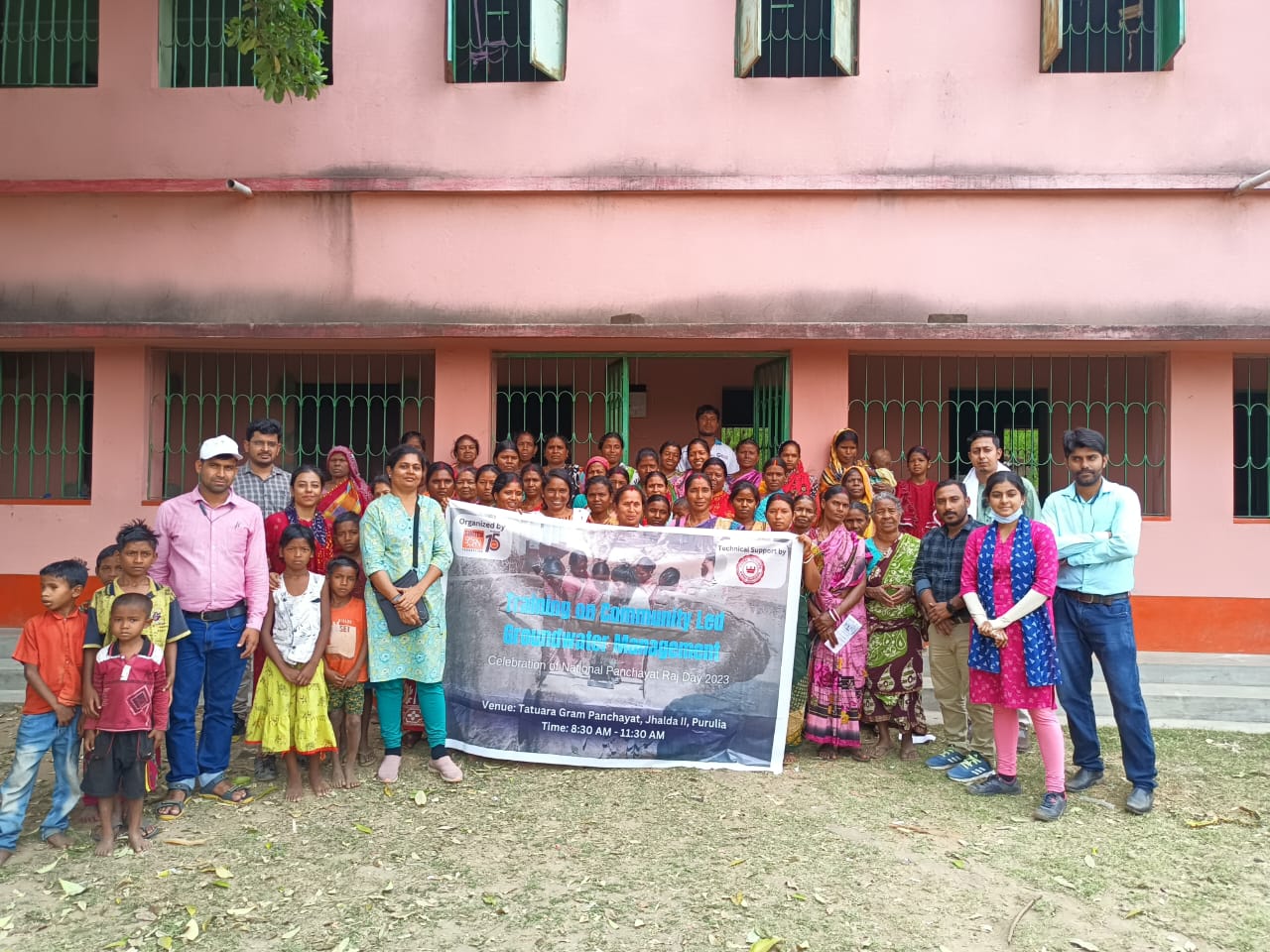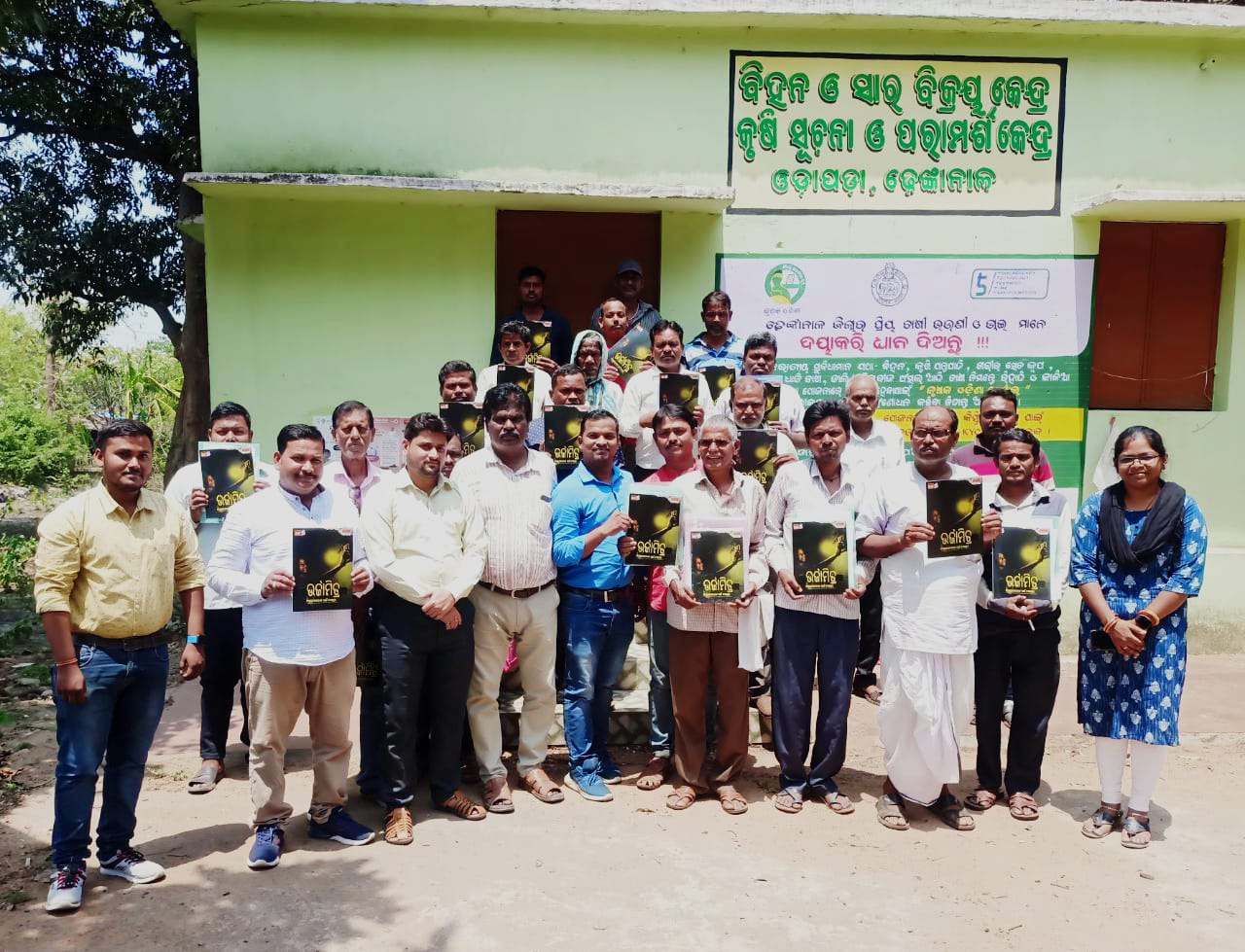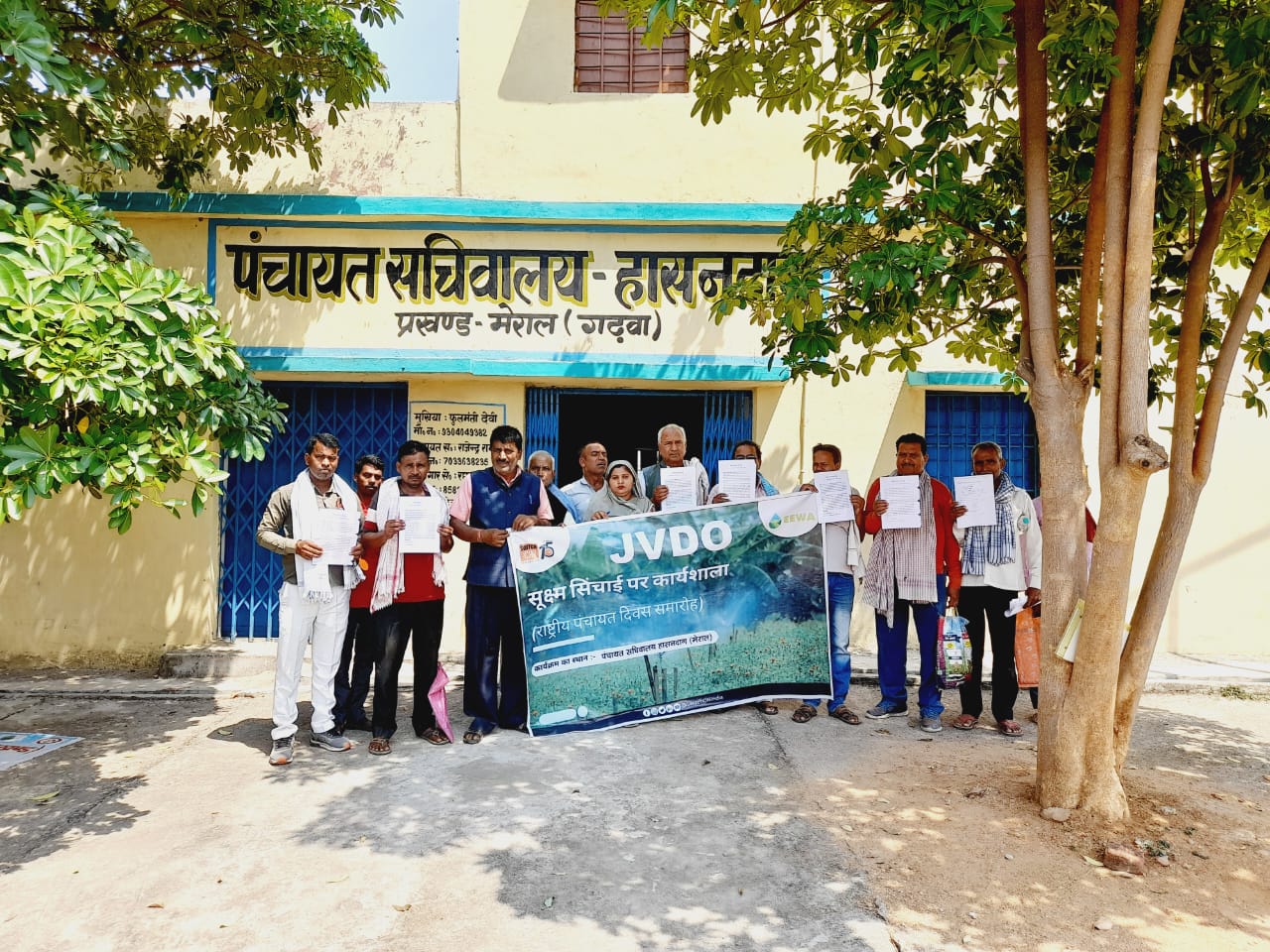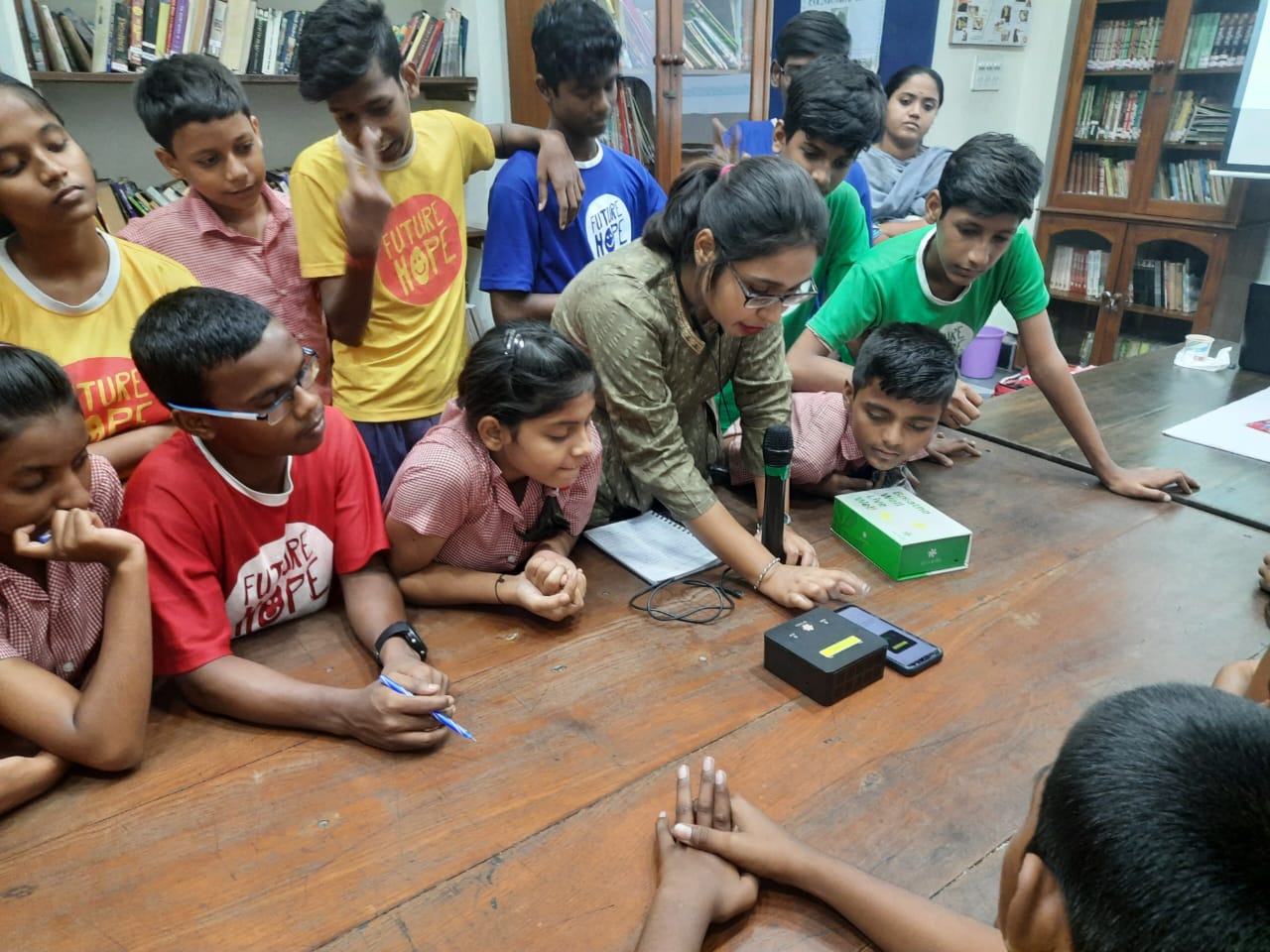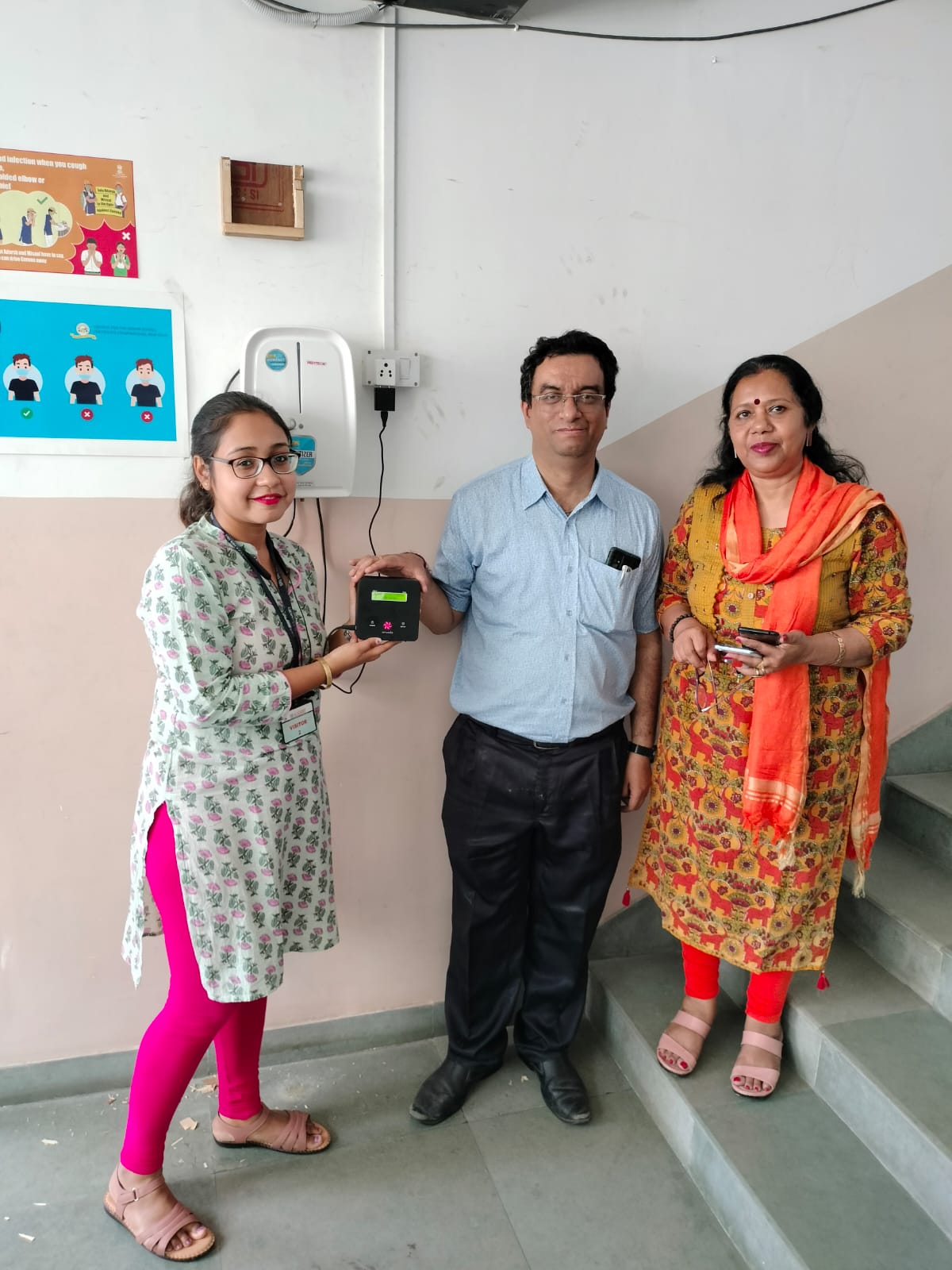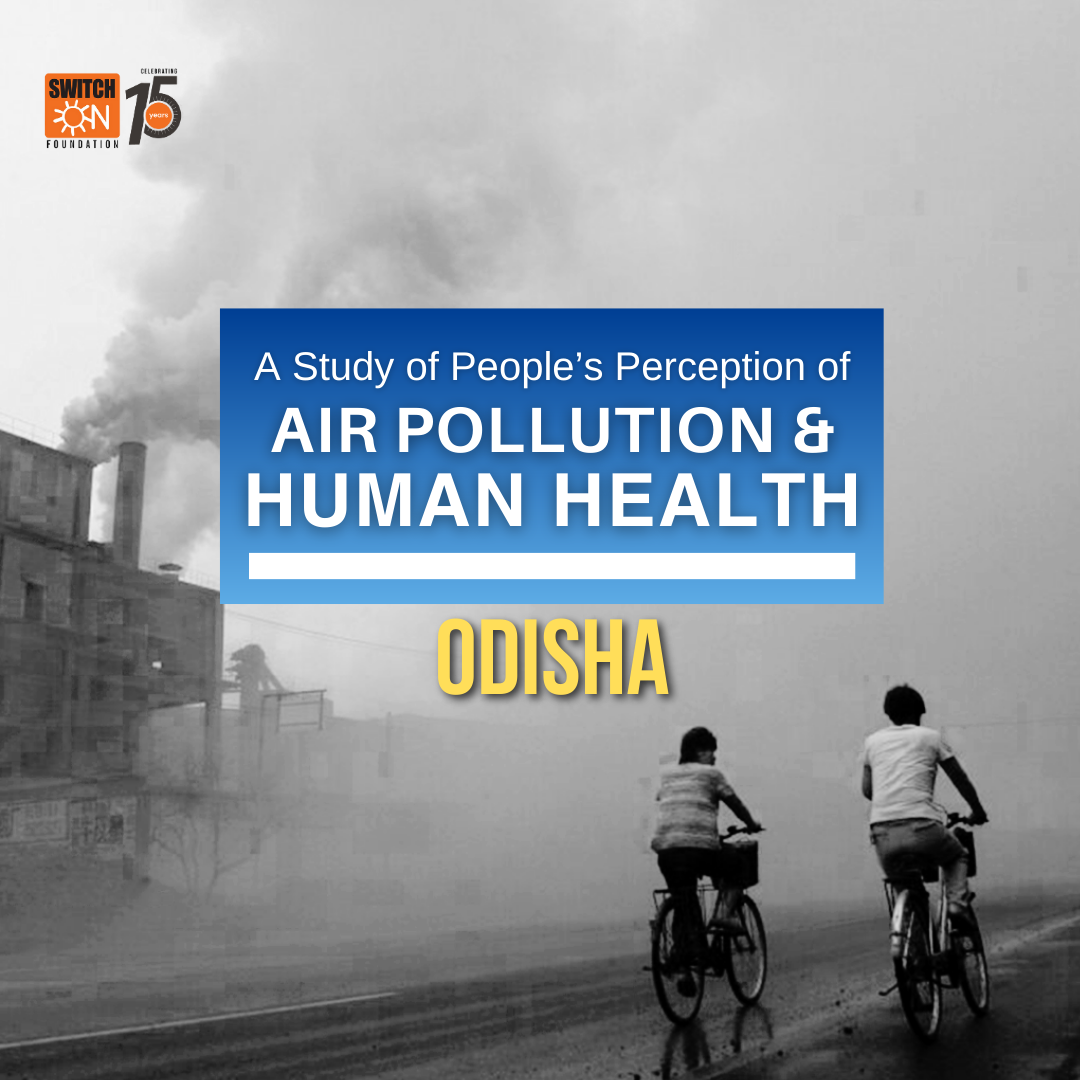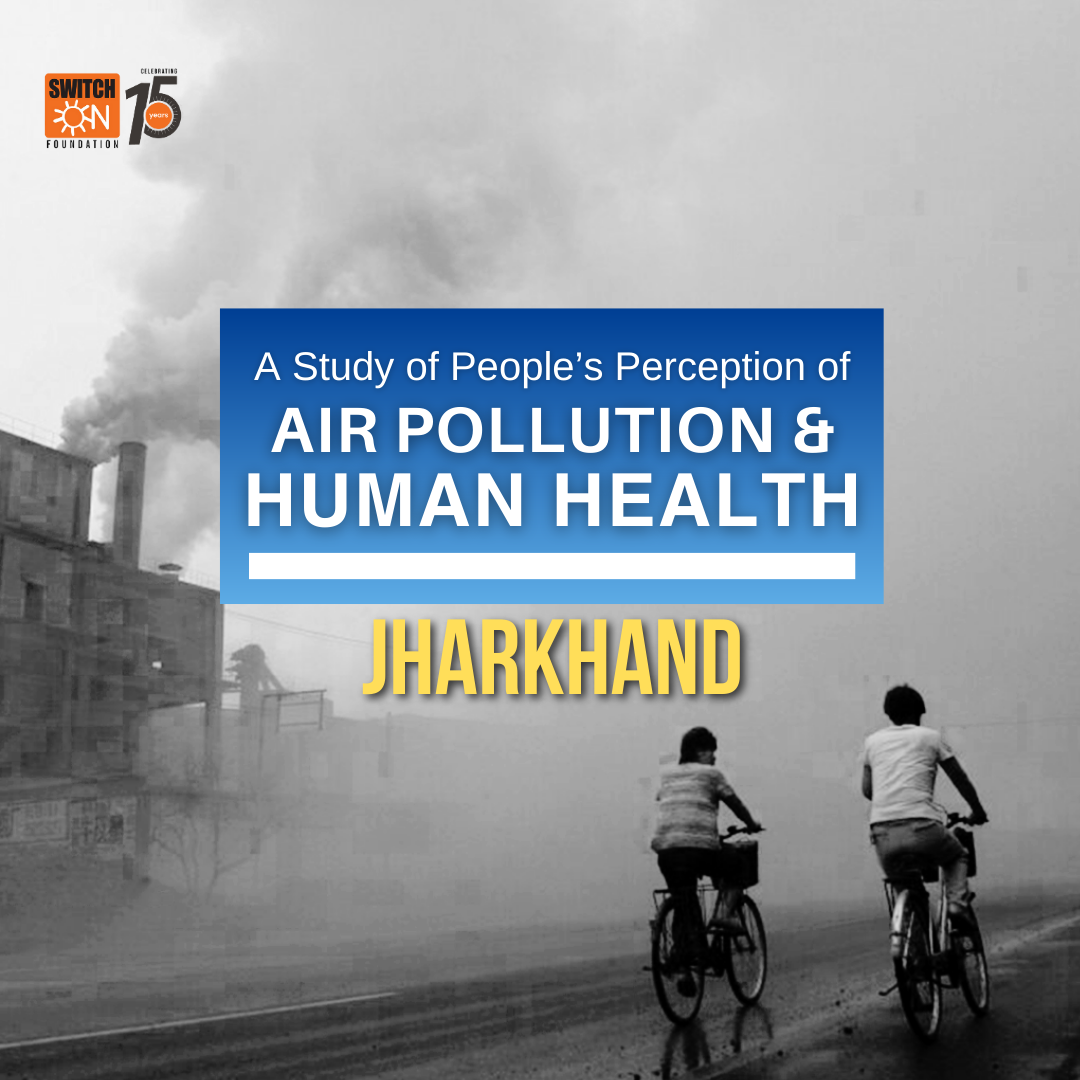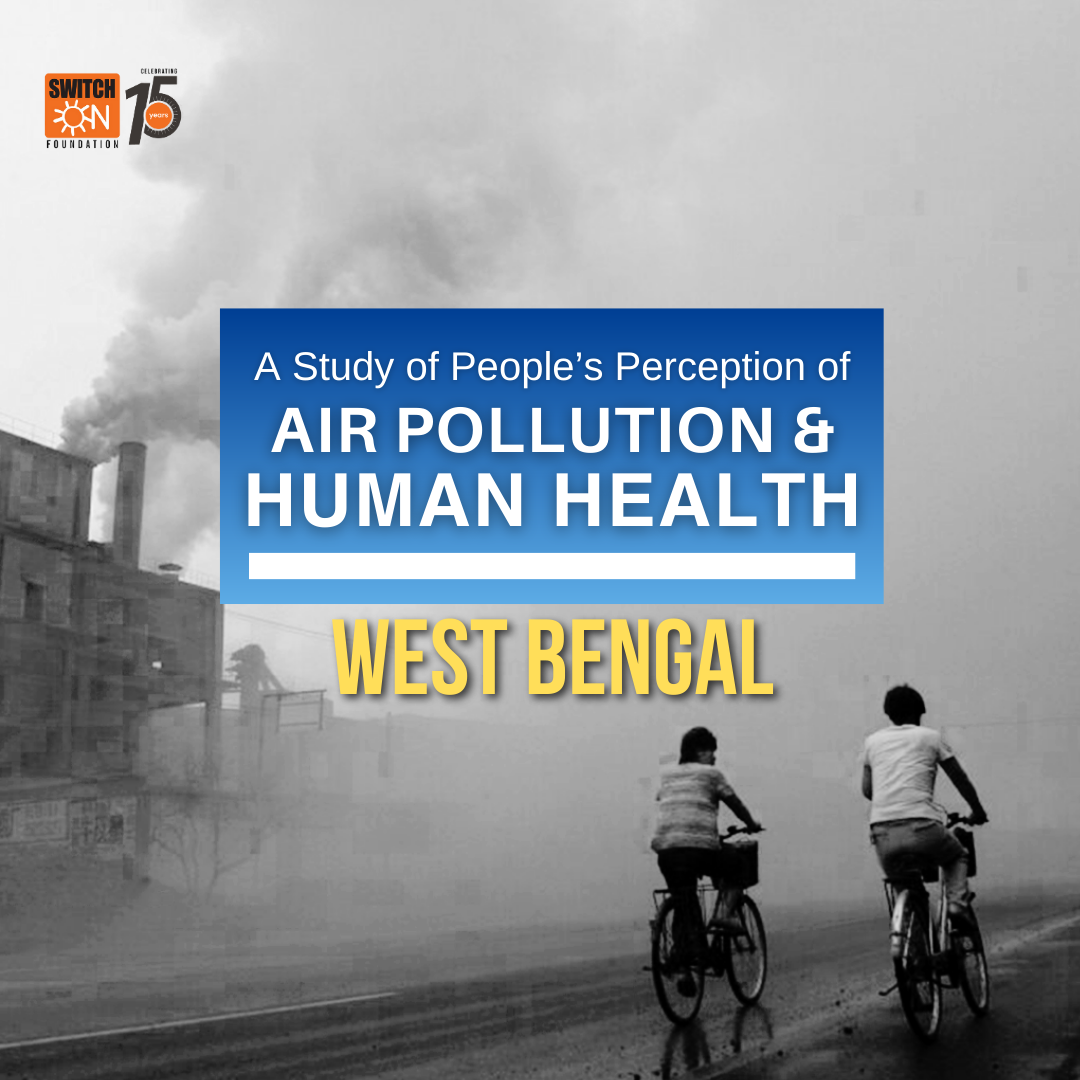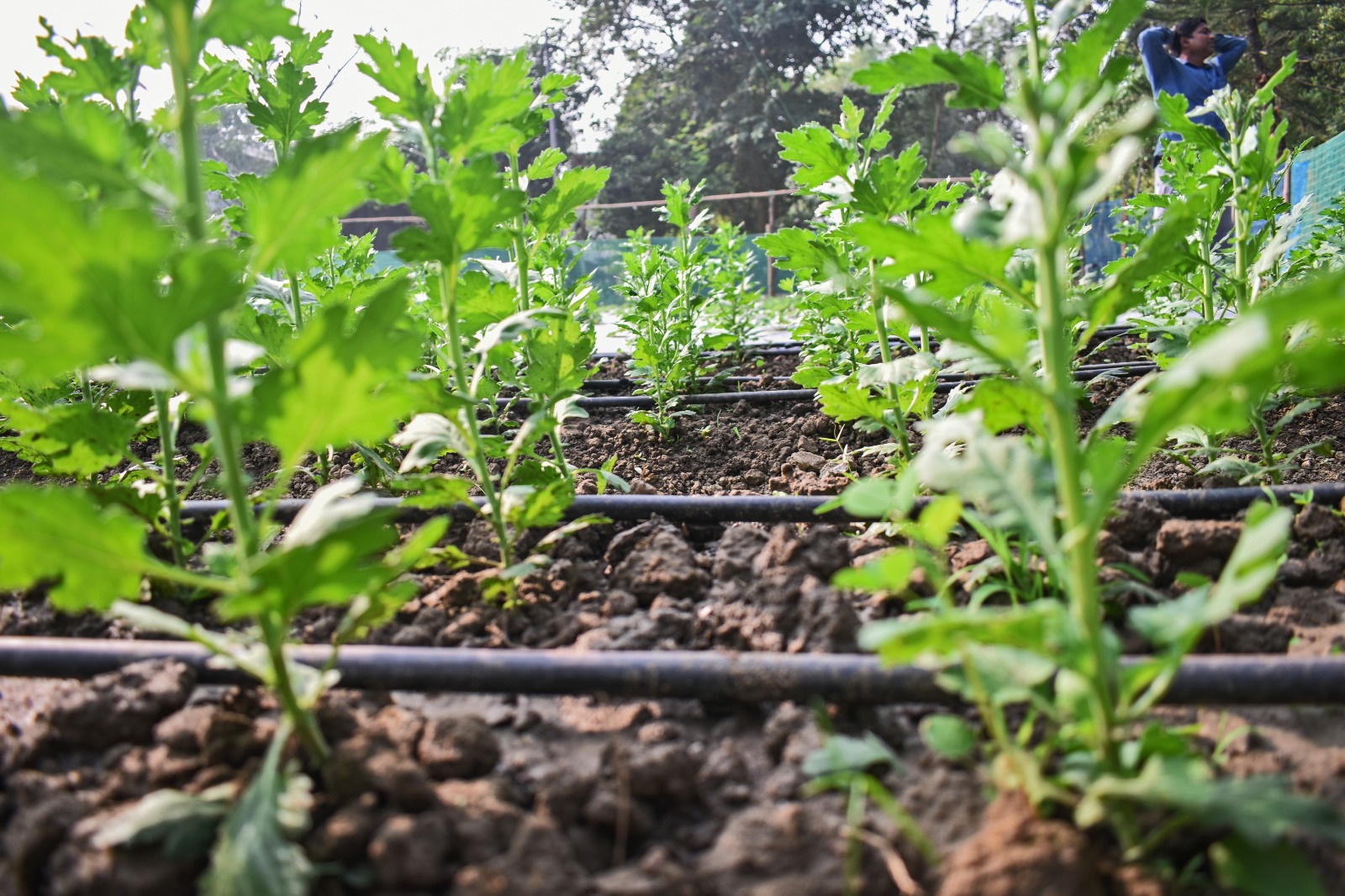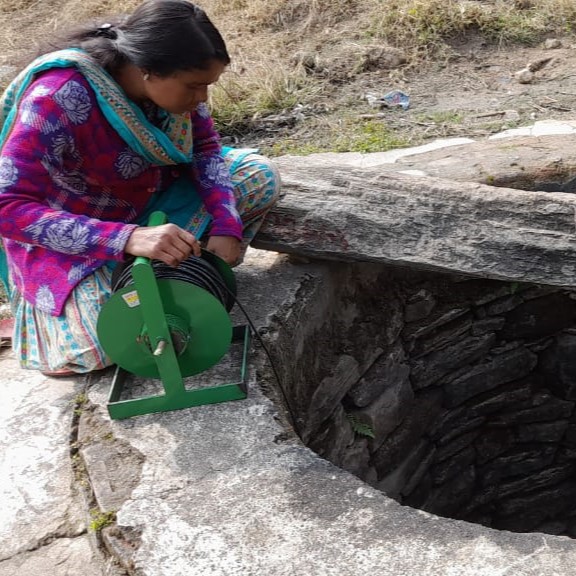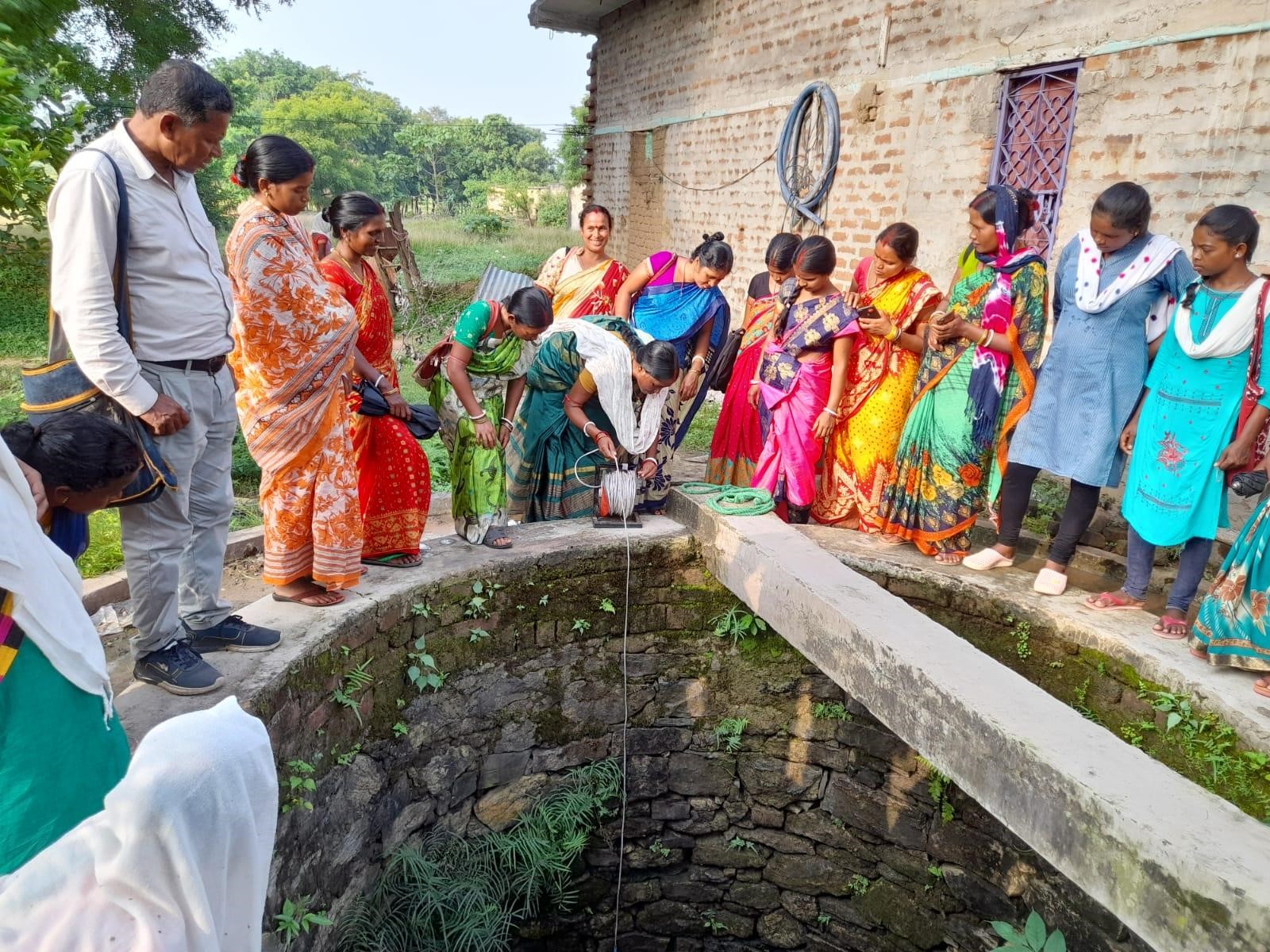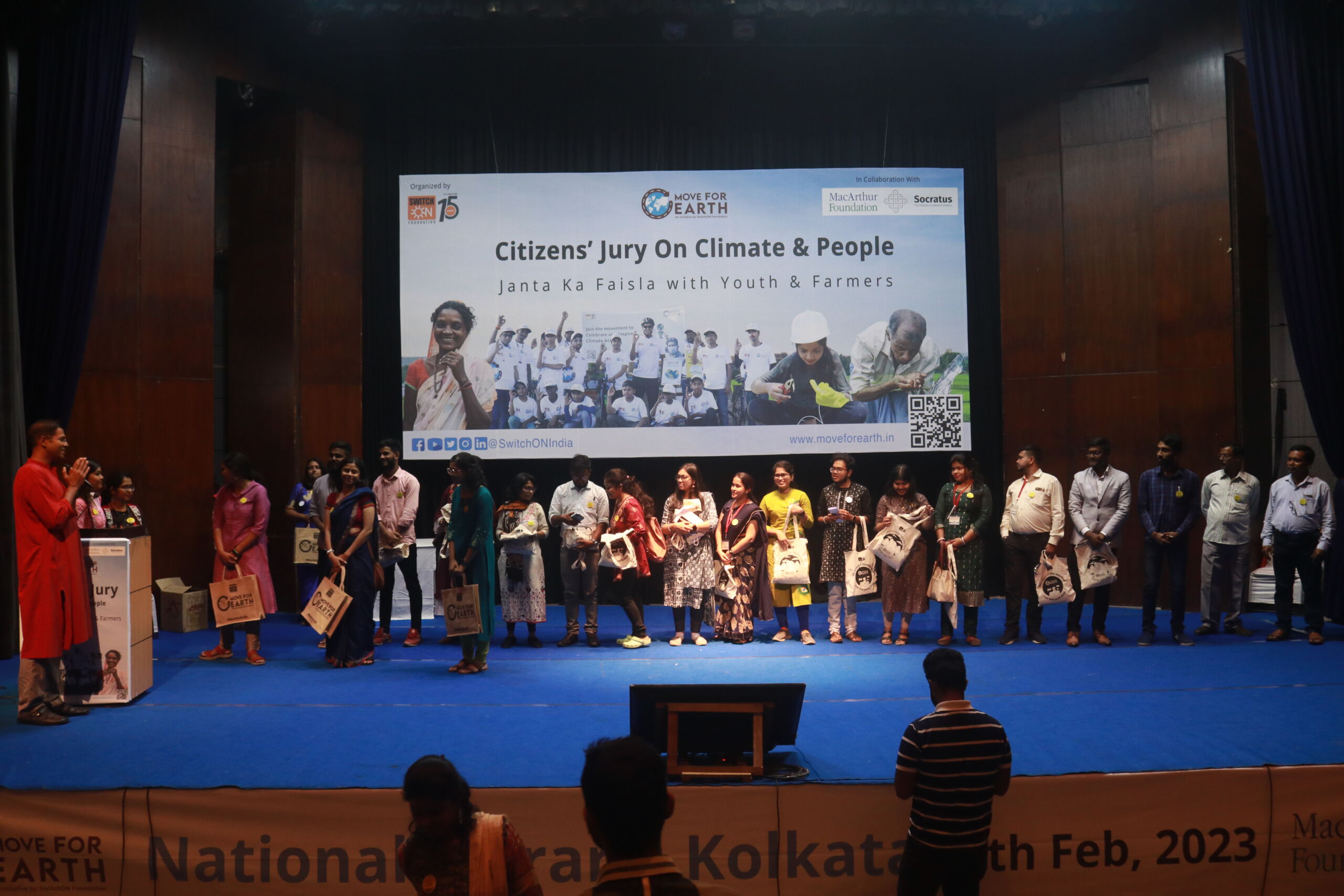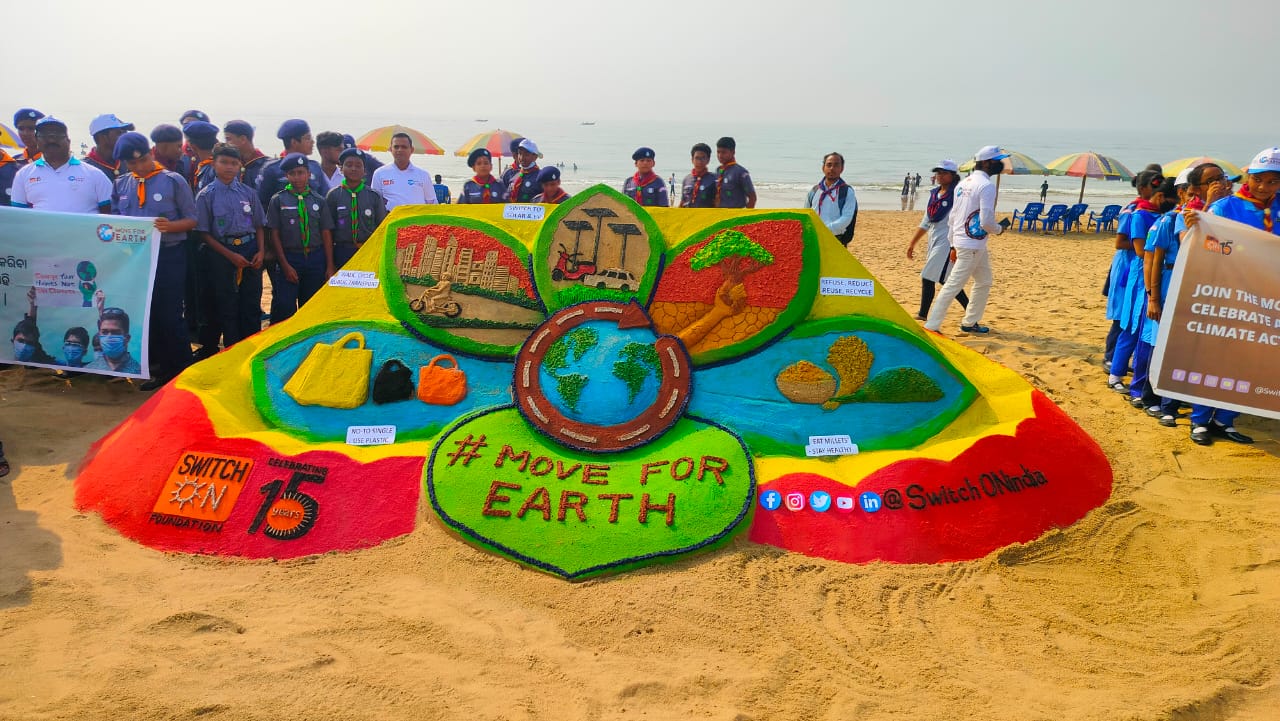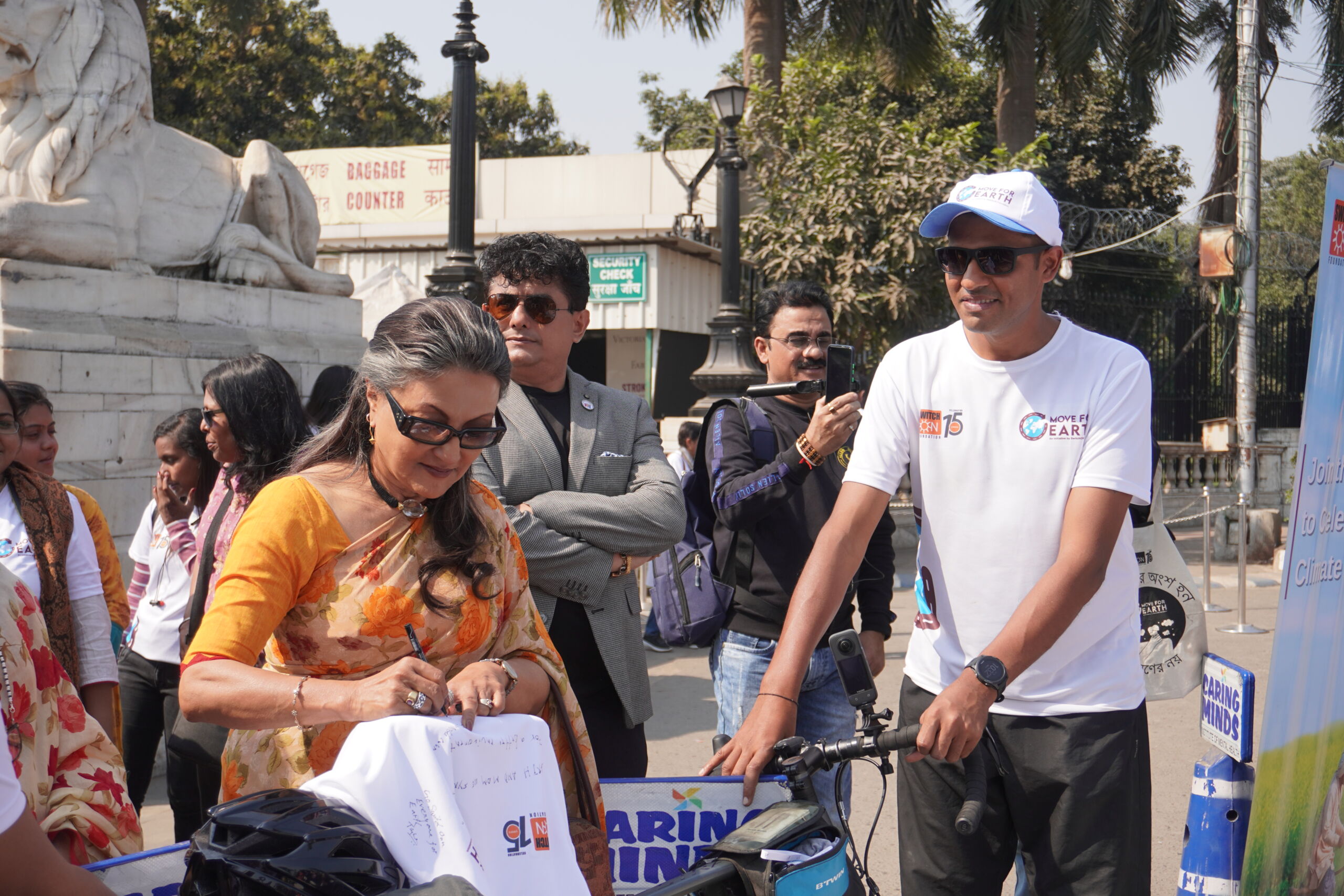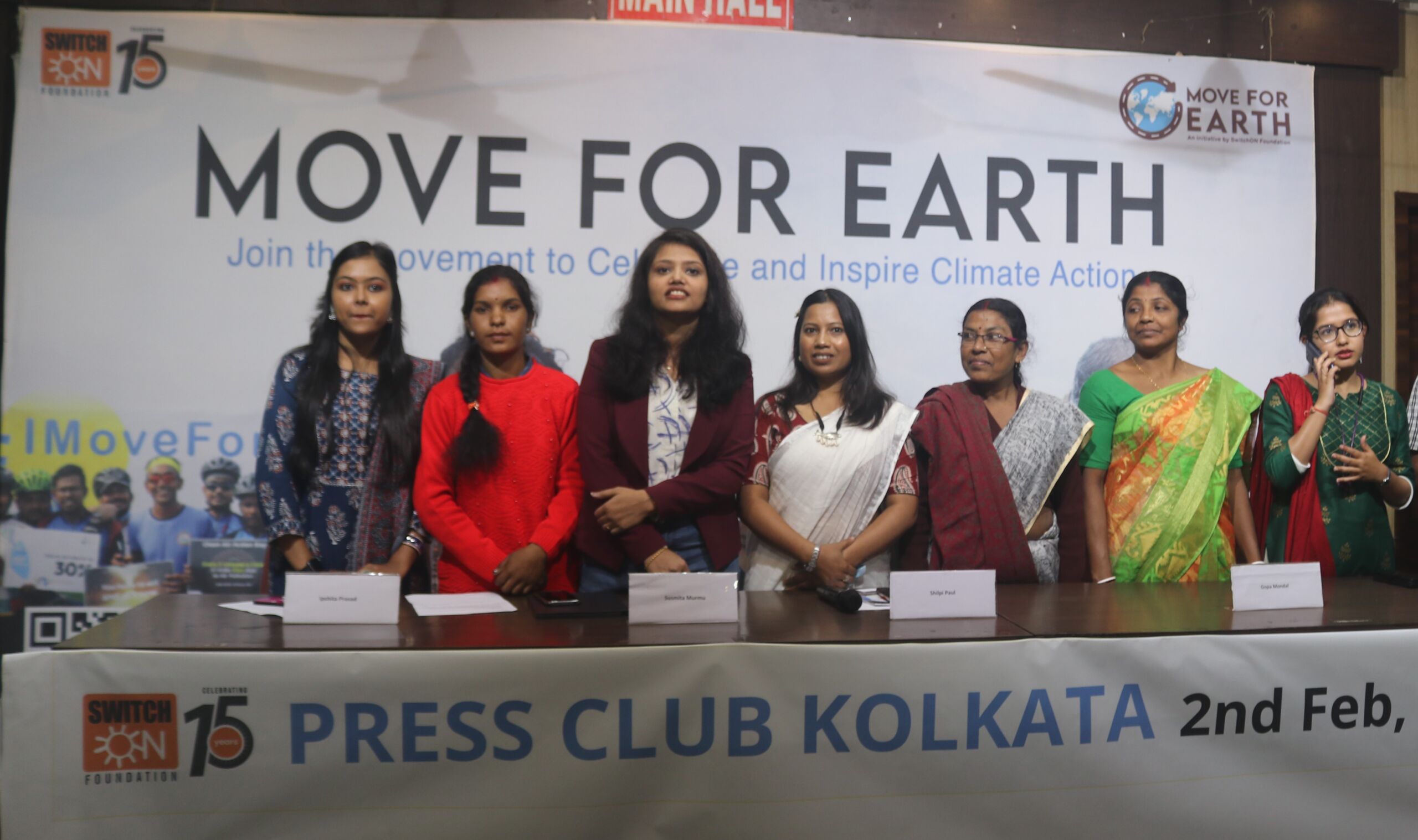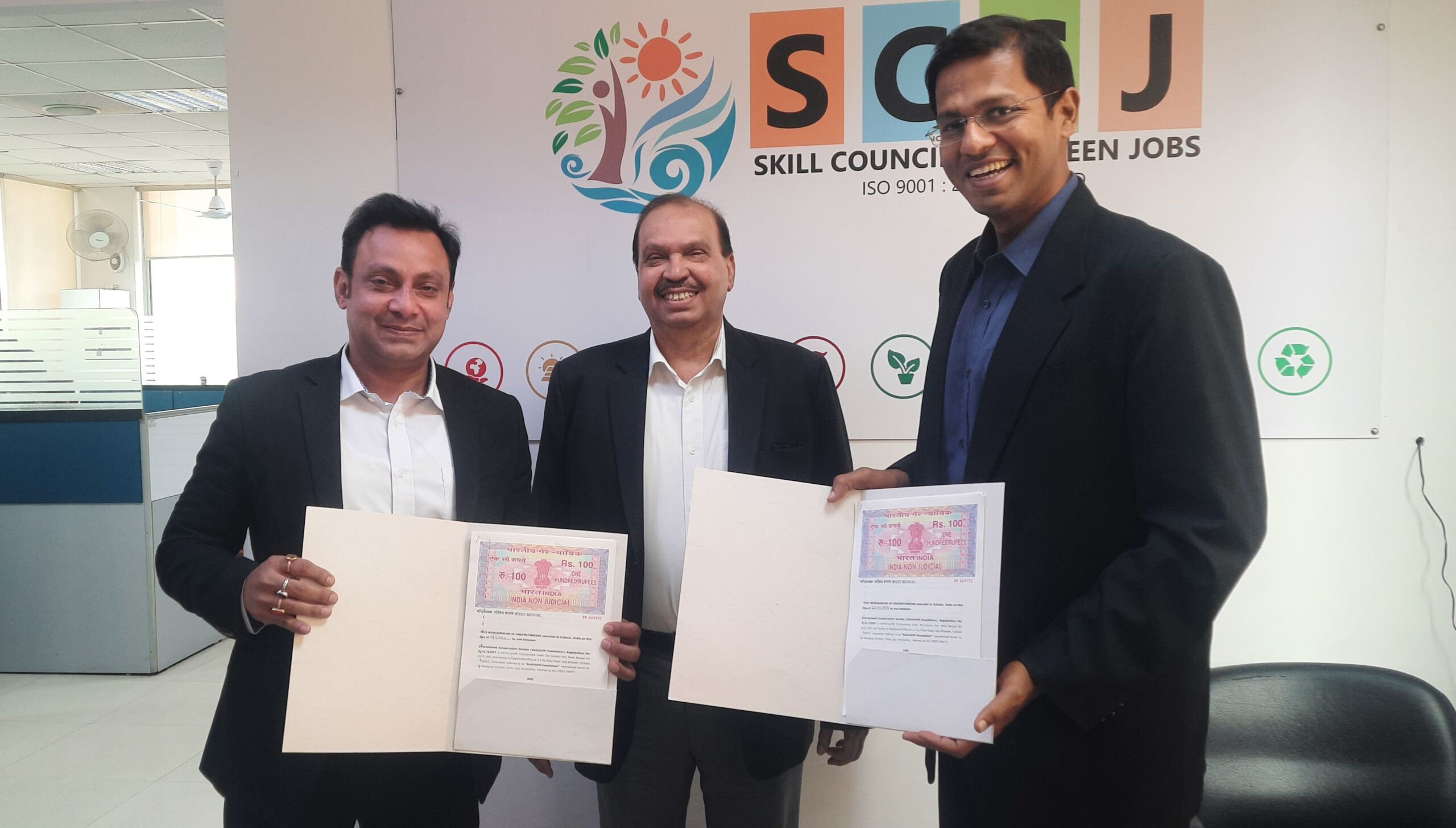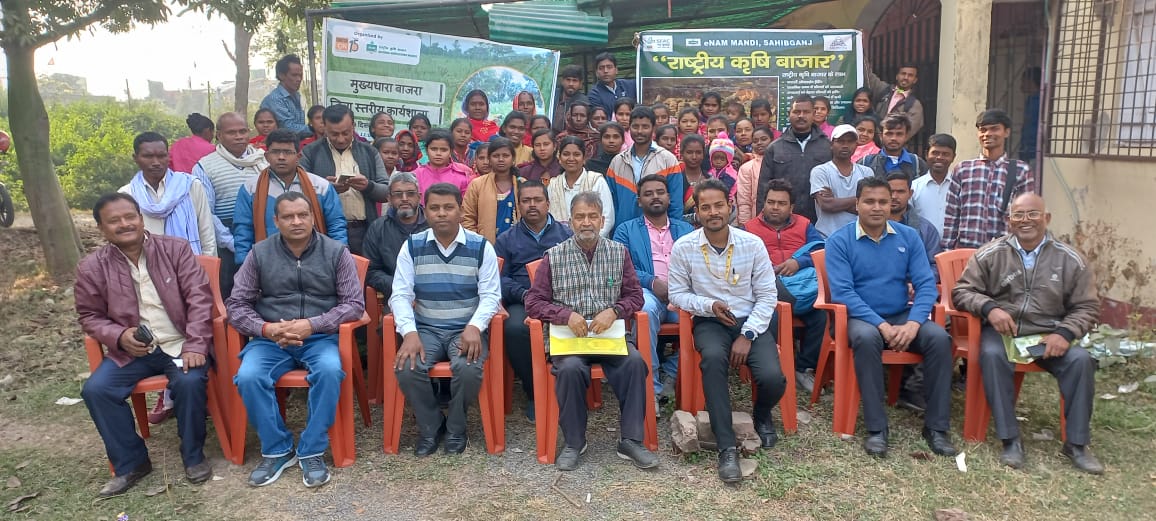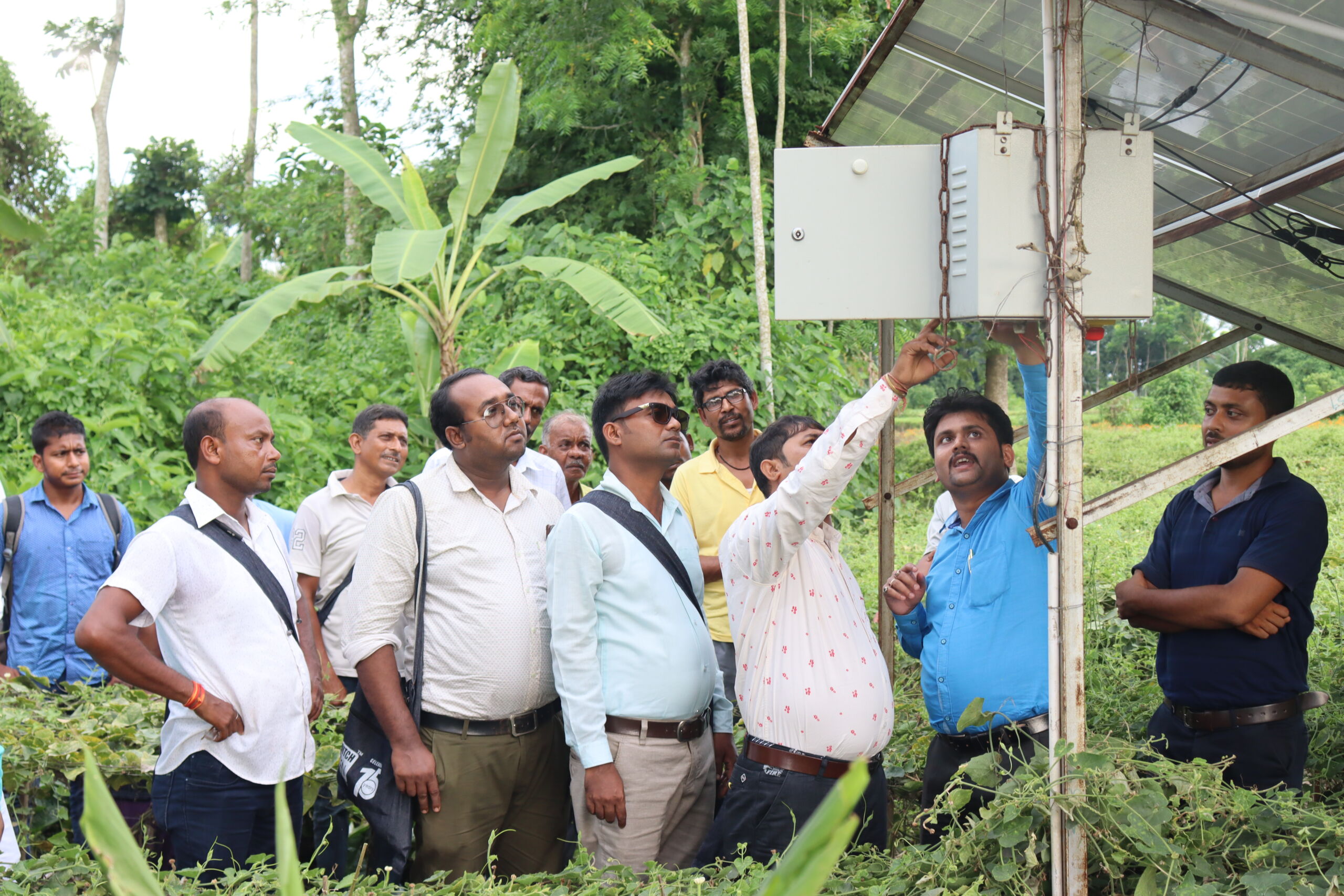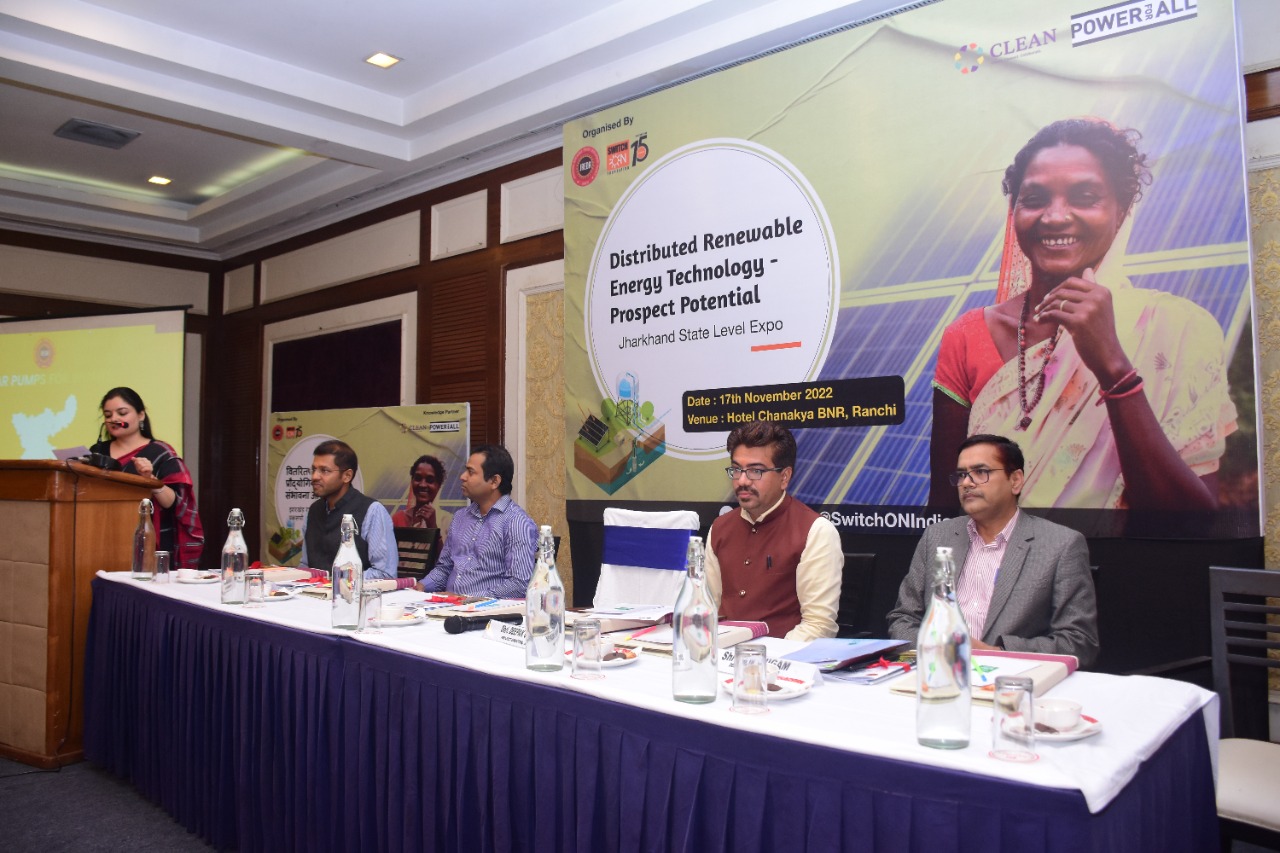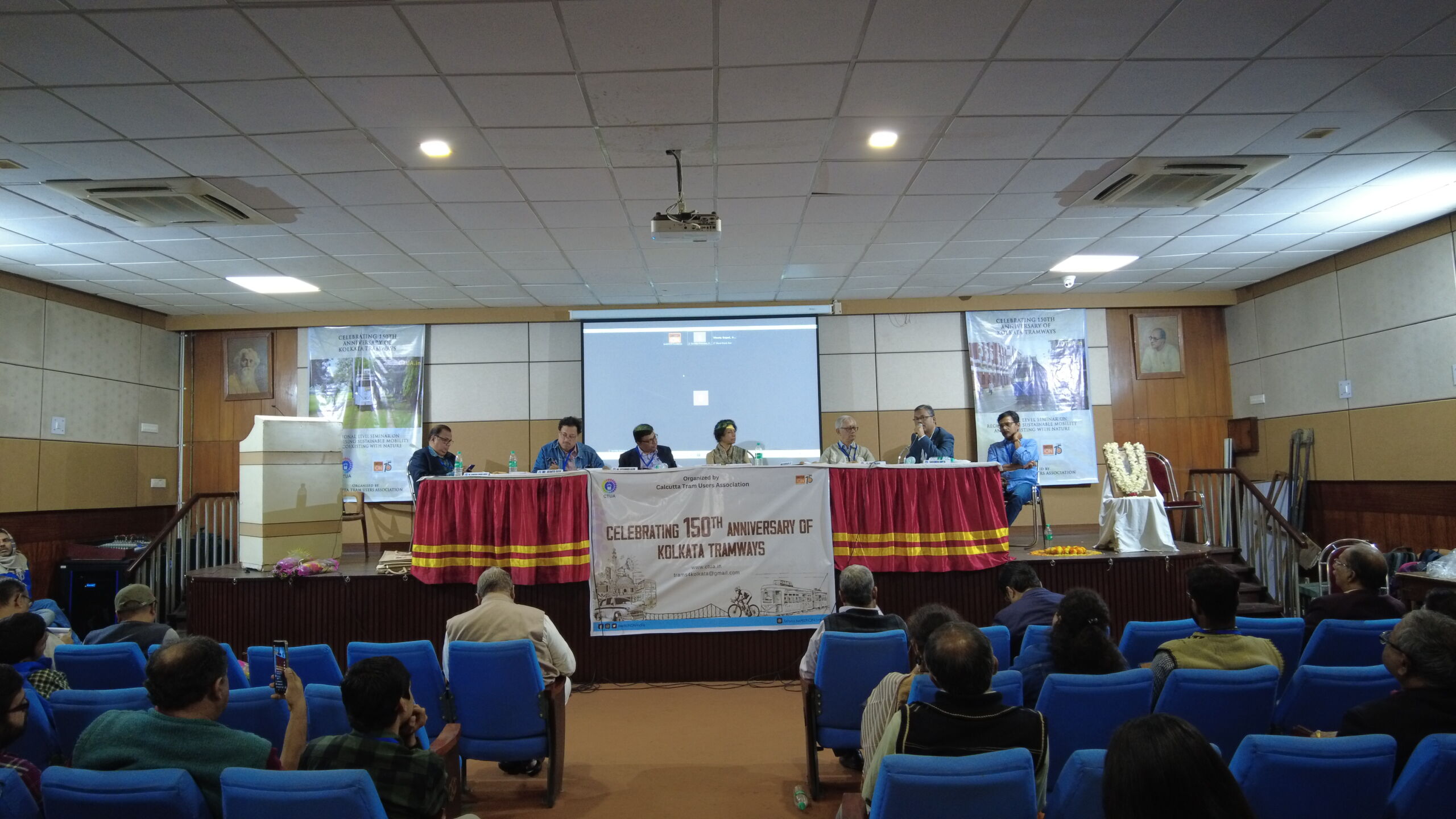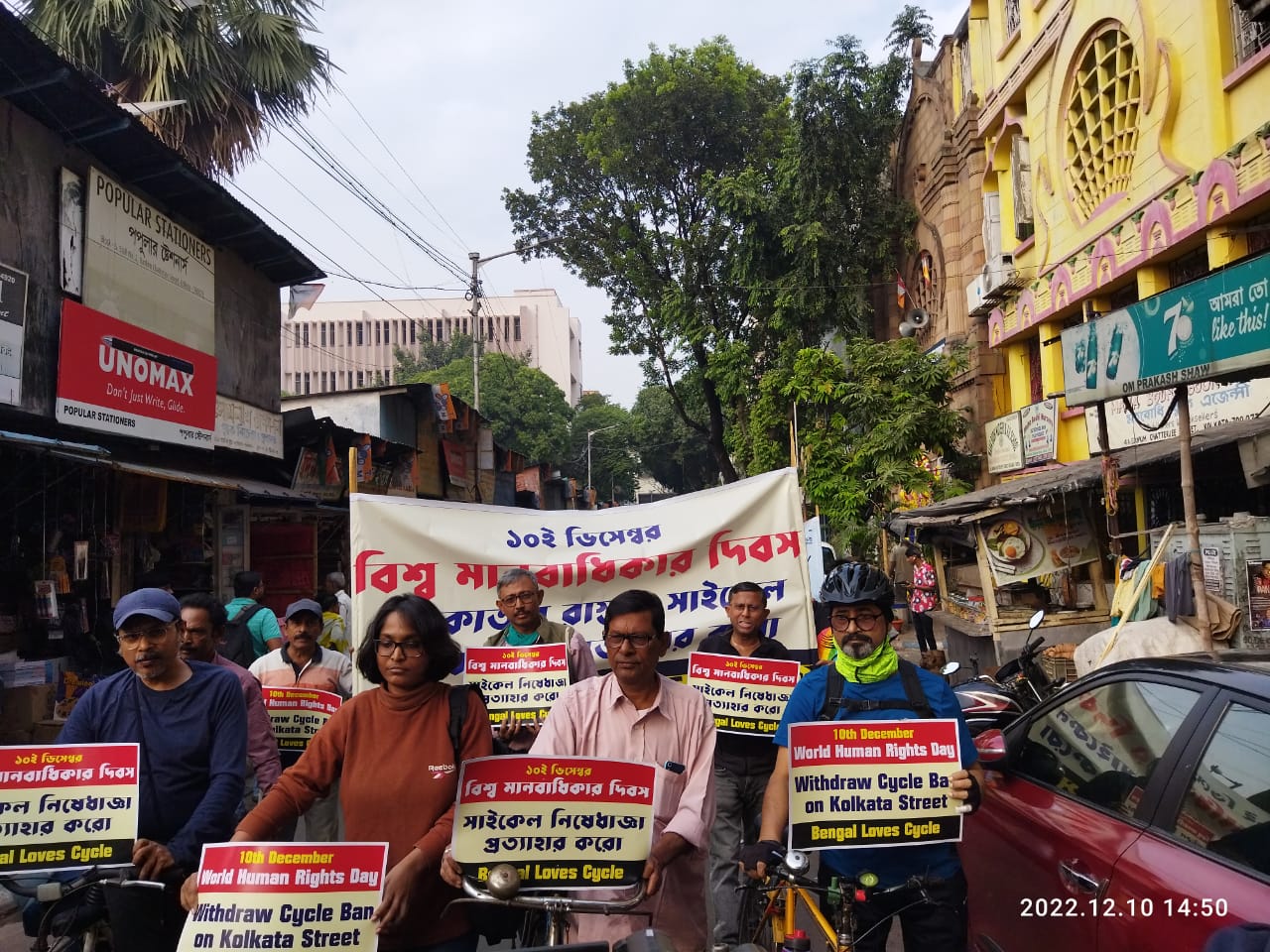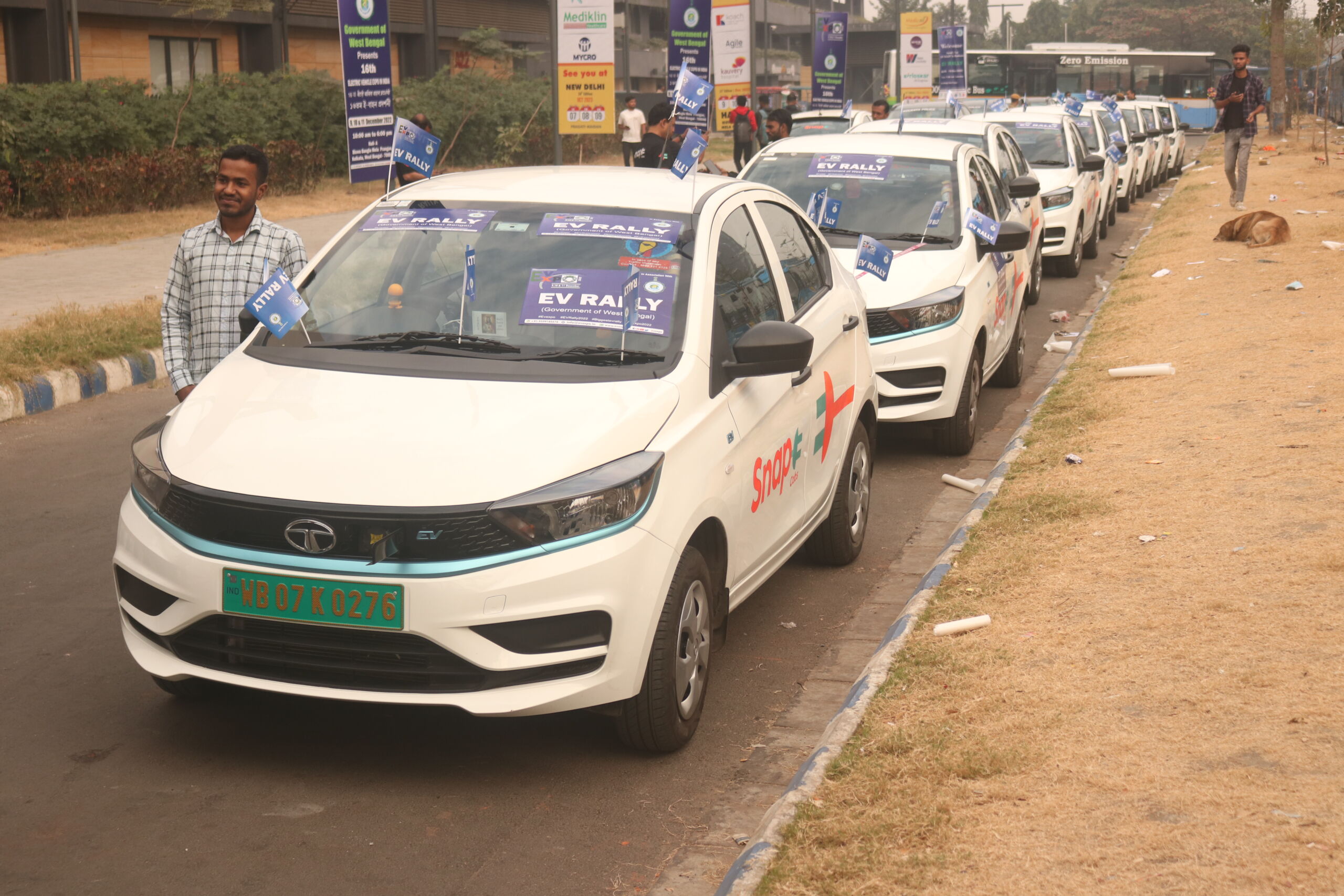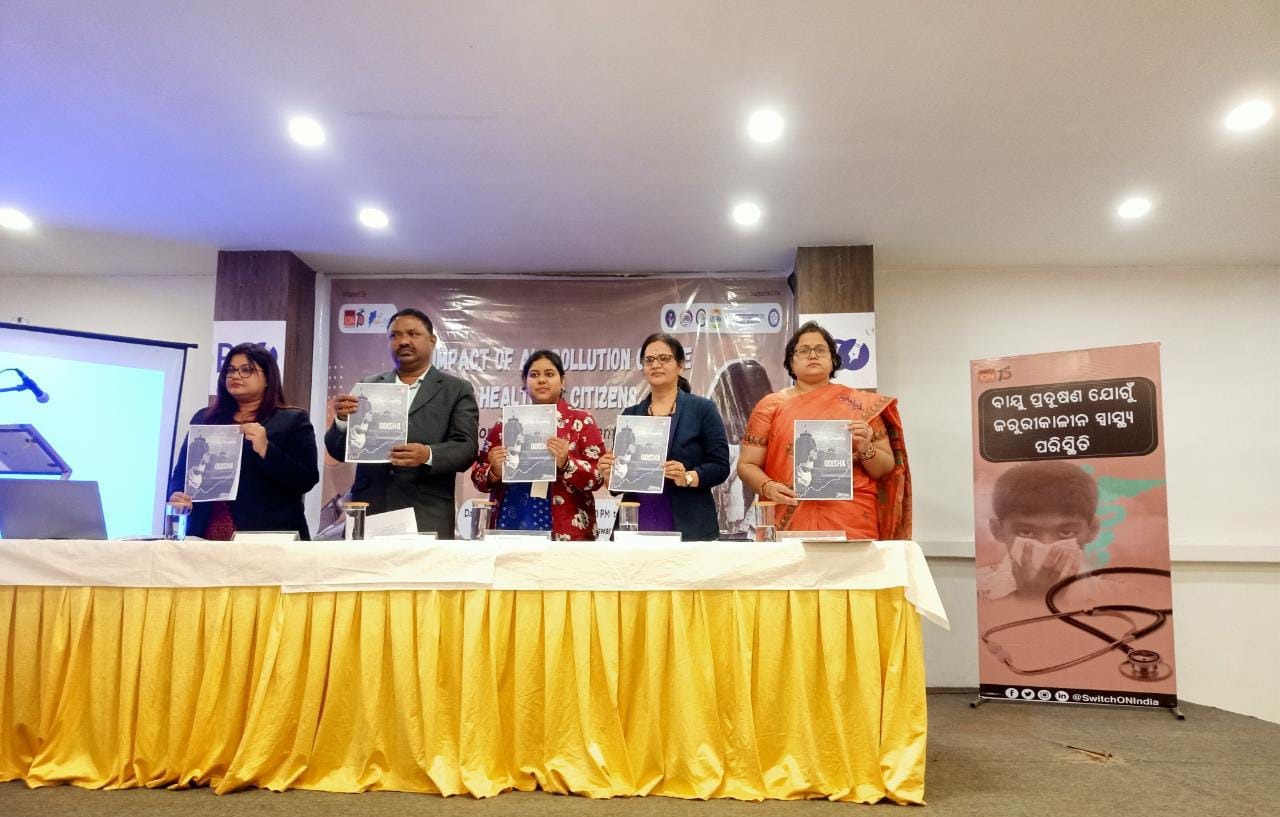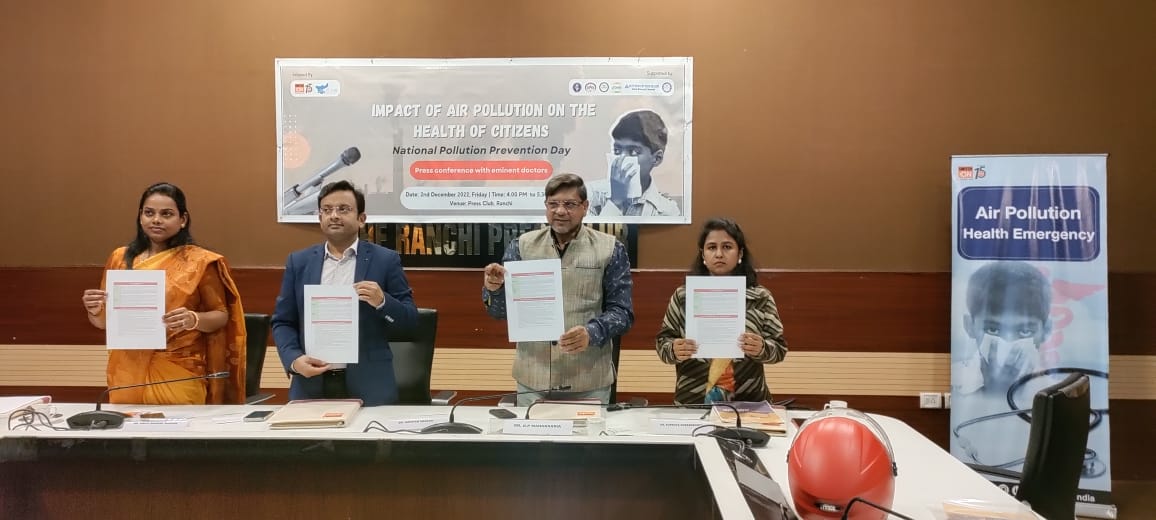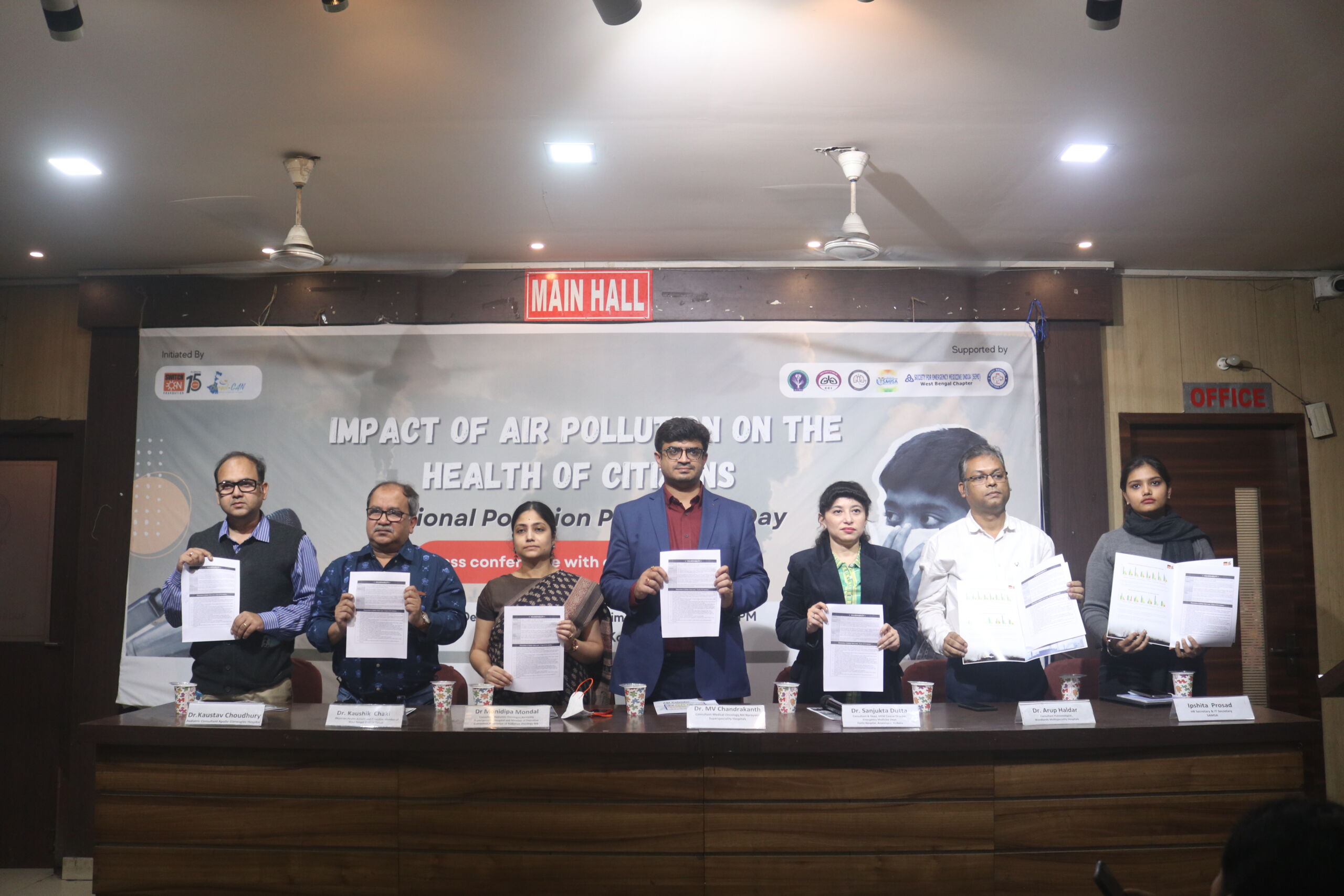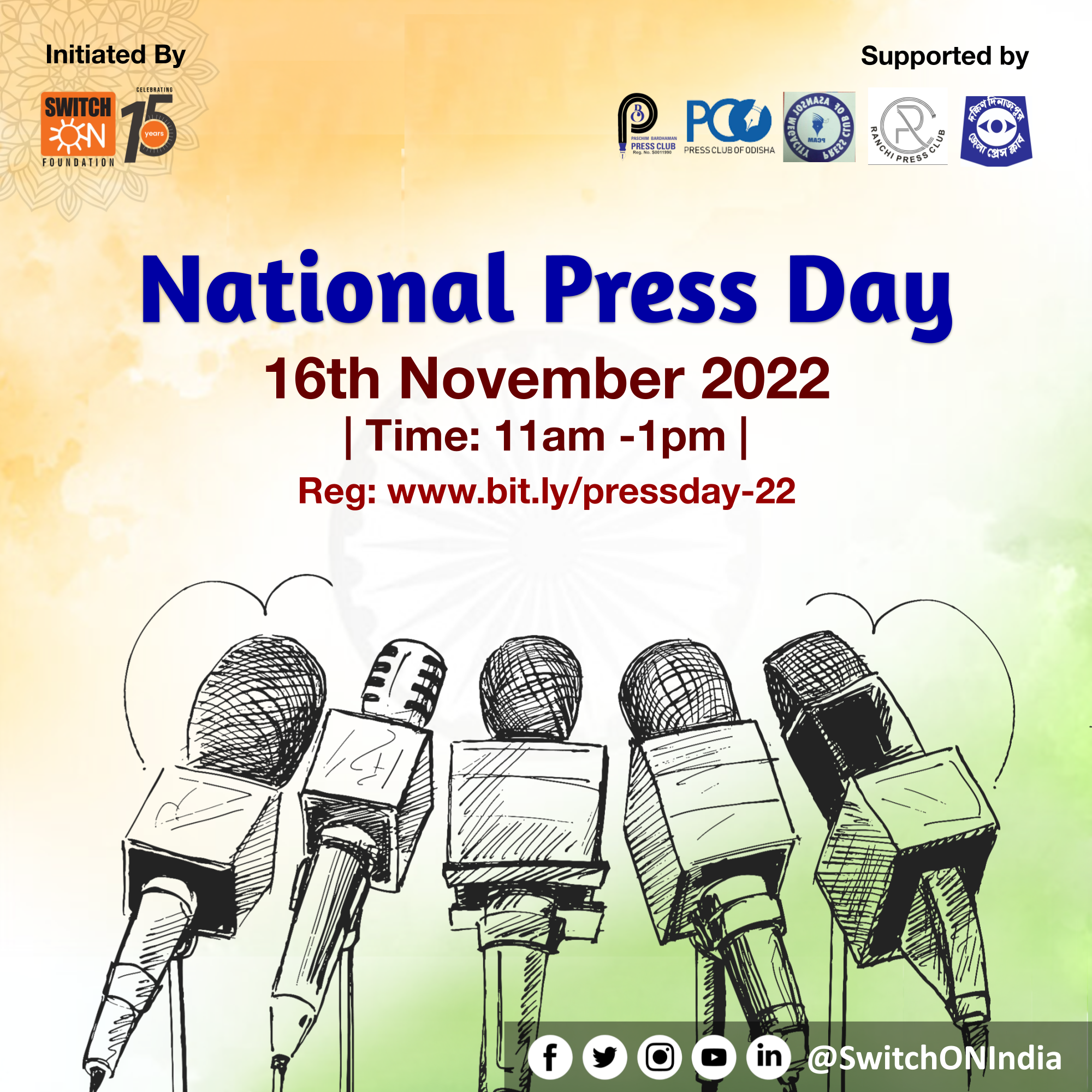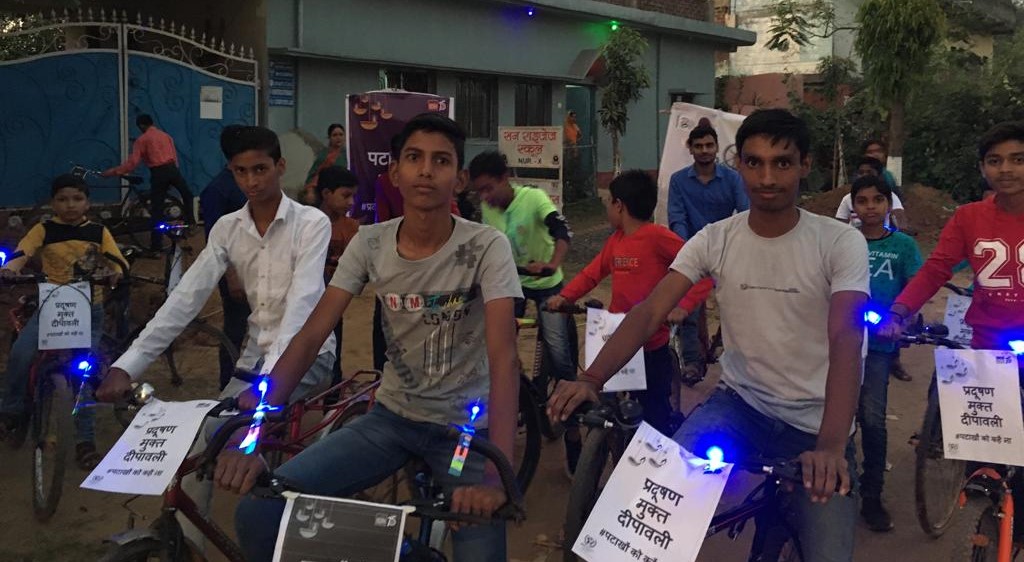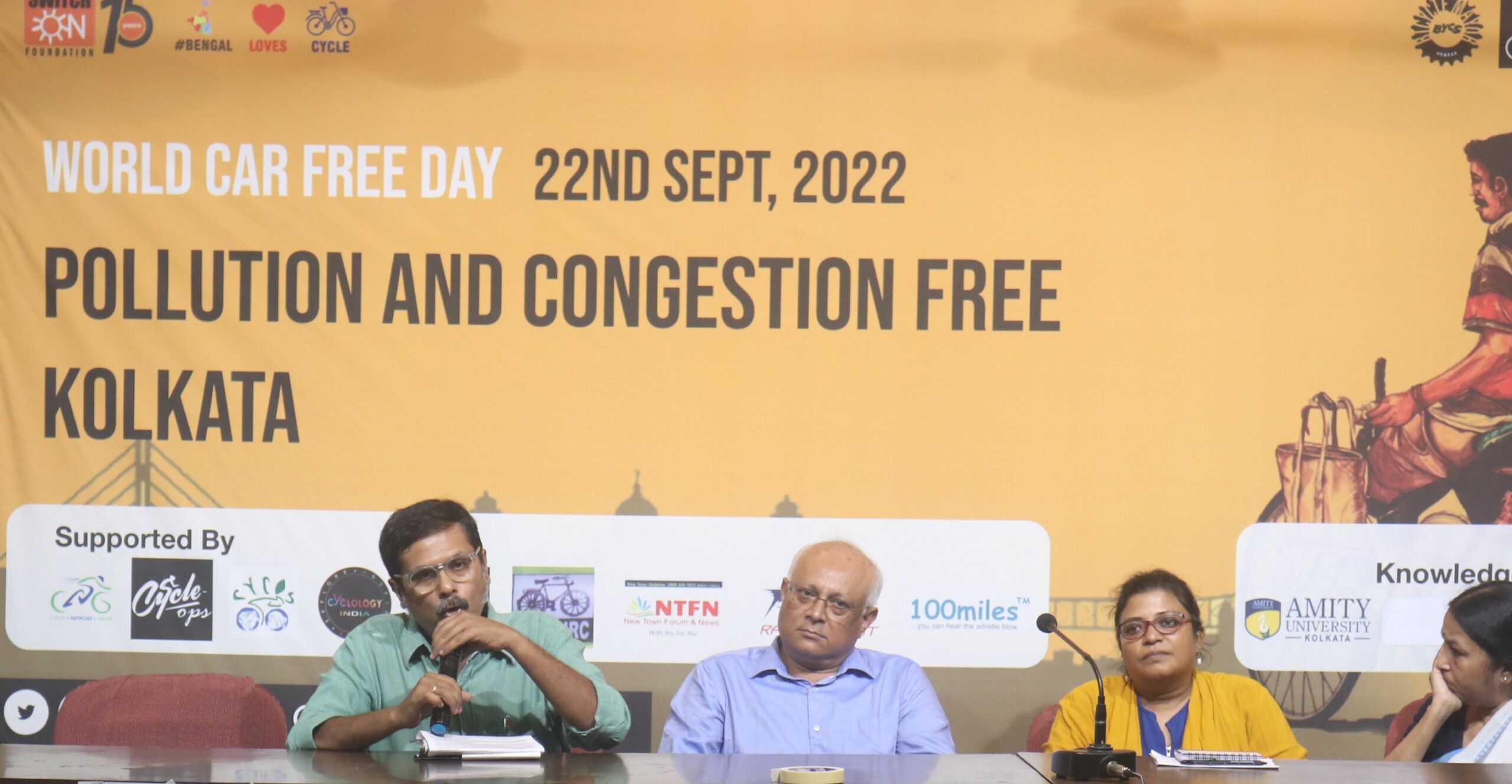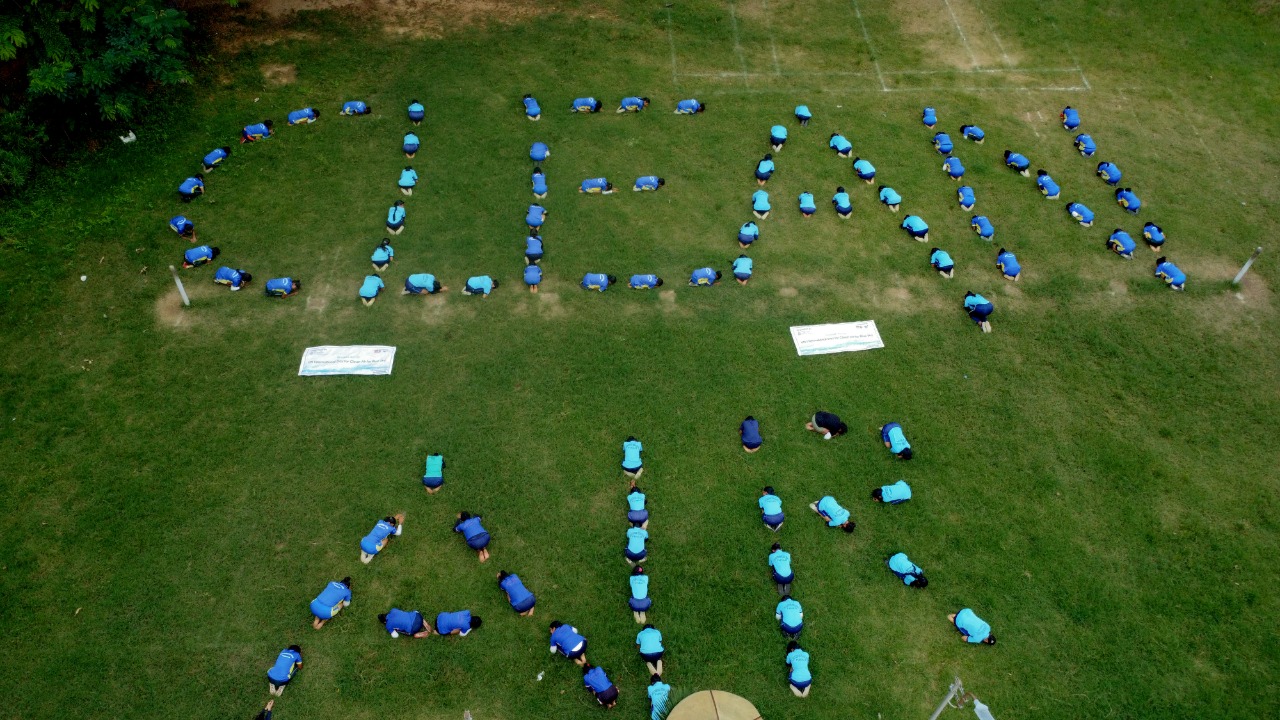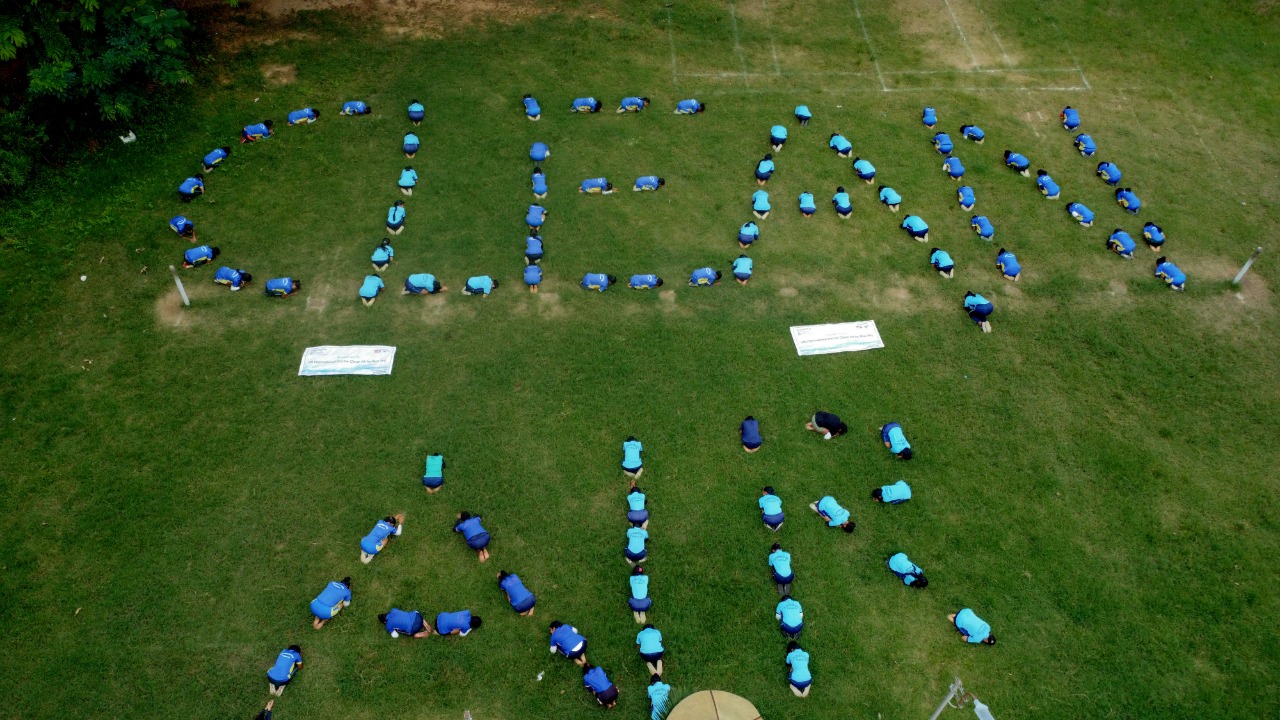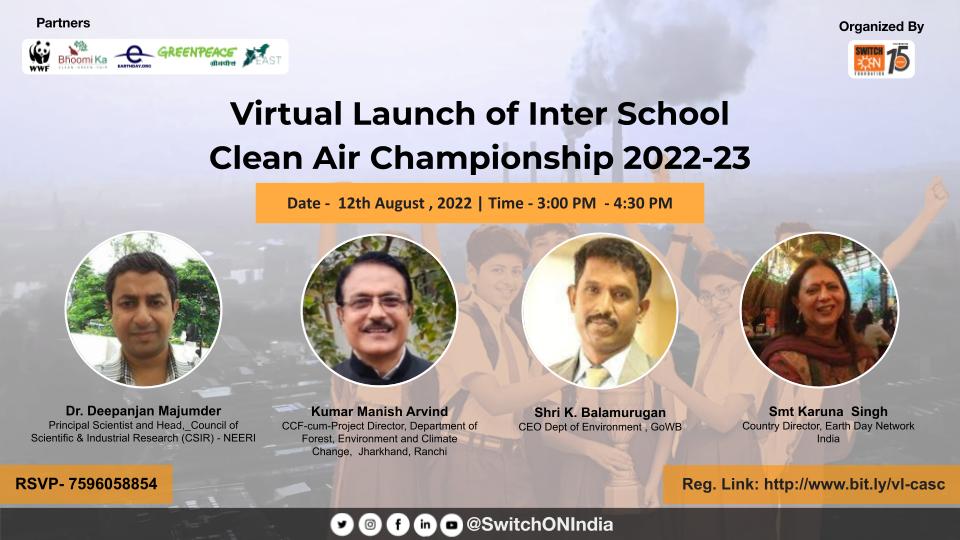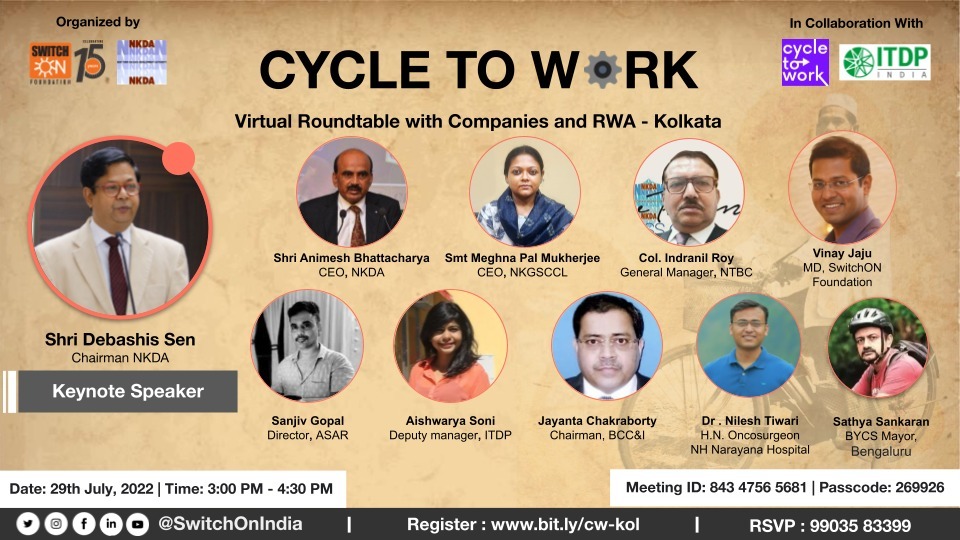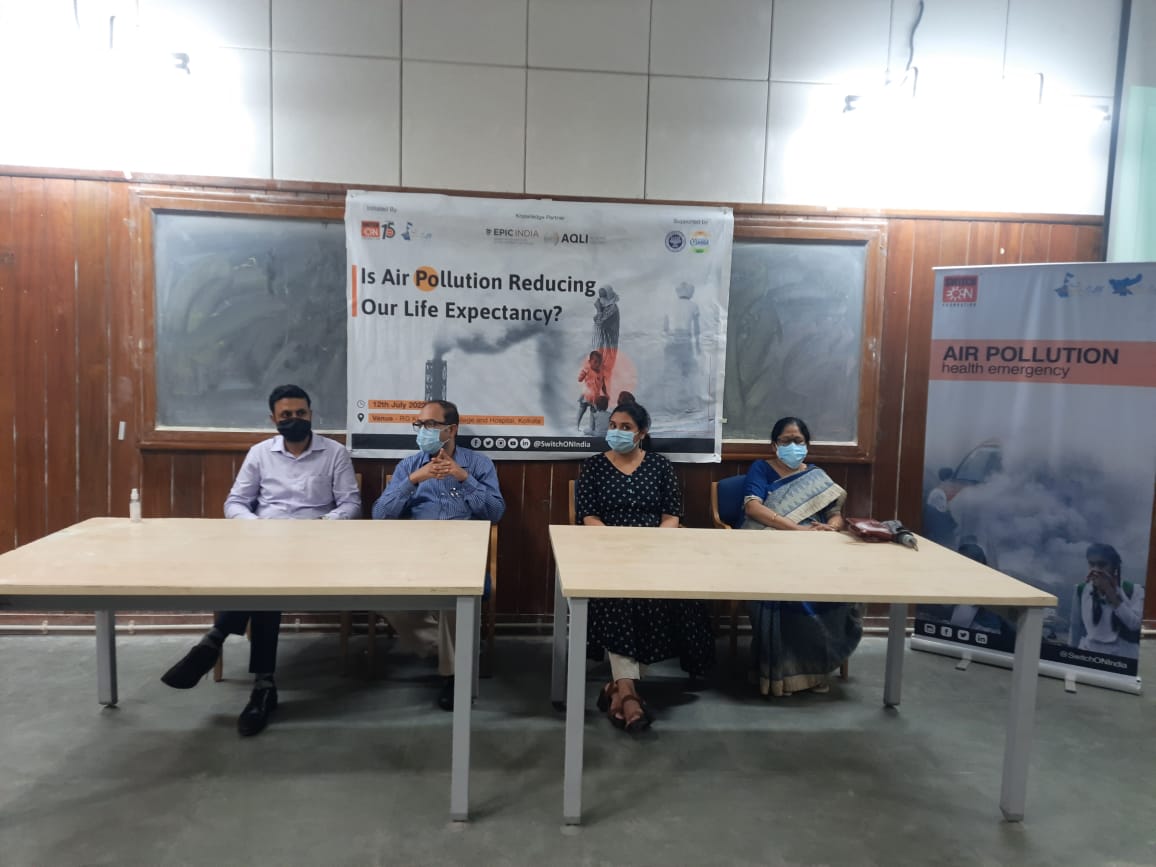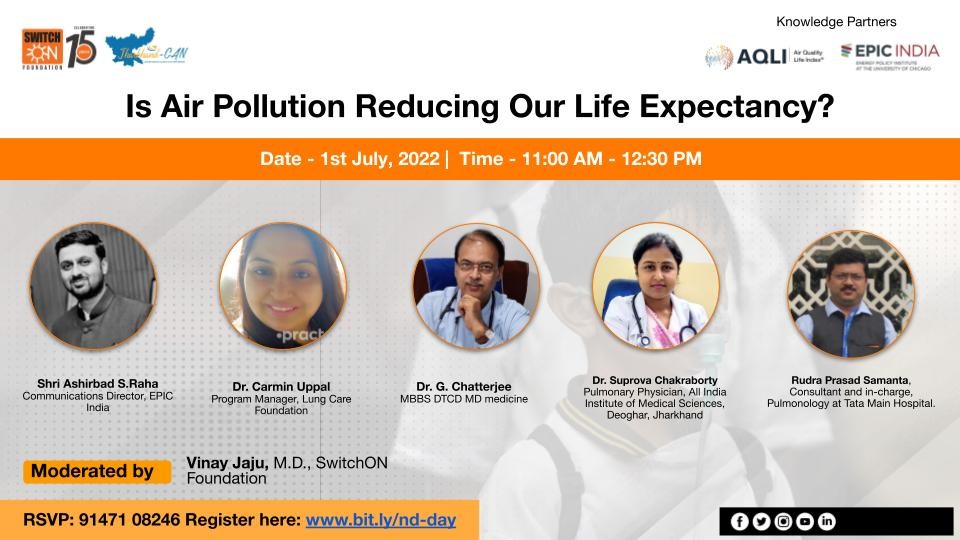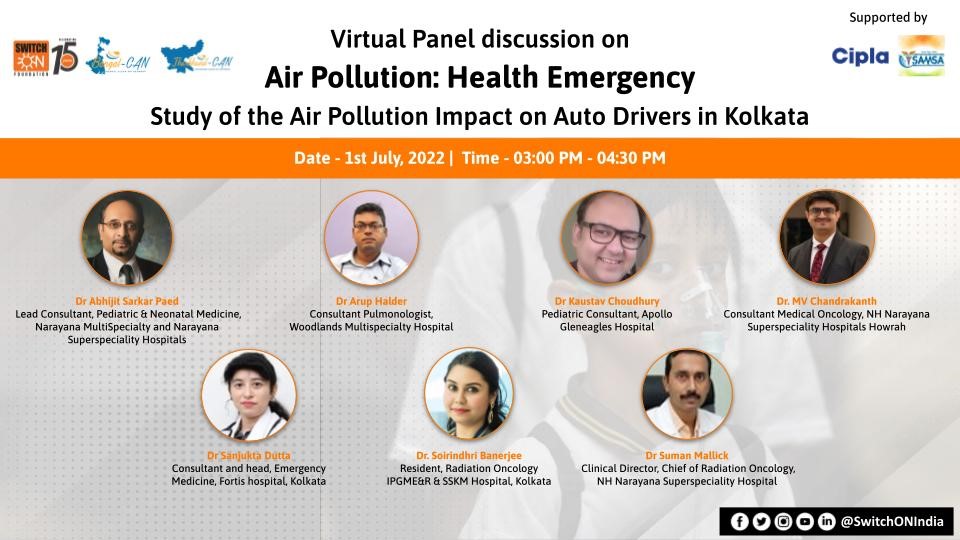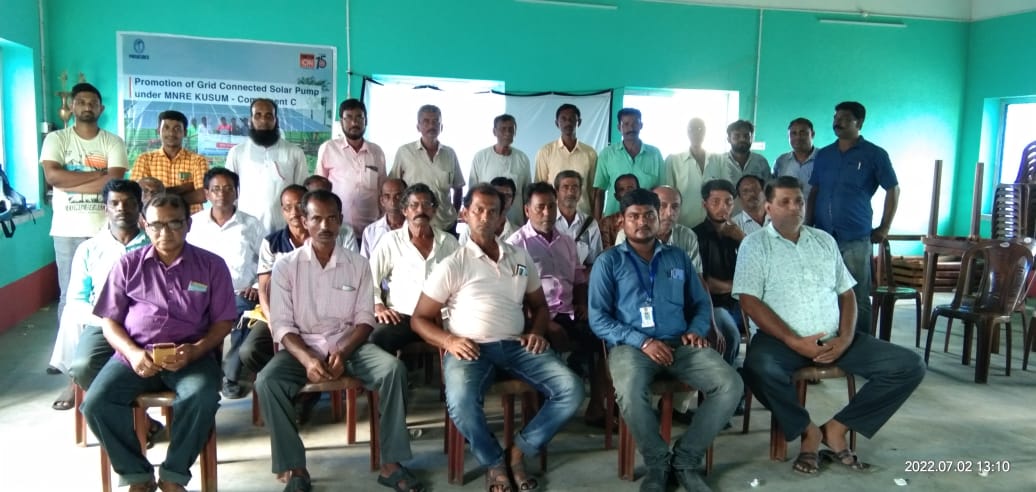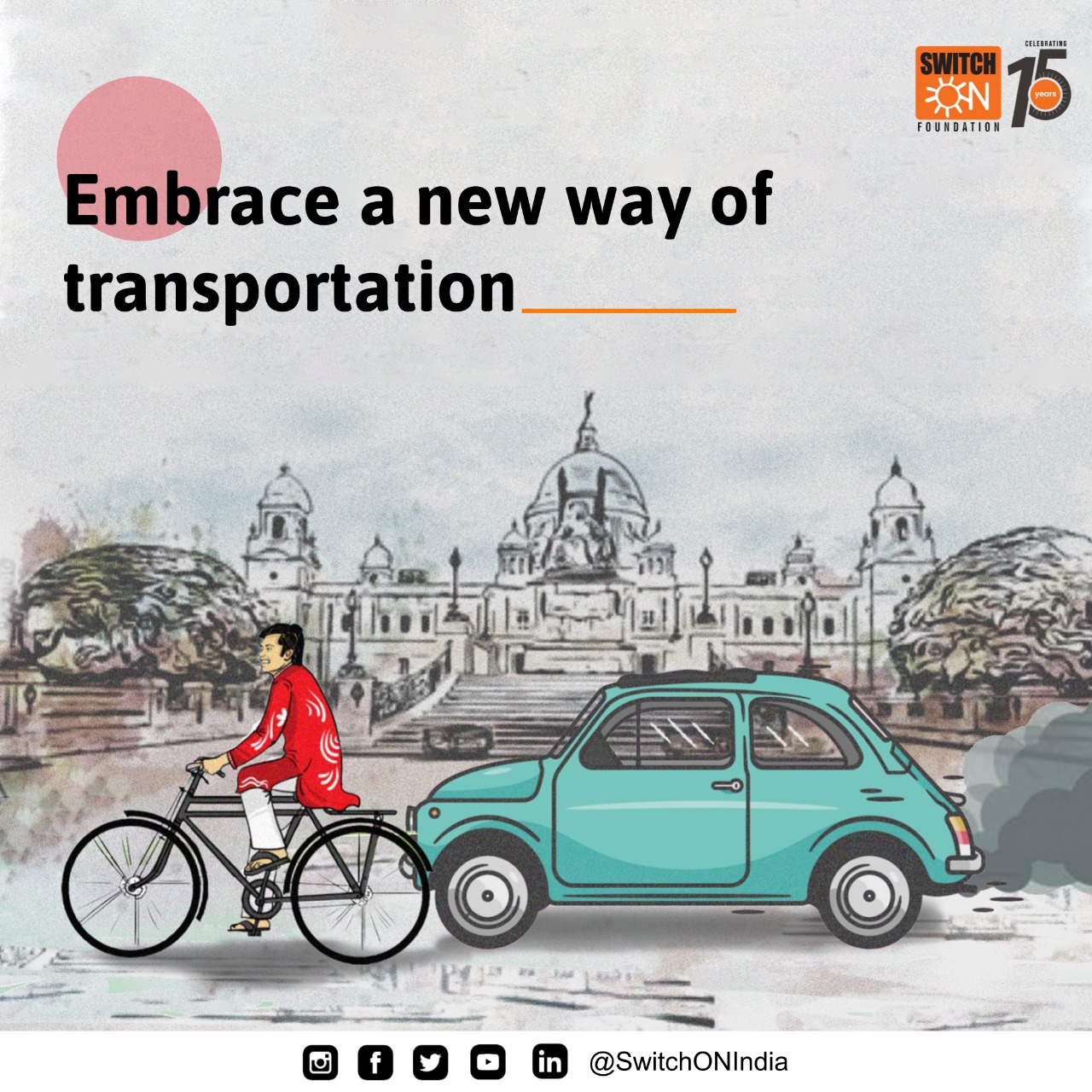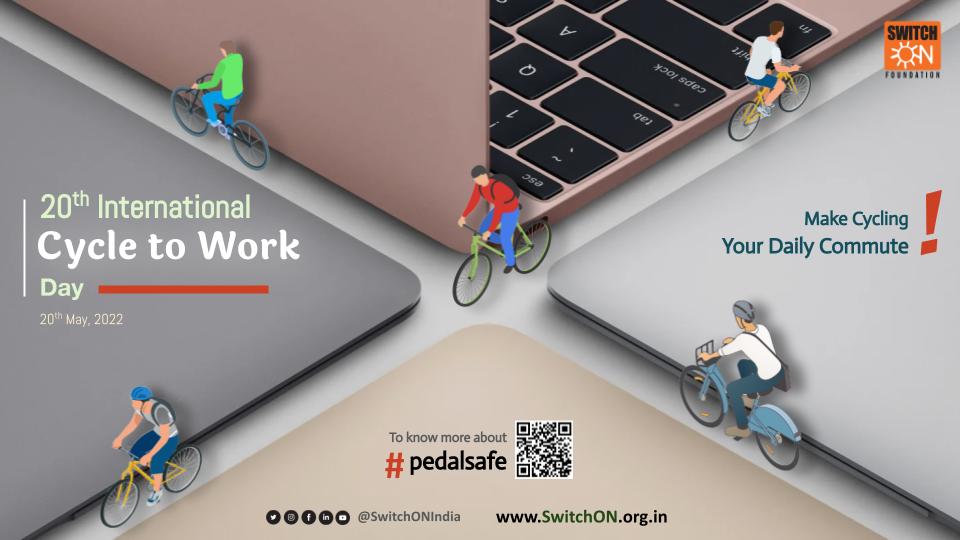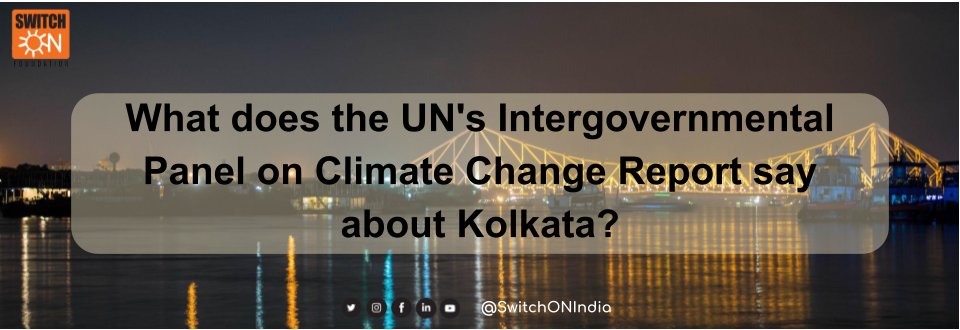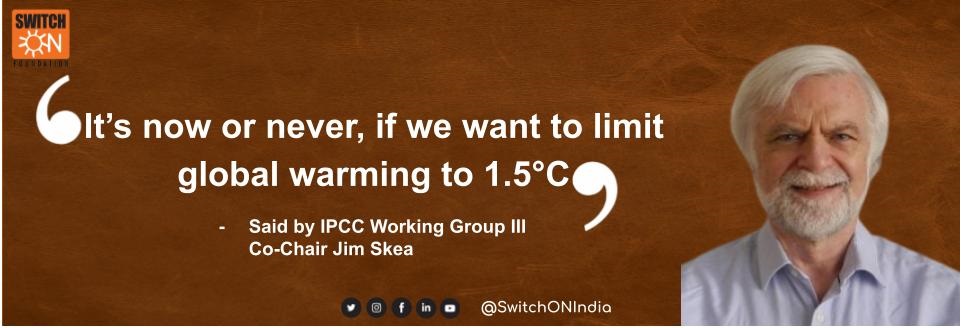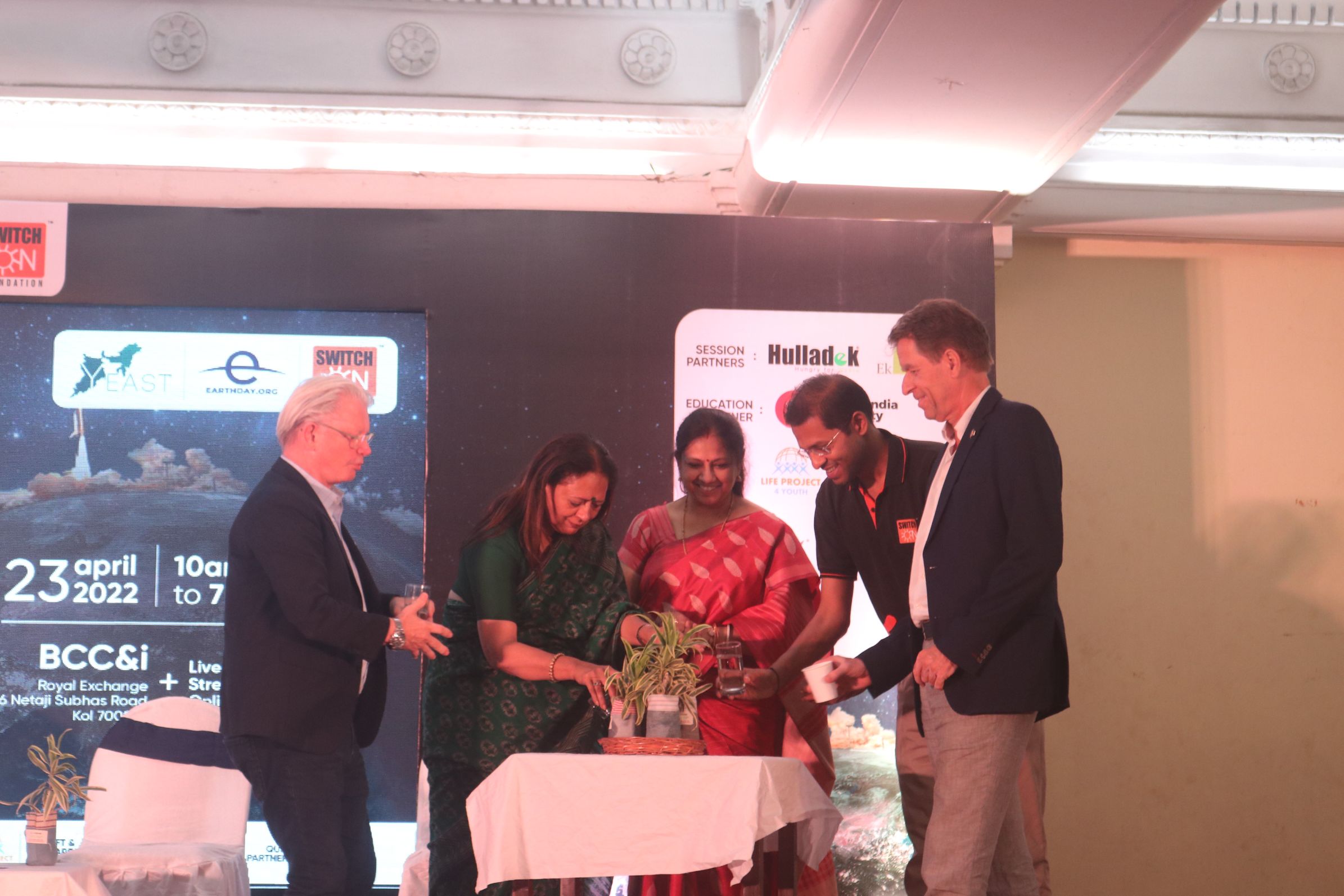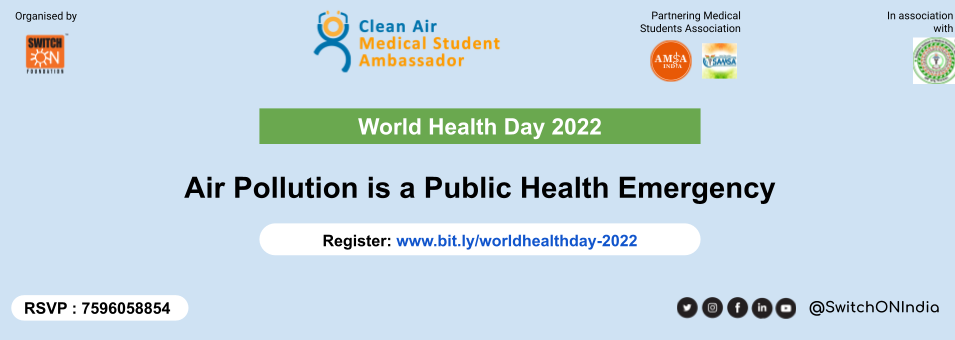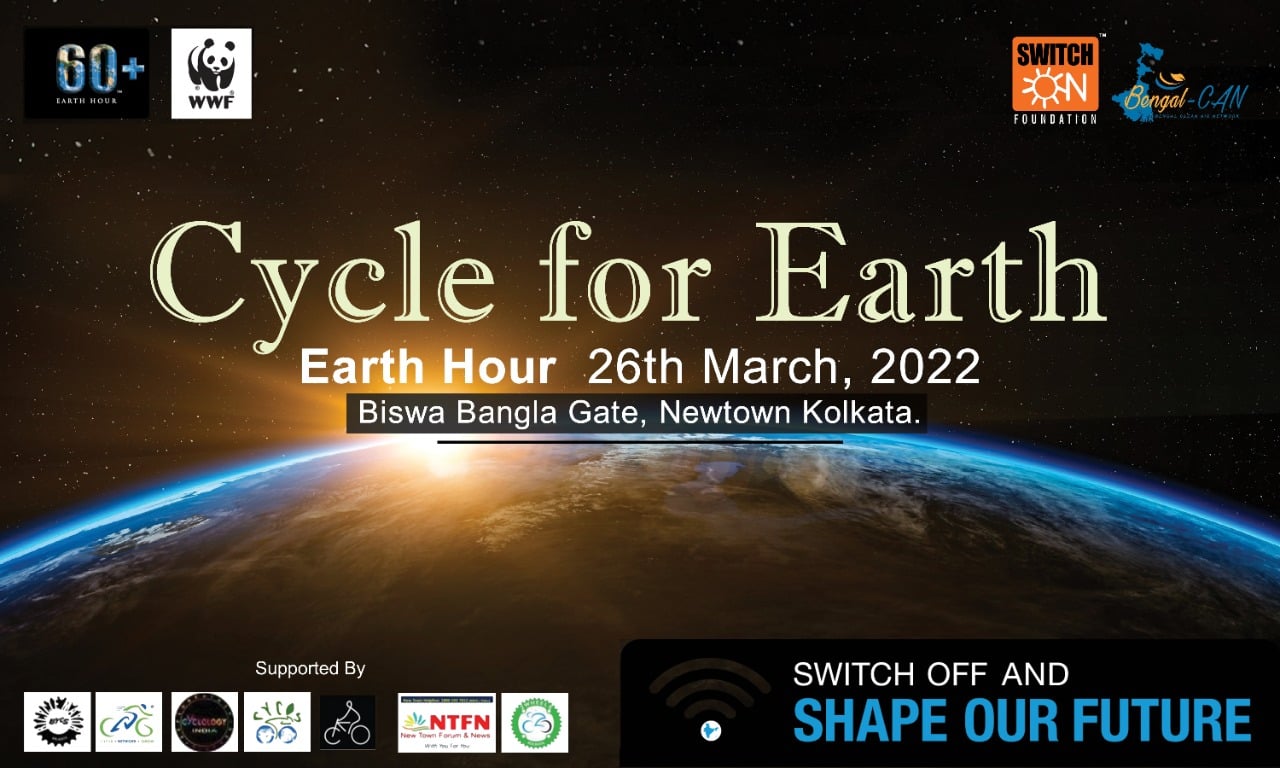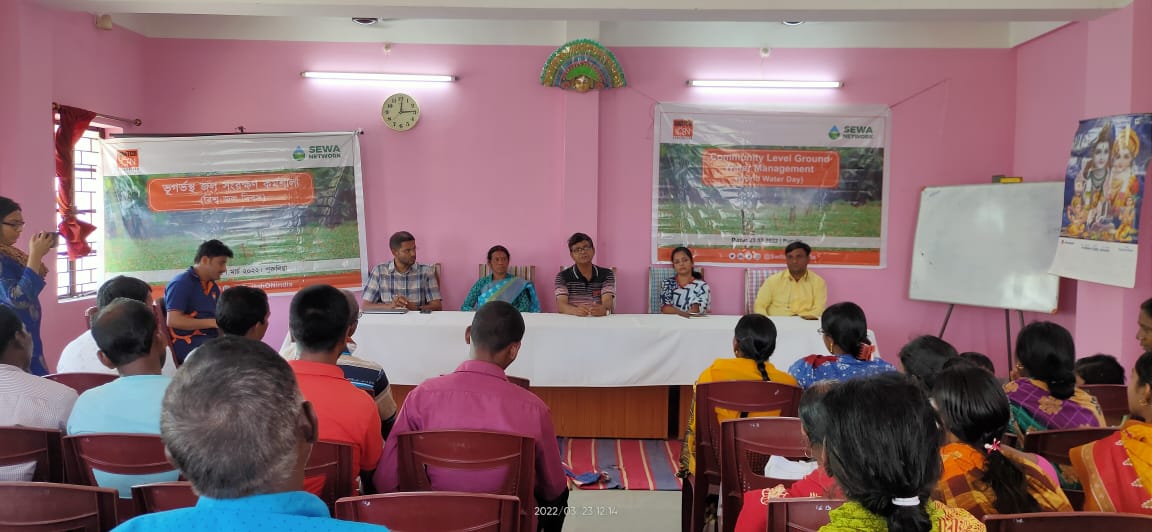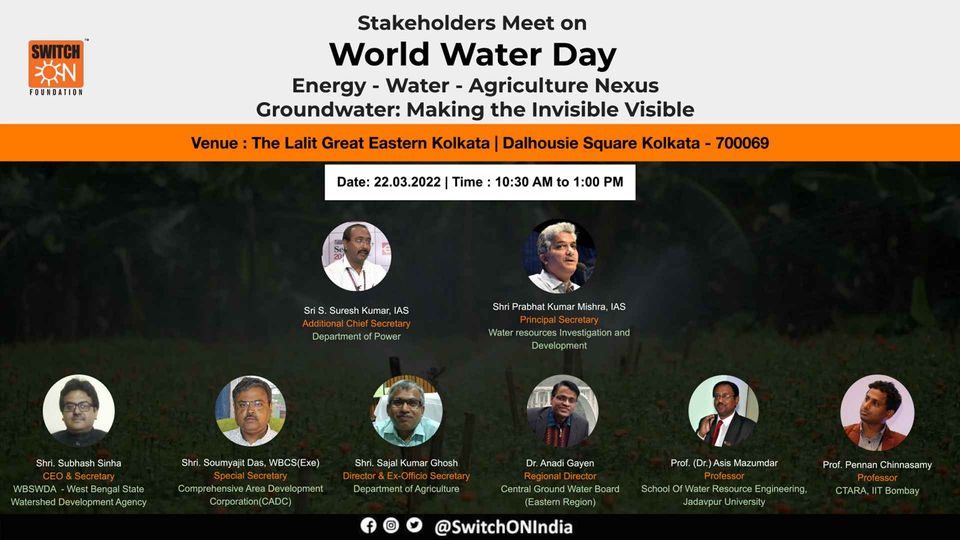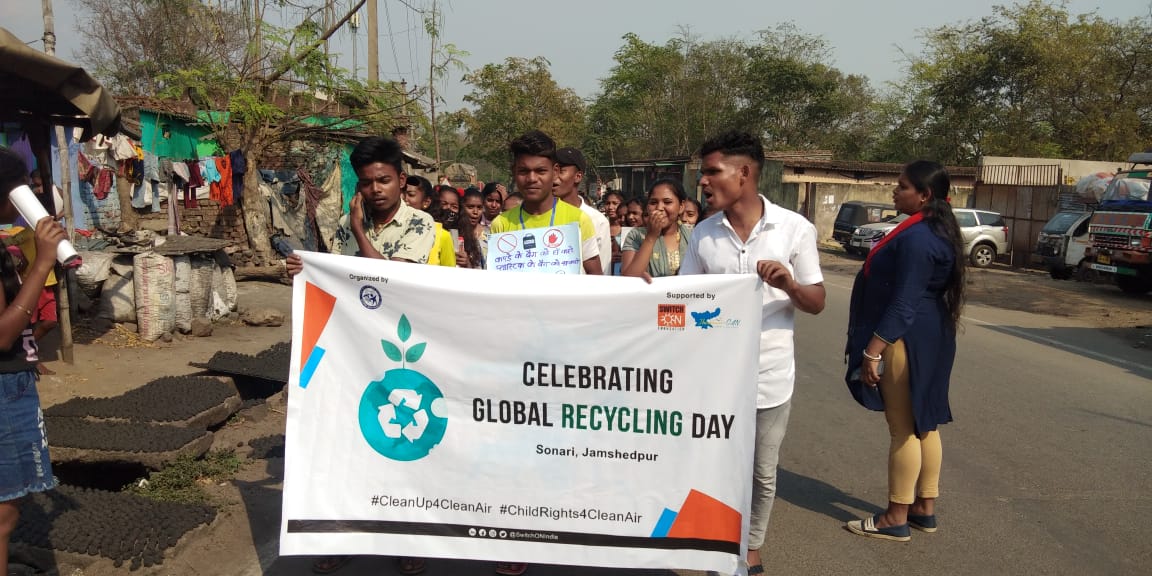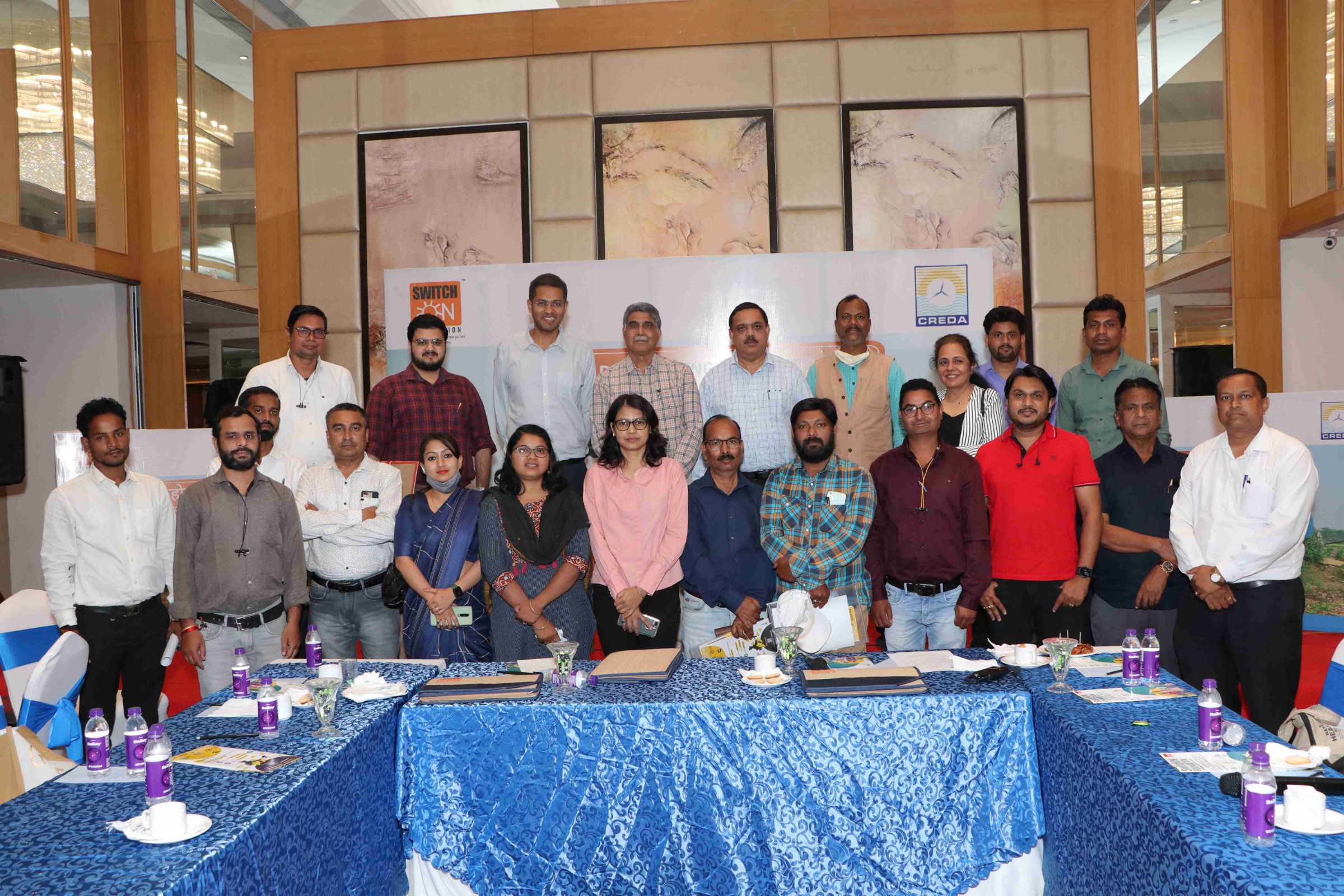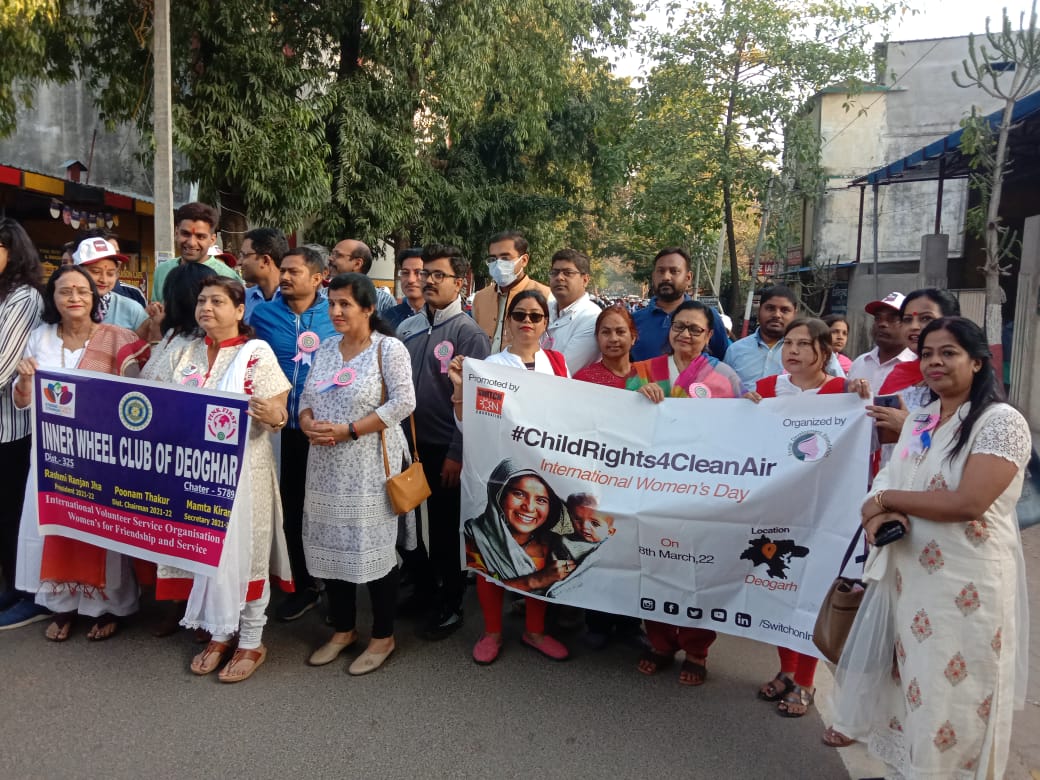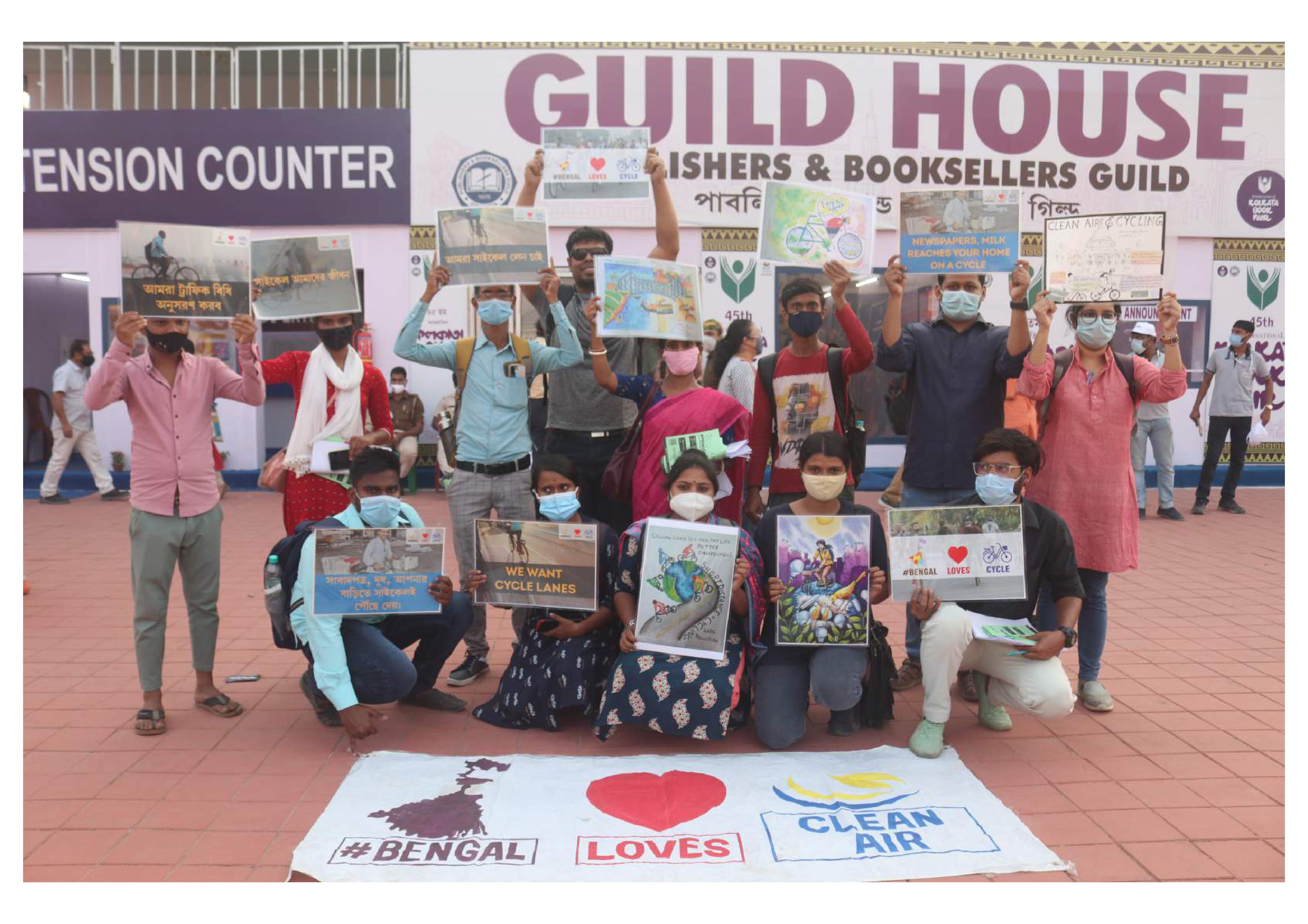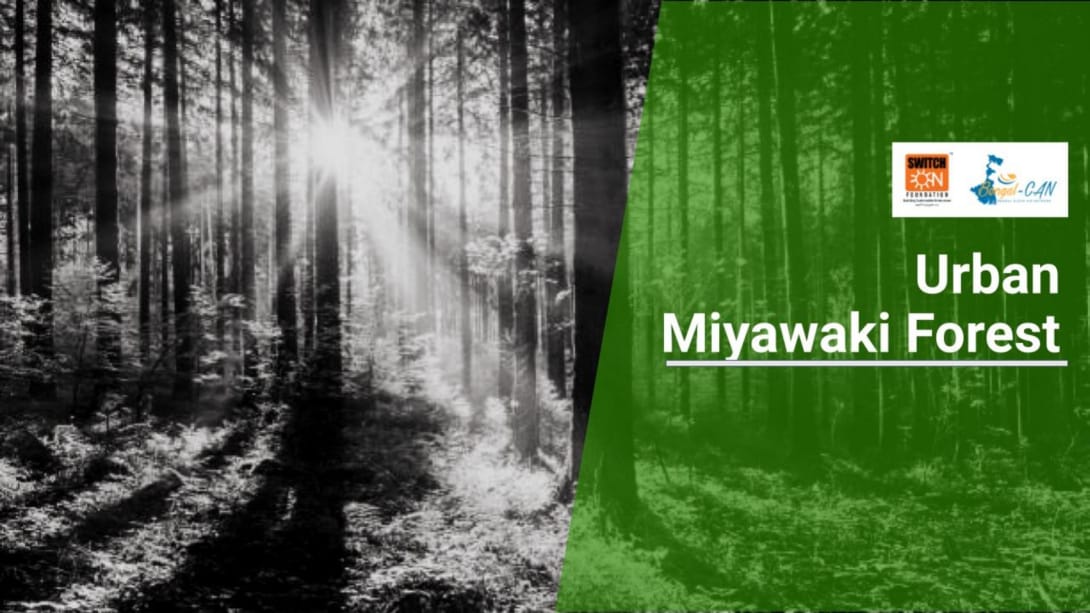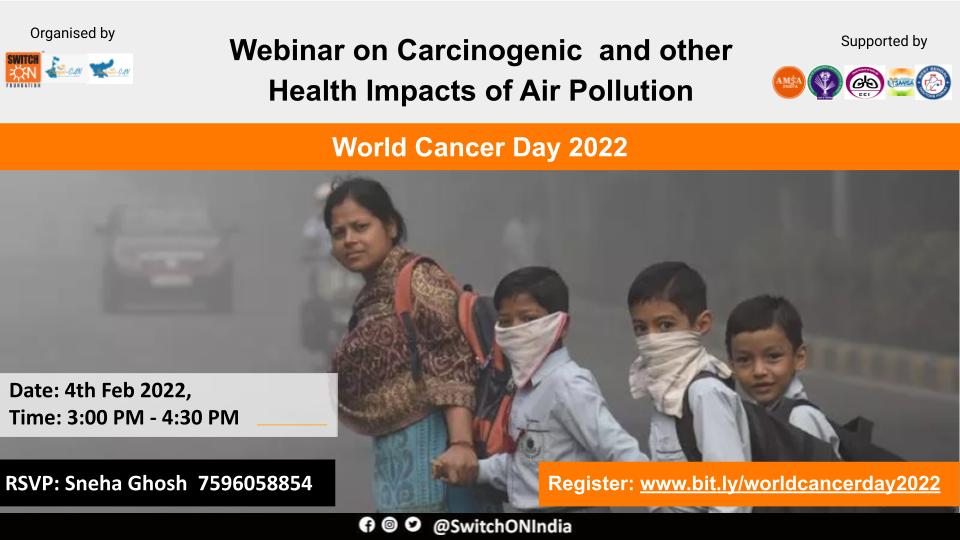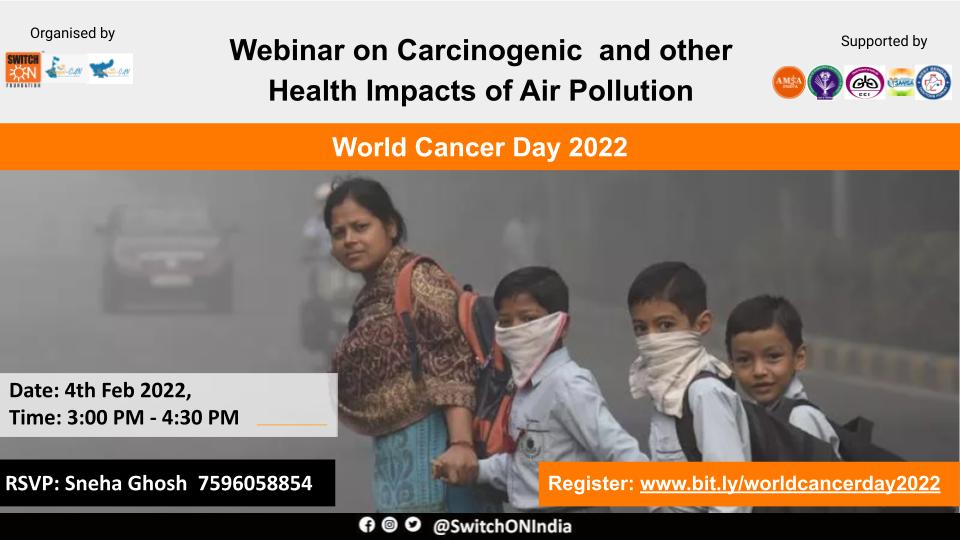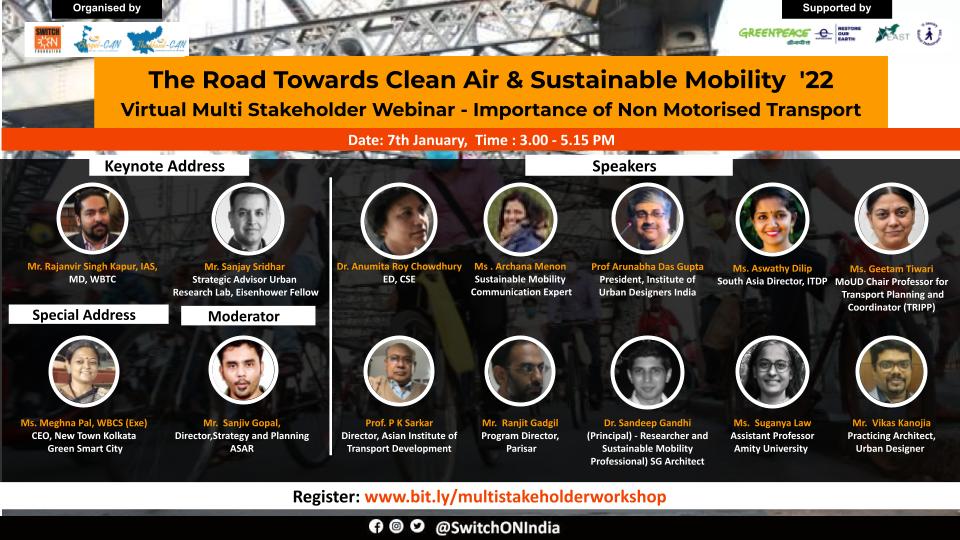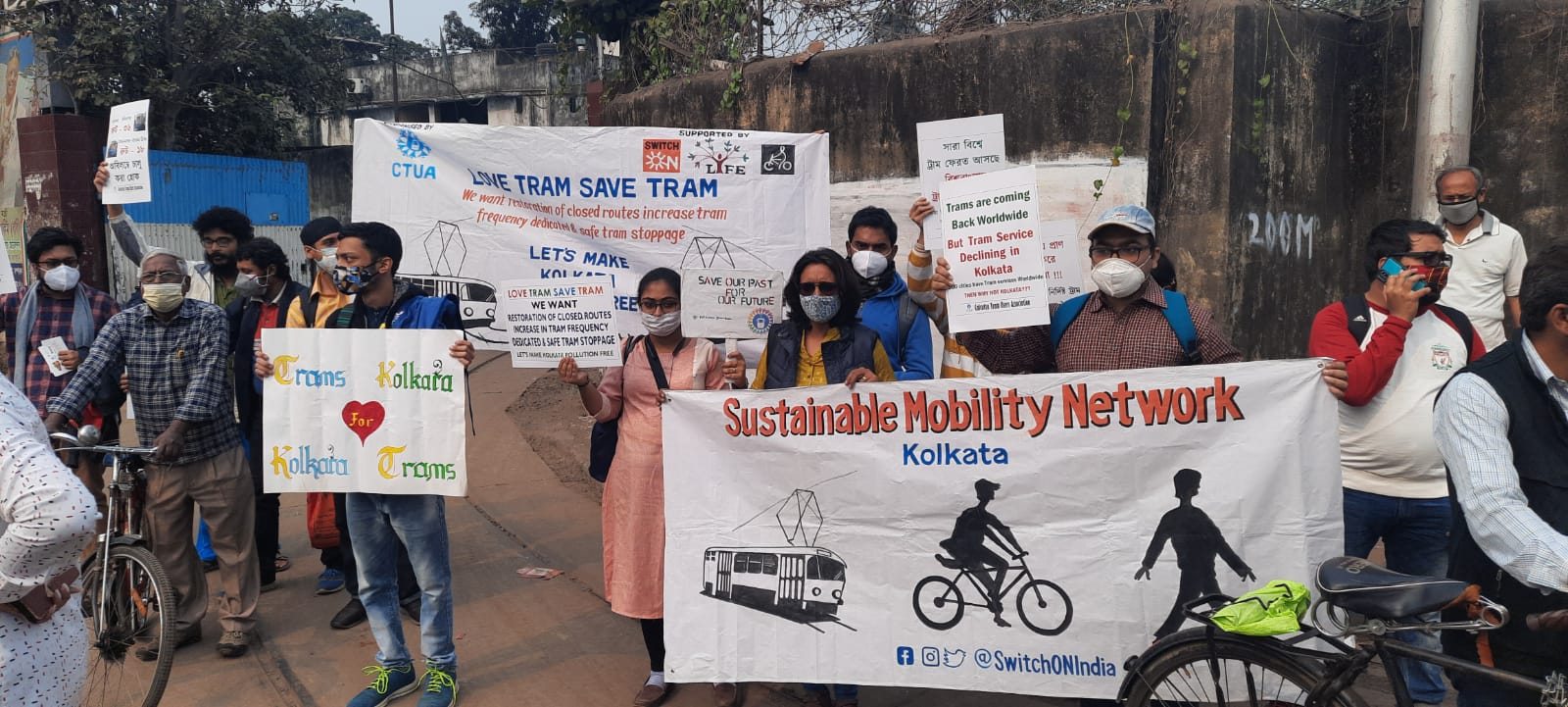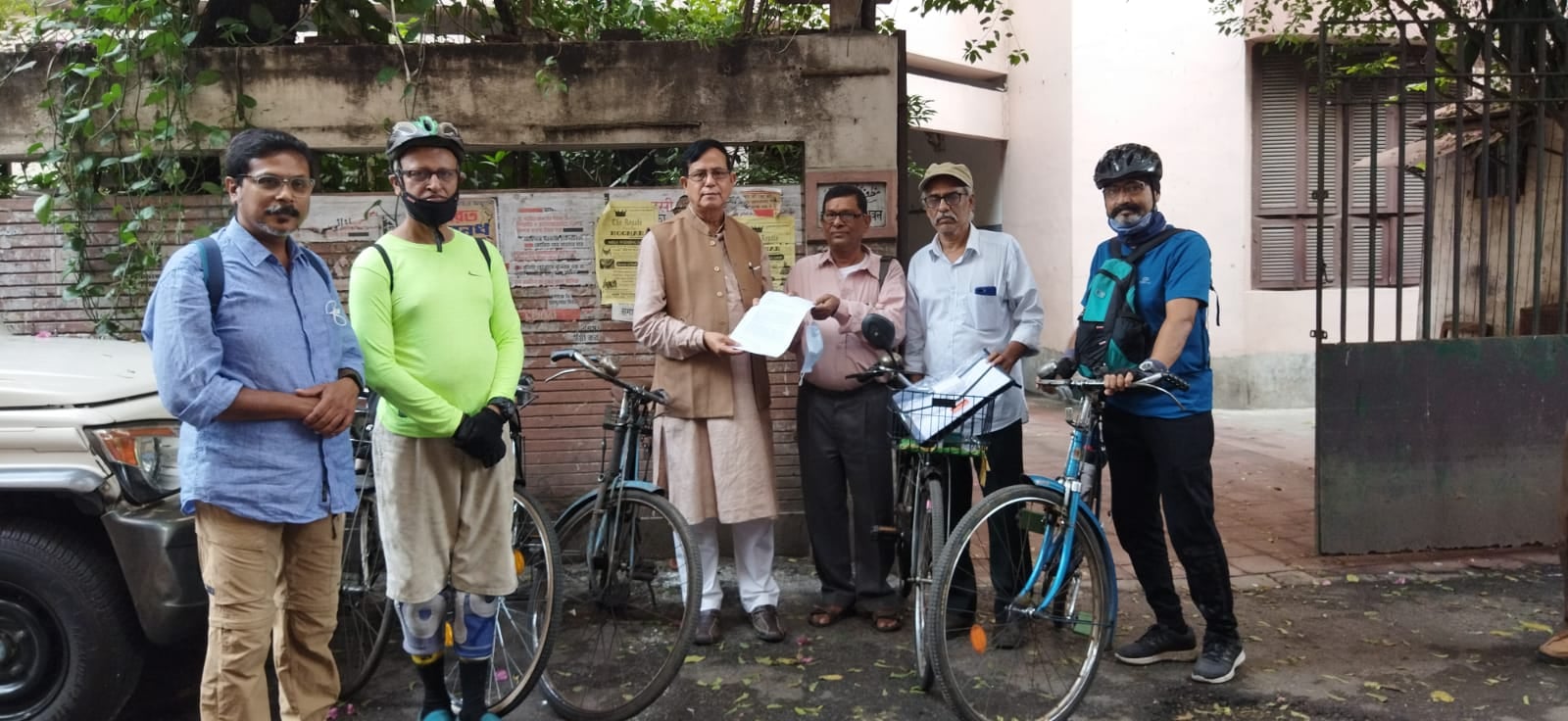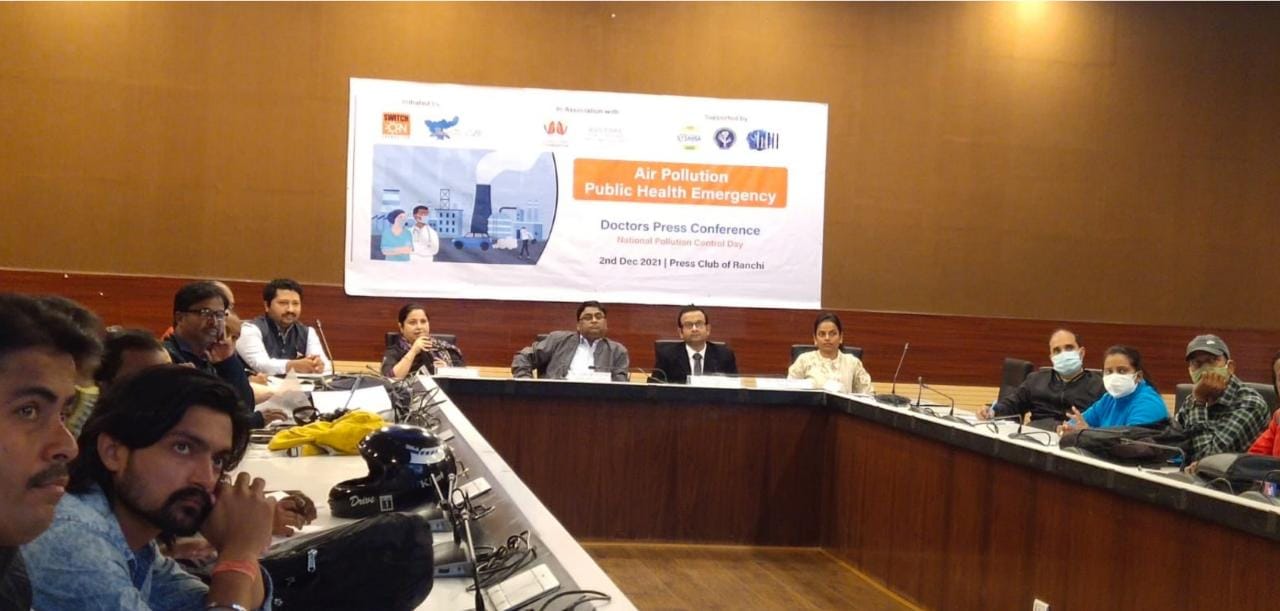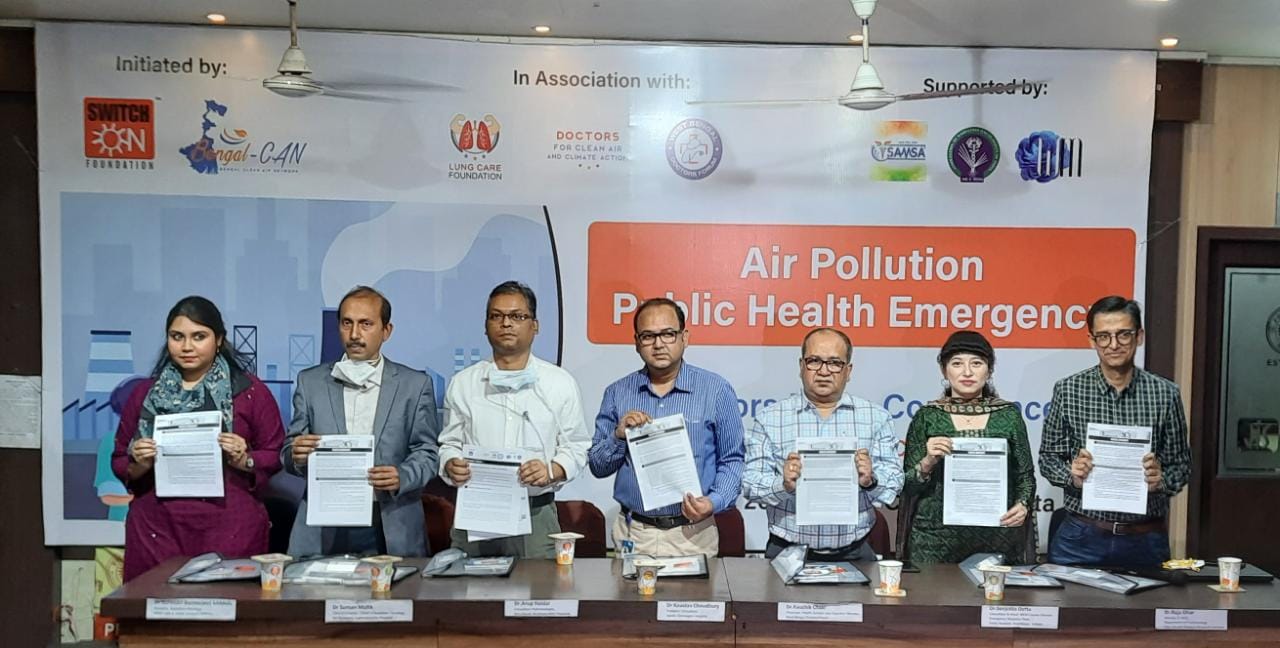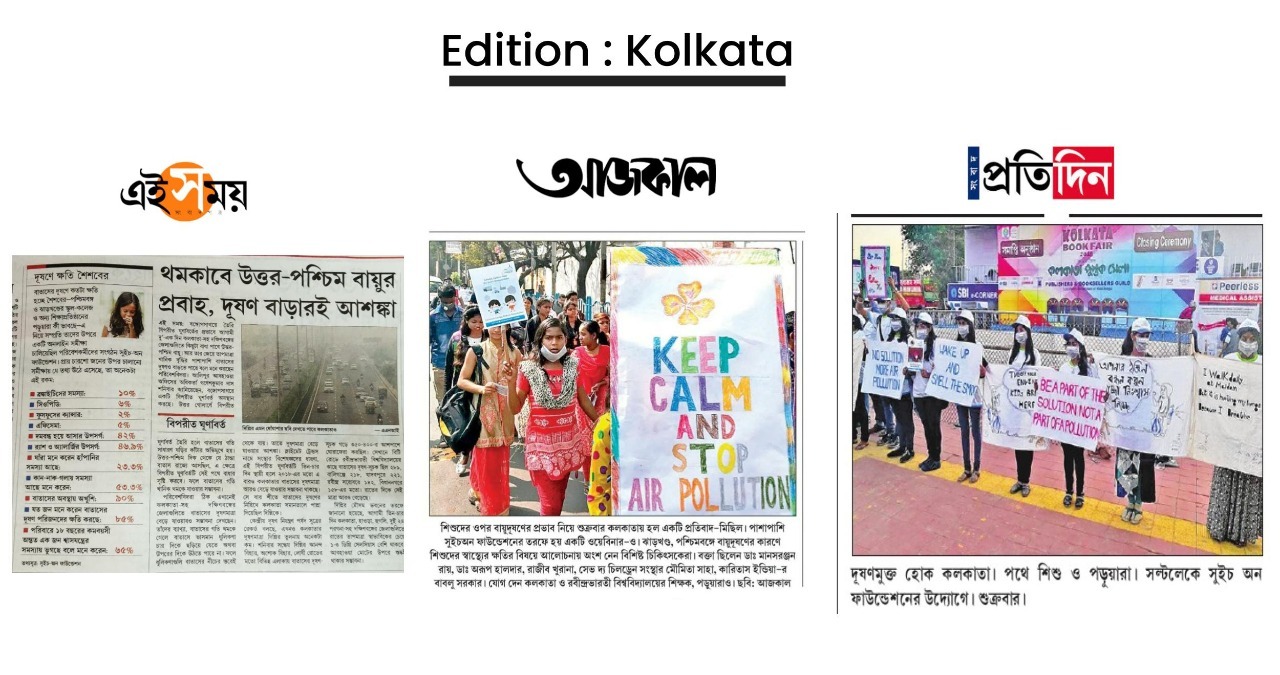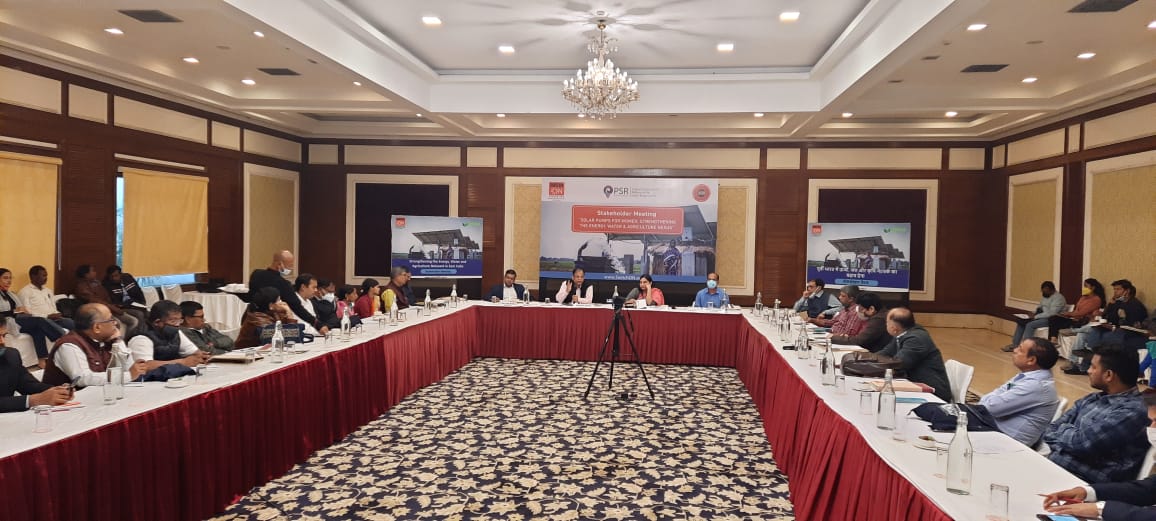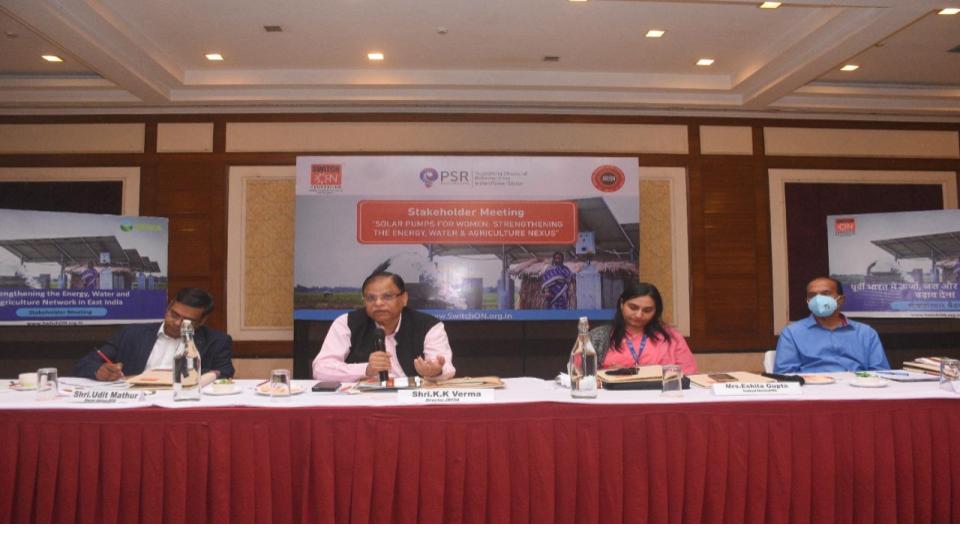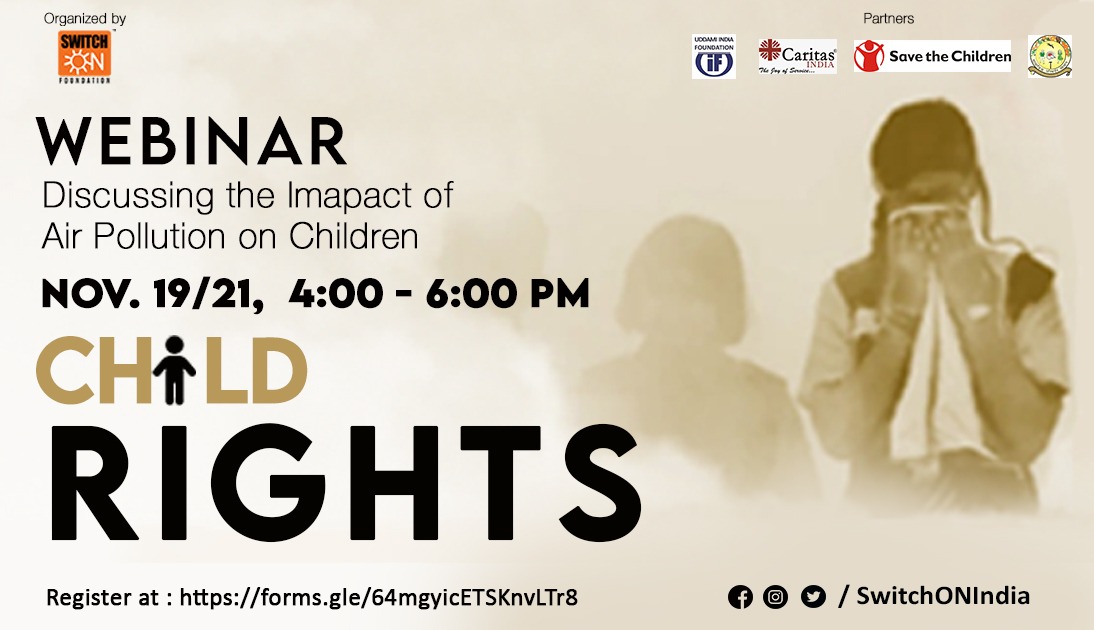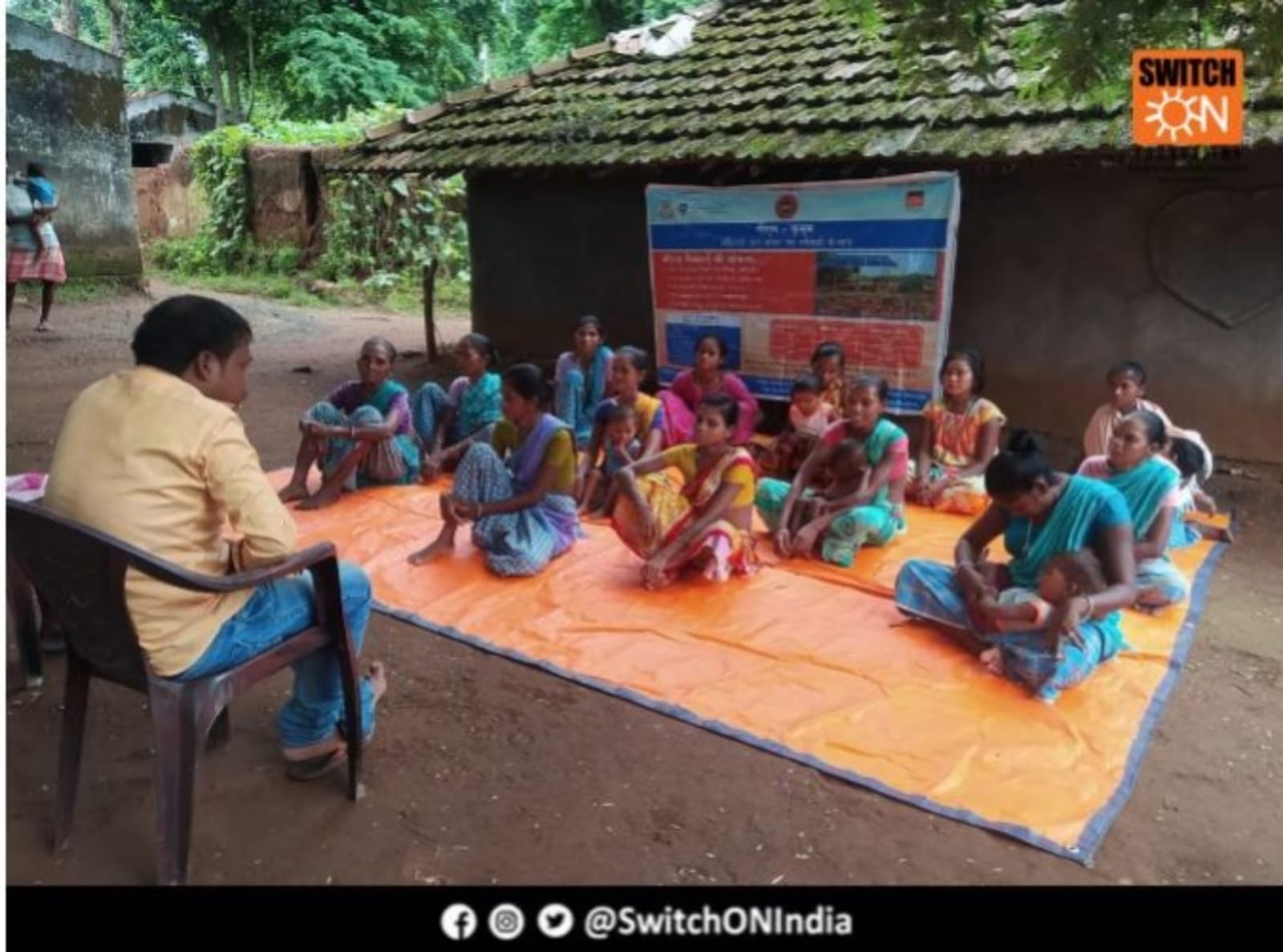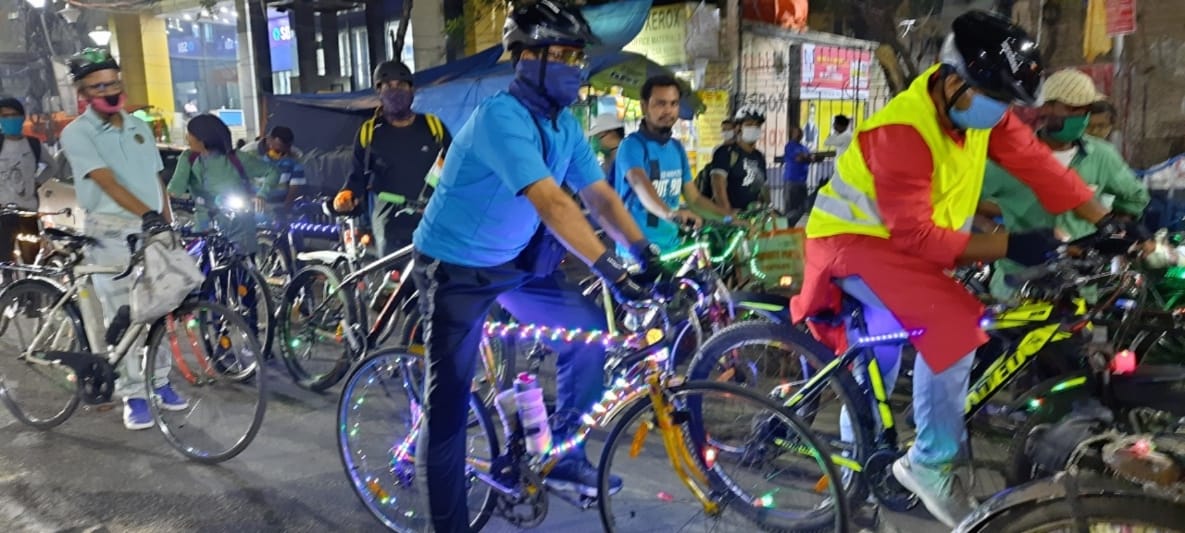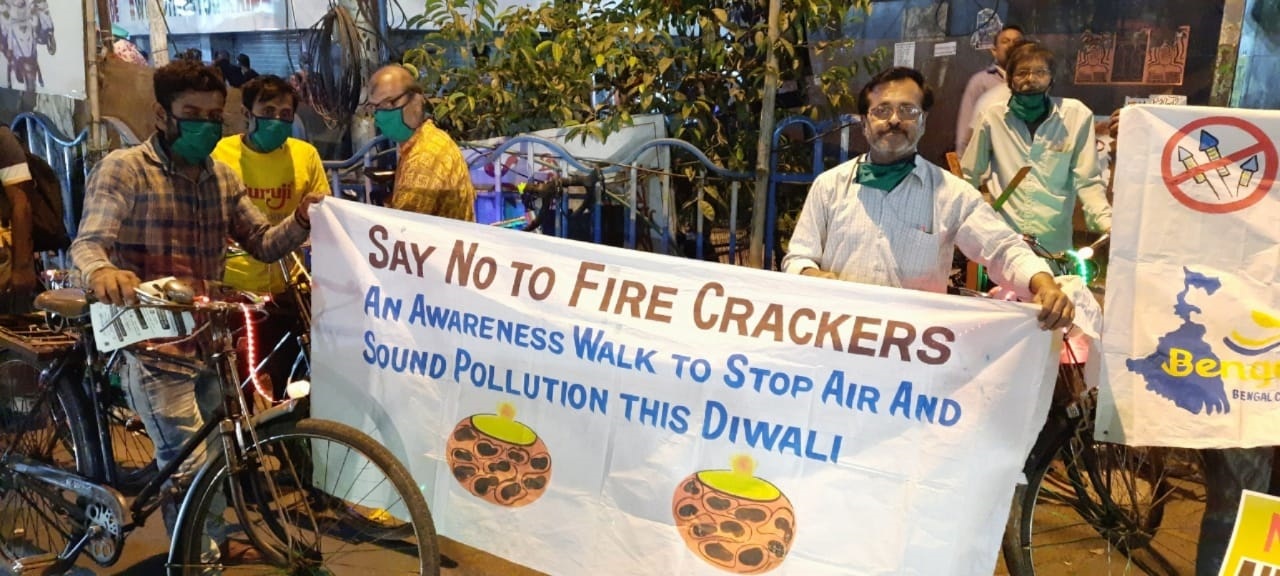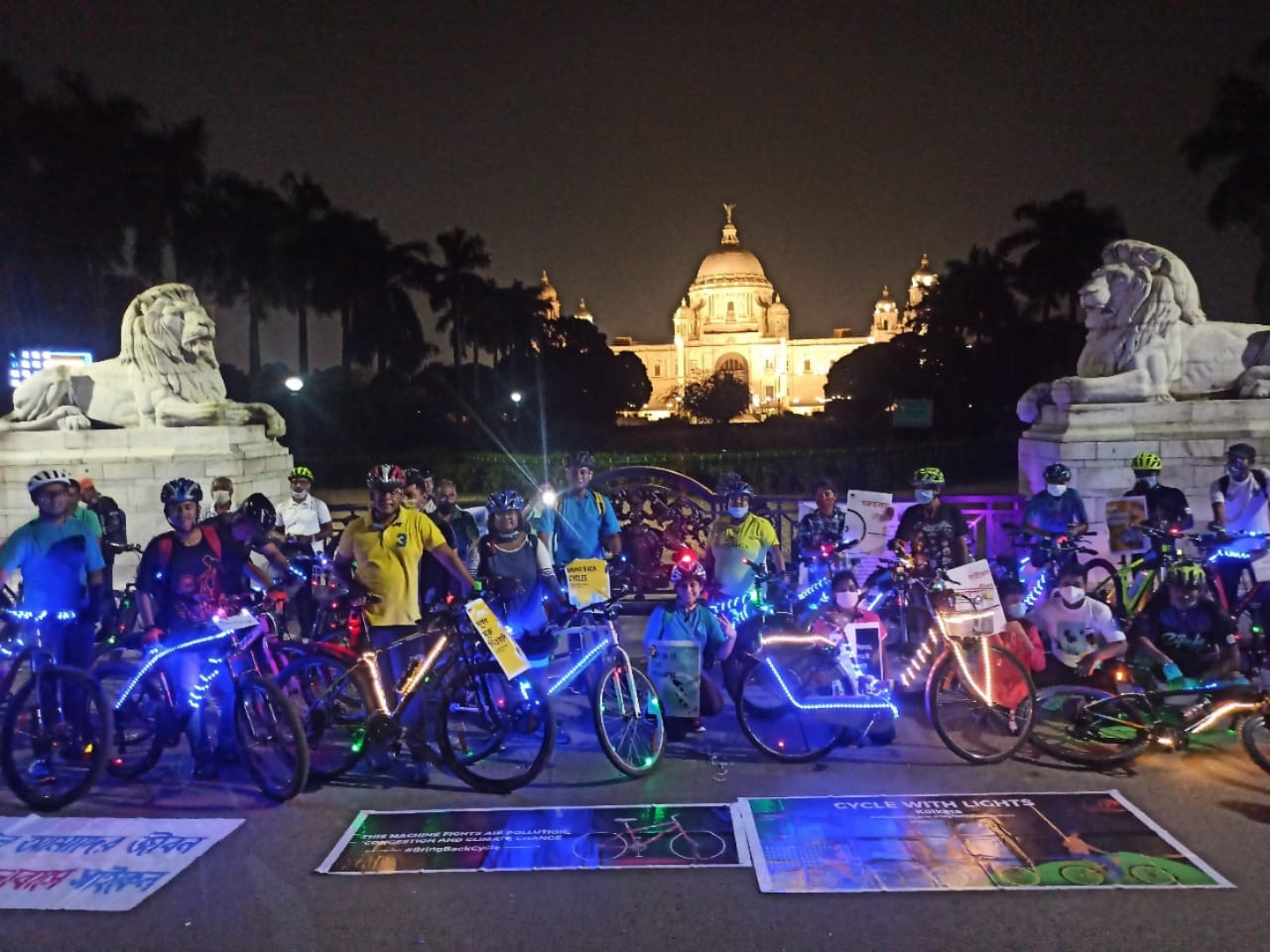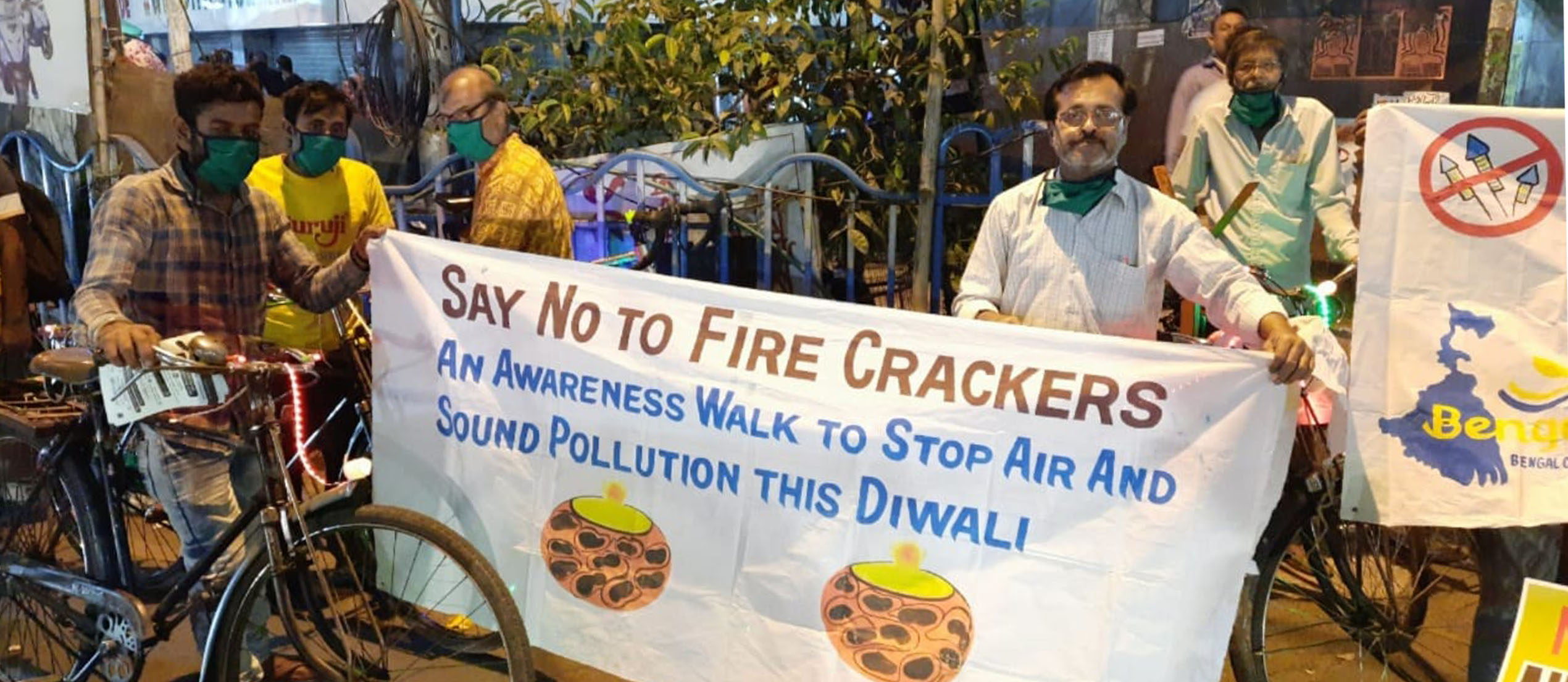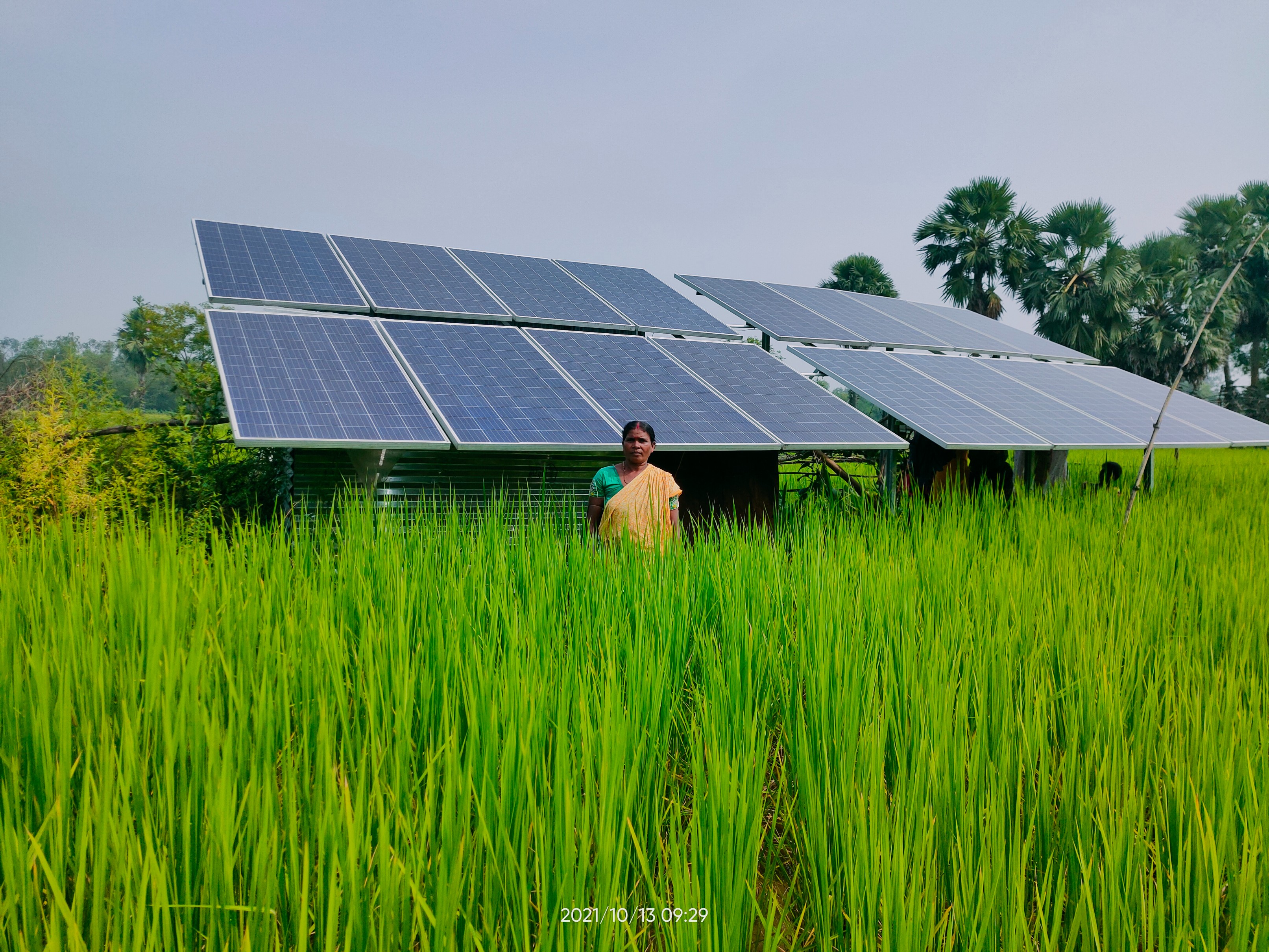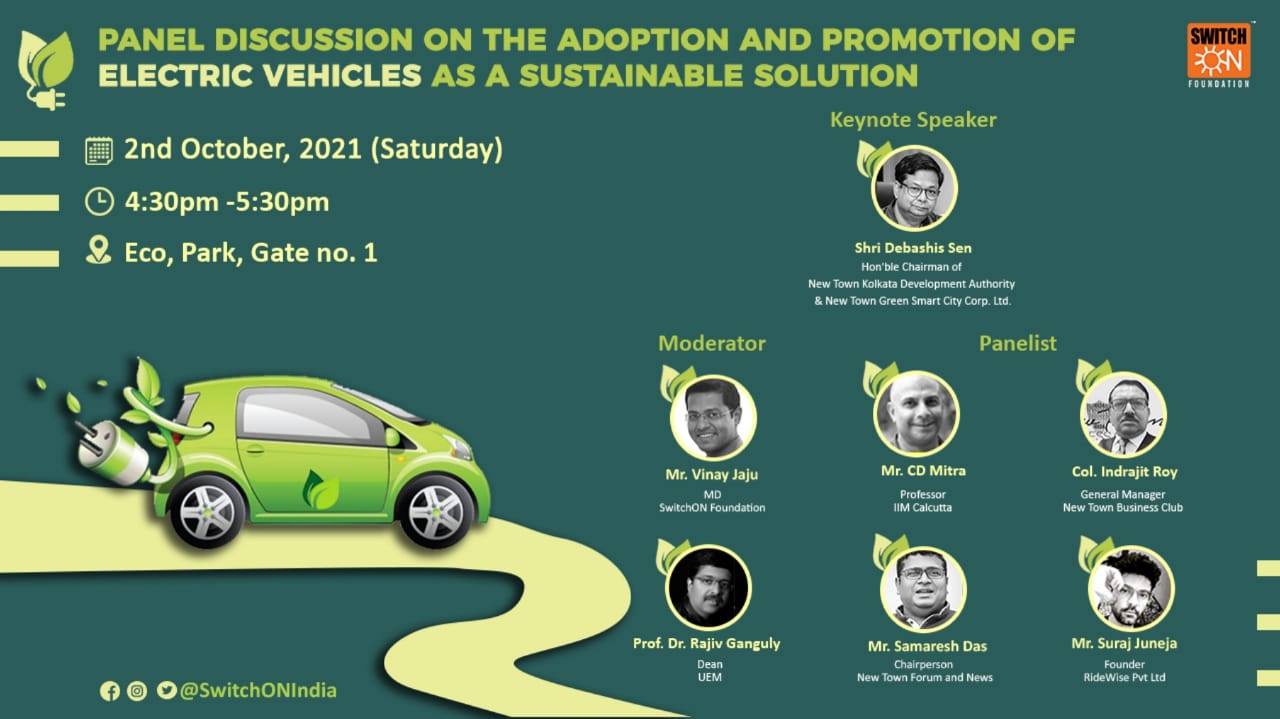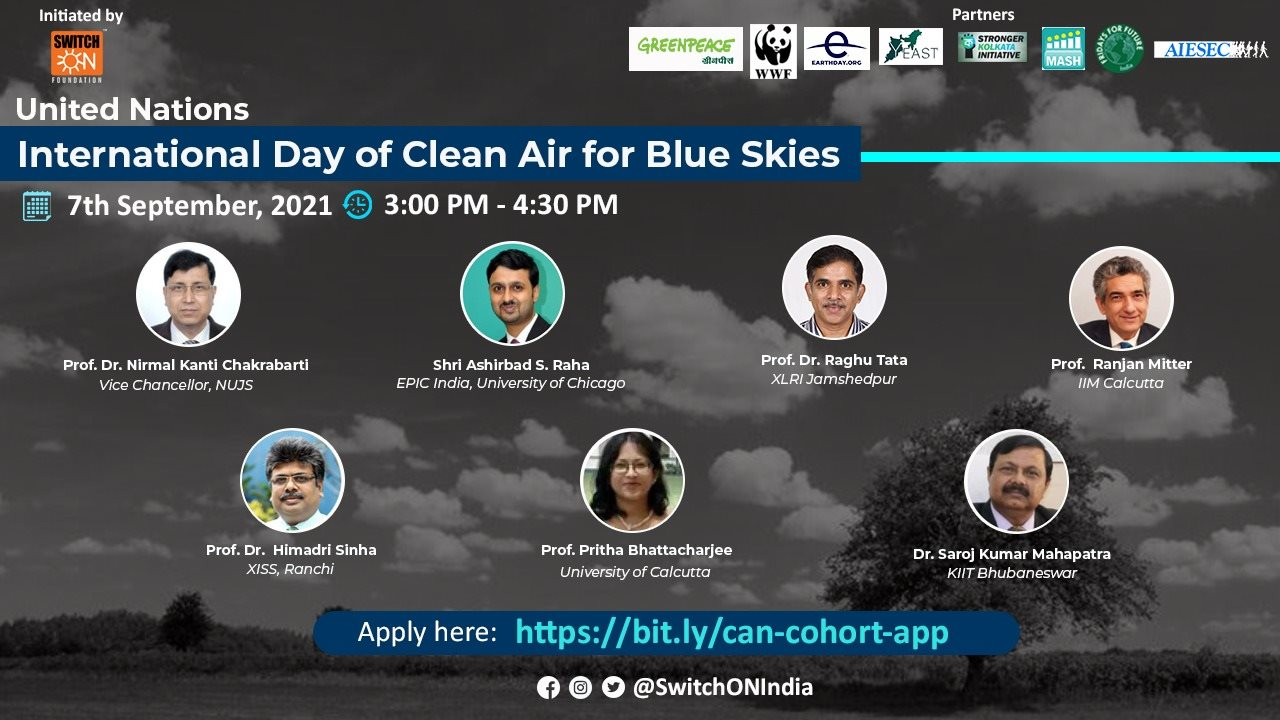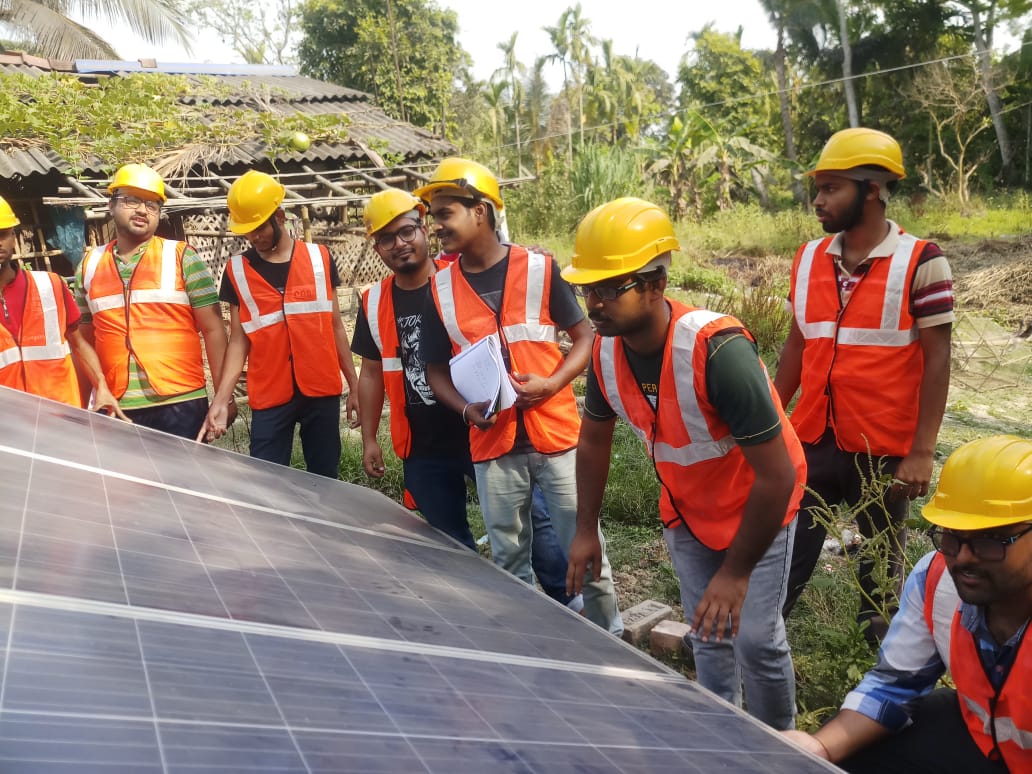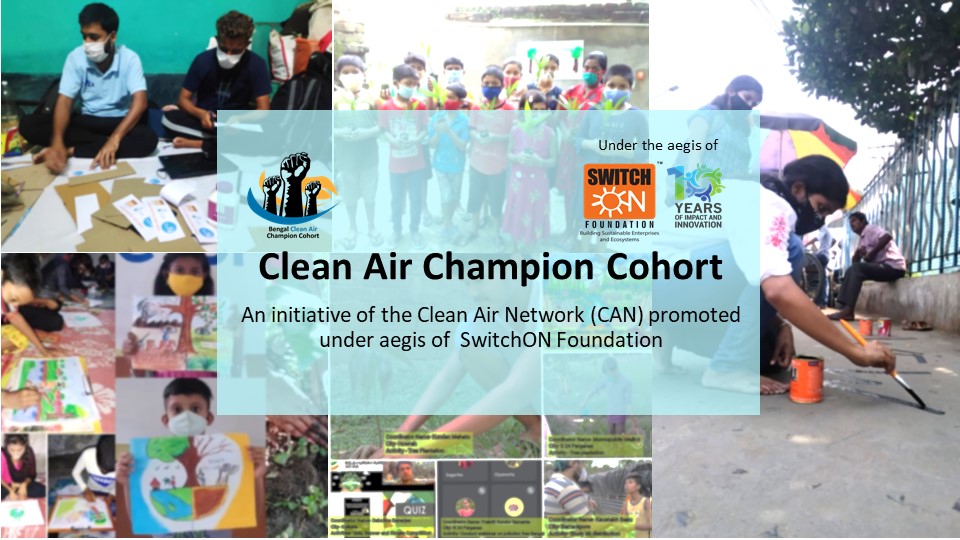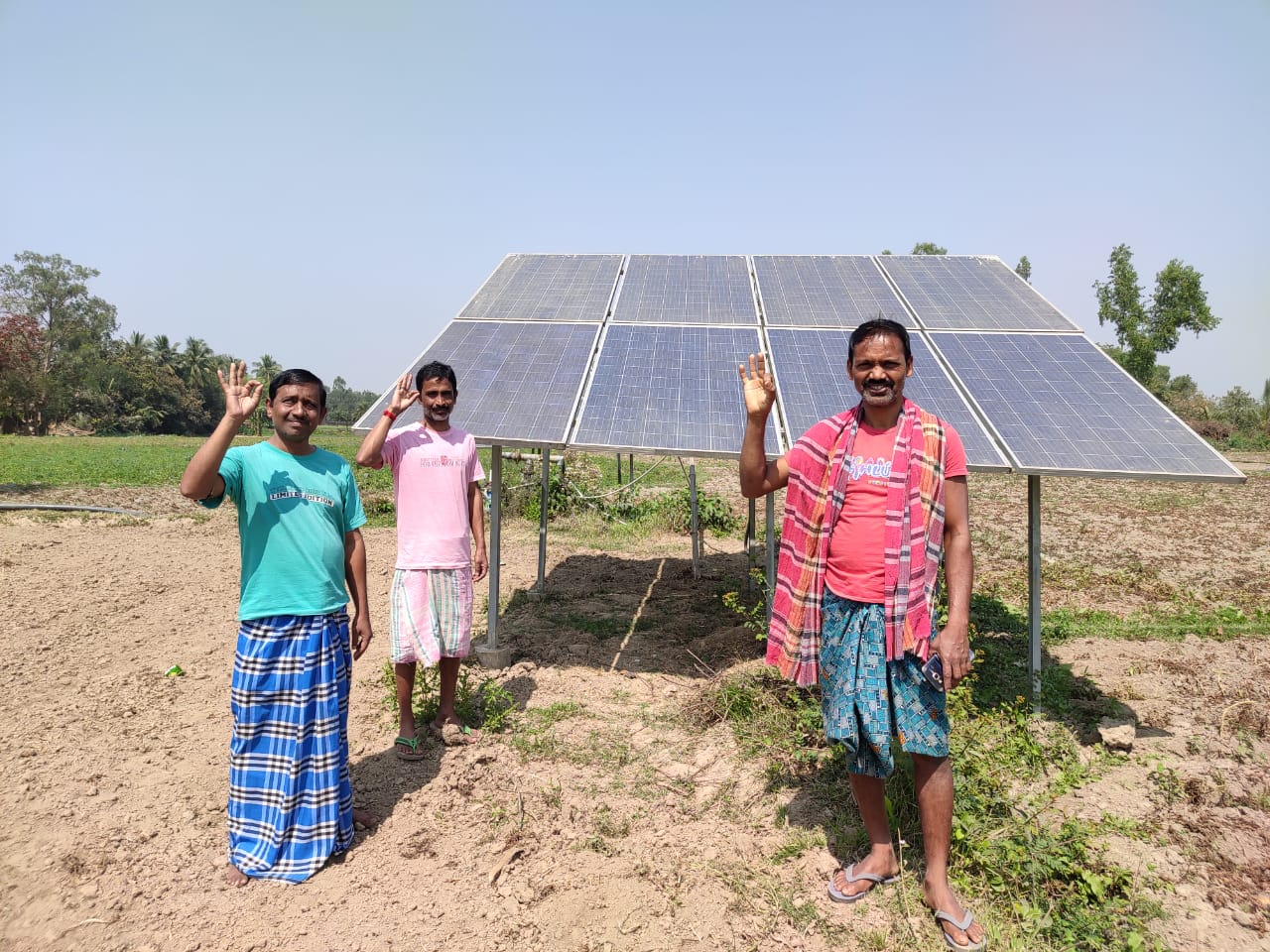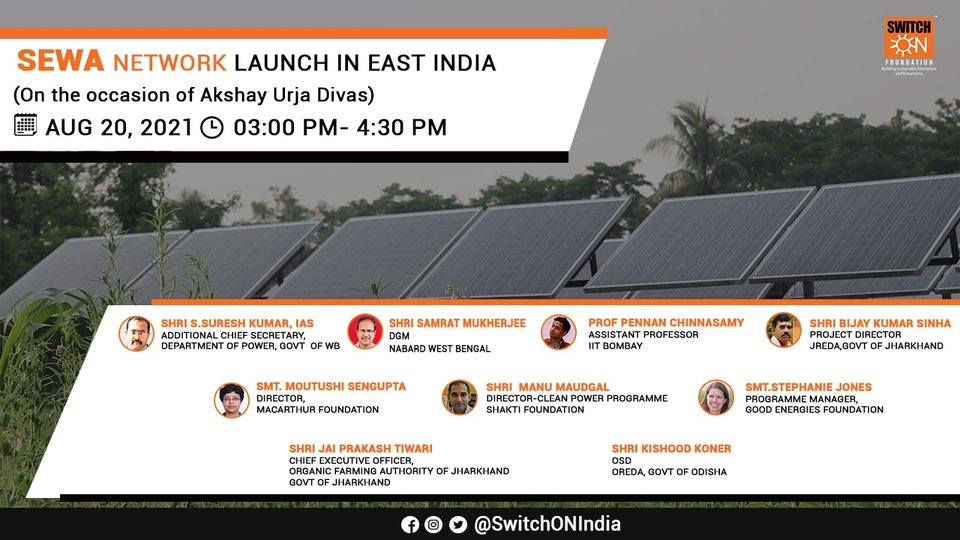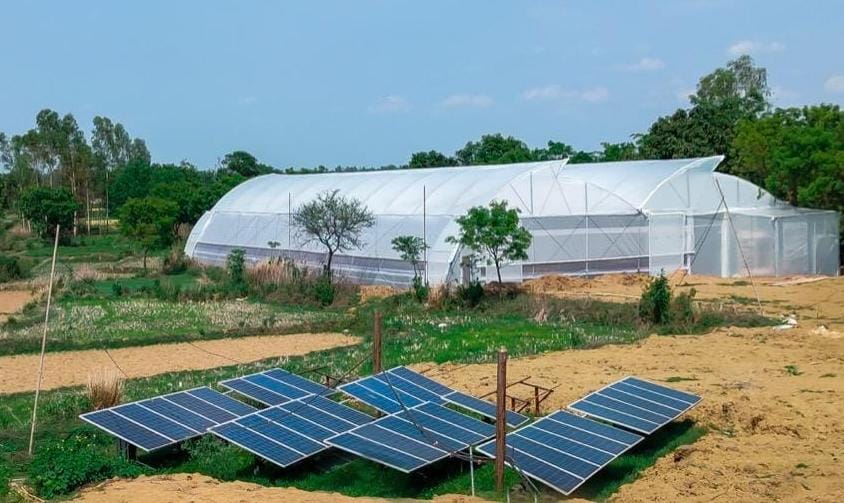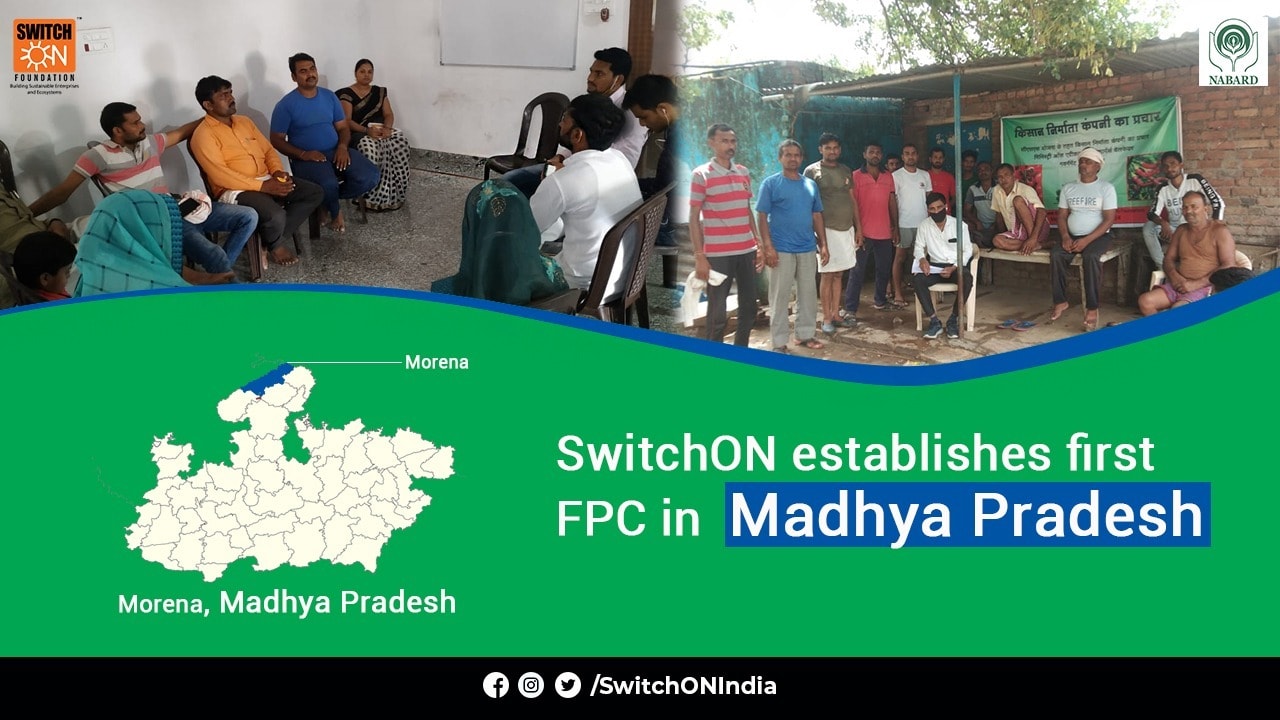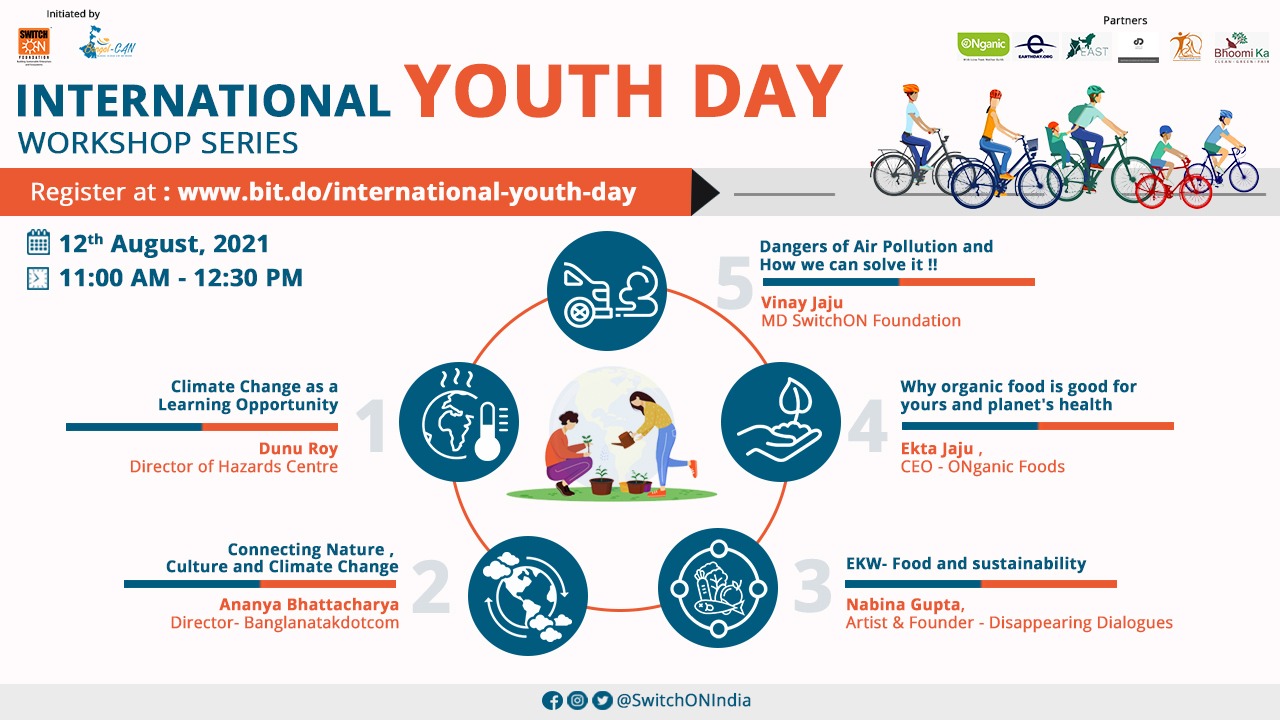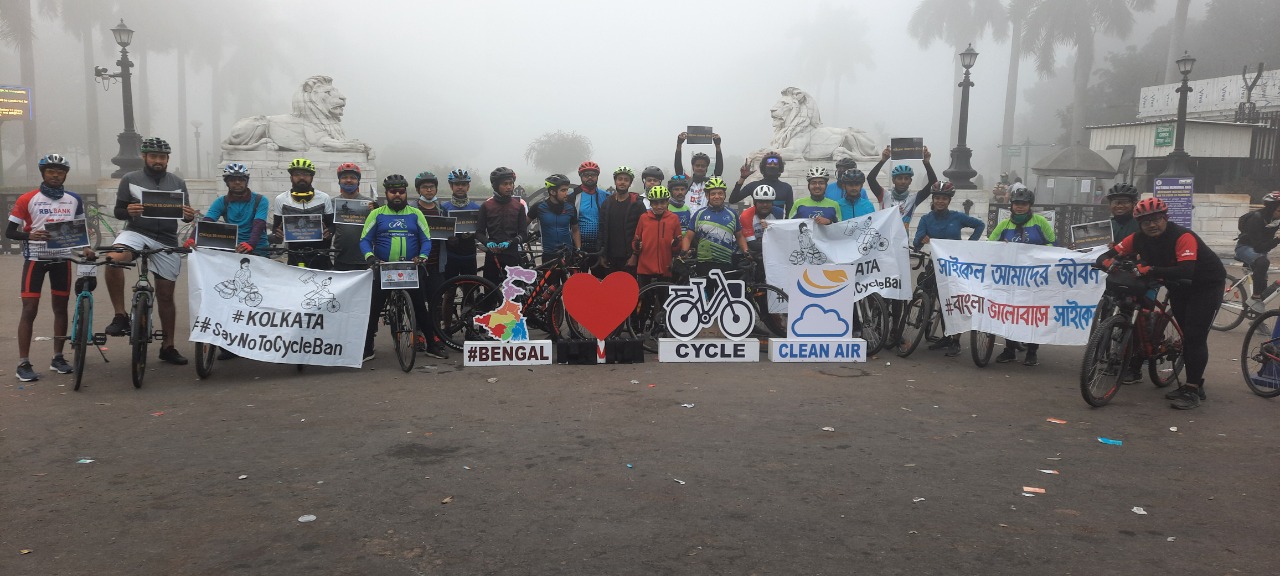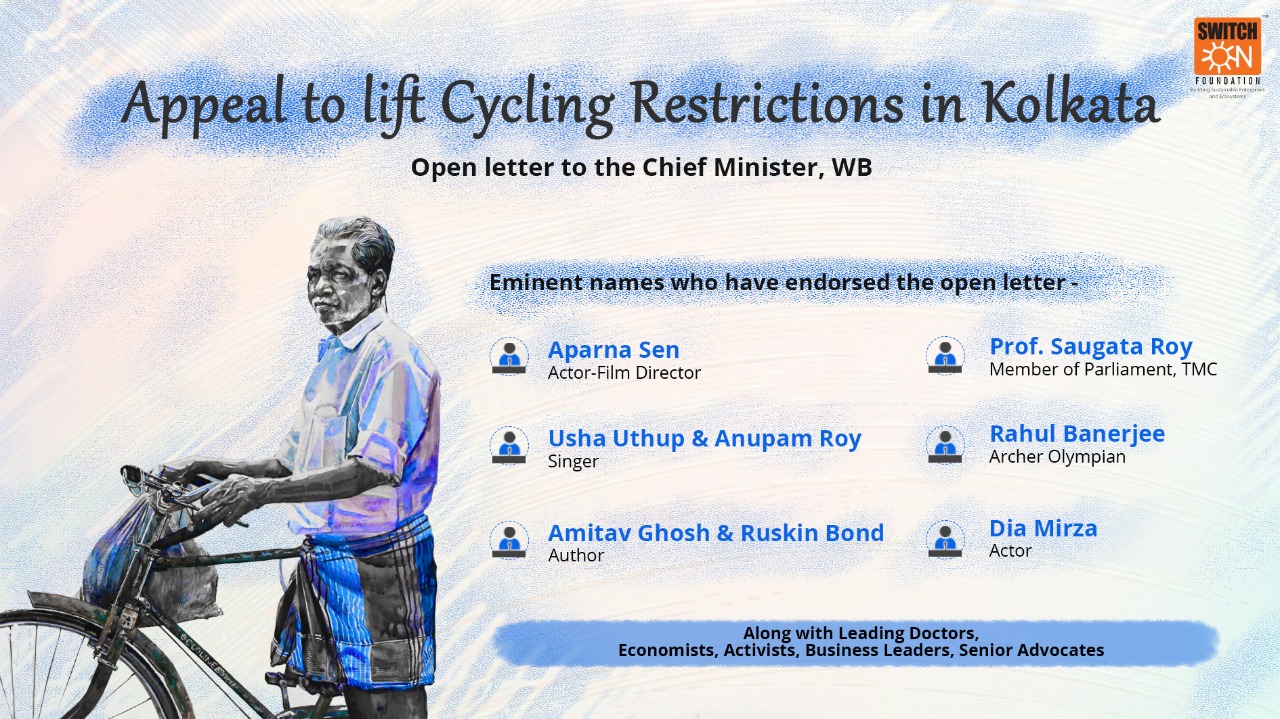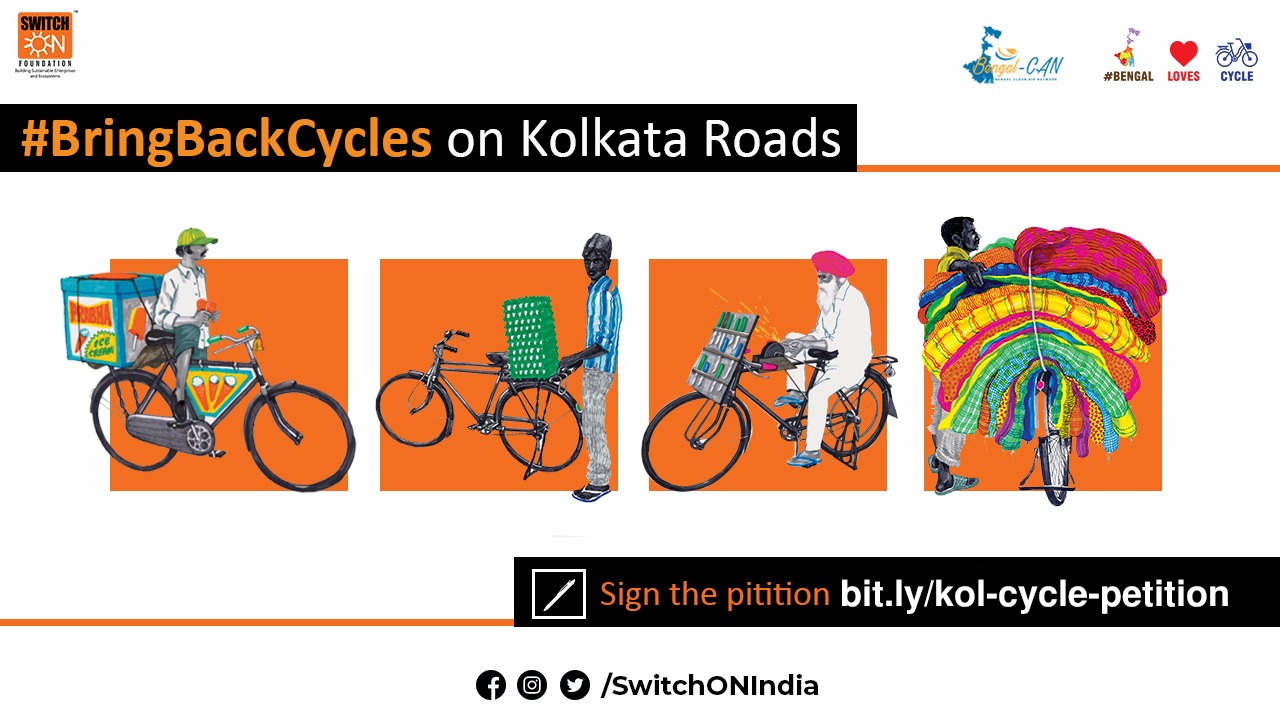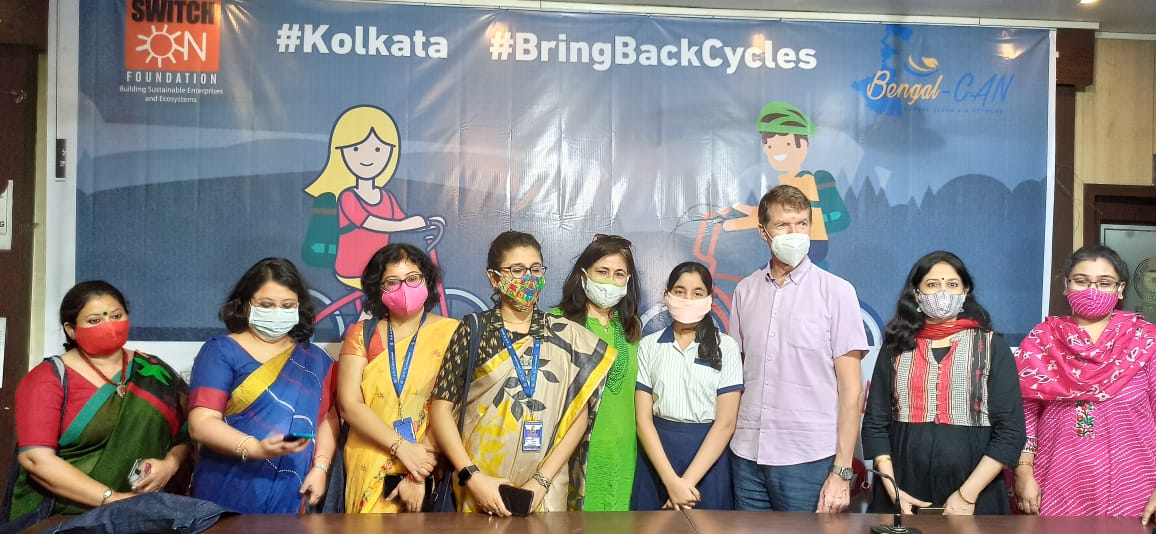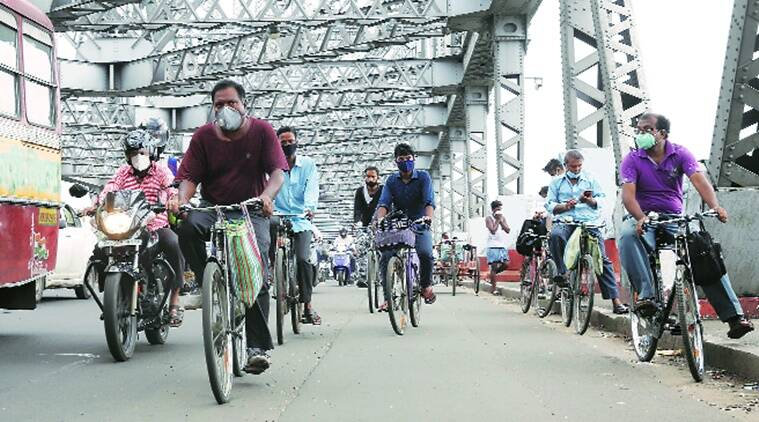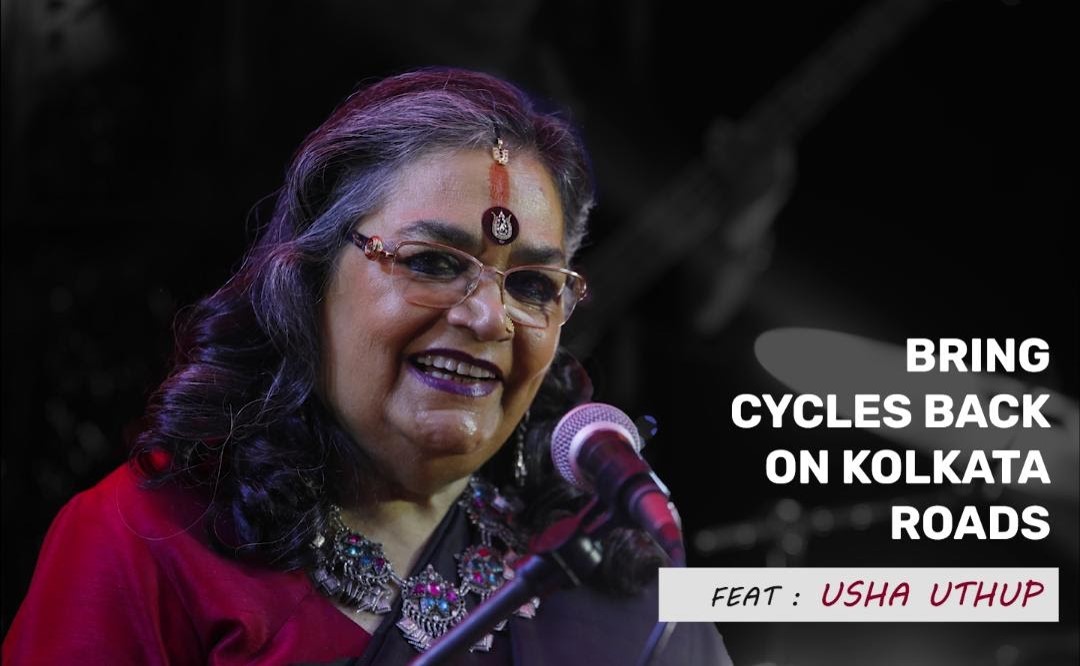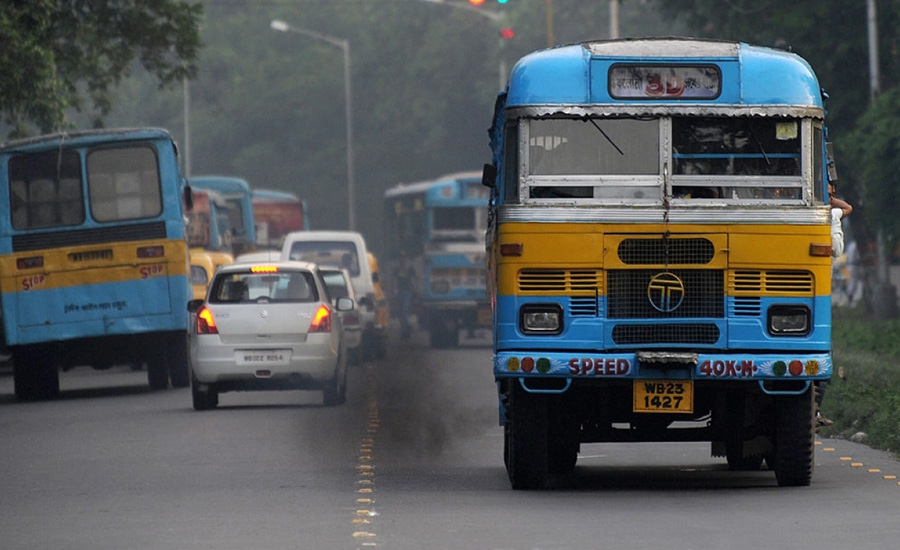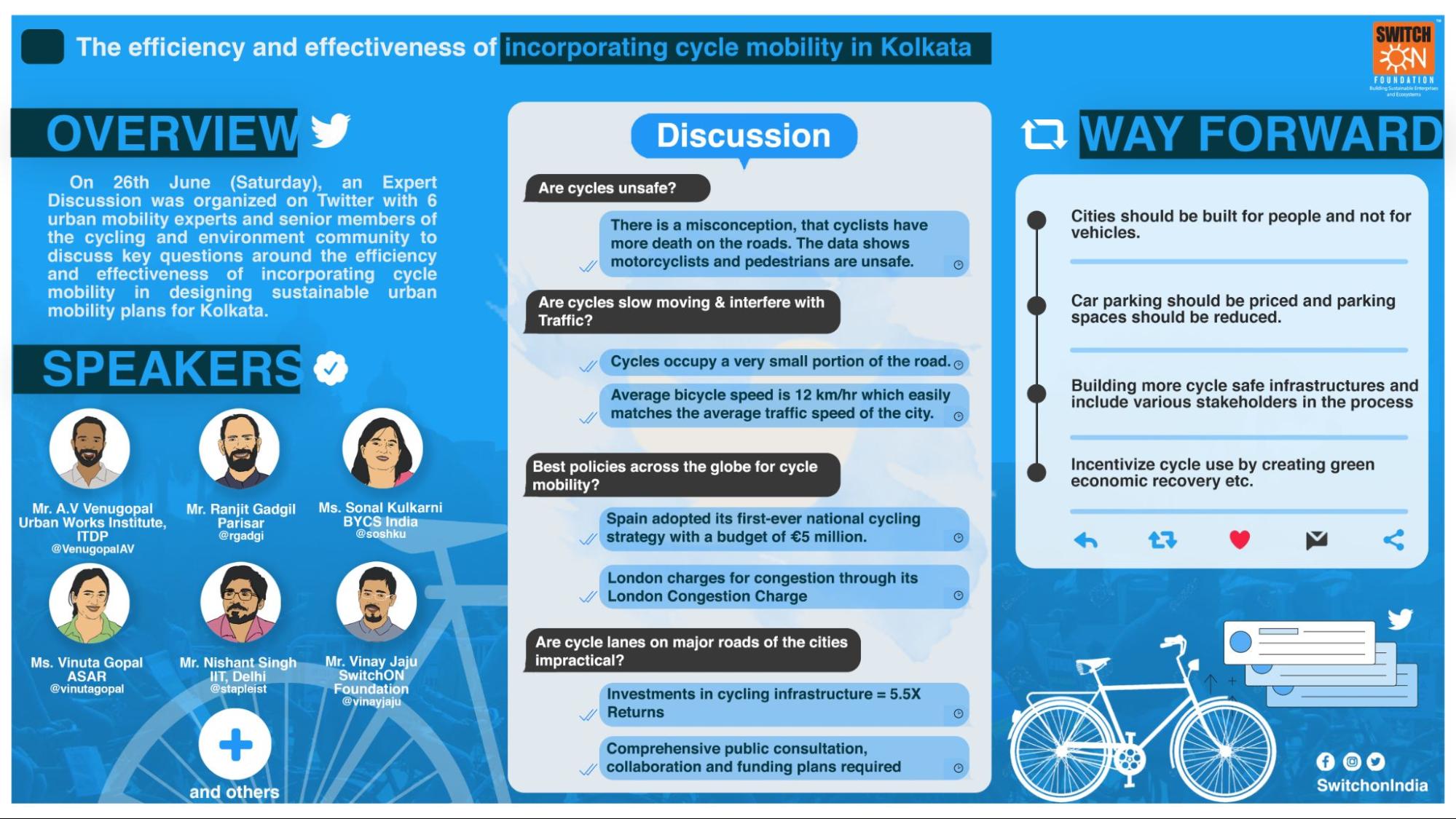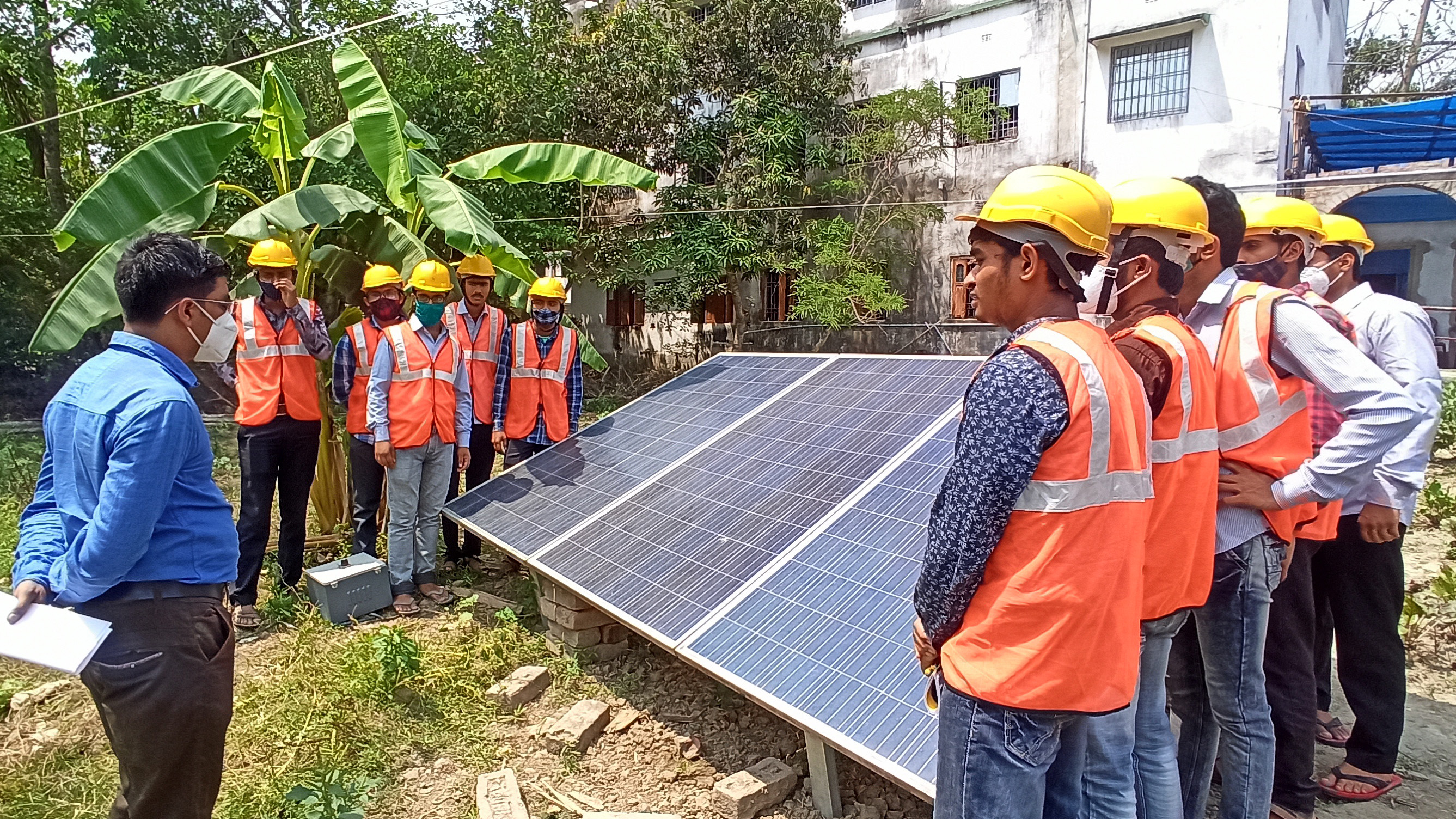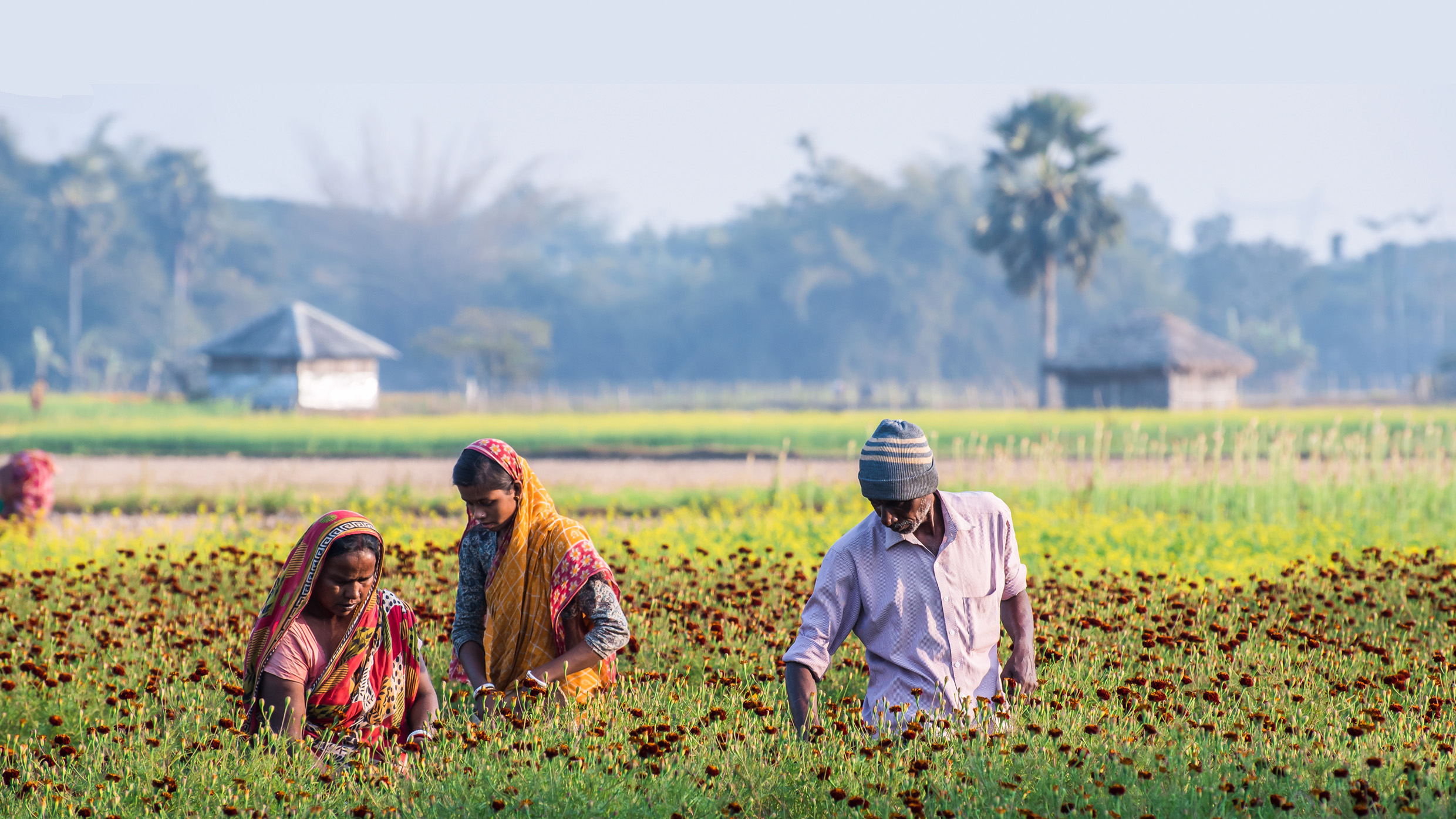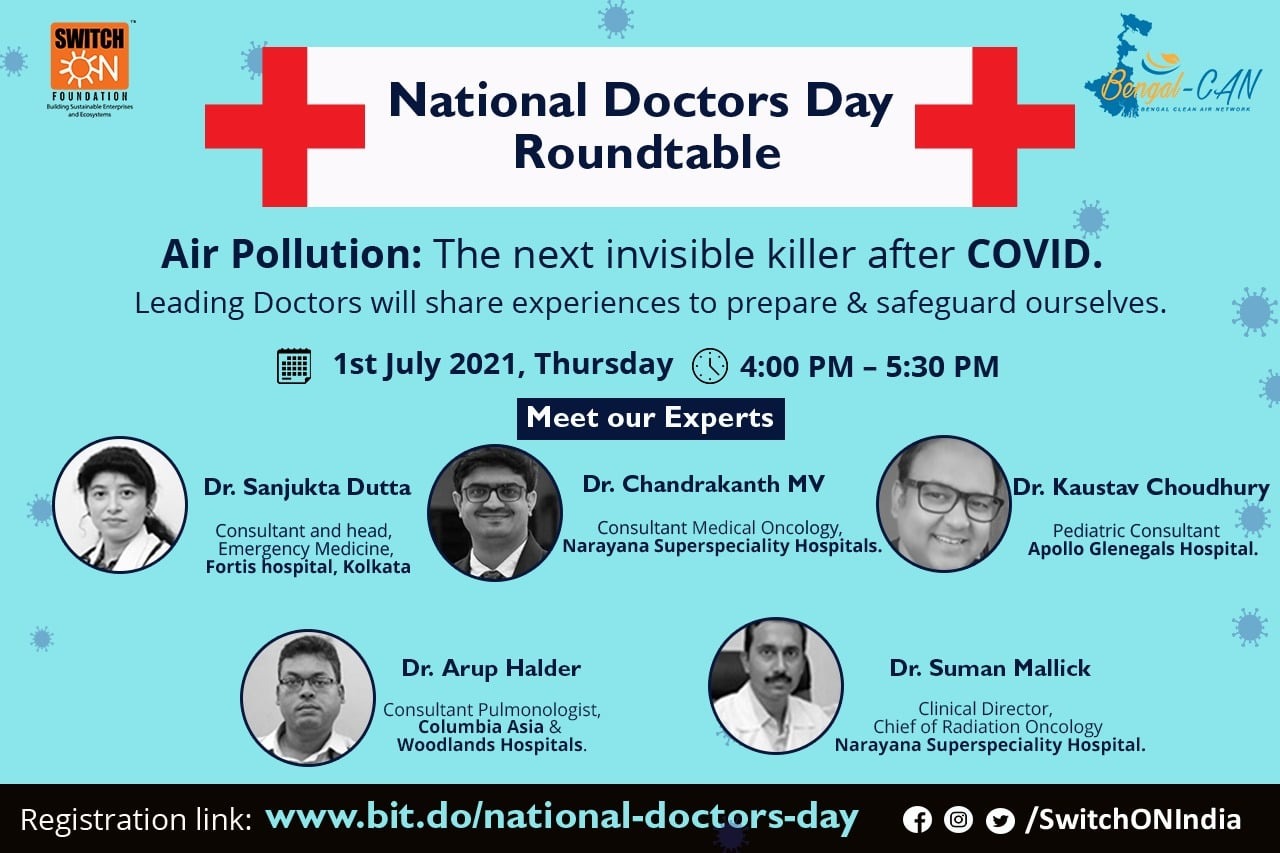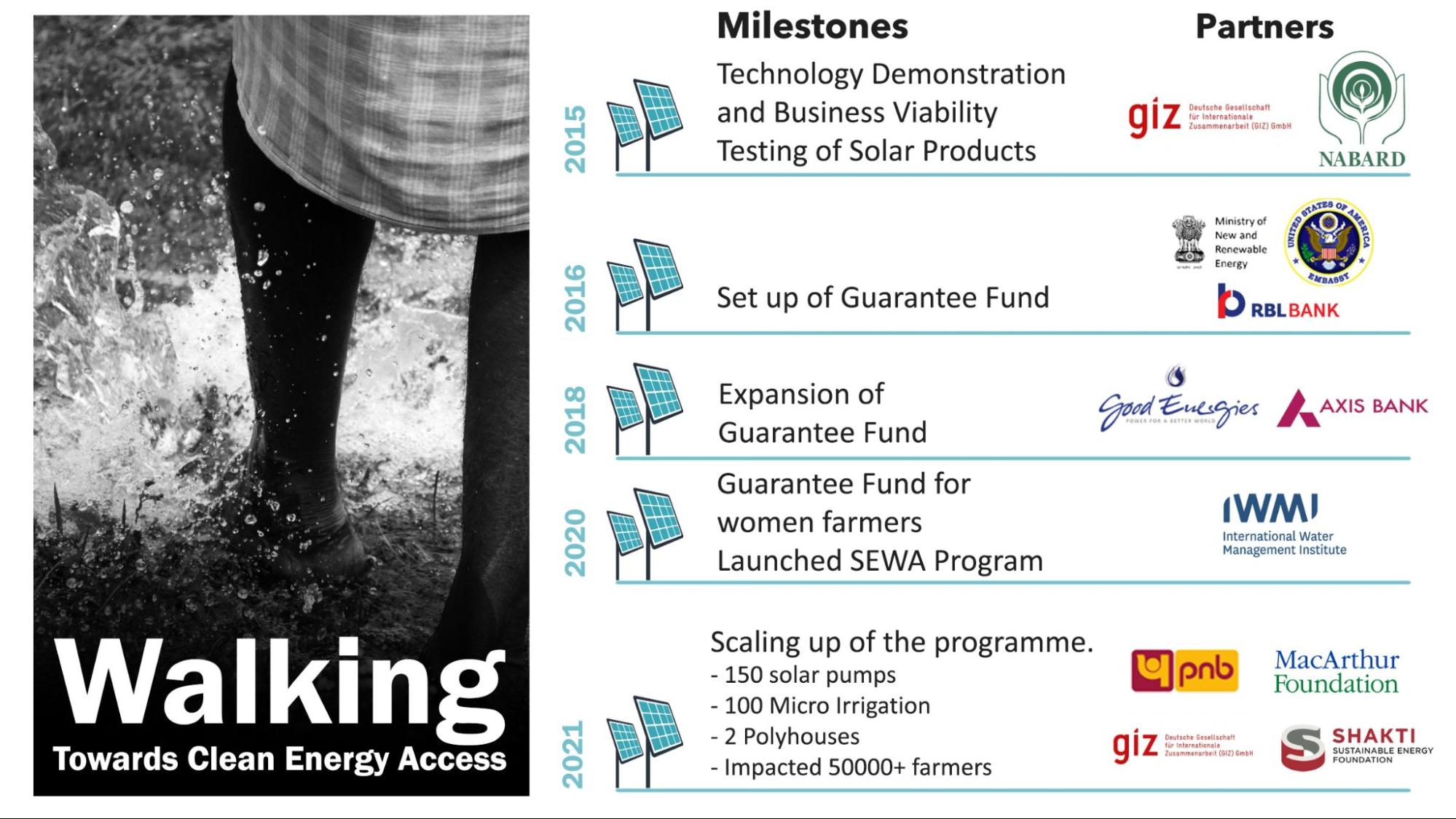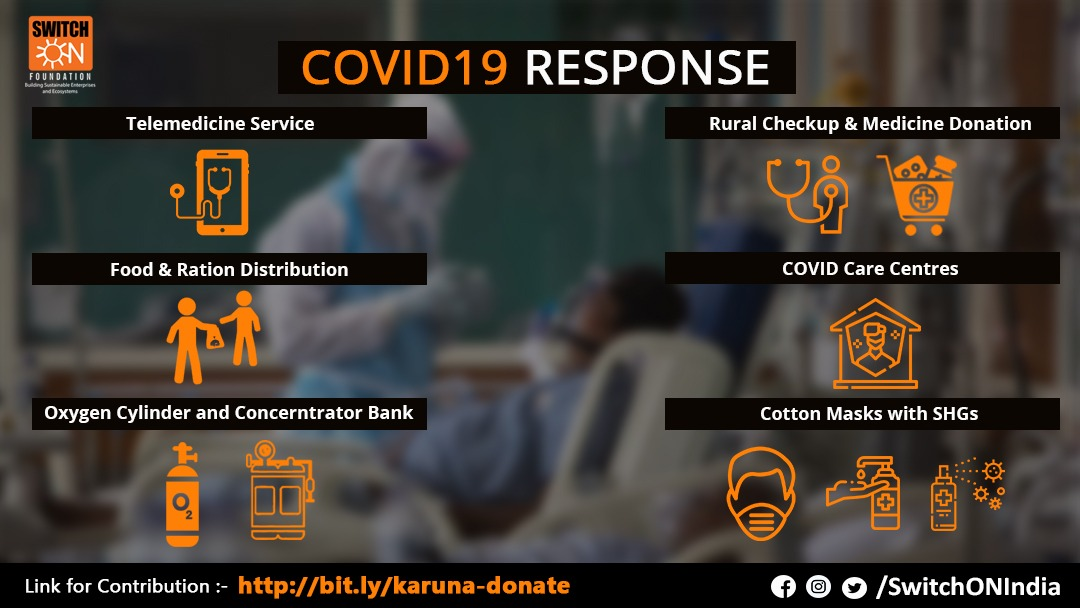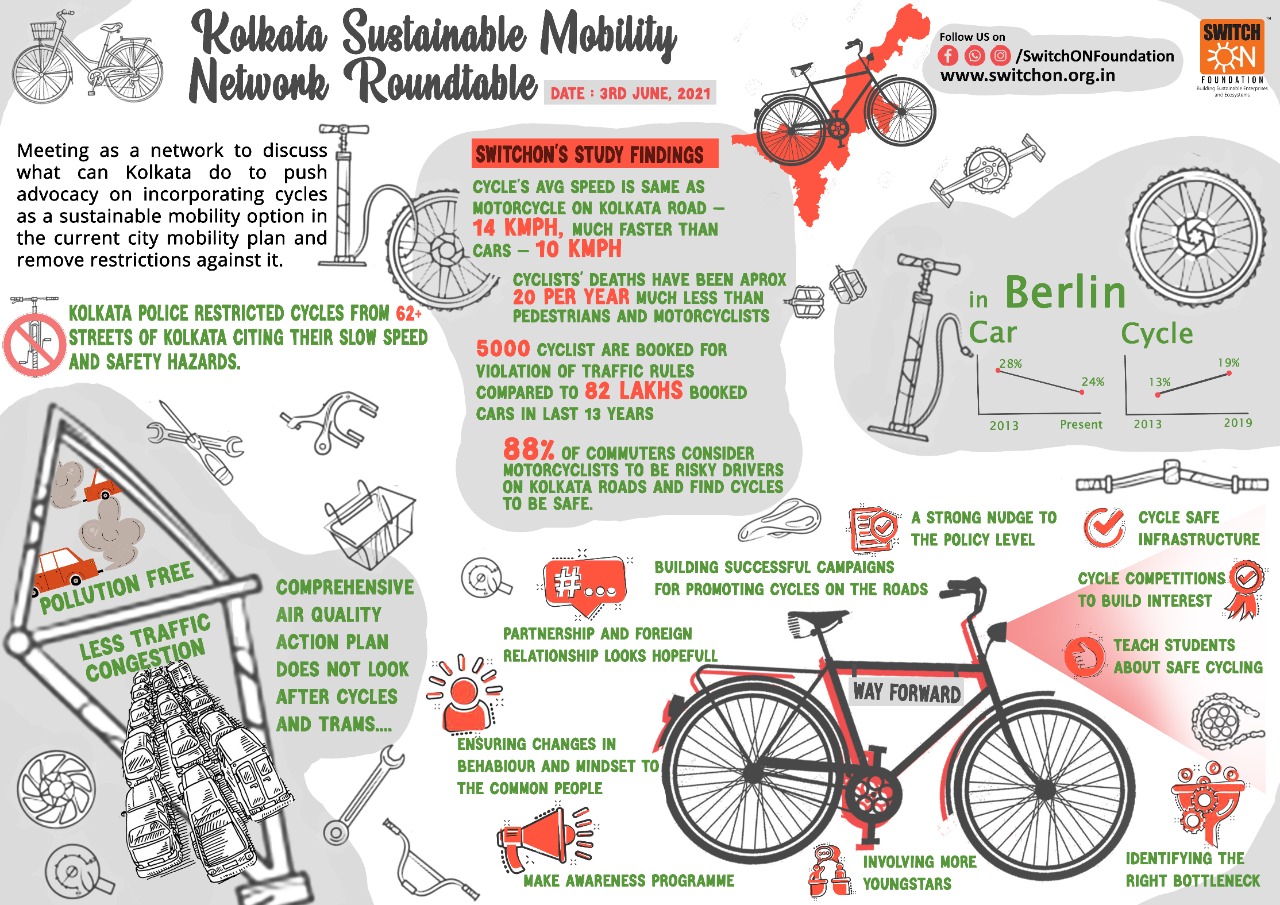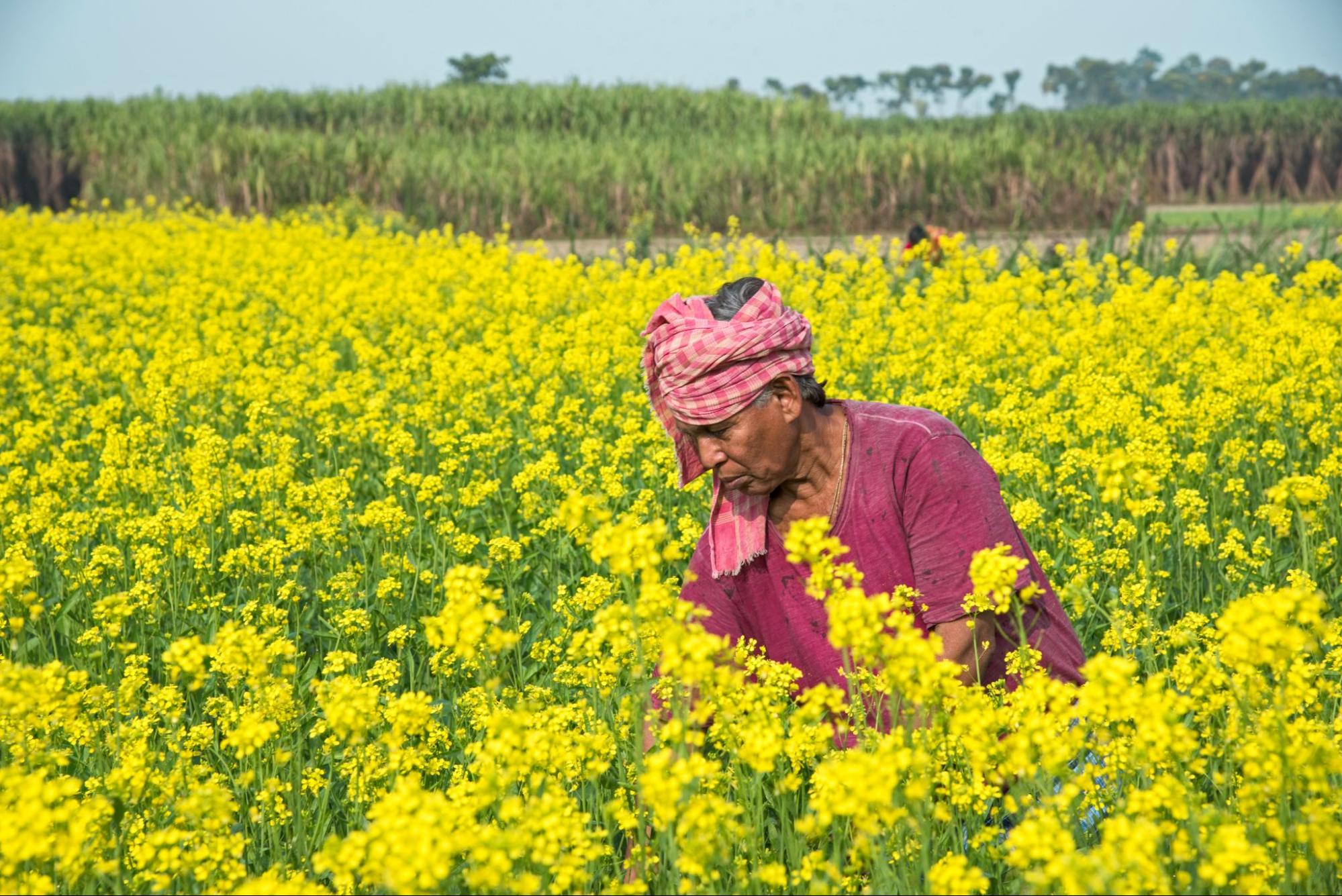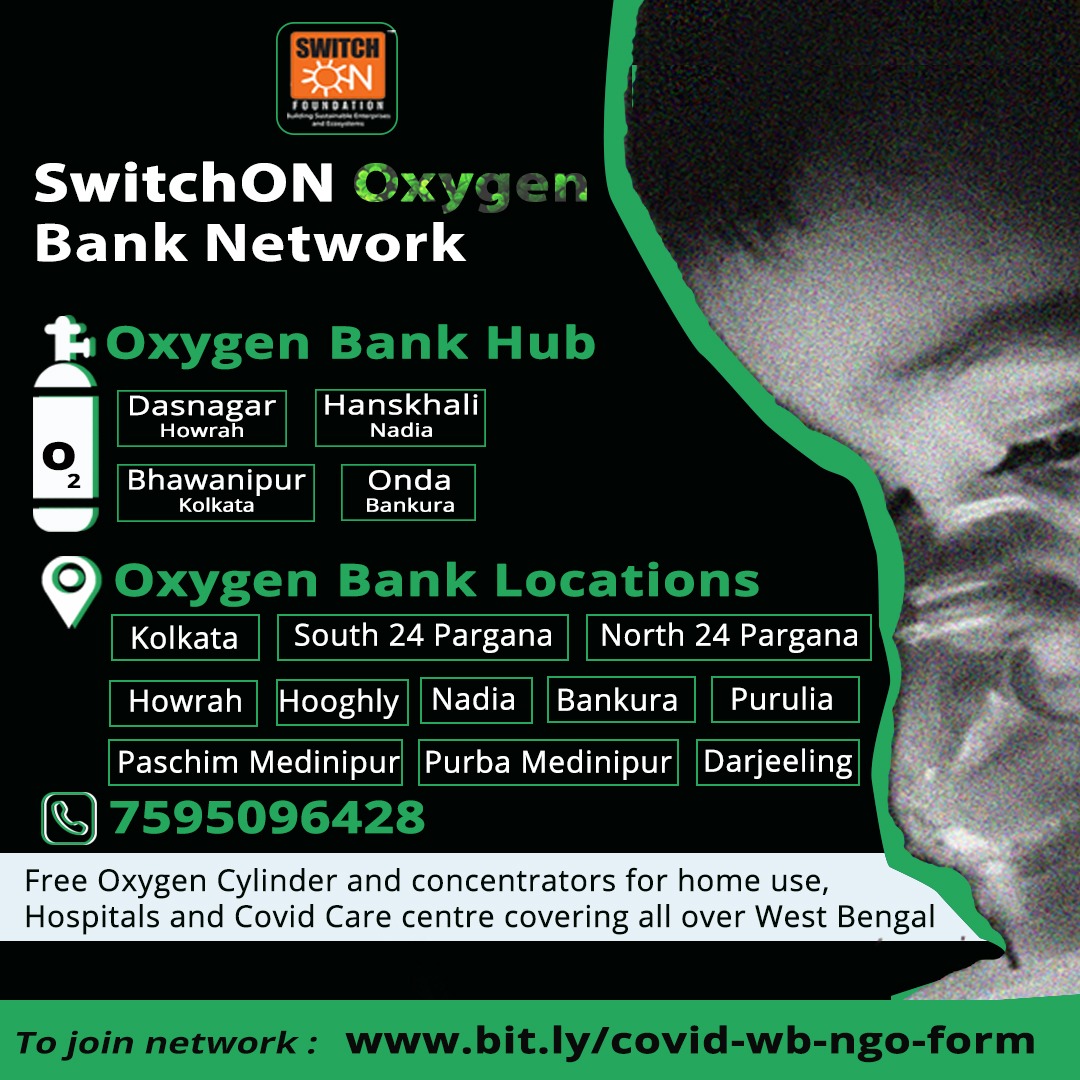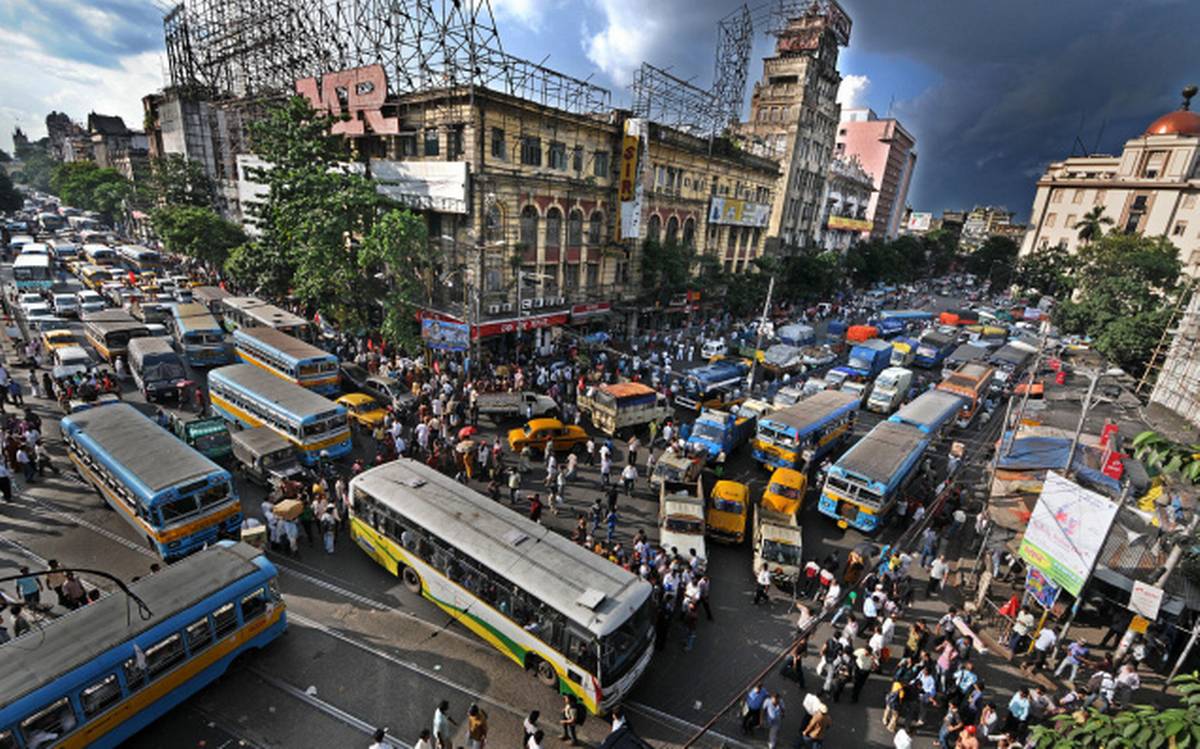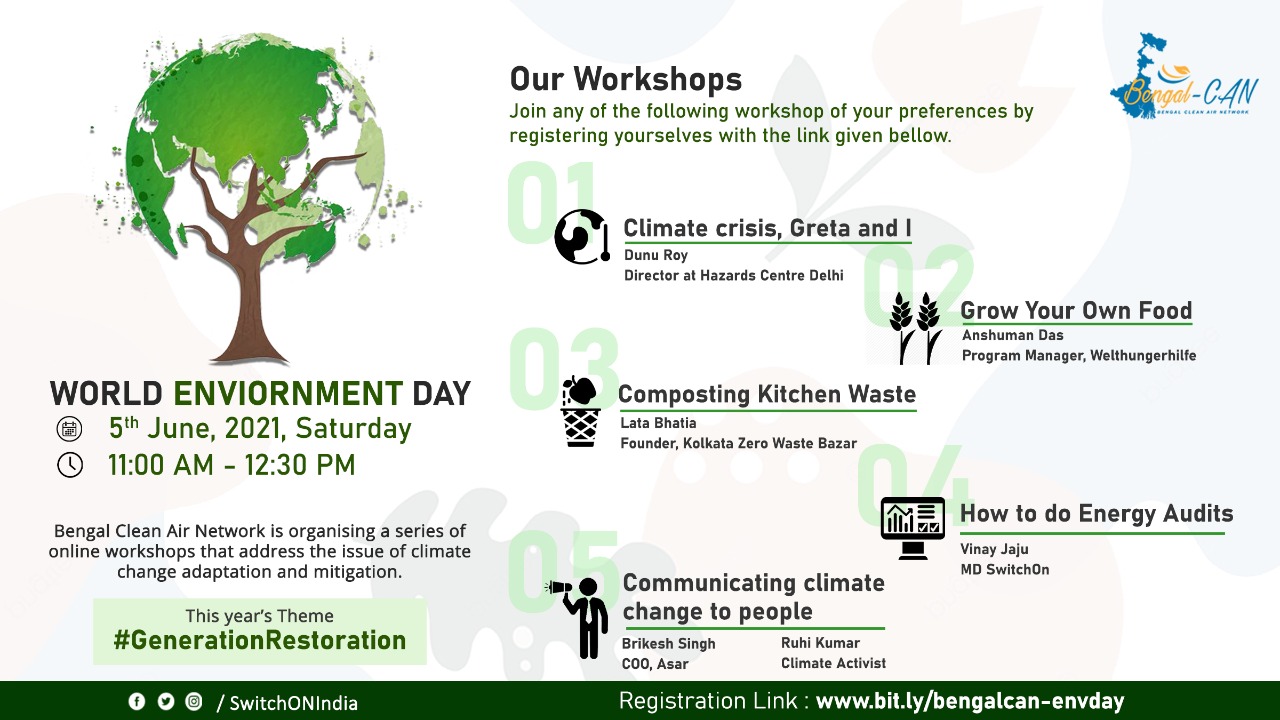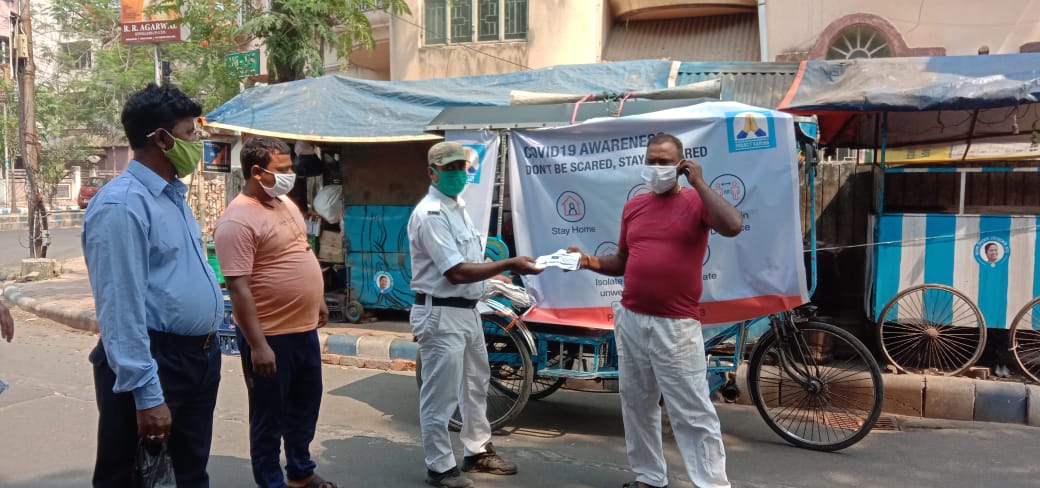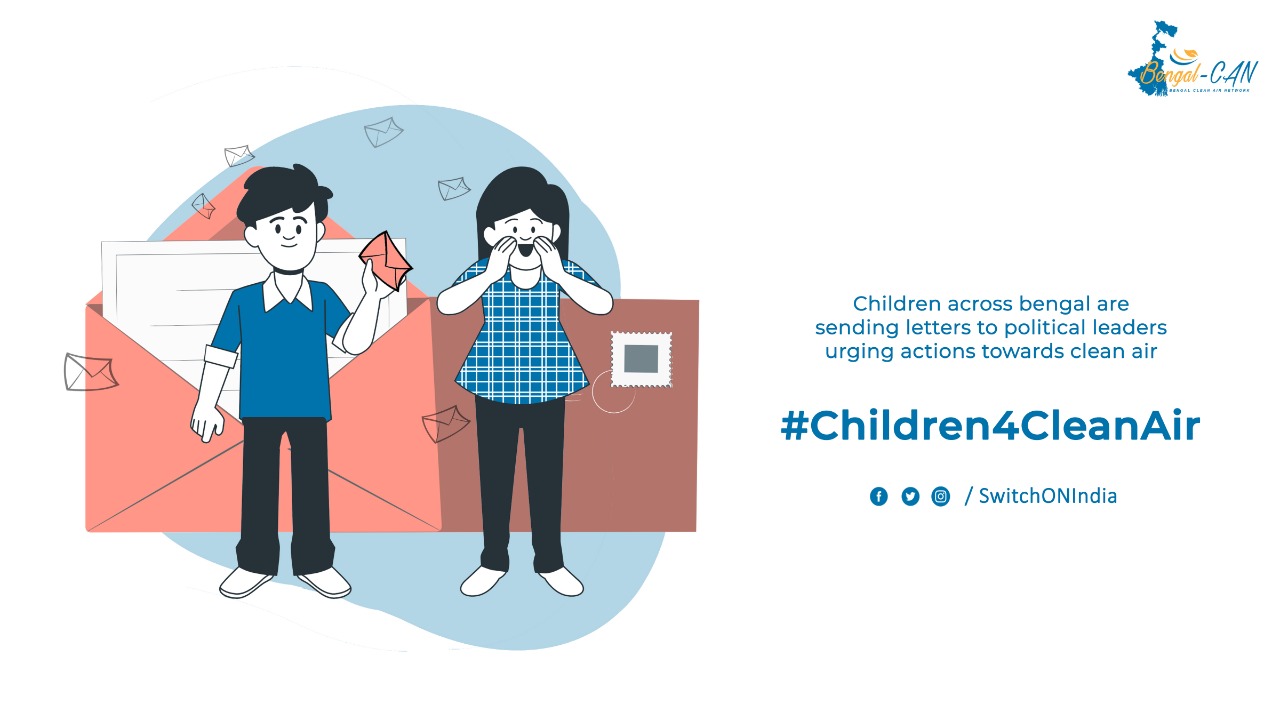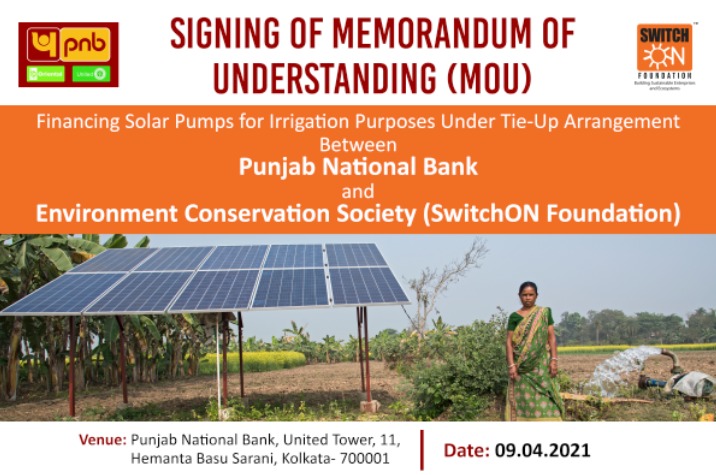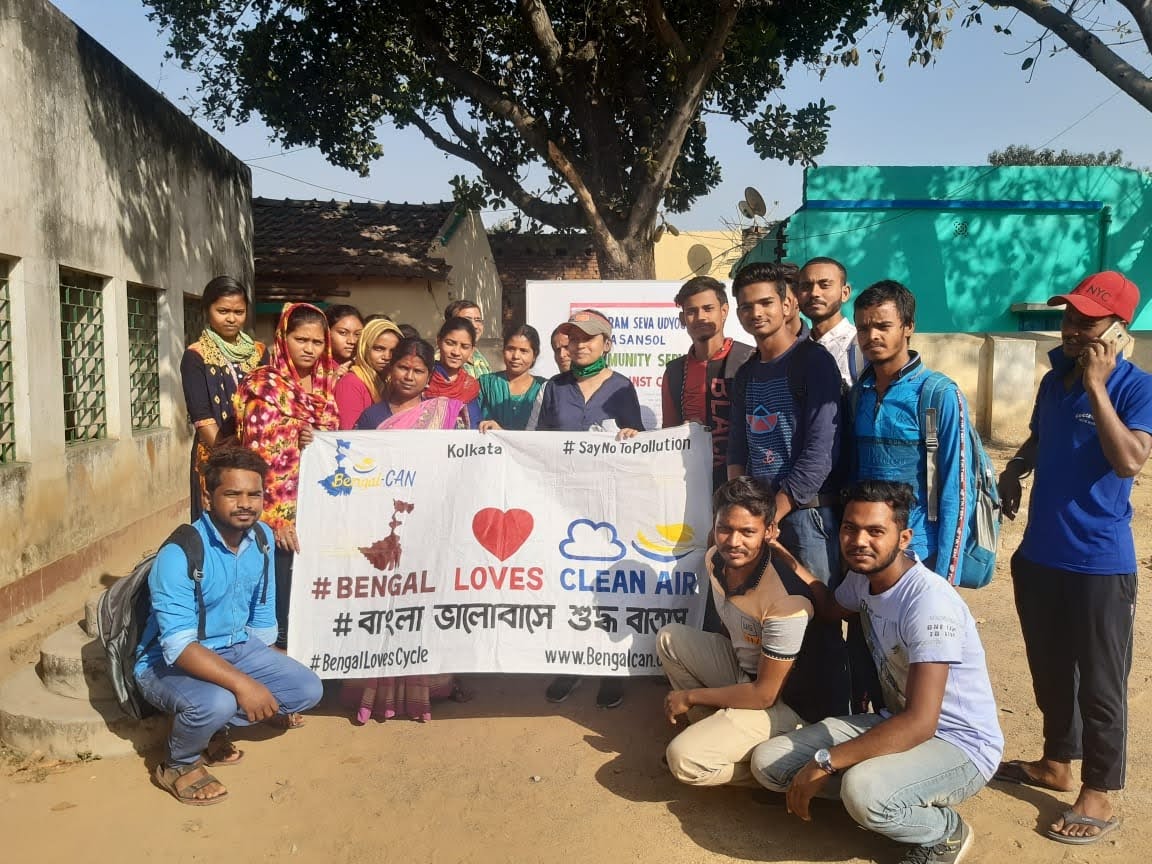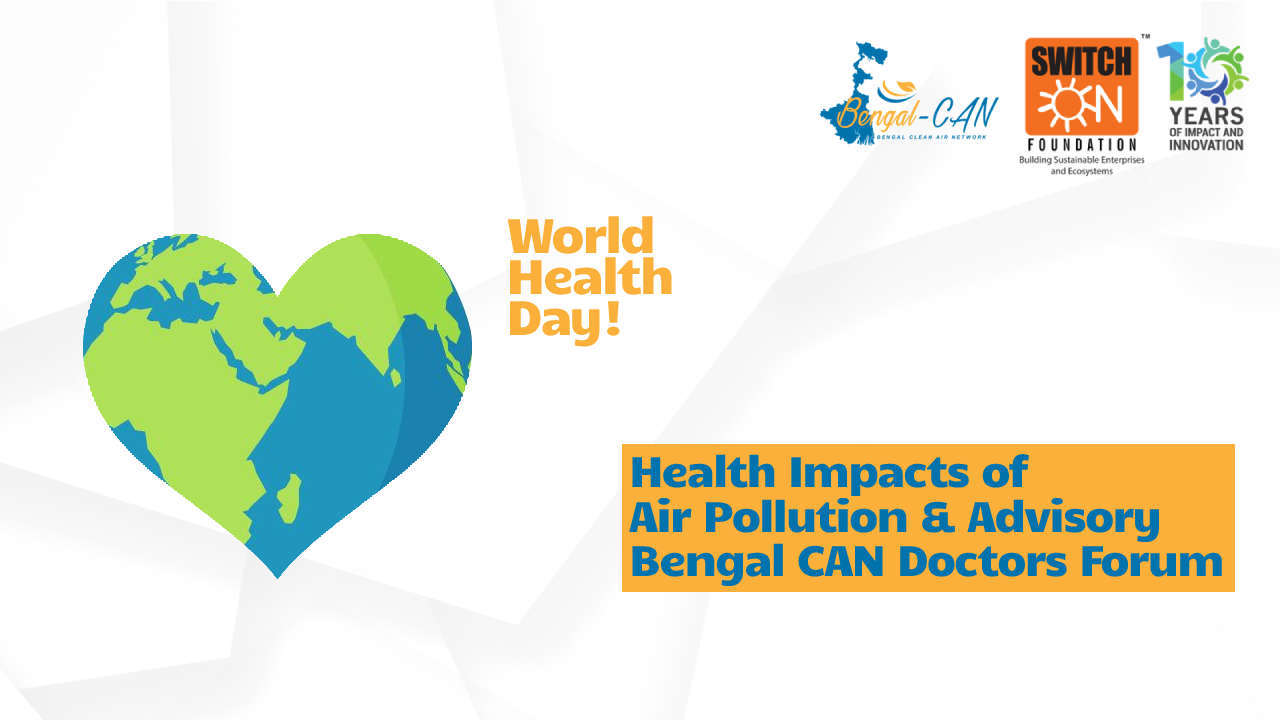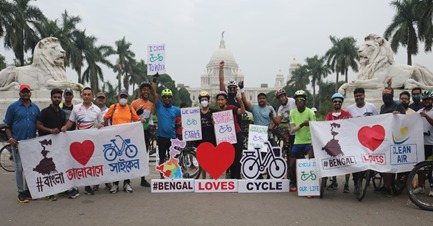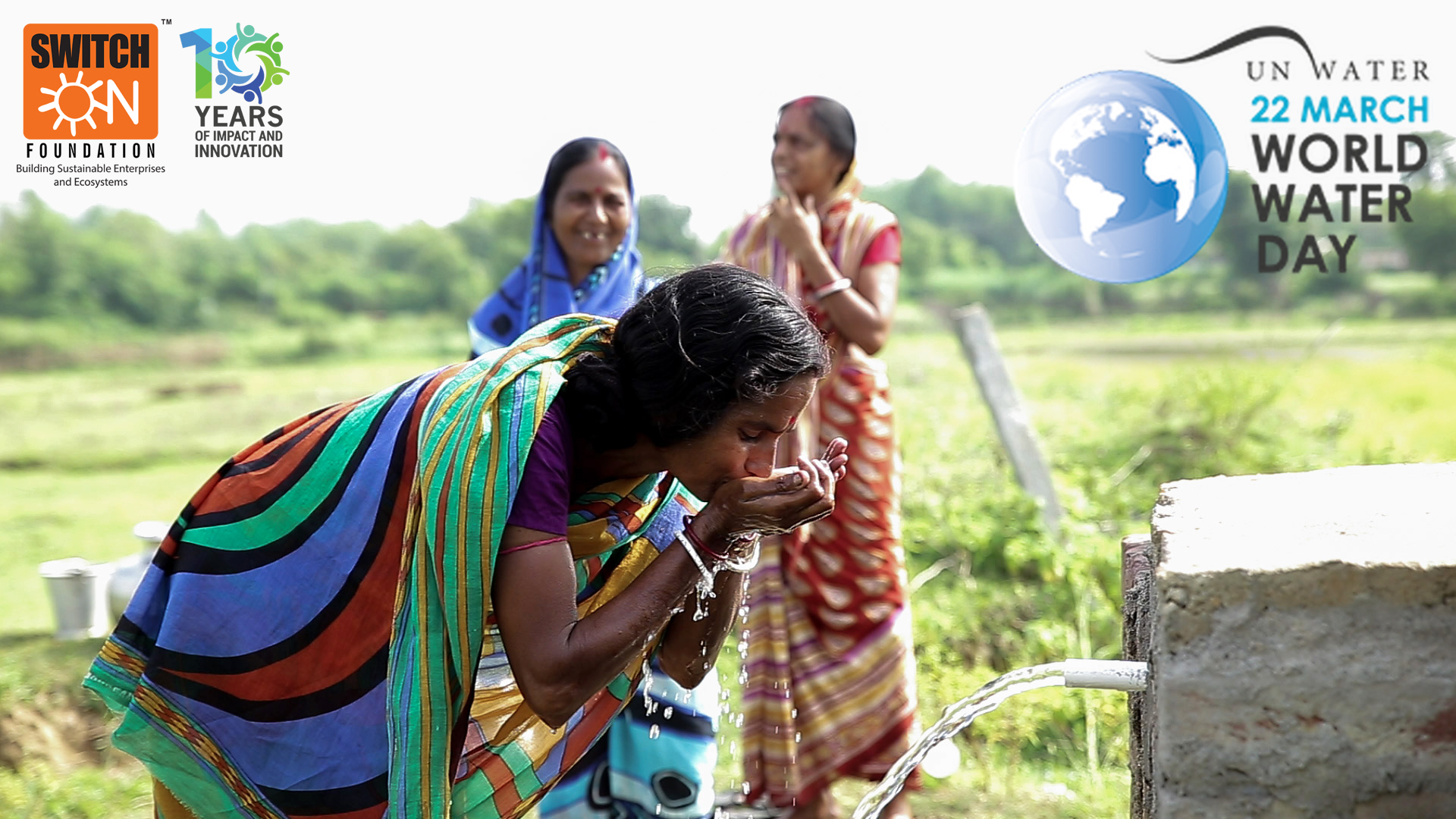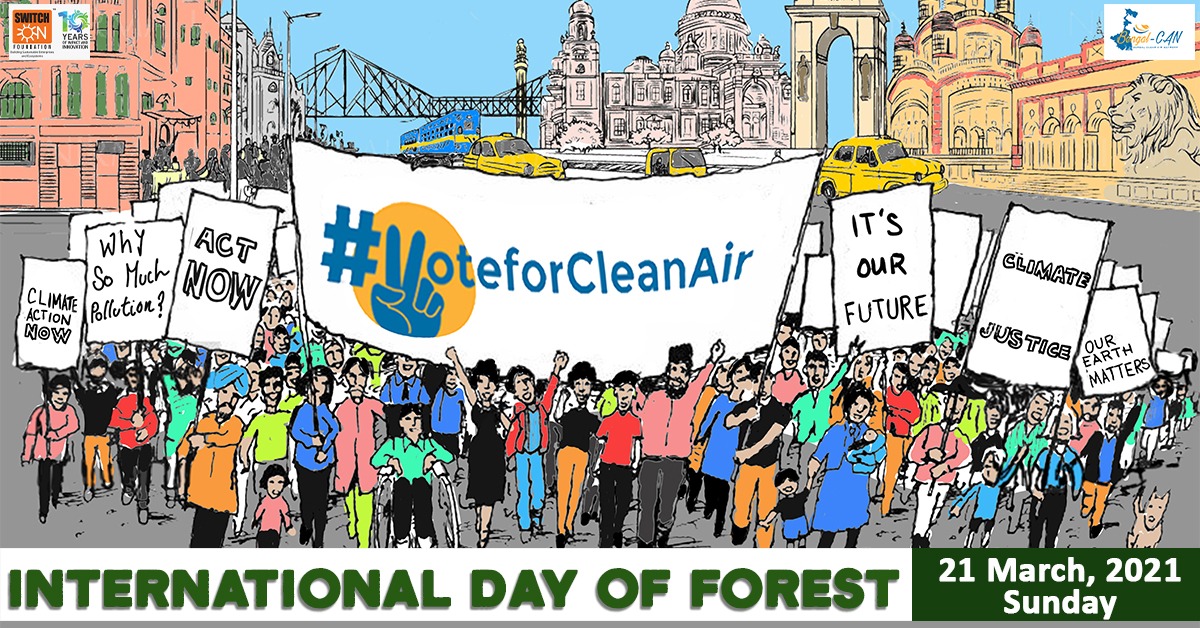Post Durga Puja, the air quality of Kolkata is deteriorating rapidly. A study by SwitchON Foundation analysed data from 7 CPCB CAAQMS stations across the city and revealed that the AQI has degraded considerably reaching upper Moderate conditions and has escalated to the Poor category on 8th as the cold wave sets in along with Diwali festivities. The data was collected post-Durga Puja Festivities between 29th October 2023 to 8th November 2023. These marked the dates for the end of the Idol immersion processions on 28th October and the beginning of the sale and bursting of firecrackers from 7th of November onwards. The 7 stations studied were: Ballygunge, Kolkata – WBPCB, Bidhannagar, Kolkata – WBPCB, Fort William, Kolkata – WBPCB, Jadavpur, Kolkata – WBPCB, Rabindra Bharati University, Kolkata – WBPCB, Victoria, Kolkata – WBPCB, Rabindra Sarobar, Kolkata – WBPCB
The mean daily AQI, PM2.5 and PM10 have consistently remained in the Moderate zone since the end of Durga Puja. The highest recorded daily Mean AQI was on 7th November at 208 with mean PM2.5 at 92.31 ug/m3 and mean PM10 at 167.97 ug/m3 respectively, far above the permissible limits of 50 and 100 ug/m3 respectively. It is evident that the onset of winter along with the increase in vehicular emissions as the city returns to normal activities coupled with the bursting of firecrackers might be triggering the increase. A recent report by Times of India dated 04.11.2023 shows a drastic increase of nearly 40.2% in PM2.5 concentration in the city in October compared between 2022 and 2023.
Another report by Times Now dated 04.11.2023 speculates alarming pollution conditions as the winter sets in amidst the Diwali celebrations. The morning of 8th October (8 am), has already recorded an alarming AQI value of 249 with PM2.5 and PM10 reaching 104.65 and 188.58 ug/m3 respectively.
The Predicament and Diwali effect:
- As per WMO, 2023 is an El Nino year, with large possibilities of climatic anomalies and extreme weather conditions throughout the year
- Winter will see a sudden dip in temperature and low wind speeds that will prevent the dispersion of pollutants away from their sources.
- As per weather forecasts by Accuweather, the winter temperature in the city may fall well below average with 25℃ at higher and 13℃ in the lower regions and prevail till January 2024.
- This demands alertness to reduce point source emissions within the city to prevent the AQI from stabilizing at the Poor category immediately.
Diwali and Air Pollution:
- Burning of Firecrackers during Diwali is identified to emit huge quantities of smoke, rich in PM2.5, PM10 and SO2. Even this year, the extensive burning of crackers may significantly affect and raise the AQI value to the Poor category or beyond. Unlike 2022 when the city experienced passing Cyclone Sitrang which was responsible for dissipating pollutants, there is no such cyclonic event forecasted this year. A report by Business Standard dated 04.11.2022 credited the Good air quality during Diwali,2022 to “persistent awareness campaigns, vigilance from the WBPCB’s Integrated Command and Control Centre (ICCC)” and there was also a ban on firecrackers in the last few years.
- In 2023, in addition to extensive awareness and vigilance by many civil society groups, schools and authorities, it is expected that the impacts of Firecrackers can be greatly reduced following the guidelines by the Supreme Court, enforcing a complete ban on conventional crackers and regulating the vendors to sell and consumers to purchase only Green Crackers (The Telegraph). These crackers are manufactured as per CSIR-NEERI composition guidelines and come with a unique QR code that when scanned, will show the certificate of authenticity. Consumers are directed to purchase only QR code-certified crackers and strictly adhere to the fireworks bursting time between 8 pm and 10 pm on Diwali night. The CSIR-NEERI-certified crackers are rated to have a 30% and 10% reduction in PM and gas emissions respectively (NEERI Report, 2019).
Air Pollution across West Bengal
- The risk is similar for the other cities of West Bengal where the AQI has been steadily deteriorating. As of 8th November (8am), Howrah recorded an AQI of 218, Asansol recorded an AQI of 268, both in the Poor category. Durgapur recorded AQI 146 while Haldia recorded AQI of 127, both in the Moderate category.
Recommendations/Conclusion
With the upcoming Diwali festivities and the risks posed by Fireworks; further detriment to the city’s air quality must be addressed through strict enforcement of guidelines by the Supreme Court regarding Green Crackers. Additionally, as responsible citizens, it is the responsibility of every Calcuttan, and citizen of the state to reduce and if possible, abstain from bursting crackers, burning paper and similar materials in the name of Diwali celebrations. Additionally, by an order dated 7.11.2023, The Supreme Court has clarified its earlier directions stating that the guidelines are applicable across the country, binding all states and not just the Delhi-National Capital Region. The key points from the original order are as follows:
- The original order was issued on October 23, 2018 by a bench headed by Justice A K Sikri.
- The order banned the sale and use of conventional firecrackers across the country and allowed only green crackers with reduced emission and decibel levels.
- The order also fixed the duration of bursting of crackers on Diwali and other festivals from 8 pm to 10 pm.
- The order directed the Central Pollution Control Board (CPCB) and the Petroleum and Explosives Safety Organisation (PESO) to monitor the manufacture and sale of green crackers and ensure compliance with the norms.
- The order also directed the police to ensure that only licensed traders sell green crackers and that e-commerce websites do not sell firecrackers online.
- As per a report by Asianet News dated 13.11.2020, (WBPCB) and state police intend to prosecute any person found bursting conventional firecrackers during Kali Puja and Diwali with a maximum jail term of five years and fine up to Rs 1 lakh.
Only through these practices can the cities prevent a further fall in air quality in the winter months ahead.
Media Dossier
Contact: Vinay Jaju | M: +91 9331178105 | Email: VJ@SwitchON.org.in
References
- Bandyopadhyay, K. (n.d.). Kolkata’s air quality worsens this October over last year’s. The Times of India. https://timesofindia.indiatimes.com/city/kolkata/kolkatas-air-quality-worsens-this-october-over-last-years/articleshow/104956441.cms
- Desk, T. C. (2023, November 4). Early Winter In Kolkata Amid Diwali Triggers Pollution Alarm: Report. TimesNow. https://www.timesnownews.com/kolkata/early-winter-in-kolkata-amid-diwali-triggers-pollution-alarm-report-article-104960859
- AccuWeather. (n.d.). Kolkata, West Bengal, India Monthly Weather | AccuWeather. https://www.accuweather.com/en/in/kolkata/206690/november-weather/206690?year=2023
- Press Trust of India & Business Standard. (2022, November 4). Kolkata witnessed good air quality index during Diwali: West Bengal PCB. www.business-standard.com. https://www.business-standard.com/article/current-affairs/kolkata-witnessed-good-air-quality-index-during-diwali-west-bengal-pcb-122110400209_1.html
- Correspondent, O. S. (2023, November 4). 100 fireworks sellers get licence to sell green crackers. https://www.telegraphindia.com/. https://www.telegraphindia.com/my-kolkata/news/100-fireworks-sellers-get-licence-to-sell-green-crackers/cid/1977505?utm_source=izooto&utm_medium=push_notifications&utm_campaign=MK-Nov%204-News%20Alert%202
- WMO Update: Prepare for El Niño. (n.d.). World Meteorological Organization. https://public.wmo.int/en/media/press-release/wmo-update-prepare-el-ni%C3%B1o#:~:text=Nevertheless%2C%20these%20recent%20developments%20in,the%20six%2Dmonth%20forecast%20period.



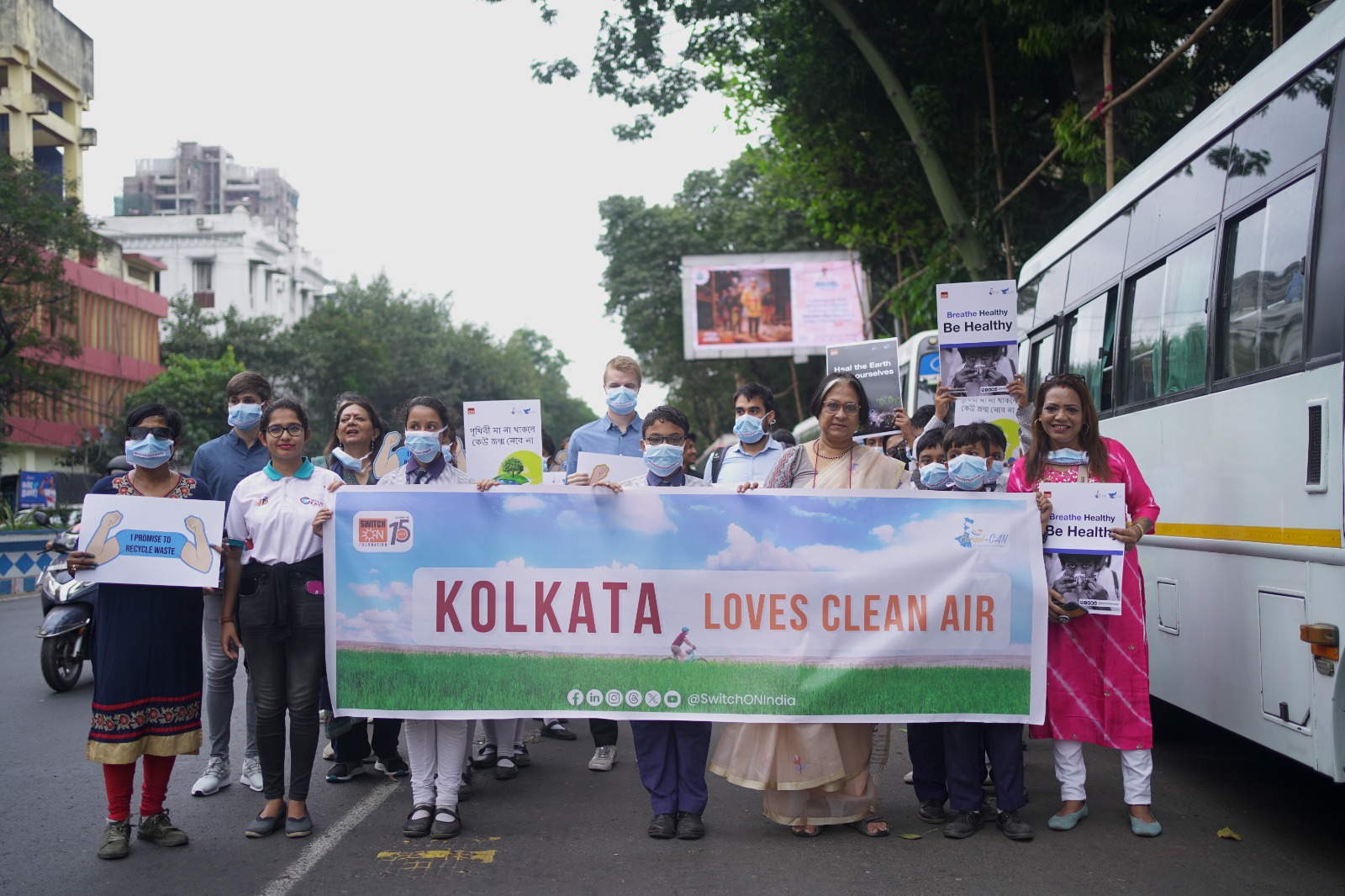
 0
0  0
0 